




04 Editor’s Note
CITY LIFE
08 The To-Do What’s an LLC?, festivals, sound walks, and more
28 Pride | On Politics Is acceptance possible?
30 Pride | Book review Samantha Irby’s Quietly Hostile is painfully funny.
36 Pride | Comedy A roundup of queer comedy for Pride month and beyond
10 Pride | Wish Me Luck Faith Phillips, founder of Wish Me Luck Tattoo
FOOD & DRINK
16 Beverages Bummer Wines brings natural wine to Pilsen
NEWS & POLITICS
18 Pride | Trans elders Five profiles feature local trans and genderqueer people who reflect on identity and joy.
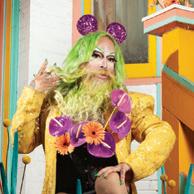
24 Pride | Remembering Marge A tribute to activist and bar owner Marge Summit
26 Pride | Isaacs Governor Pritzker signs an anti-censorship bill before the ALA Conference
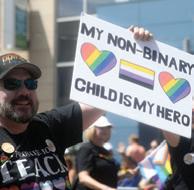
32 Pride | JoJo Baby A book excerpt explores the artist and performer’s indelible mark on Chicago nightlife.
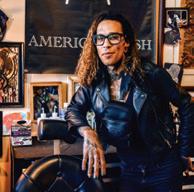
34 Pride | Profile Karen Topham on being the first public schoolteacher in the U.S. to transition while on the job.
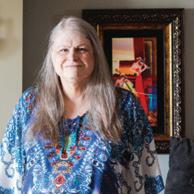
THIS WEEK ON CHICAGOREADER.COM
Artist Sonja Henderson’s latest sculpture is a way of reuniting the late Mamie Till-Mobley with her son.
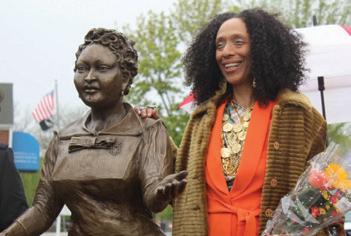
38 Plays of Note Theater to see including the recommended Don’t Quit Your Daydream at Second City and Obama-ology at Fleetwood-Jourdain
40 Pride movies A Reader roundup of queer film recommendations
42 Movies of Note The Blackening is a hilarious horror-comedy romp; Spider-Man: Across the SpiderVerse is simply gorgeous, and more reviews.
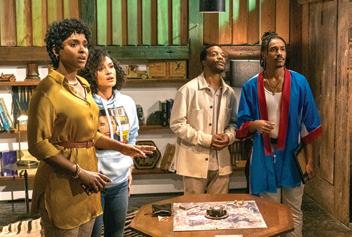
44 Pride | He Who Walks Three Ways A lesson in Chicago’s queer hip-hop history
50 Chicagoans of Note
Improvising drummer and community platform builder Bill Harris
54 Shows and Records of Note
Previews of concerts including Hyde Park Summerfest, Icewear Vezzo, and Wednesday, plus reviews of new releases
60 Early Warnings Newly announced and upcoming concerts
60 Gossip Wolf Razed by Apes debut their meat-and-potatoes rock, and more.
62 Comics
64 Savage Love
ON
CEO AND PUBLISHER SOLOMON LIEBERMAN EDITOR IN CHIEF SALEM COLLO-JULIN
PRODUCTION MANAGER KIRK WILLIAMSON
SENIOR GRAPHIC DESIGNER AMBER HUFF THEATER AND DANCE EDITOR KERRY REID MUSIC EDITOR PHILIP MONTORO
CULTURE EDITOR: FILM, MEDIA, FOOD & DRINK TARYN ALLEN CULTURE EDITOR: ART, ARCHITECTURE, BOOKS, LITERARY ARTS KERRY CARDOZA ASSOCIATE EDITOR AND BRANDED CONTENT SPECIALIST JAMIE LUDWIG SENIOR WRITERS LEOR GALIL, DEANNA ISAACS, BEN JORAVSKY, MIKE SULA STAFF WRITERS DEBBIE-MARIE BROWN, KATIE PROUT
LISTINGS COORDINATOR MICCO CAPORALE
VICE PRESIDENT OF OPERATIONS ANN SCHOLHAMER
CHIEF DEVELOPMENT OFFICER DIANE PASCAL DIRECTOR OF PEOPLE AND CULTURE ALIA GRAHAM
DIRECTOR OF MARKETING VIVIAN GONZALEZ MARKETING PROJECT STRATEGIST SHAWNEE DAY NEWSLETTER ASSOCIATE CHASITY COOPER
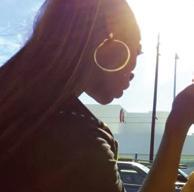
DEVELOPMENT ASSOCIATE MICHAEL THOMPSON TECHNOLOGY MANAGER ARTURO ALVAREZ OFFICE MANAGER AND CIRCULATION
DIRECTOR SANDRA KLEIN
DIRECTOR OF CHICAGO INDEPENDENT MEDIA ALLIANCE (CIMA) SAVANNAH HUGUELEY
SENIOR VICE PRESIDENT OF GROWTH AND STRATEGY AMBER NETTLES VICE PRESIDENT OF SALES AMY MATHENY SALES TEAM VANESSA FLEMING, TIM OGDEN, WILL ROGERS
DIGITAL SALES ASSOCIATE AYANA ROLLING MEDIA SALES ASSOCIATE JILLIAN MUELLER ADVERTISING ADS@CHICAGOREADER.COM
CLASSIFIEDS: CLASSIFIEDS.CHICAGOREADER.COM
NATIONAL ADVERTISING VOICE MEDIA GROUP 1-888-278-9866 VMGADVERTISING.COM
JOE LARKIN AND SUE BELAIR DISTRIBUTION CONCERNS distributionissues@chicagoreader.com 312-392-2970
READER INSTITUTE FOR COMMUNITY JOURNALISM, INC. CHAIRPERSON EILEEN RHODES TREASURER REESE MARCUSSON SECRETARY KIM L. HUNT DIRECTORS ALISON CUDDY, DANIEL DEVER, MATT DOUBLEDAY, VANESSA FERNANDEZ, TORRENCE GARDNER, ROBERT REITER, CHRISTINA CRAWFORD STEED
READER (ISSN 1096-6919) IS PUBLISHED BIWEEKLY BY THE READER INSTITUTE FOR COMMUNITY JOURNALISM 2930 S. MICHIGAN, SUITE 102 CHICAGO, IL 60616 312-392-2934, CHICAGOREADER.COM
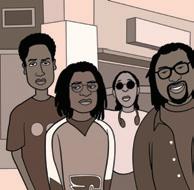
Percussionist Derf Reklaw was barely eulogized.
COPYRIGHT © 2023 CHICAGO READER PERIODICAL POSTAGE PAID AT CHICAGO, IL ALL RIGHTS RESERVED. CHICAGO READER, READER, AND REVERSED R: REGISTERED TRADEMARKS ®
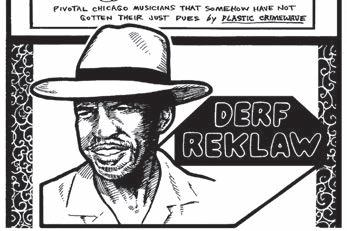
‘Without that sketch, maybe nothing, baby!’
Dewayne Perkins, writer and star of The Blackening
Malcolm X College’s accredited Nursing program prepares future nurses to provide quality care. With hands-on training in our state-of-the-art virtual hospital and connections at area hospitals, you’re set up to lead and succeed in your career.

• Tuition-free opportunities for eligible students
• Financial, academic, clinical and career support available
• Opportunities for dual enrollment: earn your associate and bachelor’s degrees at the same time




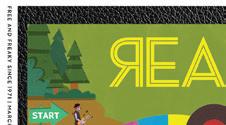

The best way to make a TikTok name for yourself is by making constant, short, pithy videos about the same subject, including your possibly controversial opinions (but not, like, in a Mein Kampf way, just in a “Finally! Someone said it, and they said it well!” kind of tone that travels well in social sharing), and finding a slightly sped-up or skewed instrumental version of a familiar-sounding melody to serve as your background soundtrack. Popular subjects seem to include pet parenting, the best and worst (in your opinion) aspects of the area in which you live, “dance covers” where you and possibly your kindest and most loyal friend record yourselves trying to mimic the choreography of Janet Jackson’s “Control” video et al., and generation banter.








It’s possible that the popular subjects I’m seeing over and over are due to some algorithmic process based on what the Tiks and Toks think I might “like” (and to be honest, y’all did OK with the Janet video thing), but debates over what constitutes generational divides seem to be a trope present in all of my social media. Perhaps this is the sort of gentle and unnecessary bickering that the Internet was created for (I mean, that plus Pentagon communications).




Generation X, of which I seem to be a part, has its woes, and, though my generation seems to be consistently ignored in favor of a steady stream of videos featuring millennials versus Gen Z versus boomers, there are certainly a plethora of people my age on the TikTok, the Instantgram, and soon the other public bulletin boards yet to be designed who are very interested in letting you know that we’re here. We’re depressed. We went through all the trauma and it was worse, because we could not fix it. We mean, not yet. I mean, we’re still here. But we’re also slackers, or at least that’s what our public persona used to be so we didn’t get blamed for stu .
Anyone who has been through a modicum of therapy might be able to analyze the Gen X brand through that lens fairly easily: witness
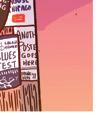




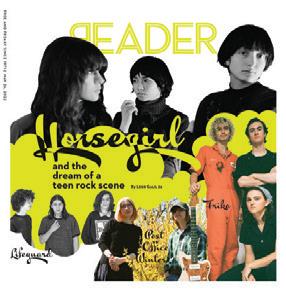
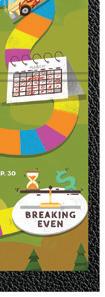

to pain, finding coping mechanisms in co ee, wandering around, and loud, loud music. But as tropes and stereotypes go, the TikToks seem to land on “Don’t blame us, we’re not you” as the only conclusion.
As a young person, I never felt like I really belonged to anyone, much less a generation of people like myself. I did my share of wandering, escaping to some extent from a roller coaster of events that shaped my life from birth to young adulthood, and eventually found my community through papers like this one. In fact, this very newspaper you are holding was instrumental in allowing me a window into lives that seemed much more wonderful, which made staying alive seem much more possible for me.
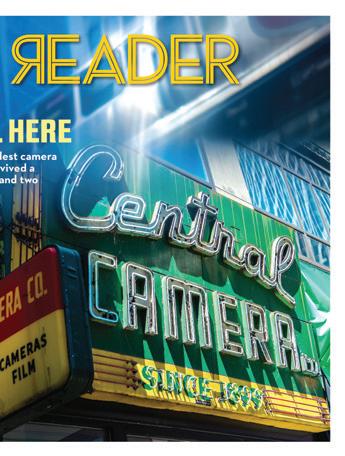
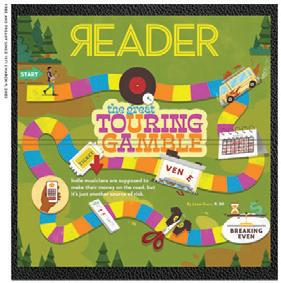

I came out as bisexual to a childhood friend when we were both around 18 and sitting on the sidewalk on Clark Street outside of the Cafe Voltaire. And then I came out again to my grandmother a few years later as she recounted watching a video of me and friends dancing at Berlin nightclub that had made its way into an episode of the Oprah show (the subject was “Men on the Down Low”). And then I came out again in my 30s by shouting at my family members while we were on vacation together in Florida that my relationship had shattered because of the people involved, but not because I wasn’t picky about gender. And then I came out again to my new boo when I got into another fantastic canoodling situation. And then I came out again, just now, to you.


I’m here, with a job, a family, a companion, a life, a city, and a future that I literally tried to prevent myself from having when I was a young person, because many people around me tried to tell me that I wasn’t supposed to be the human that I am. But I’m here. And for myself and many of the fantastic people who consented to share their lives in this issue—please excuse us if we get angry when people try to tell us that we shouldn’t live our lives. v
—Salem Collo-Julin, editor in chief @hollo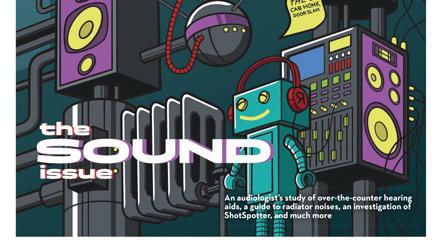
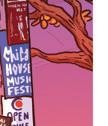
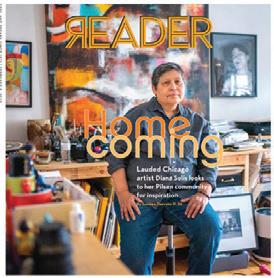
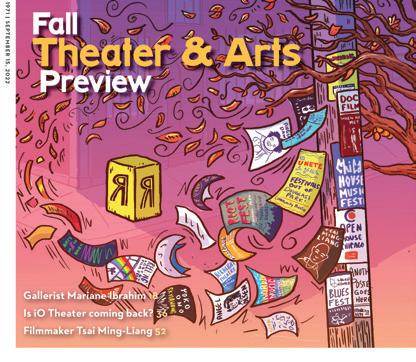

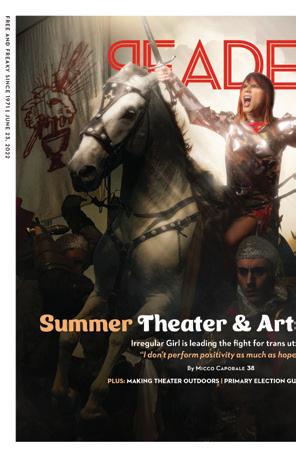














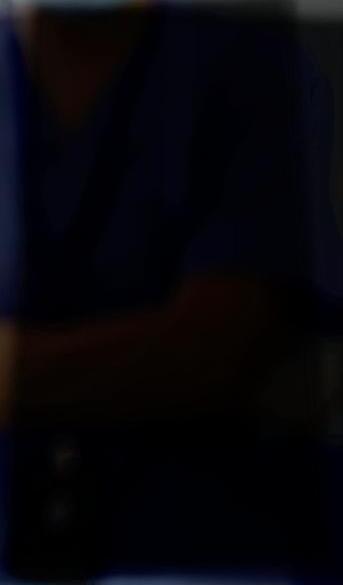



You may have heard medical experts and public health figures refer to the ongoing mental health crisis in the United States as “the second pandemic.” Mental illnesses such as depression, anxiety, bipolar disorder, and schizophrenia were already commonplace in our complex, fast-paced world before the onset of the COVID-19 pandemic in 2020 triggered a monumental landslide of personal loss, grief, and isolation that impacted individuals and families across all parts of society—worsening the precarious state of our collective mental health. In 2020, the Center for Disease Control (CDC) listed suicide as the 12th leading cause of death in the United States, claiming 45,900 lives (approximately double the national homicide rate). And in 2021, the National Alliance on Mental Health (NAMI) reported that one in five American adults experience mental illness each year. The numbers are even more pronounced among American youth. NAMI reported that one in six Americans aged six through 17 (including 145,000 Illinoisians) experience mental illness each year, and suicide is the second leading cause of death among people aged ten to 14.
In Illinois, the crisis hits close to home. NAMI reported that in 2021, 1,754,000 Illinoisians live with mental illness. Of those people, 376,000 had had thoughts of suicide within the previous year, and 1,488 succeeded in taking their own lives. Still, hundreds of thousands of Illinoisians living with mental illness did not receive the help they needed, due to factors such as cost, lack of accessible mental health care providers, and stigmas surrounding mental health issues and seeking support.
In response, the Cook County Department of Public Health (CCDPH) teamed up with NAMI in January 2023 to launch the Here to Hear You campaign. The year-long initiative aims to remove the stigmas surrounding identifying and seeking care for mental health issues, to improve the quality of life of people living with mental health issues, through every stage of their journeys, and connect Cook County residents to community-based organizations that focus on mental health services, support, and treatment. In February, CCDPH also awarded Building Healthier Communities: Behavioral Health Initiative grants totaling nearly $17 million in American Rescue Plan Act (ARPA) funding to 20 grassroots organizations centering on mental health and wellness across suburban Cook County.
“We recognize that mental health is public health,” says CCDPH spokesperson Kimberley Conrad Junius. “Mental health and physical health are interconnected. And so it’s important as a public health agency for us to make sure that mental health is part of the whole picture.”
During Pride month, CCDPH is shining a spotlight on community partners that focus on the LGBTQ+ community, including QTPOC (queer, trans people of color) organizations. One of their partners is Chicago’s Black Alphabet (blackalphabet.org). The organization got its start a decade ago as the city’s first Black LGBTQ+ film festival, with a focus on social equity awareness and education in all aspects of life for the Black LGBTQ+ community. But a er a post-film panel discussion a few years ago, they began to shi focus toward mental health a er identifying a need within their community.

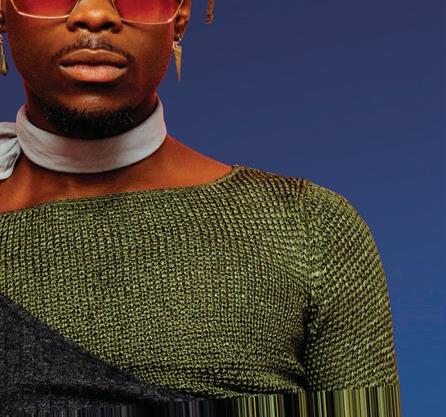
“We had a panel discussion a er the film with a psychologist. And most of the questions were for them,” says Black Alphabet executive director and board president Adam McMath. “I discussed that with my board, and figured out more ways that we could incorporate wellness into our programming. That’s when we shi ed our mission to address things that disproportionately impact our community, by leveraging art.”
While Black Alphabet still runs their film festival, they’ve expanded their efforts to include art therapy workshops and more.“The mental health program is limited to ten people per session, just so they can engage the therapist,” McMath says. “And then we allow members to do one-on-one sessions.”
McMath notes that Black Alphabet serves a wide variety


ment, basic needs and legal services (including a weekly grocery distribution program), and more.


“We recognize that mental health is just as important as physical health and spiritual health,” says executive director Chris Balthazar. “We offer a number of different services that are directly or indirectly related to mental health. We directly connect people to mental health services providers that are LGBTQ+ affirming and culturally responsive to our community, and also our staff are trained as mental health first aid workers.”
They also provide mental health first aid training to LGBTQ+ youth. “A lot of times young people do know what is going on with their peers,” Balthazar says. “A lot of times adults are the last ones to know. And sometimes, unfortunately, it could be too late. So it’s really about equipping young people, and providing them with the tools to help keep each other safe, and get their peers connected to their resources.”
Task Force has an expansive network of partners within the Chicago community, which enables them to connect youth with LGBTQ+ affirming resources they need. They’ve partnered with high schools throughout the city, and in turn have become a trusted resource for educators seeking support for their students. “If a parent doesn’t sign off on IEP (individualized education program) services, a child in need of counseling might not be able to get those services through their school. So one of the benefits of being a community-based organization is that [that approval] isn’t necessary.
Through all of their efforts, Balthazar says that Task Force served 1,500 people last year, the bulk of which were between 16 and 29 years old. And they see about 200 people each month at their drop-in center, which focuses on people within the younger end of their demographic.
of ages, from youth through seniors, and the organization strives to address a variety of their needs; for example, providing members with HIV testing and PreP services, and referrals to other agencies when necessary. They’re also mindful that people at different stages of life may have different obstacles when it comes to mental health. “Younger members really have a lot of different challenges,” he says. “A lot of folks are looking for chosen family to replace their birth families. And there’s also issues around not wanting to know, their HIV status, and us pivoting and turning [that fear] around.”
McMath says he feels strongly that grassroots organizers like Black Alphabet are in a unique position to engage people in conversations around mental wellness. “From my perspective, typically, [grant funding] happens with direct service organizations, but a lot of our community—for various reasons—typically don’t engage the direct service organizations, but they do engage something artistic, whether or not it’s a concert, or something else. So, coming at it from this angle, I think, is a really great opportunity for us.”
Task Force Chicago (taskforcechicago.org) is another organization that CCDPH is highlighting for its work in the community. Located in the Austin neighborhood, the organization centers Black LGBTQ+ youth through programming in violence prevention, professional develop-

“[One] of the things that we provide is that safe space where they can be who they are without experiencing homophobia and transphobia when they are in the building at Task Force. We have a drop-in space where they can build a community and connect with other young people. We call it The Vogue School.”
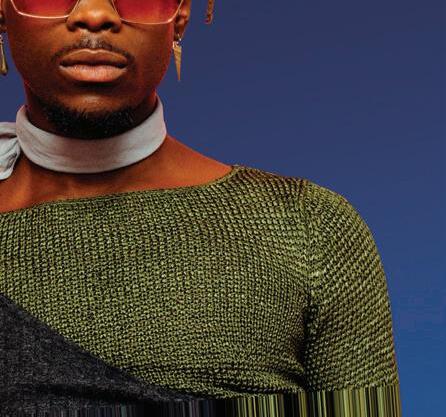
McMath says that programs such as art therapy can be less intimidating than booking an appointment with a traditional therapist, and whatever the lesson, anyone can benefit from prioritizing their mental health. “I typically tell people that you don’t have to have a noticeable mental health challenge to engage in a mental health lesson. Just like a car, your car could be running, but this session may help the car run better,” he says.”
Baltzar echoes that sentiment. “Self care is mental health,” he says. “I think it’s important that we take the time to listen to ourselves and figure out what it is we need to be happy. I o en tell people to not ignore what you’re feeling, but to acknowledge it. And you don’t have to do it alone. It’s all about finding support and that connection.”
CCDPH and its partners, including NAMI Chicago, are Here to Hear You at h2hucookcounty.com. Look and listen for the CCDPH float at the parade at Chicago Pride Fest on June 25, which will feature a DJ from 103.5 KISS FM, accompanied by Cook County officials, staff and partners.
OK, we all know it’s Pride Month and that the next two weeks are premium time to get loud ’n’ proud. But did you know other events are happening in Chicago as well? If your calendar’s still got the space, here’s a few things to squeeze in between all your gay activities.
To all the self-employed creatives out there: Empty Bottle (1035 N. Western) has the workshop for you. On June 17, Matt Klomparens, a business lawyer who works with Lawyers for the Creative Arts, will present a free class at the venue on LLCs. It’s aimed at anyone working as a solo entity or small operation in the creative economy—people like musicians, writers, artists, performers, and gallerists. After a certain financial threshold, registering one’s moneymaking venture as an LLC provides legal and tax benefits. From 2-3:30 PM, Klomparens will demystify what an LLC is , who would benefit from registration, and how to begin the process. Must be over 21 to attend. emptybottle.com
Do you believe in magic? So does the Physician Magician , aka Dr. Ricardo Rosenkranz, a local licensed medical professional who uses illusions to explore what’s miraculous about medicine. For three shows at the Rhapsody Theater (1328 W. Morse)—two shows on June 18 and one on June 24—Rosenkranz will debut a handful of new tricks as part of his signature science-infused magic show. Tickets run $25-$75 and can be purchased through Rhapsody’s website. rhapsodytheater.com
Weinberg/Newton Gallery (688 N. Milwaukee) recently announced that it will be closing its doors in September. On June 23, the social justice-focused gallery will launch its final exhibition, “Disarm: Everyday Violence, Every Day,” presented in partnership with Firebird Community Arts and Gun Violence Prevention PAC. The show will feature works generated by students impacted by gun violence and undergoing trauma recovery. Firebird Community Arts teaches
3D artmaking techniques like glassblowing and ceramics , all made in their Garfield Park warehouse. While the opening reception lasts from 5-8 PM, the show will remain on view until the gallery closes September 9. Weinberg/Newton is open to the public Thursdays through Saturdays from 11 AM-5 PM. weinbergnewtongallery.com
Summertime in Chicago means a bounty of live music. June 23-25 presents three uniquely homegrown opportunities to pack a lot of audio into an afternoon: Pride in the Park in Grant Park’s Butler Field (near E. Monroe at DuSable Lake Shore Drive), the Chicago House Music Festival and Conference (conference at the Chicago Cultural Center, 78 E. Washington and festival at Humboldt Park’s Boathouse lawn near 1301 N. Humboldt), and Miche Fest in Harrison Park (1824 S. Wood).
Pride in the Park (OK, I snuck one more gay event onto your calendar) runs June 23-24 and features a blend of bands, DJs, and drag performers, including Zedd, Saweetie , DJ Mohammad, DJ Ca$h Era, Miss Toto, and Irregular Girl. It’s open to those 15 and up, and tickets are $70-$120 for single-day admission and $130-$210 for two-day passes. prideparkchi.com
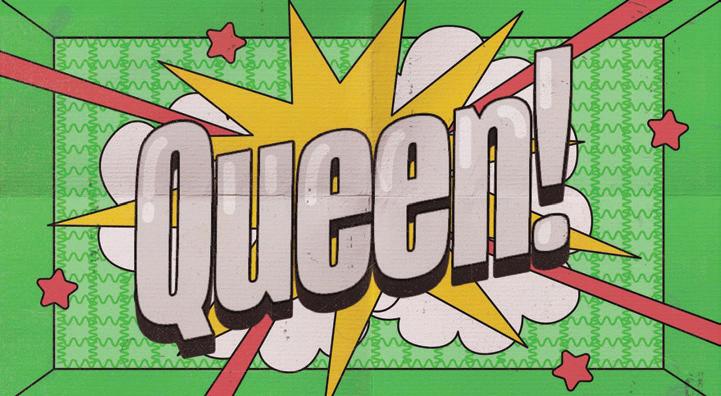
In contrast, the Chicago House Music Festival, which runs 11 AM-9 PM on June 24, is all-ages and free! Organized by DCASE, the allday celebration of house music features both newcomers and legends, concluding with a two-hour set from DJs associated with Smart Bar’s (in)famous Queen!series hosted by Lucy Stoole and Nico. chicago.gov
Over in Pilsen, Miche Fest returns for its fifth year to serve micheladas among some of
the hottest names in Latine pop music. Spread between June 24 and 25, headliners include Prince Royce, Natti Natasha , Gerardo Ortiz, and Alex Lora y El Tri. Tickets run $89-$169 for single days and $149-$299 for weekend passes. Miche Fest is open to all ages, and children 12 years old and under get in for free when accompanied by a ticketholding adult. michefest.live

While house music is still on your mind, close out the month with The Woodstock of House , a documentary on the Chosen Few Picnic . The Chosen Few were originally five south-side teen DJs and producers who were central to the development of house music in Chicago. Thirty years after their inception, the group added new members, and now the full Chosen Few crew includes Wayne Williams, Jesse Saunders, Tony Hatchett, Alan King, Terry Hunter, Mike Dunn, and Andre Hatchett. Now in its 33rd year, their annual picnic regularly attracts over 40,000 people. This documentary chronicles the Chosen Few Picnic’s 25th anniversary while exploring why the event has been such an enduring part of the dance music world. The Woodstock of House is playing at the Gene Siskel Film Center (164 N. State) at 8:30 PM June 29 and 30. Tickets are $13 or $9 each for groups of 15 or more. Both screenings will be followed by a discussion with interview subjects and crew members. siskelfilmcenter.org
After priming your ears with a music festival or documentary, head back outside for a sound walk. These free, all-ages audio tours are provided by the Midwest Society for Acoustic Ecology (MSAE) and happen in parks throughout the city until September 8. Each tour is led by a di erent sound-based artist, who will guide participants on noticing local sounds and contextualizing them through geographic and cultural information. At the same time, artists will raise questions like, “Are plants responding to or contributing to sound?” and “Can sound be gendered?”
Called “Sound Trails,” the first walk will be led by Jeanette Dominguez and happens at 10 AM on June 24 at North Park Village Natural Center (5801 N. Pulaski). The second walk, called “From Where the Boundaries Meet,” will be led by Jonas Sun and happens on June 30 at 5:30 PM at Ping Tom Memorial Park (300 W. 19th). Don’t forget your comfy shoes and sunscreen! For a complete list of dates, check out MSAE’s Instagram. instagram.com/midwestsocae v @JuggaloReporter
my Dad reads my poem and wonders out loud why everything i write is so sad. now we wonder together why i would spend so much time rummaging through sad poems. “they don’t have to be sad right? they’re yours ain’t they?”
By TOASTERTOASTER is the Co creator of Big Kid Show, a poetry slam invested in centering marginalized voices and terrible prizes. TOASTER has competed at every level of poetry slam, most recently competing as an Individual World Poetry Slam finalist. Their work can be found on Button Poetry, All Def Digital, Sofar Sounds and National Public Radio.
This Poetry Corner is curated by Raych Jackson. Rachel “Raych” Jackson is a writer, educator and voice actor. Her poems have gained over 2 million views on YouTube and have been published by many— including Poetry Magazine, The Rumpus, The Shallow Ends, and Washington Square Review. She co-created and co-hosts Big Kid Show, a monthly variety show in Chicago. Raych’s debut collection EVEN THE SAINTS AUDITION (Button Poetry) won Best New Poetry Collection by a Chicagoan in the Chicago Reader fall of 2019. RAYCH-JACKSON.COM
A biweekly series curated by the Chicago Reader and sponsored by the Poetry Foundation.









Hours
Wednesday, Friday, and Saturday: 11:00 AM–4:00 PM Thursday: 11:00 AM–7:00 PM
Spend some of your summer with the Poetry Foundation! Explore our library’s collection of over 30,000 volumes. Experience exhibitions in our gallery, where visual art and poetry meet. Relax in our courtyard with the latest issue of Poetry magazine.

Poetry is here. For you. For everyone.
Learn more at PoetryFoundation.org
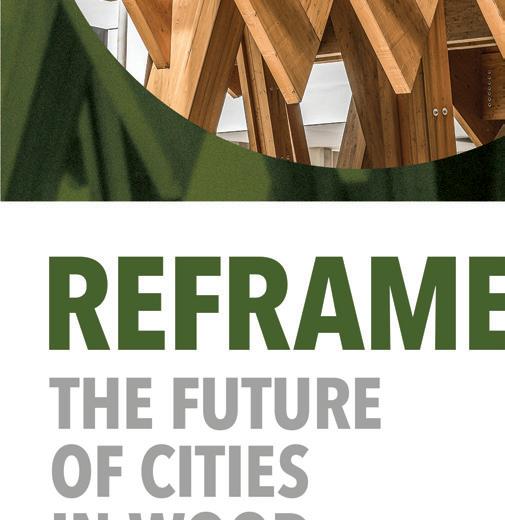
Despite the shop closing, the owner and founder of Wish Me Luck Tattoo continues to advocate for trans rights and awareness.
By JUSTICE PETERSENI“f you thought this was just a tattoo studio, then you’ve missed [the point],” Faith Phillips says.
Phillips, 40, has incredibly piercing eyes. I don’t shy away from her gaze, because her eyes strike not with anger, but with a love that comes from years and years of continuously giving it. Her eyes also have a hardness to them, built up from decades of pain and torment. When I talk with her at her tattoo studio, we both wear black leather jackets and combat boots. I wonder whether there’s more we have in common than our taste in clothing, and this is soon confirmed when we start talking about hard-core metal music.
We’re sitting in her o ce, a tiny room with walls completely covered in pieces of white paper with printed stencils of tattoos. There are various zodiac pieces, traditional feminine portraits, script, and one drawing of a cross near the ceiling. The plastered walls remind
me of pages torn from the Bible that are stuck to the walls of a room containing something unholy. There is a sink and a mirror in the corner in front of me, and stacks of filing cabinets against the wall behind me. An empty co ee pot sits unbalanced on a pile of papers.
Phillips is the owner and founder of Chicago’s first Black-, trans-, and queer-owned tattoo shop, Wish Me Luck Tattoo. The shop opened in December 2020 and has served as a beacon of hope for those in the community who have otherwise been shunned by the rest of society. After years of fighting for trans rights and o ering her tattoo studio as a safe haven only to see no change within the city or in her community, Phillips has taken a step back from the public eye for the past few months. Recently, she announced that Wish Me Luck Tattoo will be closing its doors.
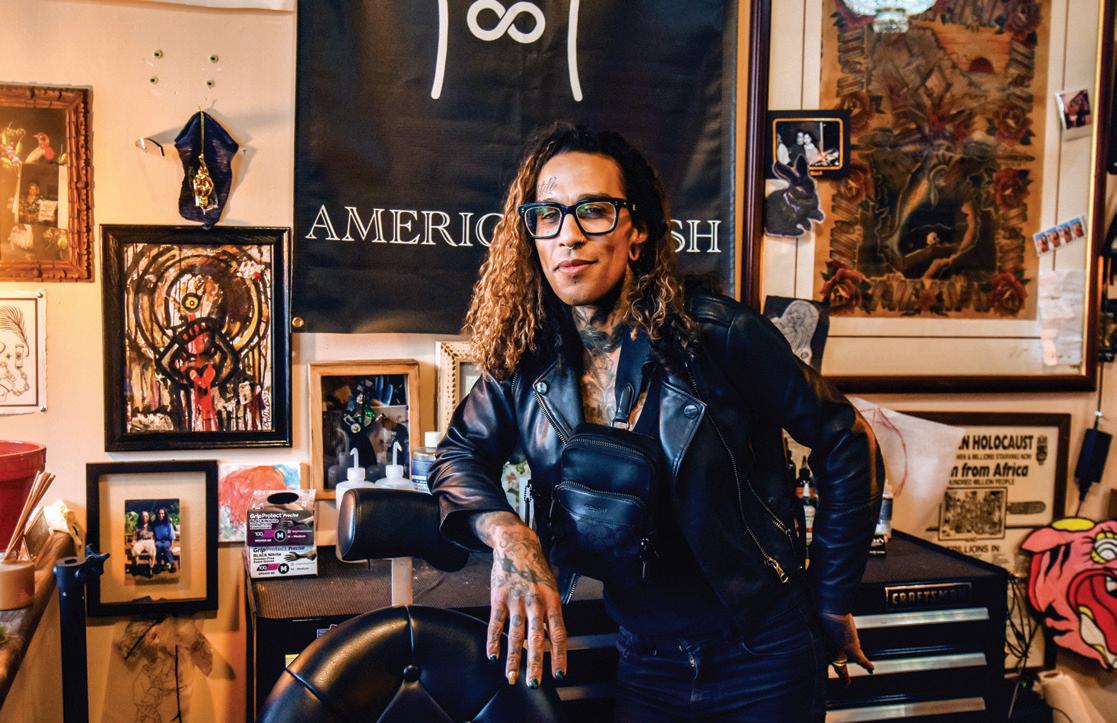
Phillips simply says, “I’m tired.”
On the front window reads the shop’s name
in golden Gothic font. Pride flags adorn the windows. Inside the studio are house plants, portfolio books, and a gumball machine filled with flash art as part of a “Get What You Get” tattoo service. Gold wall decor and sheets of traditional flash tattoos hang on the walls. The shop’s entire color scheme is red, black, and gold. Elaborate vases sit on countertops, as well as a tiny bowl of pretty stones at the front desk. The studio is professional and polished, but there’s a bite to it. It’s sharp, much like the needles of a tattoo gun, and much like Phillips herself.
She speaks with refreshingly raw honesty. I wish I had the courage to be as human as she is when meeting somebody for the first time. By the time I leave her presence she is already calling me her friend. She tells me that she doesn’t do interviews, despite receiving o ers at least once per week. I was the exception.
The phrase “wish me luck” is something

Phillips has told people since she was a teenager. According to her, close friends recognize her for her audacity to hope and go after the things that she wants to do most. As a child, Phillips’s father was abusive and discriminatory toward her for identifying as trans from a young age. Throughout her adolescence, she had no definitive place to call home.
“They would put me in a foster home, and there was no one like me. I grew up in a fucking desolate, piece-of-shit desert that’s like 70 to 80 miles southeast of Los Angeles, and there’s nothing there but fucking churches and people that commute 45 minutes to work every day,” Phillips says. “I ended up being in lockup facilities and stu , just trying to keep myself safe because I was running away, and because I was trans and that was a problem.”
She started tattooing in prison. In July 2006, Phillips was serving time in Folsom, California; Phillips recalls when, during her
sentence, a fellow inmate came to Phillips wanting to get “Ambrosia,” the name of their grandmother and their last remaining family member who had just died, tattooed above their eyebrow.
“He had such a kindness in his face, but this is a person that, like, was just not for play. And he sat there, felt his feelings and just silently cried,” Phillips says. “And in prison . . . that’s against the rules. But I got to hold space for this person that I cared about, and I got to mourn with him.”
After coming out of prison in 2010, Phillips knew two things: she wanted to keep tattooing, and she wanted to continue helping prisoners. As a self-proclaimed anarchist, Phillips says money is stupid. She believes that prisoners who are reentering their communities shouldn’t have to pay money to cover up o ensive or gang-related tattoos to enjoy life again.
“It’s the thing that I will always do until I can’t tattoo anymore. I will always help prisoners. I will always help sex workers that have been trafficked to cover branding. . . . It’s because the prisoner is me,” Phillips says. “When I talk about prisoners, I say we, as if I never came home. Because all of my friends, all of my real comrades, they’re never coming home. They’re in prison forever.”
Phillips is covered in tattoos herself. Although it is a colder day in Chicago when we talk and she wears jeans and a jacket, I can see the various pieces of black ink that adorn her body. Above her eyebrow is her own grandmother’s name, a tattoo directly inspired by that moment in prison many years ago. She has one on her chest I can’t see, the number she received as a victim of sex tra cking at 17 years old. Phillips never got it covered up—it serves as a reminder for her.
“To remember that you don’t know people like you think you do,” Phillips says.
She tells me that tattoos are a catalyst to tell the rest of the world how you’re more than just a uniform. Not only are they symbols of identity, but they serve as an act of healing and autonomy. “We always say that the best tattoos are the ones that look like we just wiped away some skin and it was supposed to be there the whole time,” she says. “As a trans person too, that hits deep.”
Although tattooing is something she loves to do, Phillips says that running Wish Me Luck Tattoo has been the hardest thing she’s ever done; it’s more di cult than serving time in solitary confinement.
“I have to get up every day and resist apathy. [I have] to continue to care and give and empty
Pride fl ags lined the windows of Wish Me Luck, which was a community space as much as it was a tattoo studio.
myself. For some people, they get it,” Phillips says, “but a lot of people, even in the community, I’m a stepping stone. And I’m much like what happened with Marsha P. [Johnson] or Sylvia Rivera. I’m used for the time that it provides.” With tears in her eyes, she tells me that people “don’t give a fuck about Black women.”
Phillips says she feels like people would come to her, treat her as a unique thing to show off to the world, and then put her back up on the shelf once they were done. People would use her as a name to add to their portfolio of people they’ve interviewed or stories they’ve written. For so long, Phillips has done everything in her power to fight for trans rights, only for her words and actions to ultimately fall on deaf ears. Now, Phillips is stepping away from her studio and the public eye for an indefinite amount of time.
Phillips has battled her way through trauma and persevered; “Life,” she says, “is hard as fuck.”
Since the shop’s opening, Phillips has offered it as a space for activism and gathering.
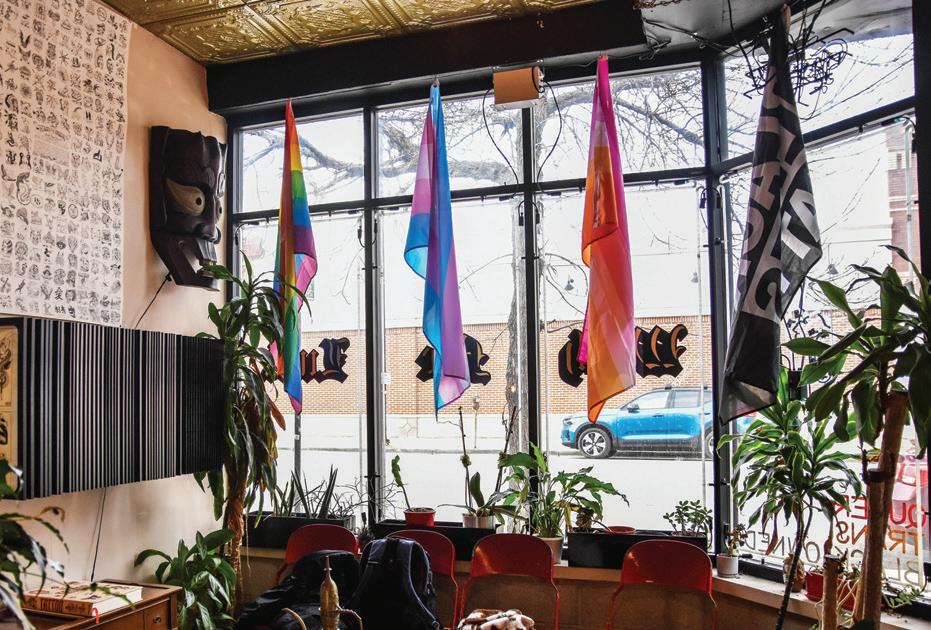
If friends had clothes they wanted to donate but weren’t sure what to do with them, she said they could leave the clothes at the shop and homeless people were welcome to take what they needed. For a while, Alcoholics
Anonymous meetings were held there. While serving time in prison, Phillips’s one dream was to open a space, ideally a tattoo studio, that could be a safe place in which she and her friends could exist without fear.
Although she has been an activist for years, Phillips praises both those who came before her and those who will come next. “This new generation, they’re wild as fuck, and I love it. And here’s the thing, it’s not just me . . . I’m on the shoulders of giants,” she says. “I’m just passing through. . . . If I’m going to die anyway, fuck it. The main thing that I want to communicate to everyone else is, ‘Do what I did.’”
Her entire life, Phillips has been audacious in her advocacy. As a result, she has received death threats and threats toward her, her partner, and their five-year-old son. In April 2022, Phillips was verbally threatened and harassed by a business owner in Logan Square just a mile away from Wish Me Luck Tattoo.
“I walk outside and I say goodbye to my partner and I fully expect that I’m not going to fucking make it home at night. I have no reason to hope that I will, because they fucking kill us,” she says. “I live in a city that has the highest rate of trans women being murdered in the whole country. . . . I open my emails in the morning and at least once a week some-

body tells me my days are numbered. . . . I’m still trying to hold it together, for you. And people just don’t show up the way that they really should.”
Regardless of the potential harm she may face, Phillips refuses to let it a ect the atmosphere of the shop, which has always been renowned for the peacefulness and solitude it provides for those who need it. Despite friends suggesting she install added security, Phillips refuses to do so.
“I grew up in the hood. I come from those places where even the buildings communicate to the people ‘you aren’t safe,’ and I won’t do that to our community,” she says. “I’m not afraid of them. I’m afraid of the state that gives [a] platform to people that pass laws that take away medicine or invalidate our humanity.”
Phillips mentions the common narrative that trans women have shorter-than-average life expectancies. At 40 years old, people tell her she’s the oldest trans woman they know. She’s tired of Chicago not doing anything when her fellow sisters are killed, and she’s unforgiving when people who previously never did anything to advocate for trans rights will apologize when something like that happens. The same people who never raise their voices for trans women are the
BIANCA KREUSEL
same people who will post about trans rights easily on social media, according to Phillips.
“You talk about how horrible it is . . . but you do nothing but talk about it and put it in print and beg the state to make reforms that have no fucking teeth and no way of protecting us . . . but instead when we get attacked, our friends apologize for their fucking cowardice . . . my patience is gone,” she says.
I’m speaking with Phillips near the anniversary of the death of Sylvia Rivera, a trans rights activist who was highly influential in the 1969 Stonewall riots. “It’s been 52 years since Stonewall,” Phillips tells me, as she starts to cry, “and the same things she talked about then have not changed.”

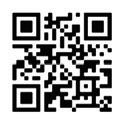
In order for there to be any real change, there needs to be less talking and more doing, according to Phillips. She and Rivera are preaching the same ideas, urging for advocacy when so many are simply talking and not actually taking action. “How many more have to die? How much more yelling do I have to do? How are you someone that’s like, ‘Oh my god, gay pride,’ and you sit here and you don’t do a
fucking thing?” she asks. “Every one of us that goes to jail has experienced sexual assault. Pride in what?”

Finally, Phillips is tired of fighting. “I’m angry and I’m bitter. I’m angry with my own community and their own inaction. . . . Are we done talking after 52 years?”
Her disappointment is not just within the realm of trans activism, but also in her world of tattooing. In the industry, and in the city of Chicago, many tattoo shops lack diversity, she says. Although there are many woman-owned shops, there aren’t enough people of color working in them; there aren’t enough Black tattoo artists or even Black clients featured in artist portfolios.
“They don’t have to care about what it means to learn how to tattoo everyone, but they can talk a good one . . . and I’ve gone to every shop that is well-known in the city,” she says. “No one does anything. But they get online, and they talk a good one.”
Phillips is an advocate for doing whatever is necessary to result in real change in our society. If that means using everything within your power to make your voice heard or to get

the attention of politicians, then she urges people to do it.
“Go do something, you know? Stop talking,” she says. “That’s the problem, everybody talks too fucking much. I talk too fucking much . . . Go burn something down. Don’t hurt nobody, you know what I mean? But prove your fucking point . . . They already think you’re a fucking terrorist. Be one.” She then shows me her favorite tattoo. In black gothic numbers on her calf, it reads “1831.” She asks me if I know what that year means, and I sheepishly tell her I don’t. It’s the year of the Nat Turner slave rebellion.
On May 6, Phillips made an announcement on social media that within the next month Wish Me Luck Tattoo would be closing its doors and she would be relocating to New York. A few months back, Phillips was sexually assaulted in her own shop, and since then, walking into work has only brought up traumatic memories. Although she’s thankful for the people she has met, such as the prisoners she has helped, she wants to go somewhere she and her family can be safe and happy.
As our time came to an end, I asked Phillips
how she wanted to end our interview. We talked for an extensive period of time, and it was my understanding that since she no longer does interviews and was kind enough to make an exception for me, this was a conversation Phillips needed. I think I needed it too. Chicago needs it most of all.
“You have one enemy,” she tells me. “Apathy. If you succumb to that, you’re already dead. Fight apathy like your life fucking depends on it.”
I realize that Phillips looks around her and she sees a community that, in her eyes, doesn’t care enough about whether trans women live or die. She sees apathy in the city of Chicago, and to her, that’s a city of the dead. Although her shop is closing its doors, the mark that Phillips and Wish Me Luck Tattoo left on Chicago will always remain. She will continue to serve as a beacon of light in a dead, dark world, just like her shop did. But if you choose the path of apathy, then it won’t be leading you to that light. And it certainly won’t lead you to Faith. v
In 1974, Chicago dancer and choreographer Joel Hall cofounded the Chicago City Theatre Company to amplify the creative talents and stories of some of the city’s most marginalized individuals. A Black, gay man and Cabrini-Green native, Hall’s mission was to carve out a safe space where dancers like himself could pursue concert dance.
Today, the performing arts organization is known as the Joel Hall Dancers & Center and comprises a professional dance company and a training facility. Nearly 50 years since its founding, it remains as committed to inclusivity, education, and cutting-edge artistry as ever.
Artistic director Jacqueline Sinclair has been a member of the Joel Hall Dancers for nearly 30 years. Looking back, she says the organization’s values were evident since her first class with Joel Hall at age 15.
“It was clear to me in that first class that this was leveling the ground for all of us. It didn’t matter what we looked like. It didn’t matter about our body size and shape,” she says. “First position was first position, and everybody was going to have some discipline up in there.”
Hall is widely known for developing the urban jazz dance technique, which was heavily influenced by a fusion of dance forms such as jazz, ballet, modern, and street dance. Much of his choreography has stemmed from his personal experiences or has touched on societal issues; his 1988 piece, Now You See It, Now You Don’t,’ for example, is about homelessness.
“His work is very much an exploration and a narrative not only about Chicago, but about his experience walking through Chicago as a Black gay man,” Sinclair says. “I think what audiences relate to with the professional company is this authenticity. There is this rawness and this vulnerability of telling a story through choreography that is so valuable.”
Joel Hall Dancers & Center’s tagline, “awaken the dancer in everyone’s soul,” rings true through their educational programs and community outreach work, which has included free community classes and events, as well as collaborations with LGBTQ+ community organization Center on Halsted.
Pending fundraising efforts, Joel Hall Dancers & Center plans to move from its longtime Edgewater location to a new permanent home in Albany Park within the next year. While construction is underway, they’re holding classes virtually and in alternative locations.
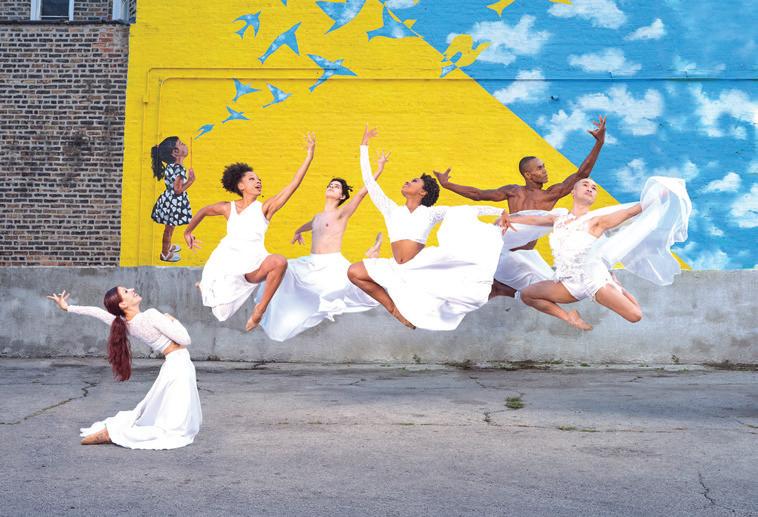
Sinclair hopes that the Joel Hall Dancers & Center will add to the vitality of their new community. “Artists come into a neighborhood and the energy starts to change. So there’s a value of artistry and beautification in neighborhoods,” she says. “We are economic development. We are medicine. We are healing. We are all of those things.”
Since 2019, Joel Hall Dancers & Center has been involved with the Chicago Black Dance Legacy Project, an initiative dedicated to making the city’s dance landscape more equitable by providing a select cohort of Black dance organizations with operational support, funding, and performance opportunities. Sinclair says that despite Joel Hall Dancers & Center’s long history and international esteem, they have not been immune to inequities, particularly when it comes to funding. With the CBDLP, the organization has been able to connect with other Black-led organizations that are experiencing similar challenges.
“I absolutely adore being a part of this project because it is help-
ing to break down those dance community silos,” Sinclair says.
CBDLP also facilitates joint performances among the companies in the cohort, which allows audiences across the city the opportunity to experience the diversity and breadth of Black dance.
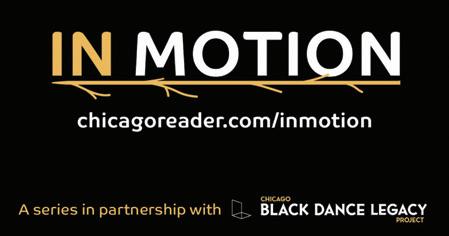
“Black dance is not monolithic and being Black is not one experience,” Sinclair says. “When people see [the companies perform] together, it shows the vastness in the variety and the beauty of the differentiation between each of the companies.”
As Sinclair looks toward the future of the organization, she hopes to combat the struggling artist stereotype by ensuring fair pay for company dancers and to collaborate with other Chicago-based arts and community organizations that are also dedicated to social change. Her ultimate goal, however, is to ensure the organization’s longevity while centering the values Joel Hall imparted to the company since day one.
“What’s important is addressing what our communities need for healing, growth, and expression,” she says. “How do we take this history and this legacy and this codified technique and continue telling these stories, but in a way that’s relevant today?”
The Chicago Black Dance Legacy Project is a program of the Logan Center for the Arts at the University of Chicago. Their current cohort of local dance companies includes Chicago Multi-Cultural Dance Center & Hiplet Ballerinas, Deeply Rooted Dance Theater, the Era Footwork Collective, Forward Momentum Chicago, Joel Hall Dancers & Center, M.A.D.D. Rhythms, Move Me Soul, Muntu Dance Theatre of Chicago, NAJWA Dance Corps, and Praize Productions Inc. For more about CBDLP, visit chicagoblackdancelegacy.org, and chicagoreader.com/special/ logan-center-for-the-arts-at-the-university-of-chicago.
Joel Hall Dancers & Center upli local artists and promote social change through urban jazz dancePhoto by Matt Karas
In recognition of World AIDS Day in 2009, the Illinois Lottery and the Illinois Department of Public Health (IDPH) launched a new Instant Ticket to raise funds for the Quality of Life grants, which are distributed to organizations across the state that work in HIV/AIDS prevention education, and treatment. Since its inaugural year, sales from the ticket, which dedicates 100 percent of net proceeds to the cause, have raised more than $8 million dollars to increase awareness of HIV/AIDS and access to testing, treatment, and other resources. In addition, IDPH collaborates with Quality of Life recipient organizations for staff training in areas such as HIV test counseling, HIV risk reduction interventions, and patient navigation. All of these efforts directly support the Getting to Zero Illinois Plan. The ambitious campaign launched by Governor J.B. Pritzker and IDPH in 2019 aims to end the AIDS epidemic in the state by 2030 by reducing the number of new transmissions and ensuring that every Illinois resident living with HIV or AIDS receives proper care. This year’s specialty ticket for HIV/AIDS prevention is called Twisted Treasure and was released on June 6. The ticket costs $3 and is available at more than 7,000 Illinois Lottery retailers statewide. With its fun treasure hunt design, the Twisted Treasure Instant Ticket makes a great gi for those 18 and up. Visit the Illinois Lottery website for more information about Twisted Treasure and other specialty tickets.
The AIDS epidemic is one of the largest public health crises in modern history. The illness, caused by the human immunodeficiency virus (HIV), targets the immune system, leaving the body vulnerable to life-threatening infections. According to the World Health Organization (WHO), more than 40 million people have died due to HIV-related complications since the epidemic emerged in the early 1980s. As of 2021, 38.4 million people lived with HIV worldwide, including approximately 48,000 people in Illinois.
Thanks to medical and technological breakthroughs, including antiretroviral therapies, HIV can now be managed as a chronic condition and o en halted from progressing into AIDS. Those at high risk of acquiring HIV may now significantly reduce their risk by taking pre-exposure prophylaxis (PrEP) treatments. Along with improved diagnostic testing, sexual health education, and uptake of risk-reducing behaviors (such as the use of condoms during sexual activity), the number of new transmissions has largely trended down over the past decade while the quality of life for people living with HIV and AIDS has improved.
Despite these advancements, stigmas and misinformation surrounding HIV and AIDS remain, and educating the public and providing testing, treatment, and other resources remain crucial. With the money raised from their HIV and AIDS prevention specialty ticket, the Illinois Lottery helps local organizations do that vital work and more.
Center on Halsted is one of Illinois’ Quality of Life grantees. With a main campus in Chicago’s North Halsted neighborhood and a second location, Center on Cottage Grove, in Woodlawn, the nonprofit organization focuses on the city’s LGBTQ+ community with comprehensive offerings in healthcare, recreation and cultural programming, family services, and more.
The Center’s HIV/AIDS & STD services include free rapid and confirmatory testing, PrEP navigation, community outreach, and education. They also staff the State of Illinois AIDS/HIV and STD Hotline (1-800-AID-AIDS, or
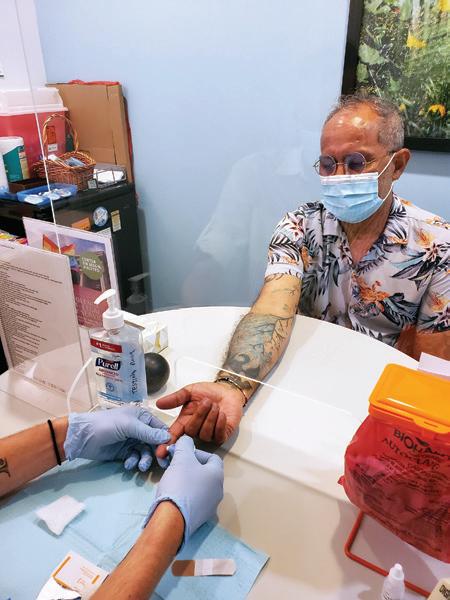
1-800-243-2437) and employ a care coordinator who can connect people living with HIV with organizations focused on housing opportunities, medical care, and other essential services through the Chicagoland HIV Resource Hub (a partnership with the AIDS Foundation of Chicago).
Director of HIV/STD testing and prevention services Erica Gafford says the Center’s Quality of Life grant has helped them reach segments of the community that are at the highest risk of acquiring HIV, which currently includes Black and Latine same-gender-loving men, and Black and Latine cis- and transgender women. Gafford says those seeking screening at the Center can generally expect to spend 40-45 at their appointment, which includes pre-and post-test counseling, as a rapid test that can take between 15 and 21 minutes to complete, depending on the technology. They take confidentiality seriously. “When you come in for your appointment, we give folks the name of a counselor so that they don’t have to say they’re there for testing if they don’t want to,” she says.
Prior to the COVID-19 pandemic, about 400 people per month sought testing through the Center on Halsted. These days, Gafford says the number is closer to 200, but she’s optimistic that demand will rise as people reacclimate to a post-COVID world. “I think for a lot of people
Support Chicago organizations working to end the HIV/AIDS epidemic with your purchase of the Illinois Lottery’s Twisted Treasure ticketThis sponsored content is paid for by Illinois Lottery
[the COVID-19 pandemic] was just overwhelming, and to think about other health things, was just too much. But I feel like people are starting to maybe swing back a little bit.”
Part of that upward swing can be attributed to improved messaging and communication. Gafford says that Illinois’ Get to Zero Plan has fueled momentum and collaboration among organizers, advocates, and community members, and in Chicago, it’s led the Department of Public Health to spearhead a weekly LGBTQ+ health discussion group where leaders can connect and share ideas. “[The CDPH] is really looking to folks with their boots on the ground to provide feedback on what messaging should look like, how we should do it, and who should do it,” she says. “They’re very cognizant that the messenger matters, and they want to empower community representatives to do the work, which I think is great progress.”
That sentiment is echoed by Ariq Cabbler, executive director of Alliance Care 360 (formerly Brothers Health Collective). Located in the Douglas community, the integrative center serves an ethnically and racially diverse population from across the city’s south side and south suburbs. Due to ongoing stigmas surrounding HIV/AIDS and diverse sexuality, Cabbler estimates that 85 percent
of people who come to the clinic avoid traditional public health institutions. That makes community organizations all the more essential.
He describes the Quality of Life grant as “a great stigma reduction tool,” noting that “The number one factor that prevents individuals from being screened for HIV is stigma.”
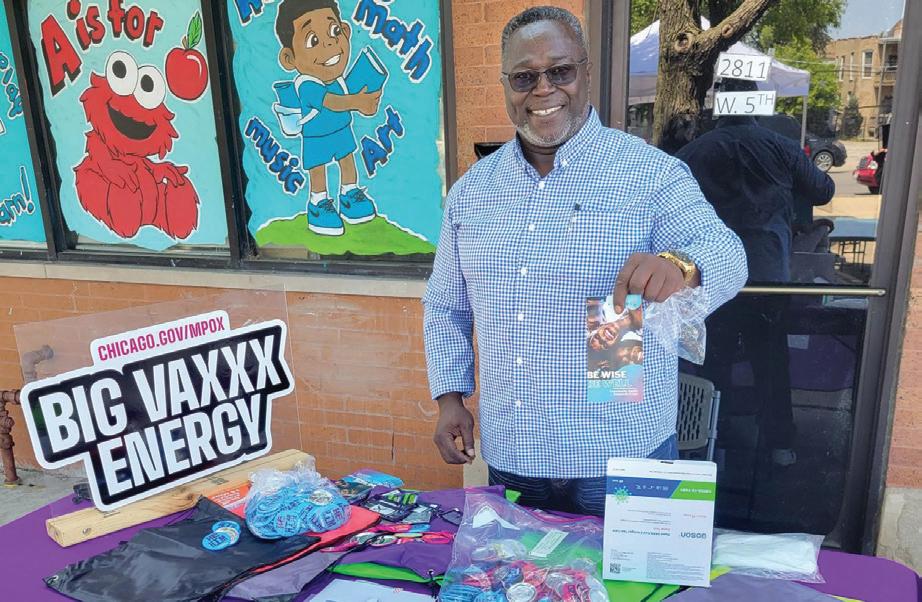
Alliance Care 360 primarily acts as a navigation center, offering wraparound services in medical adherence, housing, and substance misuse, in addition to their on-site and mobile screening services. In that way, they’re o en able to provide HIV testing to those individuals who might otherwise forgo it and connect those with abnormal test results to further support. “Offering wraparound services allows one to come in for STI (sexually transmitted infection) screening, which has less stigma [than HIV testing],” he says. “But that STI track allows us to lead individuals to HIV screening services. So a number of our HIV positive clients did not come in for HIV services—they came for STI screening, and because we have comprehensive, integrated service, we were able to identify those individuals.”
Cabbler says Alliance Care 360 is one of only five community-based organizations in Chicago that provide comprehensive, integrated services, which he believes is key to ending the HIV/AIDS epidemic. “People are living with so many other burdens of life, such as poverty, low literacy, and health disparities,” he says. “Individuals will tell you, ‘I can’t think about taking my medication if I don’t have a place to live—I’m living on the Red Line,’ so being able to connect individuals with other services outside of screening is crucial.”
Both Center on Halsted provide HIV/AIDS and STI screening services during Pride month and throughout the year, so reach out and make an appointment. In addition, Gafford says her team will participate in the Youth Price Space during Chicago Pride Fest from June 17-18. “We have some really cool things happening in the youth program with workshops and creative outlets,” she says. “And give us a call and come get tested.”
In the meantime, you can play a part in ending the HIV/ AIDS epidemic and support local health organizations with every purchase of this month’s Illinois Lottery specialty ticket, Twisted Treasure.

The Pilsen-based wine club invites wine lovers to discover what they enjoy, with a few surprises.
By CHASITY COOPERFor David Rodriguez and Victor Sanchez, exploring natural wine is a shared passion that they just so happened to turn into a side business. While working at a not-so-great job years ago, Sanchez and Rodriguez found that they had many things in common, and a friendship blossomed. Soon after, Sanchez introduced Rodriguez to natural wines, and in 2019, the duo came up with the idea of opening a brick-and-mortar to sell the wines that they had become so enthusiastic about. But that model posed significant challenges, so they decided to put that idea on the back burner and take a di erent approach to their passion project.
During summer 2020, Rodriguez and Sanchez recognized that there was a void in the beverage space—specifically when it came to natural wine. To the novice wine drinker,
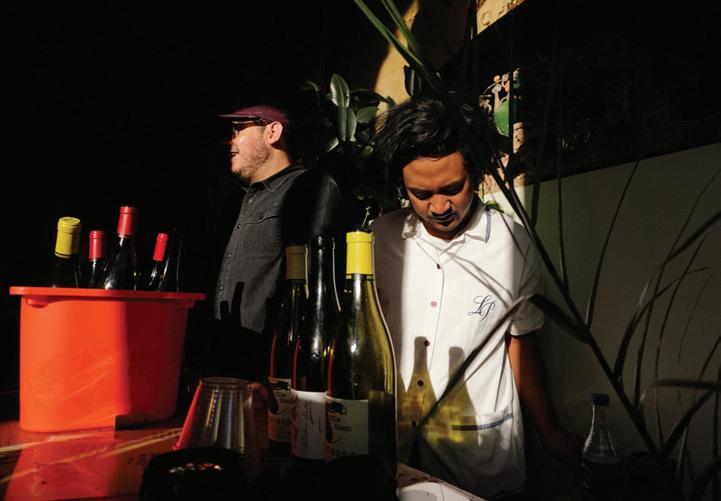
natural wine may seem like a brand-new phenomenon, but it’s actually a technique that has been around for centuries. Known as the wine “where nothing is taken out and nothing is added in,” natural wine puts a focus on the winemaking process—leaving nature to take its course and giving the grape varietals a chance to shine in their most natural states. Natural wines are typically low in alcohol, fruit forward, and colorful with a little haziness. In Chicago, there are a number of places where you can enjoy a glass of natural wine, from All Together Now in Ukrainian Village and Elske in West Loop, to Webster’s Wine Bar and Easy Does It in Logan Square—all of which made the Reader’s 2022 Best of Chicago list. While most foodies spent lockdown baking bread and making cocktails, the cofounders of Bummer Wines wanted to enjoy natural wine at home, which was a bit of a challenge.
“We realized that accessibility to natural wine was not available in communities like Pilsen, and getting it delivered was such a hassle,” Sanchez recalls. “And I guess that was like our catalyst for starting [the wine club].”
By creating a wine club for residents of the Pilsen neighborhood, Rodriguez and Sanchez knew they could make a bigger impact in the beverage space and positively contribute to the community. And so Bummer Wines was born.
The wine club offers members two selections—chosen by Rodriguez and Sanchez—for $60 a month plus tax. All of the wines are sourced from small, family-owned and minority-owned producers from places like Mexico, California, and parts of Latin America. If you live in Pilsen, you get free delivery, along with thoughtful tasting notes to accompany each of your bottles. The duo also hosts occasional pop-ups across the city where they pour different wines and sell merch.
“Ultimately, we really think of the club as wine you would recommend to your friends and family,” says Sanchez.
“The pop-ups are essentially parties that also serve as nice opportunities to uplift friends who are small business owners and entrepreneurs with cool stu going on,” Rodriguez adds.
With the wine club, Rodriguez and Sanchez want to achieve three things: accessibility, learning, and discovery. Wine has long been gatekept and perceived as a beverage for certain types of people, but companies like Bummer Wines are dismantling that notion one bottle at a time. By removing the barrier of intimidation, they hope for members to grow more comfortable with wine and foster a positive attitude toward it.
“We’re not sommeliers, just fans of this wine—and we want to get more of it,” Rodriguez states. “In starting Bummer Wines, it was a combination of curiosity and enjoyment, and no longer feeling the need to belong or be qualified to be in this industry.”
One thing that both Rodriguez and Sanchez do have in common with wine professionals is the desire to share very good wines with a community they care about. When it comes to curating wine, Rodriguez and Sanchez always pay close attention to the stories behind their selections. “The easiest part of our job is storytelling with these winemakers, and they all have incredible stories,” Sanchez says. “We
also want to spotlight wine regions that aren’t always at the top of mind when people think about wine, which is usually the most fun for us.”
As a longtime resident of Pilsen, Rodriguez has witnessed the impact of gentrification and how vigilant community members are about new businesses coming to the neighborhood. He knew that the wine club would be embraced but also held accountable for how it would contribute to the community overall.
R BUMMER WINES
Pilsen, monthly subscription $ 60 instagram.com/bummerwines bummerwines.com
“When we started the club,” Rodriguez says, “our footprint was the apartments that we lived in, but we did want to partake in a community that already existed—shout-out to Bougie Bert.”
Albert Plascencia (aka Lil Bougie Bert) is a fellow natural wine enthusiast. In recent years, he has started to emotionally connect with wines that give a glimpse of a future where he believes everyone could participate, from owning land to growing grapes or fruits not bound by Eurocentric tastes. He was also one of the first supporters of Bummer Wines by following them on Instagram, and Plascencia would invite Rodriguez and Sanchez to tastings that he would host in his front yard.
“I think natural wine resonates with people because it’s actually not about the wine—it creates a space where people can connect in a way that doesn’t force them to learn or taste wine in a way that is foreign to their lived experiences,” says Plascencia.
“And that is why I fuck with Bummer Wines so hard—because they create a space that allows us to experience wine in our community through the lens of David and Vic’s personalities and aesthetic values.”
As the summer approaches, the guys of Bummer Wines are looking forward to hosting another pop-up in July and rolling out wines for the club that match the vibe of summertime in Chicago. “Wines this time of year are generally lighter, more effervescent—ones that you would without a doubt share with family and friends.” v
@bychasitycooper


Between historical discrimination and the present-day state-sponsored violence against trans communities, it’s rare to encounter trans elders. Even for those who run in queer circles, knowing an out trans or nonbinary person in their elder years can feel astonishing, even revolutionary. And because of higher rates of violence against them, aging trans people of color—especially Black trans women—are even harder to find.
But beyond ignorance, cruelty, and hateful legislation, trans people can have futures. They can feel joy and find community and help others do the same, simply by continuing to exist. Trans people deserve to live long lives, to retire, to grow old as their authentic selves. And more than anything, trans youth need to see that doing so is possible.
The following five profiles feature trans and genderqueer elders in Chicago as they reflect on identity and joy this Pride Month.
—TARYN ALLEN, CULTURE EDITORI was lucky to have the opportunity to speak to Danie Flora Muriello, a member of The LGBTQ+ Intergenerational Dialogue Project. Though I have not known Danie long, she is an avid reader, a person of faith, and thoughtful advocate in the care and keeping of intergenerational memory within the LGBTQ+ community. Danie was kind enough to answer a few questions in honor of centering trans and queer joy—not just for the month of Pride but all year long.
Annette LePique: What are your pronouns?
Danie Flora Muriello: My pronouns are she/ her/hers.
How long have you lived in Chicago?
I have lived in Chicago for five years. Prior to that, I lived in the suburbs of Chicago.
How do you define community? Who are your communities?
Community is belonging, one of our most essential human needs. Without a sense of belonging, we are lost. My communities are primarily LGBTQ+ people.
How have the Chicago queer and trans communities changed during your life?

The most visible change in my experience has been the joining together of queer folks of di erent generations. As a member of the Intergenerational Dialogue Project since its inception in 2019, I have witnessed the transformative impact shared histories and daily experiences have on the lives of both elders and youngers. The lived experiences of elders are not dismissed but have value and matter. Many of the youngers have shared that they feel safe and cared for by elders, feelings
which are so often missing in their lives.
How do your identities as a person of faith and a trans woman intertwine?
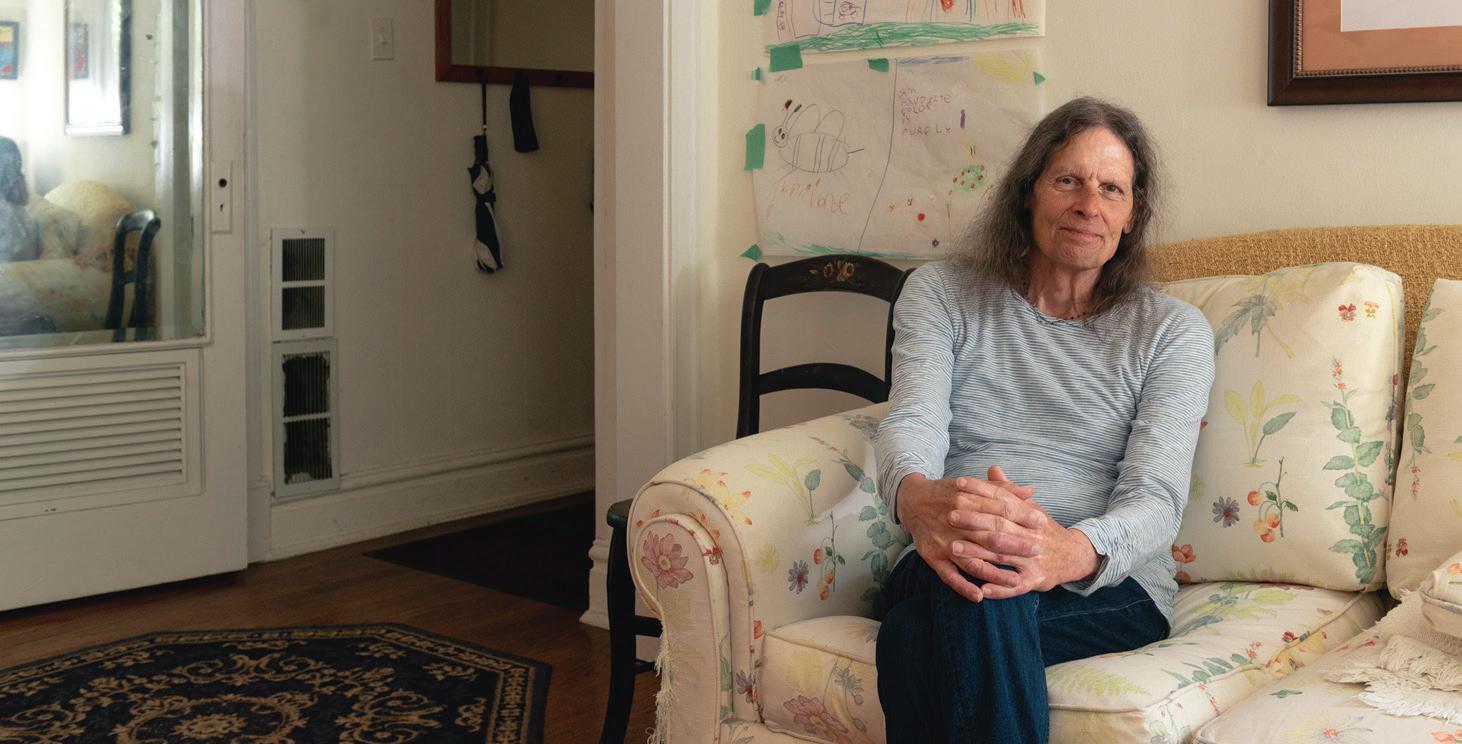
I’ll share a quick story. During a Sunday worship service in April 2017, I was affirmed and welcomed into my church family as a trans woman. This was a public declaration of both welcome and belonging. The truth, which I and my church family members understood, was that I was a perfect and fully formed child of our loving creator, and that God had claimed me as such. My sense of myself in all respects is rooted in this truth.
What does joy mean to you? What does it look like? What does it feel like?
The joy I find most compelling is the knowledge that I am beautiful just as I am. There is nothing which can contradict this knowledge. I would describe the feeling as powerful.
What does care mean to you?
Care is a rich concept. We’re called to hold both our individual need for care and respond to the care needed and expressed by others. Care requires recognition of ourselves and others. This connection opens us to others and gifts us the ability to welcome their care.
What do you wish someone told your younger self? What would you want to tell a young genderqueer person?
I wish someone told my younger self that she wasn’t alone or damaged. Although my younger self didn’t have that person, I cherish the opportunities to convey those truths to a younger person. I would also tell them to seek the support that is available in queer spaces, to not lose heart, and to stay. It’s work, it’s hard, but it’s worth it for sure.
Lonnie Kenebrew, 57, also goes by Lonnie Luv, a characterization as much as it is a nickname. “I lead with love,” he says. “That’s what has changed in me, to lead with love.”
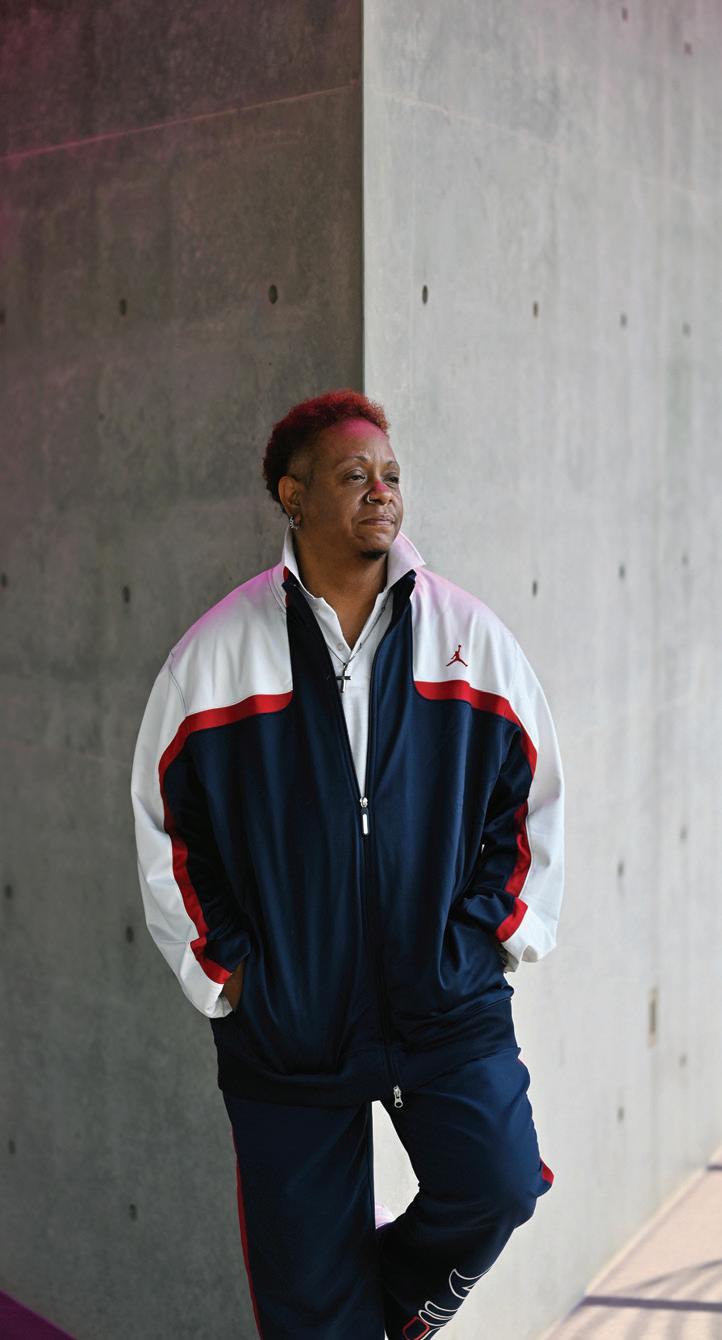
The change to which Kenebrew is referring coincides with another big one—he came out as a trans man several years ago. Before that he had come out at 16 as a lesbian; it wasn’t until he was watching one of Chicago’s very own—OWN herself—that he realized who he really was.

“I watched a story on Oprah Winfrey, Oprah: Where Are They Now?,” he says. “It was a trans woman . . . Oprah was doing a story on her, and I was watching the story, but I was also praying, and I was like, something just isn’t fitting, something is just not right. The older I got, the more masculine I was becoming, so when I saw that show—I was at home by myself . . . and then it came to me. I went into the bathroom and I looked at myself. I realized, that’s what it is. I’m transgender. I didn’t really understand that, and I didn’t have the language to talk about that.”
Kenebrew is far along in his transition, awaiting the second part of his bottom surgery. Still, “I’ve been involved with the community,” he says, “in the midst of my transition and everything.”
And quite actively so. He volunteers for A nity Community Services, completed a TransWork program, and serves as a mentor for Chicago House. He’s also on the south-side community advisory board for Howard Brown Health.
One of 12 children raised by his minister parents, Kenebrew feels as if his parents knew what was going on with him but weren’t capable of handling the situation. “They didn’t know what to do with me; they didn’t know what to say to me,” he says. “They didn’t know how to minister to me, if you want to call it that. So I was kind of left on my own.”
He recalls a memory that has now taken on a di erent meaning. “We just saw a video my brother did of my mother . . . and she said,
‘Lonnie is very intelligent, but Lonnie is a late bloomer.’ She didn’t realize how much she meant,” he says. “So I guess I’m blooming late, but I’m blooming!”
His transition has been an illuminating experience, resulting in a shift in how he sees himself. “As I heal up from bottom surgery and everything, I feel brand-new,” he says. “I feel like a brand-new person. I really do.”
“I feel sexy. I feel sexier than I ever felt. That dysphoria that I had? I don’t have that anymore.”
In addition to his volunteer work, Kenebrew also participates in the LGBTQ+ Intergenerational Dialogue Project, a combined e ort of the Center on Addison at Center on Halsted, the School of the Art Institute of Chicago, and the University of Illinois at Chicago. The project connects elderly members of the LGBTQ+ community with LGBTQ+ college students. In their biweekly encounters, the group shares a meal and engages in dialogue around various LGBTQ+ concerns. They make creative work around these meetups, too, exploring a multitude of perspectives through the arts.
“Working with those art students in the intergenerational project, and the love that they have for me, and the love that I have for them . . . it’s like God has blessed me with a whole new family . . . and I’m just looking forward to even more,” Kenebrew says.
He takes pride in the support he gives to others, even as that hasn’t fully been returned to him during his transition. “Sometimes strangers are more happy for you than people that are close to you, than people who know you,” he says. “It’s like when the tables turn and people have to be there for you, people don’t know how. You’ve been strong for them. You see the good with the bad, and you still have joy and peace in the midst of it all.”
All in all, “it was a joy to find out the truth, that I was transgender,” he says. “The joy is me discovering myself and discovering who I am today.” What’s love got to do with it? In this case, everything.
My girlfriends call me Allie. The community that I work with at the Youth Empowerment Performance Project [YEPP, a nonprofit supporting unhoused LGBTQ+ youth through artistic programming] also calls me Allie. My daughters call me Dad. My basketball buddies still call me Stevie Ray. Many of my colleagues at SAIC call me ANS, which I’m not liking as much anymore. My students know me as Allie n Steve, but many of them call me Ms. Allie.
As for pronouns, I’m all-inclusive. This might cast me at odds with some others in our community, but I don’t believe we can tell other people how to view us. I think we can
only give them signals as to how we would like to be viewed. I wear hair and makeup, but I also don’t try to hide the fact that I was born a boy, that I’m a father.
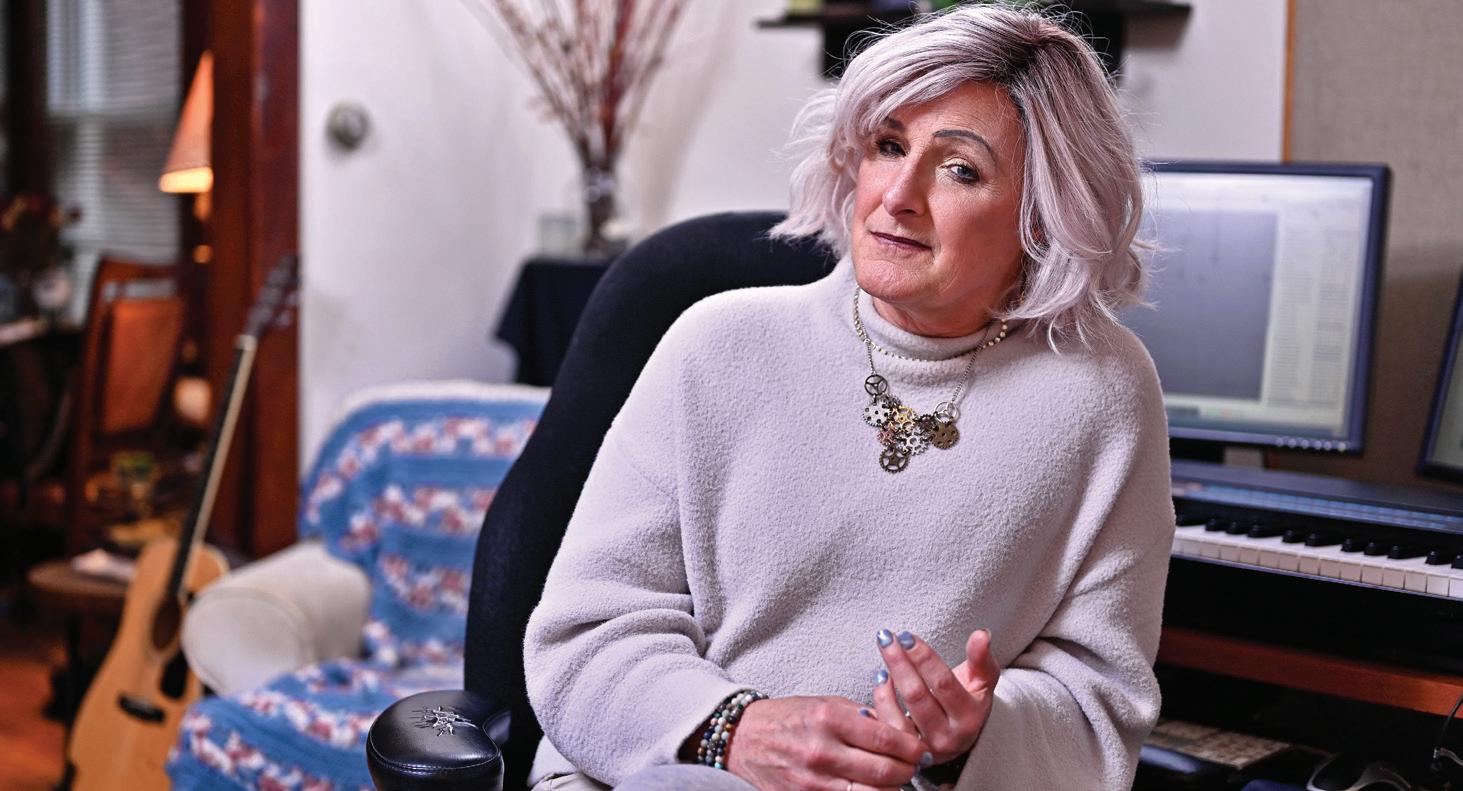
Early on in my transition, I had a neighbor whom I read as hypermasculine. One day, I came around the corner walking my dog, and he was out raking. I thought, OK, well, here goes nothing. He did that thing where he looked me up and down. Then, he put the rake down and said, “Steve, this is a good look for you.”
I tell that story a lot, because for me that says it all. He didn’t ask for my pronouns, or what to call me. He just saw me, this person he knows as Steve, and he acknowledged my way of being in the world. What people choose to call me tells me something about the way they want to relate to me. And I’m happy with that.
For me, it highlights the fact that every
single one of us—trans or not—lives in a constantly shifting state of contextual contingencies. A 45- to 50-year-old guy who’s gone to school for a long time puts on a black robe and sits behind a bench, and he’s suddenly a judge. In that context, he gets all this respect, but he may go home and not get the same kind of respect. I think trans identity shines a spotlight on the fact that we all are living in these constantly shifting states.

It’s still hard for me to leave the house without feeling like I need to have my eyeshadow and mascara exactly right. But I’ve noticed my trans students deliberately living their lives in such a way as if to say, “You need to understand it’s not about what I wear.” They are definitely wrestling with many things, but they’re not necessarily wrestling with whether they’re thinking about themselves “correctly.” I respect that
so much.
There’s a moment I talk about in Dear Steve . . . It’s Allie [Mullen’s evening-length “theatrical autobiography,” currently being workshopped], when I visited a church in Decatur, Illinois, where I grew up. And I couldn’t stop crying. I mean, I was surrounded by bornagain, middle-American patriots, the kind of Christian evangelicals I parted ways with over 40 years ago. But all I could feel was that these are my people. And I don’t even know what that means.
I can say that with a lot more definition and clarity about my community at YEPP, or my colleagues at SAIC—those are my people, too. But I firmly believe that, until we are able to look at people who have come to radically different conclusions about the world and know that we are each other’s people, we are sunk.
Jeffrey Rasmussen: So get this: last night I rode out west and back in a miniskirt, nylons, a top, and a bra I stuffed, and nobody fucked with me. I wore pajama pants under the skirt: striped purple, kinda girly. I got compliments on them too.
Katie Prout: What color nylons?
Black.
How did you feel?
Alright [smiles]. I got a couple stare looks, but nobody said nothin’.
Can you introduce yourself to me like I’m a stranger?
I’m 64 years old and my name is Je Rasmussen. I’m living homeless. I’m from Wisconsin, but I’ve been living in Chicago now for about 30 years. I didn’t really come out until after my girlfriend died. After that, people would ask me, but I would deny it. And now, I don’t care.
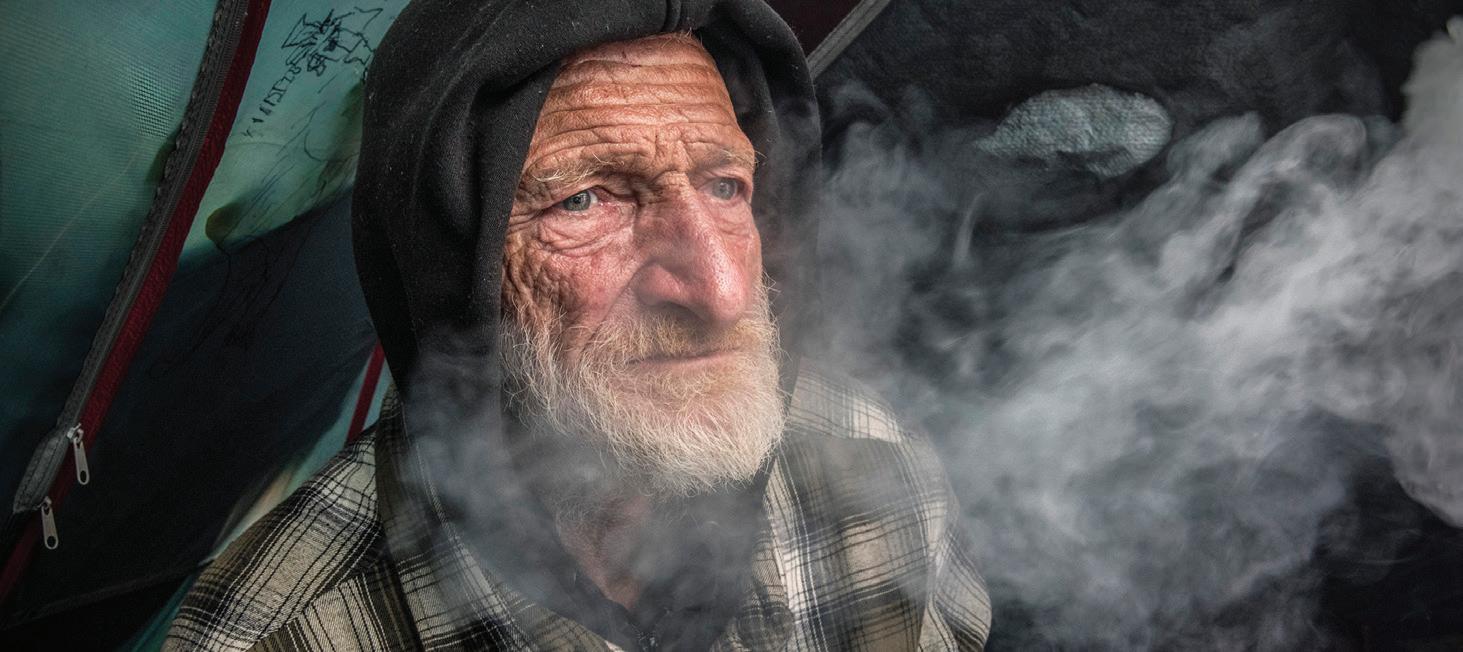
How did you come out? Was there a moment or conversation?
I just decided, “Hey, I’m not gonna hide anymore.” If anybody asks, “Hey, do you know a girl I can get with?” I tell them, “I don’t know, because I’m gay.”
How old were you when you came out?
Sixty-two. I think you were one of the first people I told.
I was? How come you decided to tell me?
I don’t know. [Pause] You were curious, and we were talking, and I didn’t want to hide it anymore.
Have you been messed with for being gay in the past?

Yeah, when I was younger. But now it’s more accepting.
Can you talk to me a little bit about your gender?
What about it?
Like, sometimes in the past, you’ve told me
you’re a male, and other times you’ve said you’d take hormones if you could.
Yeah, I’ve thought about that. [Smiles] I’m just me. I don’t care what anybody else thinks.
When do you feel happiest and most yourself?
[Long pause] I felt happy with my girl.
What’s it like to be gay and homeless in Chicago?
[Shrugs] It’s a day in the life.
What’s your favorite outfit to wear when you’re feeling good about yourself?
Skirt, nylons, a nice top.
When you dress more feminine, how do you keep yourself safe? I gave you my pepper spray before.
I’m pretty cool with everybody, but I keep to myself. You gotta be aware. Most people
will just stare at you and not mess with you, though.
One time, you told me that when you start dressing like a woman, or living like a woman, it makes you want to use less.
Yep.
Can you talk to me about that?
It’s just, when my mind is occupied doing that, I’m not thinking about using drugs.
Do you have advice for younger people who are gay and homeless?
Be aware of what’s around you. And I don’t just mean as far as your surroundings, I mean negative people. If somebody’s looking down at you, you don’t wanna be around that. That’s bad vibes.
What advice would you give your younger self?
I don’t know [long pause]. That they’re gay? [Chuckles] And use protection!
There are multihyphenates, and then there’s Stefanie Clark, Renaissance woman extraordinaire. The gregarious octogenarian is an activist, educator, storyteller, and fashion model in continual pursuit of knowledge, which she then puts back into the community. From helping to pass five bills in the past two years in support of LGBTQ+ issues to walking the runway in a custom-made wedding dress, Clark proves it’s never too late to be who you really are and to help other people do the same.
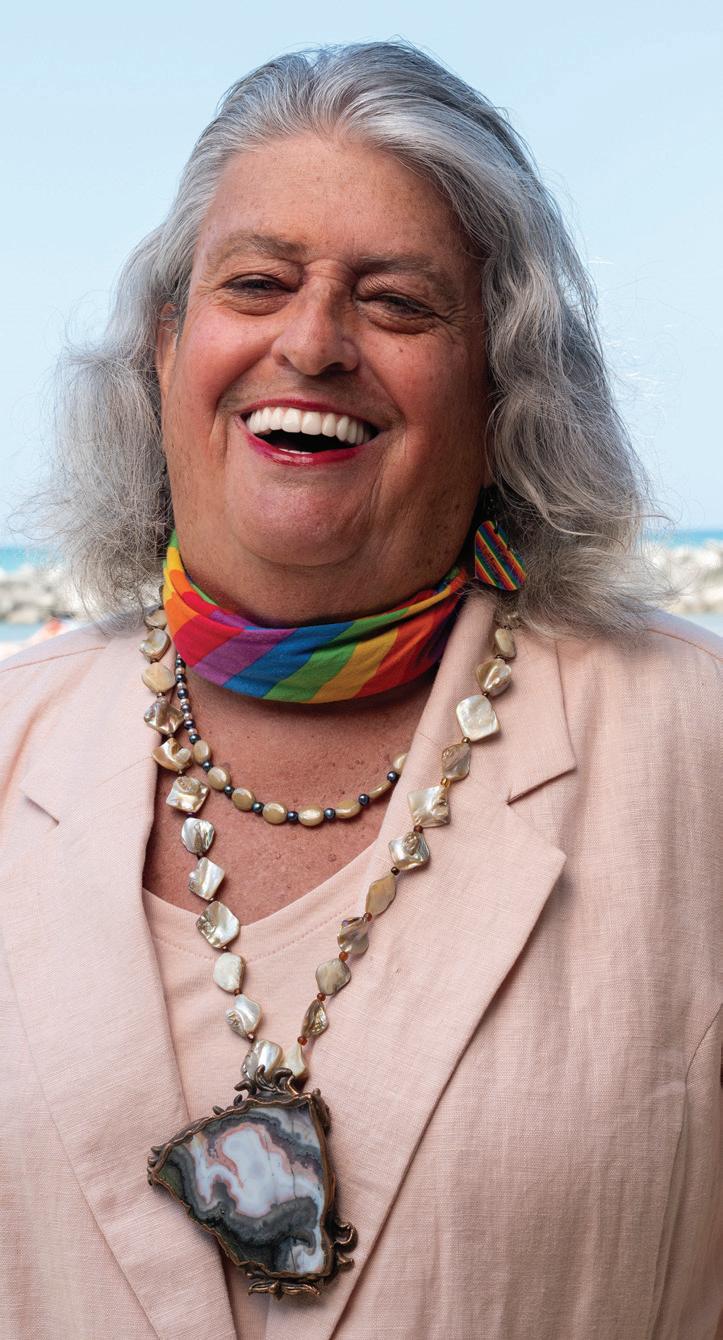
Iwas born May 22, 1943, making me a Gemini. There are two people inside my body: there’s Stephen, who was born the man, and there’s Stefanie . . . and Stephen was the predominant person and Stefanie was kind of the back person. With my new name and gender marker, Stefanie took the prominent place in our lives. So our pronouns are really we/our/us.
[My first shot] of [hormones] gave me that thrill of being a little girl. [Now I get the comment], Stefanie, you’re so beautiful. That’s not a term that I have accepted until this year. But I jokingly say, how did I do that? You put estrogen in a man’s body, and it’s the ultimate Botox.
I knew I was different from age three. So all these people down south who think that’s a bunch of bullshit, you’d be surprised how many of my friends have that same feeling. We didn’t know what it meant, but we knew we just weren’t boys. Mine kind of manifested itself [like] I’d rather play with dolls than trucks. That was probably the first clue.
When I was 12, my mother caught me in her underwear. That’s another good sign. She told me to stop, but I couldn’t—and I didn’t.
I presented as a straight man, went into the seminary thinking that might help—it didn’t. I discovered girls, and I came out, then I went to college, and I met my wife my senior year. We had three kids, four grandchildren. So I was a functioning male, more as a responsible husband than a loving husband, probably. We were married for 44 years. I was inherently a Republican businessman, and I lived that life for 68 years. [My wife] was dying of cancer. I slept in the hospital room for the last four weeks of her life. She died on a Friday, and I came out on Saturday.
Coming out is not a point of time—it’s a continuum. You’re always being outed. You get called by the wrong name or somebody has to introduce you to a relative who knows you as one and now you’re another. It’s kind of a wave of euphorias and dysphorias. And I came out—into what I thought was going to be the greatest thing in the world—into a void, because I had no help, no support, no nothing, and I didn’t even know the words. I want to help provide the services that most of our trans and nonbinary kids don’t have access to. There’s more now, but even seven years ago there wasn’t that much, so I went out of my way to get into those communities. My goal now is to make sure these ladies can live past age 40. I made it to 80, why can’t they follow me? I can be that beacon, that light. The light at the end of the tunnel doesn’t have to be a train. It can be God, welcoming you into her life and community.
I read a book by Walter Isaacson on da Vinci. Isaacson postulated that da Vinci was the original Renaissance man. So I concluded that if that was good enough for da Vinci, then I must be the original Renaissance woman. That meant a woman who’s constantly in search of knowledge, but taking that knowledge and playing it back for the betterment of mankind. That’s kind of my mantra now. So I will walk into a room trying to accumulate knowledge, and if I’m not learning, I execute my most favorite “verb”: next.
I’d been to a fashion show at Water Tower Place, and I met the creator of it. I’d never been to a live fashion show. So [then] I stood up in my bedroom . . . and I said, “I want to be the most visible 79-year-old transgender model in the midwest.” I called a friend and said, “Hey, can I walk the runway in your fall show?” Now I’ve worn wedding dresses, saris, stu in between.
To be recognized for somebody that’s having a positive influence for the transgender and nonbinary community is something I can take pride in. Now I can walk into any room, whether I’m wearing jeans, cutoffs, running pants, or a $7,000 garment, [and] know I’m pretty. Pretty is what pretty does. v

TRIBUTE

Community activist and longtime LGBTQ+ bar owner Marge Summit passed away in May at 87 years old.
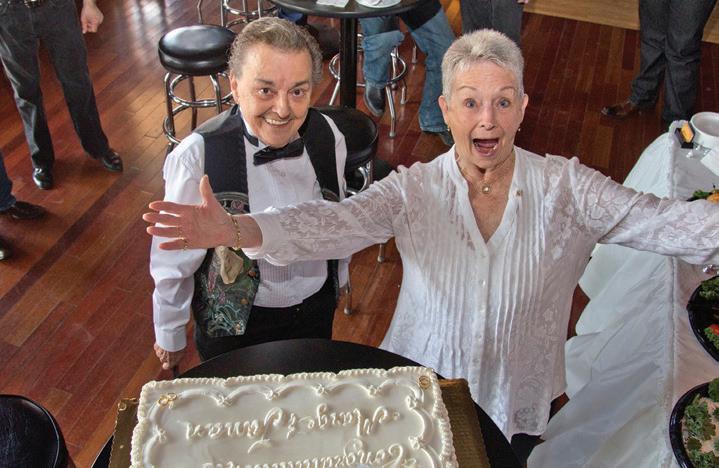
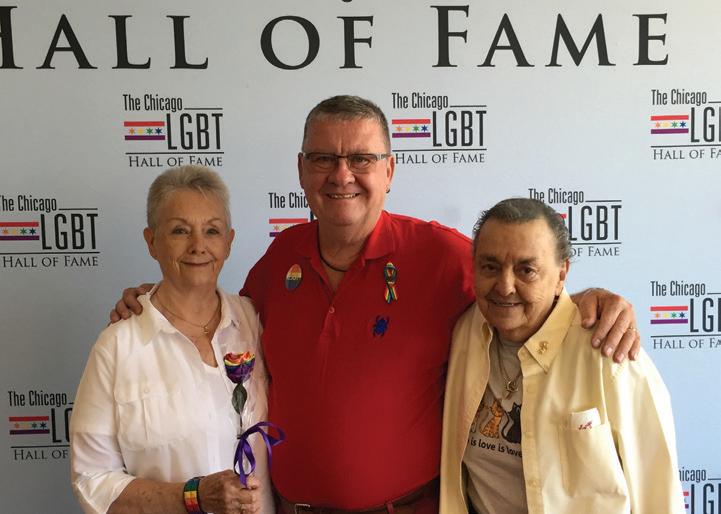 By OWEN KEEHNEN
By OWEN KEEHNEN
Marge Summit was in Facebook jail more than anyone I’ve known. She landed there mostly for her periodic comments on the different ways she would punish conservative politicians and animal abusers. It happened time and again—Marge didn’t care. She was never one to hold her tongue. She loved her community and she loved animals—and if you came for either one, the repercussions didn’t matter.
Marge was a butch lesbian, an activist, and a longtime bar owner. She helped to shape Chicago’s LGBTQ+ community into the force it is today. Marge passed away on May 16 due to complications from a stroke, with close friend David Boyer at her side. With her death at age 87, an icon was lost, but her legacy remains.
Born on September 3, 1935, in a Polish neighborhood on Chicago’s north side, Marge and her brother lived with their grandparents until she was 12. When their mother remarried, Marge and her brother moved to the south side. Marge knew she was di erent at an early age. She hated dresses and said when her brother wasn’t around she liked to put on his clothes and walk around like she was a big shot.
Marge was in high school when her stepfather died suddenly. Shortly after, her mother found out Marge was a lesbian. She told Marge she had to leave. Marge had just turned 16. She had started frequenting gay bars the year before. Her first was a women’s bar called Lill’s. Then she discovered bars in Calumet City—the Music Box and Mr. B’s, followed by Our Place in Hammond.
Years later, Marge was an invaluable firsthand resource for histories of LGBTQ+ life during the era. She recounted bar raids and the need for women to have a minimum of two articles of female clothing on their person to avoid arrest. She discussed the era in the documentary Before Stonewall and a WTTW TV special, Out and Proud in Chicago. Marge wanted to discuss those days to help ensure that they never had the chance to return.
During the 1960s, Marge was employed downtown by the phone company and hit the gay bars after work. In 1970, she began bartending, then managing, a drag bar called Togetherness on Hubbard that drew a mixed crowd of men and women. Two years later, Marge took over a gay disco at 661 N. Clark and turned it into a lesbian disco named MS—a nod to feminism as well as her initials. While running MS, Marge made what she said was her best decision, adopting her beloved daughter Tanya.
In 1975, Marge decided to open her own place on Lincoln Avenue south of Fullerton. When Marge took over, it was a sports bar. That changed. She renamed the place His n’ Hers because, as she often joked, “When I filed for the license they wouldn’t let me call it Clits ’n’ Dicks.” Business at the bar was turning around when the building was sold and Marge was given the boot.
His n’ Hers relocated to 944 W. Addison, beneath the el tracks. The bar was perfect, but the neighborhood was rough—the perfect segue to a Marge story. “A couple of times leather guys came in and they’d been beaten up. So I went to the gangbangers and said, ‘Those leather guys walking down the street are not a gang. They are nothing for you to be worried about. They are gay men and they are only wearing leather because crinoline wrinkles too easily. So don’t pick on them, because if you do, I have to call the police. Then you’ll go to jail and none of us are happy. And by the way, if you have any good dope to smoke, let me know and I’ll meet you in the back.’ That’s how I dealt with them. Don’t mess with me and I won’t call on you.”
Marge was fearless.
Sundays were open mike nights at His n’ Hers, providing a showcase for aspiring local talent. Old Town School of Folk Music praised the bar for having the best open mike in town. Pudgy and Judy Tenuta did stand-up there.
Vanessa Davis, Wacker Drive, and DianaStraight-as-an-Arrow played there as well.
The 1980 album Gay and Straight Together was published as a compilation of various acts seen at His n’ Hers.
The bar was also known for the menu—halfpound burgers, chili, and free brunch on Sundays. Providing food, drink, entertainment, and fun for gay people in a safe environment was how Marge showed her love, as well as her gratitude, to the community.
Marge held an annual Thanksgiving dinner for seniors at the bar, asking other gay busi-
ness owners for their assistance. She rented long tables and tablecloths. Wine, flowers, turkey, ham, and assorted side dishes were donated. Gay servers escorted the seniors to their seats and read them the menu. There was entertainment. Marge wanted the seniors to know they were appreciated, that they were family.
At the onset of AIDS, Marge was there. His n’ Hers switched from bottles to cans so the cash from recycling could be donated. The
bar held countless benefits, raising money for AIDS Care, Howard Brown, Chicago House, Open Hand Chicago, and more. Events included pudding wrestling, body painting, carnival games, and white elephant auctions. When a model failed to turn up for a leather fashion show fundraiser at the bar, Marge wore the chaps and leather bikini assigned to the missing model. She warned the crowd that if anyone made a crack about her outfit, she would ban them.
The events did more than raise money. They raised awareness, sparked volunteerism, and brought people together in tough times for some fun and entertainment. However, Marge’s most notable response to the AIDS crisis was in initiating the Gay $ campaign—a Marge story that I am glad to have written down verbatim.
“Frank Kellas and I liked to hang out at either his bar, the Gold Coast, or mine, smoke a doobie, and get drunk together. One time

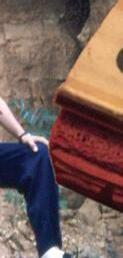



we were doing that and I said to him, ‘Frank, we have to do something.’ Evergreen Grocery Store [formerly at Broadway and Belmont] wrote this bad article telling their customers that if gay men sneeze on them or cough on them or touch them, that they’ll get AIDS. That was in their flier.

“So we met at the store the next morning, which was a Saturday. I called Kit Du y [then-Mayor Harold Washington’s liaison to the lesbian and gay community] and told her what we were doing. She said, ‘I’ll be right there.’ Frank and I each took a cart and put nonperishable items into four heaping carts. We piled on more and more groceries and blocked aisles to talk about recipes, all sorts of shit. Then when we were finished filling the carts we just left them blocking the aisles and walked outside. As we left the store, Kit Du y went in and said to the manager, ‘They will be here every Saturday until you print a retraction in your paper and make a sizable donation to an AIDS organization.’ He said, ‘How much?’ We decided $500 was good.
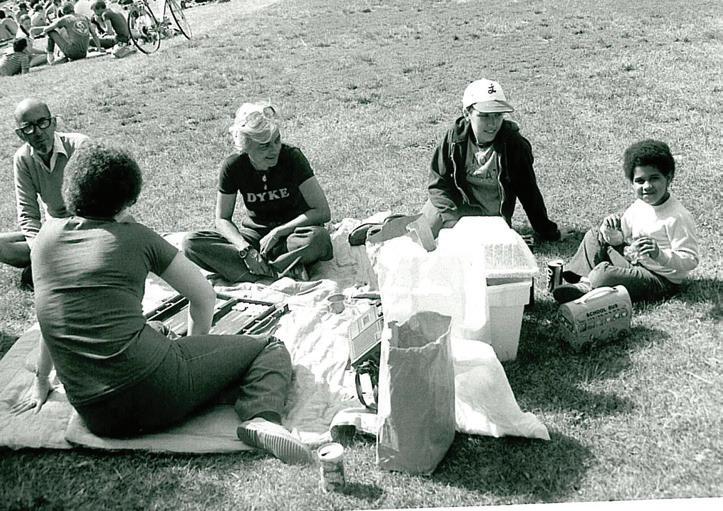
“At breakfast afterwards, we had an idea. I went to my stamp guy and asked him to make me a stamp that said ‘Gay $’ and a pad of red ink. I asked how much it would cost and he said two dollars. The stamps were two dollars a piece. I had him make 100 of them. I got letters from all over the area from people who wanted that stamp to show the power of gay dollars. All I asked for was the price of the stamp, so two bucks. I showed them what to do. They needed to stamp the currency on the front, on the left hand side, in red.


“Then, the Secret Service caught wind of this and visited Frank at the Gold Coast. When they left his place, Frank called me and said they were coming my way. I swear to God, when they came into the bar they were in trench coats. They said, ‘Marge Summit?’ and flashed their badges. I made fun of them. I admired their badges and asked where I could get one like that. You can’t let them know they got you.
“I was scared, but they weren’t going to know that. They said, ‘You’re not taking this seriously,’ and I said, ‘You’re right, I’m not.’ Then they left. We got reporters interested in the campaign and when we went downtown to meet with them, they said, ‘What are you going to do if they arrest you?’ I pulled out a Monopoly ‘Get Out of Jail Free’ card and said, ‘Oh, I’ve got that covered.’”
Seventeen million dollars were stamped in the Chicago area, which sent a strong message about the financial repercussions that might










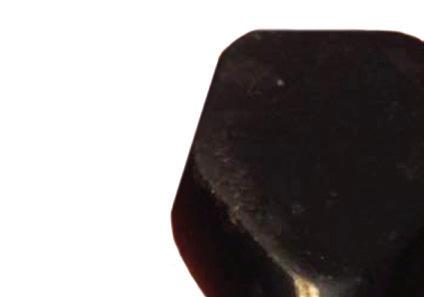
impact businesses should they choose to make reckless claims about the gay community in the future. The Gay $ campaign was brilliant and e ective activism.
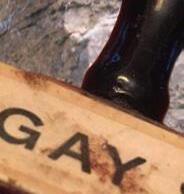

Eventually CTA expansion spelled doom for the Addison location of His n’ Hers, but Marge wasn’t leaving without a fight. She lost almost everything in the ensuing legal battle. In 1987, His n’ Hers was forced to relocate to 5820 N. Broadway and finally closed for good in 1993.
Marge was busy in retirement, and she was in her mid-70s when she met Janan, the love of her life. They connected on Facebook in 2012 after Janan commented on the post of a mutual friend. Marge had just finished treatment for her first bout with cancer and sent Janan a message. They talked and decided to meet. Before getting together, Marge wanted to be honest about her cancer treatment. “I’m clean, but I’m bald,” she said. Janan said it was no problem, adding that half her friends were bald too.
When Marge first saw Janan, she thought, “Oh fuck, she’s gorgeous.” She was worried that Janan might be out of her league. The two ended up going for a walk. A week later, Janan was in the neighborhood and Marge invited her to drop by. As Marge explained, “We talked for a little bit, and ended up in bed. She never left.”
They married two years later, on May 18, 2014, at the gay bar the Call. The wedding took place during one of her longtime pal David Boyer’s Chicago Original Country Dance parties. One of Marge and Janan’s great joys was dancing. The nuptials were o ciated by gay activist and friend, Gary Chichester.
Marge and Janan had eight years together, knowing great happiness amidst their recurring health issues and struggles. A deep love existed between the two women. Marge never recovered from the grief of losing Janan to cancer at age 82 last July. In the remaining months of her life, Marge only wanted to be reunited with her beloved. Marge died two days shy of what would have been their anniversary. Together again.
Happy Pride Month, Marge. Thank you for your stories, your fire, your example, and above all for your love of community. We have the opportunity to celebrate Pride because of the struggles and sacrifices of those who came before us, and few LGBTQ+ pioneers in this city cut a wider path for the community than Marge Summit. v
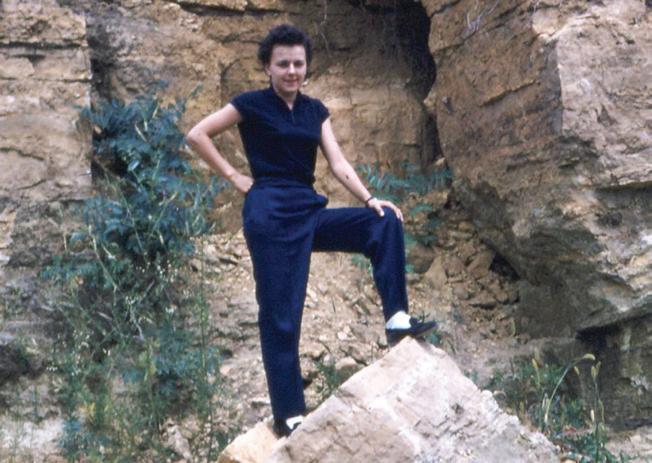
we were doing that and I said to him, ‘Frank, atSummit in her younger years; inset: “Gay $” stamp from the 1980s campaign COURTESY WINDY CITY TIMES At a Pride picnic circa 1979, Summit wears a T-shirt that reads “dyke.” Daughter Tanya is at right. FROM THE ARCHIVES OF GAYLIFE COURTESY TRACY BAIM
As the American Library Association conference comes to town, Illinois takes an anti-ban stand.
By DEANNA ISAACSIn July 2020, Amy Dodson posted a diversity statement on the Facebook page for the public library system in Douglas County, Nevada, of which she was director.
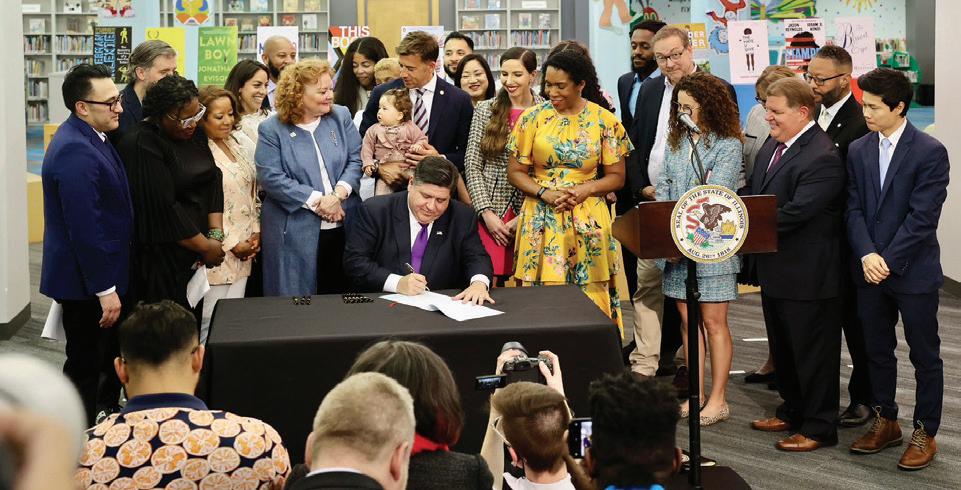
Like many other statements posted in the wake of George Floyd’s murder, it denounced “all acts of violence, racism, and disregard for human rights,” and also said, “We support #BlackLivesMatter.”
That drew a response from Douglas County Sheriff Dan Coverley, who posted his own statement on the sheriff’s website: “Due to your support of Black Lives Matter and the obvious lack of support or trust with the Douglas County Sheri ’s O ce, please do not feel the need to call 911 for help.” He wished her “good luck with disturbances and lewd behavior.”
A community uproar followed. “It picked up a lot of steam on social media,” Dodson told me last week. “The people were very ramped up and angry. It kind of exploded.”
Who were the people angry with?
“They were angry with me.
“People were saying, ‘Defund the library,’
and, ‘She needs to be fired,’” Dodson recalled. “I got death threats, threats to be run out of town, threats of bodily harm to me and my family. It got really ugly really fast.
“And then the library board decided to launch an investigation.”
To her surprise, Dodson said, “They were investigating me. It felt like they were either trying to scare me or get me to leave.”
After she was exonerated by the board investigation, the county launched its own inquiry. “I was exonerated the second time too. It was very clear to the people who did the investigations that I had done absolutely nothing wrong, and that I was doing exactly what public libraries should do.”
But it might not have turned out that way. Dodson credits the favorable outcome to a call from Chicago. “Almost immediately after it happened, I was contacted by Deborah Caldwell- Stone, from the ALA [American Library Association] Office for Intellectual Freedom. She called to tell me about resources available to me, the LeRoy C. Merritt Humani-
tarian Fund being the most significant.
“I was about to be investigated and thought I would probably be fired. I knew I needed legal representation, but didn’t know how I would pay for it. Money from the Merritt fund enabled me to hire an attorney—Maggie McLetchie, out of Las Vegas—and that made all the di erence in the world. She was with me every step of the way, from questions from the public, to the investigation, to dealing with the protest that followed.”
Protest?
“About a week or so after the statement was published, there was a protest in the county seat. It was supposed to be a protest by the local Black Lives Matter faction. It wound up being about 20 people from Black Lives Matter and hundreds of counterprotesters who were armed and angry. They literally ran the Black Lives Matter supporters out of town.”
Caldwell-Stone, an attorney who’s been with the ALA for more than 20 years, is director of the O ce for Intellectual Freedom and executive secretary of the Merritt fund, which
exists to provide financial assistance to librarians who’ve had problems at work because of discrimination or because they’ve stood up for the freedom to read.
Contrary to the stereotype, our “mildmannered” local librarians are the frontline defenders of our freedom of speech, CaldwellStone says. And they’re facing a major uptick in challenges right now—almost a fourfold increase in calls for censorship of books over the last two years.
“About 350 reports of demands to censor books in school and community libraries was the annual average for over 30 years,” Caldwell-Stone says. “Then, in the fall of 2021 we suddenly started getting four, five, six reports in one day—a flood of demands. And we started seeing videos online of groups like Moms for Liberty appearing at board meetings, demanding censorship of books they said were pornographic. Books like Toni Morrison’s [Pulitzer Prize winner] Beloved , which were being read by high school students for English class—not by five-year-olds.
“In pre-COVID 2019 we received 355 reports of demands to censor,” Caldwell-Stone says. “In 2022 we received 1,269, targeting over 2,500 titles.”
The increase in titles was startling—unlike anything they’d seen before. “These were not parents demanding removal of a single book their child was reading,” Caldwell-Stone notes. “Ninety percent of the 2022 reports were challenges to more than one title, and 40 percent were challenging more than 100 di erent books at once.
“We didn’t understand it at first, but it became clear that a number of groups were conducting an organized political advocacy campaign.
“In the Chicago area, suburban library and school districts like Downers Grove and Lincolnwood have experienced attacks for hosting programs for LGBTQ+ teens or drag queen story hours or simply for having books on the shelf that reflect the diversity of our community,” Caldwell-Stone says. “A very vocal minority is opposed to having any books available to young people that reflect the fact that there is diversity of gender identity or sexual orientation or that challenge accepted stories about racism and slavery in the United States. They want books on the shelf to reflect their particular moral, religious, or political beliefs. This is the situation that inspired Illinois secretary of state Alexi Giannoulias to advocate for a bill to fight book banning in the state of Illinois.”

On Monday at the Harold Washington Library, Governor J.B. Pritzker signed that bill (HB2789) into law. It requires libraries seeking state-funded grants to sign the ALA’s seven-point Library Bill of Rights (guaranteeing access and privacy to users and forbidding removal of books because of partisan or doctrinal disapproval) or a similar statement. At the signing, Giannoulias said that while other states will prosecute those who stand up to censorship, Illinois knows that “librarians are heroes.”
As many as 15,000 of these heroes will be in town next week, as the ALA’s 2023 Annual Conference and Exhibition (June 22-27) gets underway at McCormick Place. The public



can purchase tickets for admission to the conference “marketplace” only, with nearly 600 exhibits, eight stages, and signing opportunities with authors (a three-day pass is $100 in advance; $125 after 6/16). Both Caldwell-Stone and Dodson—who left Nevada for northern Illinois, where she now heads the Fox River Valley Public Library—will be there, and the Intellectual Freedom O ce will have a booth with information about its Freedom to Read Foundation, the Merritt fund, and the grassroots campaign coming together at uniteagainstbookbans.org.




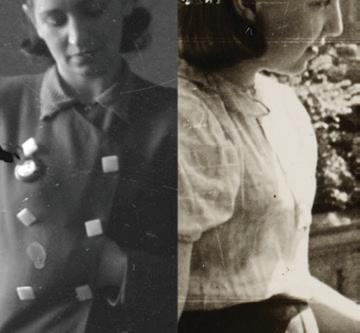
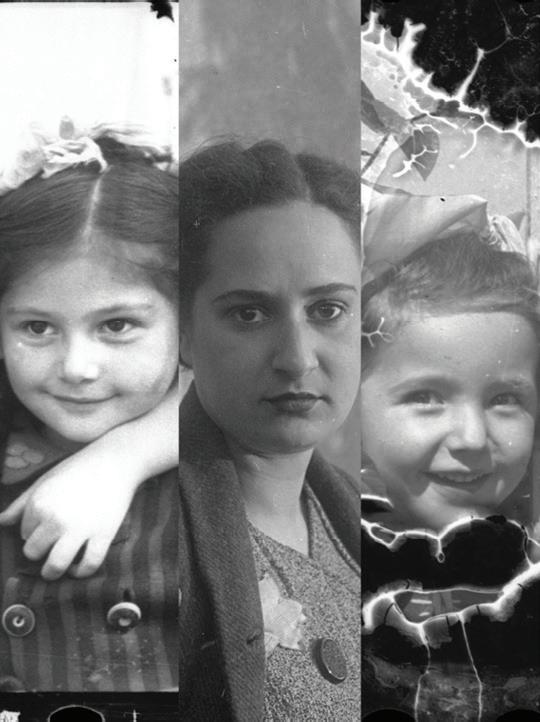


 @DeannaIsaacs
@DeannaIsaacs



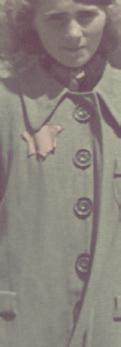
Ithink about acceptance a lot.
When I was a young twentysomething, I heard a lot about “acceptance” versus “tolerance.” That it wasn’t enough to merely put up with queer people. We were striving for something more, something solid. But these days even tolerance feels like a high bar to meet.
I have been writing about LGBTQ+ issues for a number of years, and to be frank, I am terrified. The breakneck pace with which the
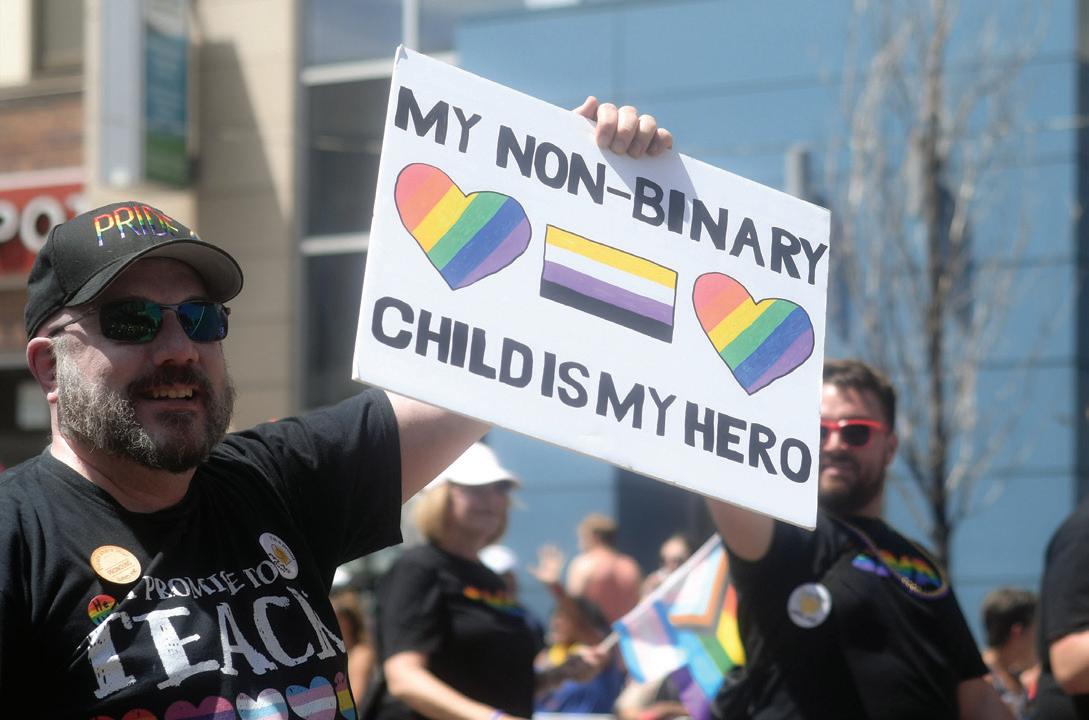
needle of acceptable queerness has moved backward is something that keeps me up at night.
I remember it started with school bathrooms, and then recently it pivoted to puberty blockers for trans youth and school sports, then drag shows, then gender-a rming care for adults. Then then then. “What will be next?” is the scariest question I ponder these days.
As a lot of scholars and writers smarter than
I am have pointed out, these e orts are simply an attempt to legislate trans and queer people out of public life. But watching the needle move so quickly has cemented an important lesson.
To a lot of people in this country, there will never be an “acceptable” queer person. No amount of passing, adhering to gender roles, or proximity to heteronormativity will be enough. To quote the White Queen herself, the Marvel character Emma Frost (because I am
as much a nerd as I am an incandescent queer), “They will always hate us.”

It’s a tough lesson that marginalized people of all identities must learn: at the end of the day, appeals to acceptability and equality can and will come up short. Sometimes our humanity will never be enough for them. They will always hate us.
And that’s a scary conclusion to come to, that for some members of our own communities, the only option for them is for people like us not to exist. But I think it’s also quite freeing—at least I’ve tried to think of it that way.
If there’s nothing bigots will accept, then why not throw everything at them? If a watered-down version of myself isn’t going to work, why not give them the whole package? Why shrink and minimize myself—ourselves for them if there is nothing they will take, no matter how small? Even when our LGBTQ+ leaders earn markers of legitimacy, like being elected to public o ce, they still face a torrent of abuse.
If they won’t accept any of the sacrifices we make to appease them, then why sacrifice at all?
But that’s easier said than done, especially these days. And I’ve put this in practice slowly but surely, and with lots of trepidation. Some of my dresses, skirts, and makeup sit untouched by the sun, only worn behind my closed front door. Getting dressed in the morning can come with a longer pep talk than usual, a few deep breaths, and a pregnant pause in the doorway.
But then I take another breath, remember that I exist for myself and no one else, and then step into the light. v
Adam M. Rhodes is a first-generation Cuban American journalist whose work primarily focuses on queer people and the criminal legal system. Their recent work has examined HIV treatment access in Puerto Rico, HIV criminalization in Illinois, and a homophobic capital murder trial in the same state. Rhodes is a training director at Investigative Reporters & Editors, and they have been published in outlets including BuzzFeed News and the Washington Post. Rhodes is a former Reader sta writer. @byadamrhodes
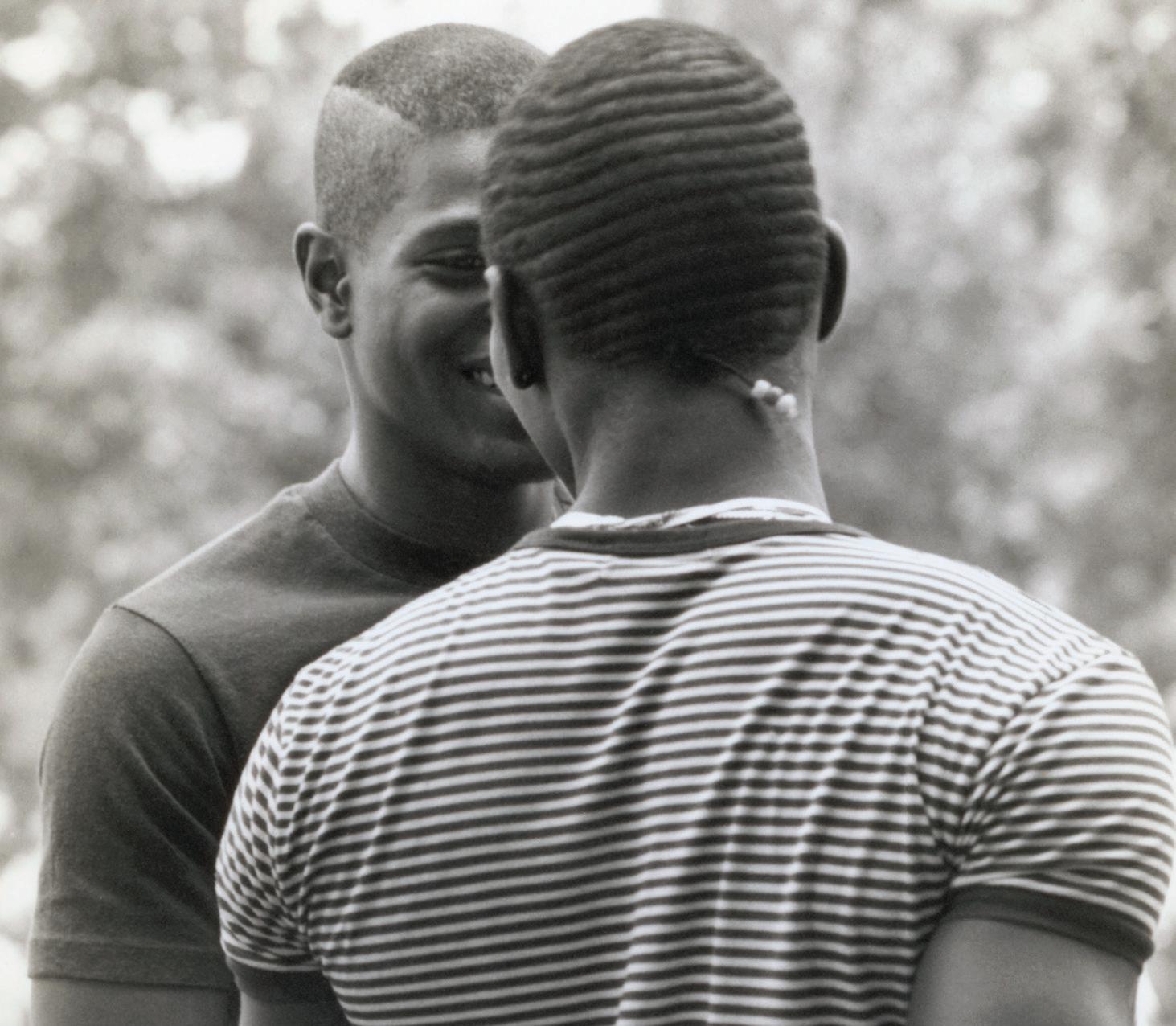



The irreverent author returns with new essay collection, Quietly Hostile.
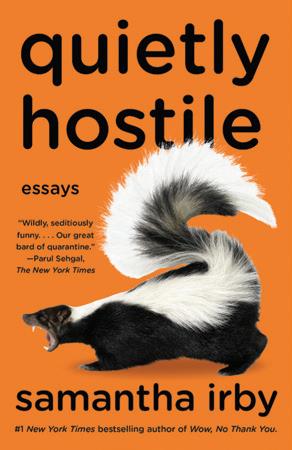 BY ERIN TOALE
BY ERIN TOALE
Samantha Irby, the midwest’s most lovable misanthrope, triumphantly returns with her fourth collection of personal essays, Quietly Hostile. Spoiler alert: just like the other three, it is both reliably and painfully funny. The prolific author has churned out four hilarious books in ten years in addition to amassing a growing number of television writing credits and maintaining a Judge Mathis synopsis newsletter with a cult following (the Honorable Greg’s team recently confirmed that he reads them—this is major news for the culture). Not a bad yield for a self-described “loser with a blog.”
Some creators make quippy memes about the mortifying ordeal of being known; Irby has made it her life’s work to write books about the subject. Some alternate titles for this volume (and there were many contenders): “Everything is so embarrassing all of the time,” “Being perceived is excruciating,” “Maybe they should go back to not letting us be outside,” and “Not exactly that kind of lesbian.” Irby has the remarkable ability to make the utterly banal, and even the tragic, uproariously entertaining. The secret to her seemingly limitless supply of humor, revealed during her recent book release tour, is finding the absurdity in any situation. The example she used to illustrate this was a nauseatingly comedic anecdote about her mother’s funeral. Everyone in the audience laughed! We are all monsters!
Quietly Hostile includes casual pop-culture allusions (e.g. “we live in a society” followed by 14 of Irby’s signature exclamation points) as well as a running tabulation of what is and is not her ministry (the latter includes radish-

es and waking up early). Her prose is seasoned with sharp and often unexpected self-deprecation, and she remains one of the most deeply relatable voices in contemporary nonfiction. In honor of our list-loving queen, read this book if the following apply to you:
• You enjoy celebrating your birthday by eating a dip and cheesecake bu et in recognition of your “many years cheating death on this rotten planet.” (Irby is an Aquarius; someone drop the full birth chart, I need it!)
• You cannot sit down after work if you have evening plans lest you “clinically die until noon the next day.” (She writes: “If I’m gonna go out, I need to have a bra and shoes on by 6:55 at the very latest.” Who among us does not feel this in their aging bones?)
• You love Glennon Doyle, Yellowstone, Gone Girl, and other things deemed “guilty pleasures” or “uncool” by the machinations of our joy-killing society.
• You concur that Red Lobster is fancy and good.
• You enjoy Chicago Reader shout-outs in literature (p. 149 posits that in another dimension Carrie Bradshaw was the sex and dating columnist in this very publication!)
• You identify with the term “midwest fancy” (category includes: a bathroom stocked with Aesop, Aveda, and Kiehl’s, a nice mall with good air-conditioning, a chain restaurant with a valet stand, or the Flying J Travel Center in Lake Station, Indiana.)
I hit two stops on the irreverent Irby’s always raucous and unfortunately curtailed book tour (her wife required surgery). The first was presented by Symphony Space in
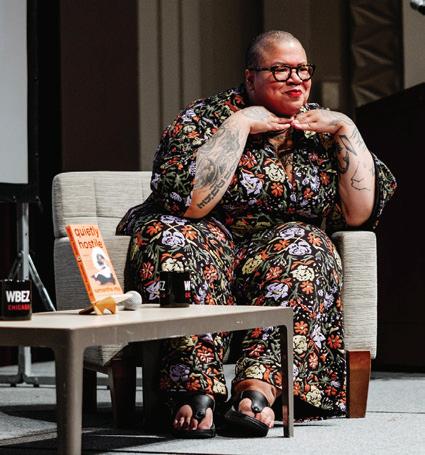
NYC (I attended virtually) and hosted by actor Cynthia Nixon. It featured readings by fellow luminaries Ilana Glazer ( Broad City ), Aminatou Sow (Call Your Girlfriend), and Jia Tolentino (Trick Mirror, the New Yorker). Irby is a writer on the Sex and the City reboot And Just Like That . . . , in which Nixon stars, so much of the evening was spent discussing the reboot and how exactly Irby became involved. And yes, there was a Che joke (does AJLT discourse exist without one?) There is also a lengthy, farcical chapter on the topic in the book, which I do not have time nor word count to deconstruct here.
Irby’s other television writing credits include the canceled-too-soon Tuca & Bertie and Work in Progress. She also worked on the Lindy West project Shrill and the episode she wrote, “Pool,” in which she also cameoed, is critically and popularly regarded as the best in the series. Another chapter in the book is Irby’s yet-to-be-picked-up television pilot based on her essay collection Meaty . “Hollywood does not wanna make a fat-bitch-with-diarrhea show,” says Irby. “Well, also my ideas are insane.” This is why we can’t have nice things! A highlight of the event was the amount of shit Irby brazenly talked about New York City, in front of a packed NYC crowd, as a horrified Nixon looked on (please remember that she ran for governor of the state in 2018). This anti-NYC, pro-Chicago bit was reprised, to thunderous applause, in her hometown the following evening at the Mundelein Center for Fine and Performing Arts, where Irby was interviewed by Greta Johnsen, host of WBEZ’s Nerdette podcast. Irby, clearly ecstatic to be home (traveling is not her forte), and Johnson
AUTHOR PHOTO BY JOE NOLASCO FOR WBEZ CHICAGOdiscussed overarching themes of the book, including her aforementioned hatred for New York and leaving the house in general, the fact that Irby still considers herself a “big dumb baby,” and how childhood trauma combined with romantic rejection in your 20s is what REALLY makes a person funny and cool. They also debated such age-old questions as, “Is Gone Girl a feminist text?” Argues Irby, “First of all, it’s a woman setting a man up—that’s the most feminist thing you could ever do!”
One of the greatest things about seeing Irby live is getting insights into stalled or forthcoming projects and essays. Her first revelation: she is working on a novel about “an old virgin trying to get her cherry popped.” “Is it romantic?” queried Johnson, to which Irby responded, “No it’s not romantic. It’s disgusting.” Would. Read.
Irby also referenced a long-percolating essay that she hasn’t published yet because “I can’t figure out how to end it . . . but it does have a title.” She proceeds: “It’s called Is It Ever Worth It to Be Friends with a Man. Well, I know that ultimately, the answer is no, but I couldn’t figure out how to land the plane.” As a personal disciple of her tongue-in-cheek misandry (regarding defending her “king,” Dave Matthews: “I do not believe in helping a man, AND YET . . .”), here’s hoping she finds the finish line for this sure-to-be instant classic.
Irby may write (and speak) about her own life in lurid detail, but is intentional about protecting those closest to her. Her wife (who Irby would have us believe plays the role of long-suffering spouse) and stepkids (Irby eschews this term, preferring “my wife’s kids” or “my in-home teens;” they in turn call Irby “Mom’s wife”) are never the butt of the joke, but they are often the foil for them.
Biological children? Also not her ministry. She has a similarly tender yet brutally honest approach to writing about grief. When she talks about her complicated relationships with her deceased parents and absentee father, she’ll keep you laughing, but the pang of melancholy when she refers to herself as a generation orphan is palpable. Even in this tough chapter, she lands the plane gracefully and with a smile. Irby simply doesn’t miss. v
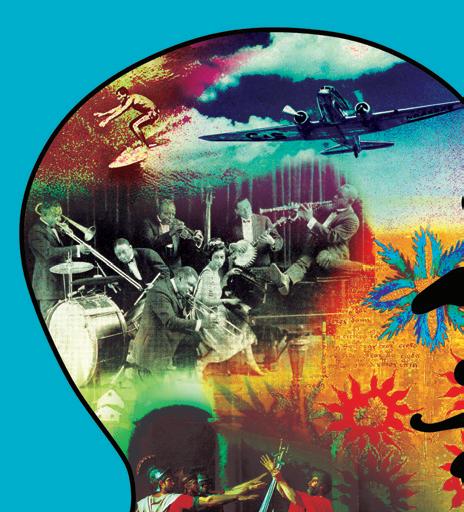
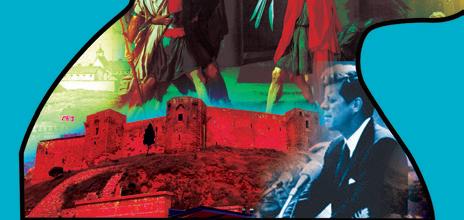
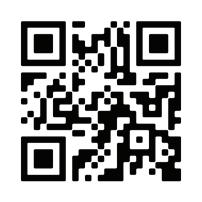

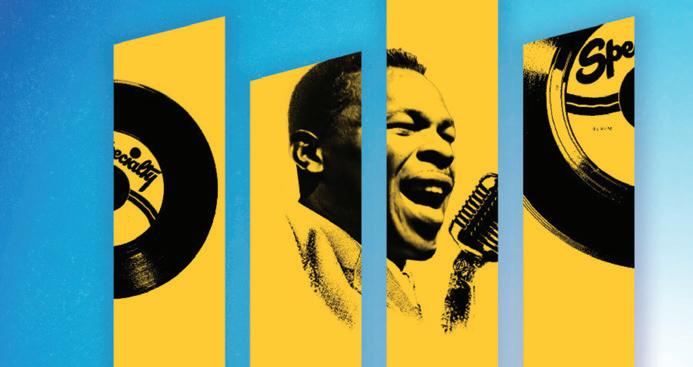


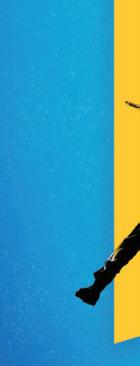

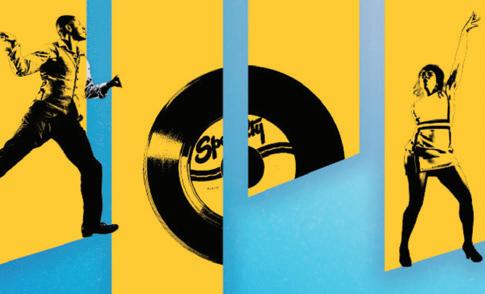






The Reader shares an excerpt about the late artist, from the book Legends of Drag.
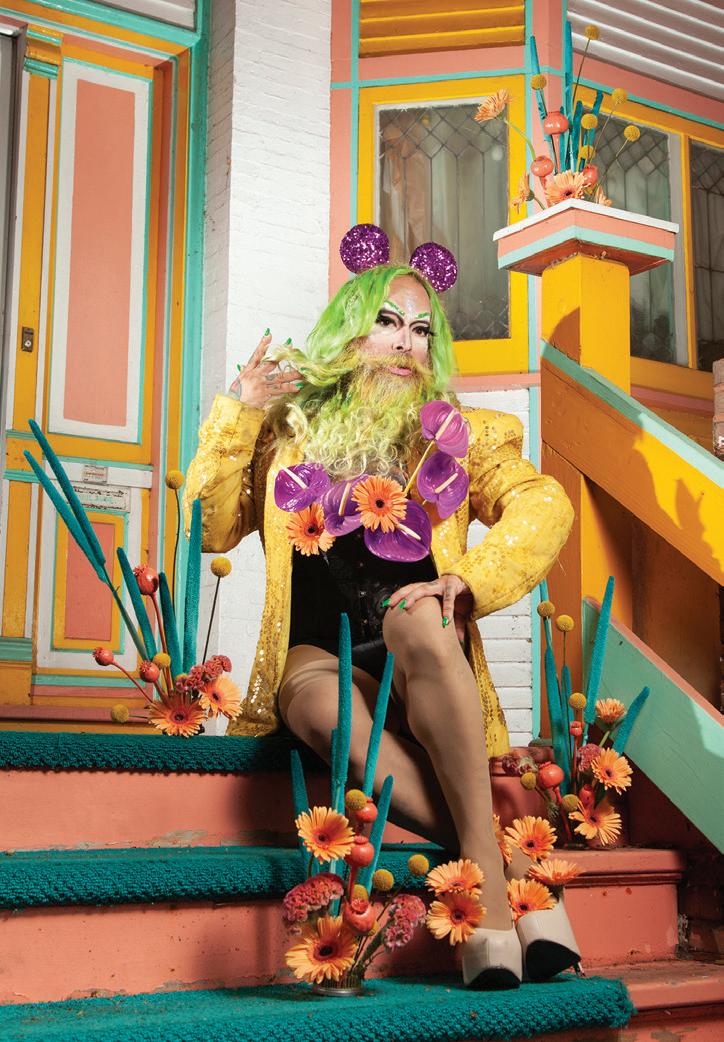
JoJo Baby made a life as a living doll. After nearly four decades in nightlife, the artist and performer died this spring from a long battle with cancer. They were 51. Before becoming JoJo, they were born Joseph Arguellas—the oldest of four children raised by a Greek father and a Lakota mother. From the modest comfort of their Logan Square home, JoJo grew up watching their mother transform from what they described as a “plain Jane” to a “super vixen,” using beauty tricks honed from years working as a Bunny at the Playboy Club. That planted the seed for understanding the body and self as a facade that could be altered to elicit a response.
In interviews, JoJo often mused they were a composite of their three idols: Boy George, Clive Barker, and Jim Henson. They were a lover of glamorous, horrific things that could be manipulated. At 14, their father kicked them out for being gay, so they attended beauty school by day and found refuge in house-music clubs at night. This was when club personalities were first coming to prominence. Among other things, JoJo’s renowned theatricality and drag led them to appearances on The Jenny Jones Show and a bit part in Party Monster , the biopic about club kid Michael Alig, who JoJo unwittingly helped abet after Alig murdered Andre “Angel” Melendez in the 90s. One of JoJo’s signature moves was going out in full makeup with dolls or puppets attached to their clothes. Eventually, they con-
From
 by Devin Antheus and Harry James Hanson
by Devin Antheus and Harry James Hanson
JoJo Baby’s biological mom played double duty as drag mother, a rare circumstance which opened the door to a lifetime of mischief and magic. As JoJo puts it: My mother was a Playboy Bunny at the Bunny club downtown. She put herself through medical school. She started working for an HMO for the Teamsters, her first boss was Jimmy Ho a. She would always tell my dad: “I had princes and kings and actors hitting on me all the time, and I chose you!” I’m sure she had some stories to tell. She had a wig room. I always wanted to be in there trying on all the wigs. She taught me how to sew. She gave me my stage name too. She’d wake me up every morning: “JoJo baby, wake up!!” She inspired JoJo and her brother
nected with Greer Lankton, a trans artist who feathered Big Bird for the 1985 Sesame Street movie, Follow That Bird. Lankton taught JoJo how to make armatures. “By the time Lankton died of a cocaine overdose in 1996,” Ed M. Koziarski wrote for the Reader in 2010, “JoJo’s dolls had developed their singular style: jointed skeletons, foam rubber muscles, multiple layers of cotton-Lycra-blend ‘skin,’ crystal hearts doused with ‘voodoo love oil,’ a ‘full chakra system,’ often outsize genitalia, and teeth and hair from humans, coyote, sheep, and goats.”
Eventually, they secured a studio in the Flat Iron, which they packed with dolls both made and collected, as well as plaster casts of erections—likely inspired by Chicago’s Cynthia Plaster Caster, who made art immortalizing rock stars’ genitals. JoJo’s studio was a church to playful perversion, which they struggled to pay for by cobbling together odd jobs and, later, disability checks from living with cancer and HIV. Through it all, they would don intricate makeup and outfits to find humor in the darkness, redemption in the ugliness, and control through surrender. When their mother died, they legally adopted their stage name—in part, a nod to her nickname for them growing up—completing their transition into a living art object. Coming of age in a pre-Internet world, they knew how to let their reputation precede them. Now, their spirit lives on through indelible marks on Chicago nightlife.
Micco Caporaleto become performers, beginning by enrolling them in Polish dance classes at a young age.
My mom always said if we wrote a book about our lives, nobody would believe it. I still don’t think people would believe some of the things I’ve lived through. JoJo survived ordeals that could make the toughest drag queen squeamish: She once woke up in the middle of an operation with a doctor’s hand inside her. “How’s everything going down there? ” she joked at the moment. She once stitched herself back up after slipping and falling on the job. I don’t think I could do it sober, but I did it then. I’ve lived a crazy life.
Gory details aside, even JoJo’s resume defies the ordinary limits of belief. When last we
spoke, she’d just agreed to work as a ghoul at a haunted drive-in theater for three weeks in October. I get to change my style, though; they trust me to be scary. She’s worked parties for nightlife notables, such as Susanne Bartsch and Paige Powell. JoJo shares her otherworldliness with the masses too. The Museum of Contemporary Art Chicago asked JoJo to dress up as David Bowie and guide people through their Bowie exhibition. Bringing her inimitable style to the silver screen, JoJo appears as an extra in—and contributed her own wardrobe to—the film Party Monster. When she first heard about the film, she reacted with incredulity at the omission of her part in the story. When all that was happening, we hid Michael Alig here in Chicago. We didn’t believe he could actually kill somebody. Eventually, the producers thought wiser. Somebody from their crew reached out to me and said, “We understand you’re a club kid. Do you still have any of those clothes?” To which she replied, “I do, but it’s all made to fit me.” They asked if she’d ever thought about being in the movies. It cost me $7,000 to ship all those clothes back and forth. They never paid me, but I got an honorable mention at the end of the film. The experience paid o in other ways, though. My first day on set, I had Macaulay Culkin and Seth Green dancing around me in their Fruit of the Looms and thought, “I cannot believe my life right now!” JoJo reputedly told Seth she’d like to fold him in half, put him in her suitcase, and bring him home. He politely declined.
When you have a certain energy in your body, you draw certain people toward yourself, and I always get stars drawn to me—all the time! She once bumped into Angelo Moore of Fishbone on the street and said, “I love you. Can I buy you breakfast?” While running to catch a flight, she crashed into Barbara Eden. She met Deborah Harry and appeared on Jerry Springer , Leeza , and The Jenny Jones Show Moby once tapped her on the shoulder and asked to take a picture with her. “Let’s take a whole roll!” When she ran into Leonardo DiCaprio in the bathroom at Boom Boom Room, she made a point to tell him Total Eclipse ranked among her favorite films. It’s one of the movies he regrets doing; he hated that he did full nudity.
Beyond chance encounters, JoJo counts meeting two of her three heroes among the best moments of her life. I met George Michael in the VIP room when he was still in the closet.
He was playing pool, and someone was sticking a pool cue up his ass. The second, Clive Barker—director of Hellraiser and Candyman, and writer of The Midnight Meat Train—produced a feature-length documentary about her life, Clive Barker Presents JoJo Baby: Without the Mask (2010). While working on the film, JoJo confessed her hero worship to Barker. I told him, “I’ve met both of you but will never meet my third hero, Jim Henson, because he’s dead.” He told me to grab a shovel.
My advice for my younger self would be to be nice to everyone you meet because you never know how they’re going to help you in the future. My friend Rusty Nails introduced me to Clive and changed my life. The film became part of some collection about gay icons. I guess I’m a gay icon now?

Icon: derived from the Greek eikon, meaning “likeness,” as in a work of art fashioned in the likeness of a god. Following that etymology, JoJo achieved icon status in the mid-80s at the very inception of her drag career. A bartender friend of mine thought I looked like Divine and asked if I’d do a Divine impersonation at the club, Kaboom. Some people say my Divine is more than Divine. She performed “Native Love,” which got the whole club going. That started it all, I was 14 at the time. Nobody ever suspected the queen painted blue with a wig tied to her dick was underage. In a moment of surreality, easily at home in any early John Waters film, some snot-nosed kid interrupted our photo shoot to heckle—“stinky drag queen!”—from behind a bush.
JoJo’s affinity for divinity predates her drag. Before becoming a queen, she wanted
to be a priest. I wanted to give sermons with black lights and puppets. Idolatry by other means, everyone told her to go into show business instead. Though never joining the church fathers, JoJo did become a sister. She founded the Chicago chapter of the Sisters of Perpetual Indulgence, though reporting notable stylistic di erences from the other chapters.
Coming of age in Chicago’s club scene, JoJo benefited from the mentorship and sisterhood of many of the city’s drag legends. I was doing guest spots as a teenager at The Baton Show Lounge. They were shocked when I asked to host my 21st birthday there. “But you’ve been performing here for quite a while?!” “Yeah, sorry!” At the Baton, I was doing more fishy drag but still with an edge to it. I’d do Nancy Sinatra’s “These Boots Are Made for Walkin’” while wearing three-foot-high platforms onstage, holding onto the ceiling! I got to perform alongside all the legends of the Baton: Monica Munro (my o cial drag mother), Mimi Marks, Sheri Payne, Chilli Pepper. Chilli always tried to give JoJo makeup advice. She said the way I painted made me look like I’d been beaten up. I told her, “That’s what I’m going for.”
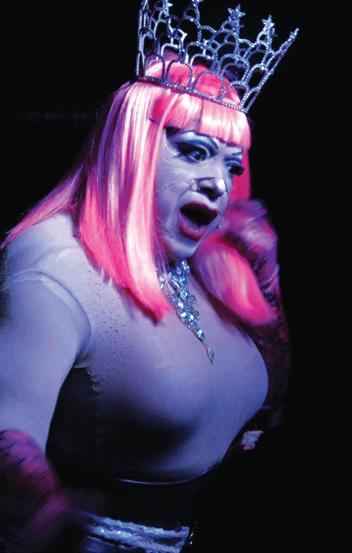
Of Chicago drag, JoJo says, We can give you the same caliber of drag as New York but with less attitude. Whenever people come to visit, they comment on how all the queens here are so nice. Which isn’t to say she never received shadiness. I sometimes had queens that were like, “Miss JoJo, why are you looking so ugly today? You could be so beautiful. Snap out of it, girl!” My line is that I know I can be beautiful tomorrow, why not live ugly for a minute? I’m a Leo rising with a Libra moon, so that lets me know my shit stinks. When you look at me without makeup, I think of myself as a pile of clay and I’m very vulnerable. When the drag comes on, it’s like armor. I can cut you with my eyebrows. I can be ugly for five days of the week and be beautiful the other two.
She never repeats a look. I used to rip up outfits after wearing them once so I wouldn’t do them again.
JoJo brought her own entourage to our shoot: Peanut, an anatomically correct oversized doll. JoJo’s doll collection easily numbers in the thousands. They’ve helped me through the pandemic. Friends were worried about me living alone, but I never get lonely. The dolls are always there for you. My mother’s godmother had a doll collection when we were growing up. She traveled so much and had dolls from all over the world. That’s why
I collect dolls from all over the world. I wanted to recapture what I saw as a child. I was always bugging my mom to see her collection and finally she said, “Why don’t you start your own?” I don’t think she knew what she was feeding into, but it’s never stopped since.
JoJo shares her collection with the public, maintaining gallery space for over 20 years. My place has been used to demonstrate to art history students that you can make a gallery out of any space . Fray Baroque, an editor of Queer Ultraviolence (Ardent Press, 2011)—which chronicles the midwest’s homegrown queer anarchist youth network, Bash Back!—describes the impact of meeting JoJo at her gallery as a teenager: “I was amazed. Mannequins, dresses, freaky shit, makeup and jewelry, pictures of all sorts of insane shit, headless things, stu with only heads. There was absolute insanity everywhere you looked. I had never met a queer person like this before. I thought, ‘Oh, my god, I’ve finally found a person like me.’ I finally found queer freaks. That was really my first exposure, outside John Waters films, to the real-life queer underground.”
JoJo learned the art of doll-making from renowned artist Greer Lankton. I first saw her stu at The Alley, a punk rock store where she did the window display. One of her dolls said, “Please don’t touch,” but I had to. It felt like she stu ed a skeleton inside the fabric! I thought, “What the fuck is going on? She’s killing people and hiding the bodies inside dolls.” When Lankton died in 1996, JoJo fashioned a doll of her likeness for a show at the MCA. I put her on a pink cross lined in pink lilies with a crown of syringes on her head. I wrote on the gallery floor: “Jesus died for somebody’s sins but not for mine.” They censored me and took o the syringe crown because children were present. They didn’t know when they could give it back to me, so I ripped Greer off the wall at the opening and dragged her down the stairs and out the door. Being shown in a museum was always crazy to me. I thought you had to be dead to be in one.
Whether making dolls or costumes, JoJo draws heavily on dreams, nightmares, and magic rites. I do a lot with ritual. I take baths to draw love to myself. I hang old keys over my bed for good luck and protection. I’d love to be on Dragula because I’d be one of the real witches on there. She confessed, coyly: I dabble in a bit of witchcraft. v
25 years ago.
By KERRY REIDKaren Topham didn’t set out to be a trans trailblazer. She just knew she had to save her life. But when she finally came out as trans 25 years ago this month (on her birthday, no less), she became the first public schoolteacher in the U.S. to transition while still on the job.
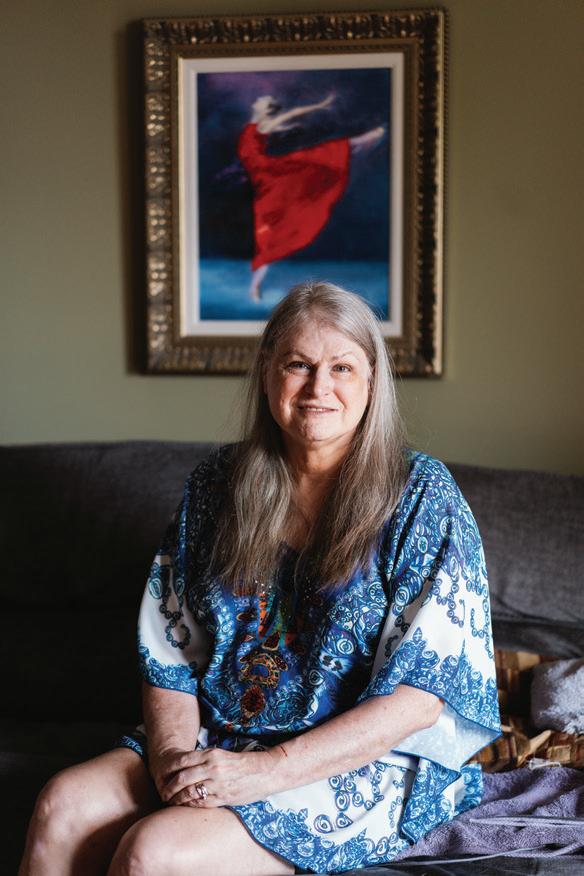
Topham retired from teaching English at Lake Forest High School in 2016, where she also directed over 30 plays. (She earned her bachelor’s in English at Northwestern and her master’s in directing at Roosevelt University.) Now she runs the online theater review site, ChicagoOnStage.com, and has also freelanced for Windy City Times and the Reader.
Over a two-hour interview at Café Urbano near her home in Albany Park (which she shares with her husband, photographer Dirk Topham), Topham, 66, takes me on a trip through her history. She also explains why she chose not to discuss her transition with the press at the time, despite receiving numerous overtures from media, including producers for Jerry Springer and Oprah. Her three kids, who ranged in age from two to 12 when she came out as trans, were the reasons Topham chose to control her media exposure once news organizations got wind of her story. Her oldest child, Chicago actor North Rory Homewood, is also trans.
Though it took many years for her to finally make the decision to transition, Topham says she’s known “without a doubt” since she was three that she was trans, even if the term didn’t exist.
“I didn’t know what to call it yet. I didn’t know that it was possible to do anything about it except, you know, go to sleep praying that God would send an angel down and change me overnight. But I knew. And I also knew, because I was a precociously astute observer of the world, that people weren’t gonna accept it. And that it was too hard. There was such a strong divide between boys and girls that I
was like, ‘If I tell anybody about this, they’re not gonna accept me. I’m gonna be made fun of.’ I was already teased and made fun of my whole life.”
Growing up in a conservative Catholic family in New Hampshire made it even harder to come to terms with her identity. When Topham finally did come out to her father (her parents had divorced by that time), she says, “He told me, ‘I don’t care what you have to do, but make sure your kids are out of high school. You brought those kids into the world, you gotta see them through.’ I’m like, ‘Yeah, Dad. That’s exactly my plan. I want to be there to see them through. And I know that if I don’t transition, I won’t be.’ He said, ‘Don’t get melodramatic.’ I told him, ‘I’m not being
melodramatic. That’s just the truth.’ I understand completely when they talk about those statistics. Forty percent of all trans kids try to kill themselves at some point. And I know that statistic is true because, hell, I was an adult when I tried.”
During our conversation, Topham references more than once the lack of solid support and information networks that existed for people seeking to transition in the late 90s. She had to create her own networks. That included a long road trip in the summer of 1997. “My short version of that trip is I drove west until I hit an ocean, then north until I hit Alaska.”
But it wasn’t random: Topham planned stops along the way with other trans people she had met months earlier through Internet news
groups (“whichever ones I could find that had ‘transsexual’ in the name”) to gather as much information and insight into the process as she could.

Prior to the road trip, Topham began experiencing serious suicidal ideation, which led her to a therapist. She was then able to begin hormone treatments in fall 1997. “It was in just a few days that I felt, ‘Great—my brain finally has the right view.’ That’s really how it felt.”
When I asked her about finding her medical team, she responds, “There was no team. I found my own endocrinologist, my own therapist. Transitioning in the 90s used rules invented in the 70s by a psychiatrist named Harry Benjamin. I had to have a psychiatrist and a therapist both sign o on this. And I had to spend at least one year in what they called at the time a real-life test, where I would be a woman in every aspect of my life for a year.”
Later, Topham emails me about the Benjamin standards. “I do know that for the past decade or more they have been viewed by the community as archaic and problematic. I wanted to be clear that I am not endorsing their methods; they were a transition themselves, coming at a time when studies of what were then called transsexuals were only just beginning to occur. Benjamin [who died in 1986] humanized and attempted to codify what the trans experience was, but he was working within the parameters of the time in which he was writing . . . Today, it is clear that there is no single standard for what trans care should be; it’s di erent for everyone, as everyone’s experiences are di erent . . . and that is as it should be.”
Coming out at school was also a long process, and not always one where she could count on support from places she expected to find it. Topham says she spoke to representatives at Lambda Legal about her plans to transition as a public schoolteacher to find out what her legal rights were if her district tried to terminate her employment.
“They said, ‘Every bit of our energy right now is going to the fight for gay marriage, and we can’t take on a losing cause right now. I said, ‘Oh, that’s nice to know that I’m a losing cause.’” Topham then contacted her union rep, who advised her not to tell her principal even as she began the medical process and started (as per the Benjamin rules) presenting as a woman in public.
She laughs as she tells me that she did confide early on in one colleague at school—a gay man who told her, “Well, that’s gonna take the pressure o us.”
In the end, Topham (who was tenured) kept her job without a battle, though she notes her principal was upset that she didn’t confide in her initially. Since rumors were already flying, she had asked the school to make a brief public announcement before the start of the 1998 school year so, as she wrote in an email, “I could be out and about in the town as myself over the summer. Once it was out—as I knew would happen—it suddenly was open season for reporters. The Sun-Times did an article, as did the Trib , which wanted to feature me in its glossy Sunday magazine. Looking back, I should have let them (and let Oprah put me on her show as well), but I was focused on keeping my face out of the press to protect my small children.”
In a 2022 article in the Lake Forest High School newspaper, the Scout, Topham recalled that she began her first class that semester (after walking past news trucks to enter the school) by saying, “Let’s address the elephant in the room. I’m sure you all have noticed that there have been a few changes over the summer. I moved my desk over here.”
The changes in her personal life were more profound: Topham’s first marriage ended (after some adventures in dating, she married Dirk in 2006), and she didn’t fight her ex-wife for custody of their children, though in practical terms they shared joint custody.
“Whenever I play one of those mind games like, ‘Would you have transitioned earlier if you could have?’ my answer when I’m talking to myself is always, ‘I would’ve loved to.’ If somebody had asked me when I was, you know, nine or ten or 13 or whatever, I would’ve said yes without blinking an eye,” Topham says. “But if you ask me now? I mean, yes, I would’ve loved to be able to do it then, but I wouldn’t have my kids. And I don’t think that’s a trade-o I can make.”


But when her son North came out as trans at 16 (the first out trans student at Stevenson High School in Lincolnshire), it caused unexpected tension in their relationship.
“She says a lot to me that one of her biggest regrets in our relationship is how she handled it when I came out. She freaked out. She got very defensive about it,” says Homewood. “I completely understand her reaction that she didn’t want me to feel that pain, but it hurt a lot. Here’s the one person who’s supposed to understand what I’m going through and she told me that I’m wrong and I’m not feeling this. It took her a while to get around to realizing it was really happening, and once she did, she came around immediately and said, ‘OK, we’re
going to get a therapist, whatever you need.’”

Topham tells me in a later email, “Having a trans son taught me a lot. The thing about being trans is that it is inherently personal; it’s all about you. I mean that makes sense: no one else knows what you are going through. But this actually forces you into a kind of feedback loop with yourself, and you are not the best judge of how to deal with the world.”
She adds, “When North transitioned, I could suddenly see everything from the other side. And I understood how it felt from the perspective of watching a loved one change before your eyes. It hurt. And I felt terrible that it hurt. But I also found myself better understanding my father’s reaction, at least to a point. It provided me with the other side of the story. I think that seeing transition from both sides gives me a unique perspective.”
Homewood also credits Topham for fostering his love of theater. “It’s really nice to have somebody in my family who gets it. Theater is a contentious thing. My other mother spent a lot of time trying to convince me not to do this.”
Homewood notes that he and Topham talk a lot together about their fears of how the forces of anti-trans hatred have been on the rise. “It’s hard to get around it when you are living with this every day,” says Homewood. “I know it’s a ecting both of us right now in a profound emotional way. It’s like watching a car crash in slow motion, especially thinking about the kids and how it was for me when I was younger. I felt like I didn’t have enough support, and now for these kids coming out in Florida, they’re going to have even less than I did.”
A few years ago, Topham wrote a novel, The Cooper Boy, about a young boy in New Hampshire struggling with the decision to come out who ends up as the target of an anti-trans politician. An agent she sent it to told her to “take all the politics out.” Finally, as she did in the beginning of her life as an out trans woman, Topham decided she had to do it on her own; she self-published.
Topham has done several public programs on her trans journey—a few of them with her son—and spoke at a march in Washington, D.C., after the 2014 suicide of trans Ohio teen Leelah Alcorn. But when I ask if she considers herself an activist, she says, “I think I’m more of an actor. I wish I had been more of an activist.” But sometimes, living your truth fully when there are no role models ahead of you lights the way for others to follow v
MUSIC AND LYRICS BY PETE
TOWNSHEND





 BOOK BY PETE TOWNSHEND AND DES MCANUFF
BOOK BY PETE TOWNSHEND AND DES MCANUFF
 DIRECTED BYDES MCANUFF
DIRECTED BYDES MCANUFF



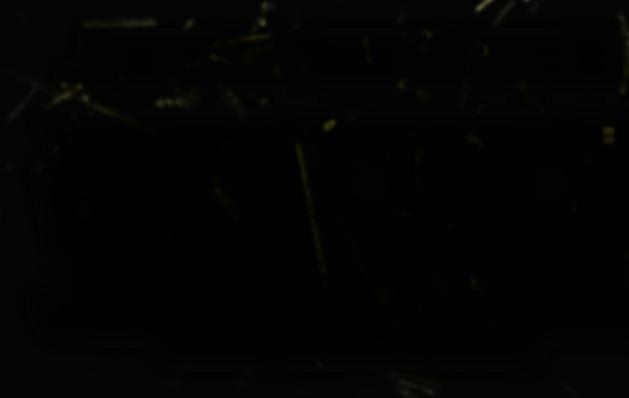









The groundbreaking pop-culture musical sensation is reimagined in a new production.




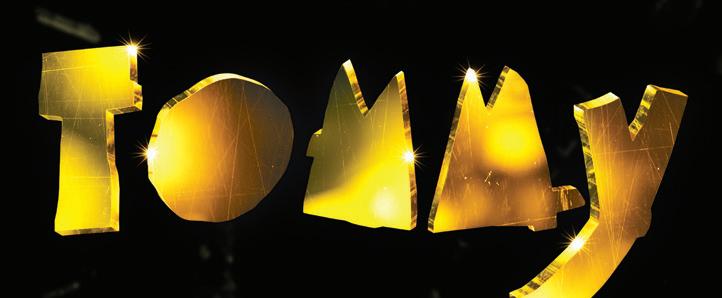







Myth and spectacle combine in a fresh reinvention of The Who’s exhilarating 1969 rock concept album, Tommy—including the unforgettable anthems “I’m Free,” “See Me, Feel Me,” “Sensation” and “Pinball Wizard.” After witnessing his father shoot his rival, the young Tommy Walker is lost in the universe, endlessly and obsessively staring into the mirror. An innate knack for pinball catapults him from reticent adolescent to celebrity savior. Tony Award-winning composer Pete Townshend and Tony Awardwinning original director Des McAnuff find powerful resonance reexamining this iconic story for today.

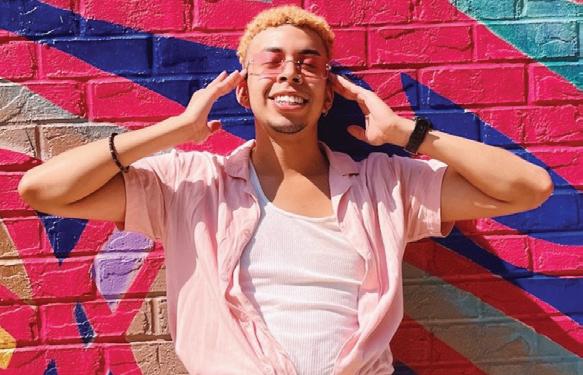 By DAN JAKES
By DAN JAKES
We don’t want to jinx anything, but when it comes to live performance, have the vibes this summer felt a little . . . dare we say . . . better? For a lot of queer comedic writers and performers, the answer is likely a resounding, “God, no,” which would be a fair response to multiple guild work stoppages and a cultural flare-up of mouth-foamy, rabid anti-queer sentiment. But I would argue that, for all the challenges faced by LGBTQ+ creatives, summer 2023 has had less of a watch-and-resignedly-weep-whileall-society-crumbles fatalism and more of a fuck-it-let’s-build-it-our-way energy. Audiences feel like they’re back, creators feel like they’re taking risks, and now is an excellent time to support local talent in person and see comics on tour. With that in mind, for Pride, we present the following sampling of summer comedy featuring LGBTQ+ artists.
Sexy Unique live recording
Vanderpump Rules , like much of the Bravo extended universe, occupies a nebulous place on the Kinsey scale. Its WeHo setting, decadent-tacky style, stimulant-infused operatic drama, and fandom are unmistakably gay. But the show itself, interestingly, is a descent into hetero hell. Who better to mine the briny, monogamous depths than bi host Lara Marie Schoenhals and gay cohost Carey O’Donnell, whose reality TV recap podcast has long been a reliable source for astute commentary, blind items, and Katie Maloney trade me incantations. The duo recently described their Chicago stop during their last run of live shows as a tour highlight, and with #Scandoval having defibrillated the most recent season of VPR back to mainstream pop culture life, this round promises to be a sugar-rimmed, triple sec-doused blast. 6 /15-6/16 Thu-Fri 8 PM,

Sleeping Village, sleeping-village.com, $35 general admission, $60 VIP
Finally live recording Comedian and “dom femme lesbian” Grace Kuhlenschmidt was identified as a rising comic by the New York Times in 2020, and in the years since, she’s ascended her way to the right hand of the gay Father/Mother time and time again. Of the many self-effacing, absurdist characters she’s created over the years, one that kills me the most will always be “woman confuses Joe Biden for Pete Buttigieg.” (“Slay yas, mama!”) With very funny friend and colleague Joe Castle Baker (Search Party ), Kuhlenschmidt uses simple topic launch points, like “mail” or “fire,” to discuss things like the inherent horniness of candles, why there should be a hanky code to signal Disney adults, and the importance of teaching dogs about contraception and safe sex. Thu 8/10 7:15 PM, the Den, thedentheatre.com, $26$36.75 (including fees)
What makes Little Miss Anthropes different from other drag competitions? “The people who can’t do a split also have a shot at winning,” notes coproducer Claire Rufin. Each month, inspired by a new theme, a lineup of drag queens and kings showcase their comedy and creativity without the constraints of bar gigs and traditional drag pageants. For June, they’re cutting through the noise of Pride to get down to what really matters to the queer community: the sweet, sweet, plasticky rainbow merch. Audiences are encouraged to let their box-creased, unsteamed freak flags fly and show up in their gaudiest, most hollow-sloganed T-shirts. And for participants: “You don’t have to be a girl, you just have to
be a nightmare.” Fri 6/30 7:30 PM, Sat 7/15 7 PM, Sat 8/19 7 PM, and Sat 9/16 7 PM, Lincoln Lodge, thelincolnlodge.com, $10 ($11.30 w/ fees)
Steamworks the Musical Love is love, and that’s great! But you know what’s also love? Fucking! And at a time when the acceptance of queer culture into the mainstream is increasingly contingent on its perceived chastity, there’s something kind of radical and arguably important about spaces like the, ahem, “men’s gym” and “sauna” at 3246 N. Halsted. For the uninitiated, Chicago’s Steamworks—a higher-end YMCA-style facility with maze-haunt hallways, glory holes, and semi-public sex—is widely considered to be the best gay bathhouse in the country—not just surviving, while many others decay and close, but thriving. The Annoyance’s cabaret musical send-up to the midwest institution has been a perennial favorite for over a decade. It’s just a pity that Man’s Country—Steamworks’s hairier, raunchier Uptown cousin—never got its parody. The Bette Midler numbers would have basically written themselves. Through 7/14: Fri 8 PM, the Annoyance, theannoyance.com, $20 ($22 w/ fee)
To the uninformed, it may have looked like Chicago Reader Best Stand-Up 2022 poll winner Deanna Ortiz recently made an appearance at Gwen Rose’s monthly stand-up showcase, but that was actually the winner of the poll from Chicago Illiterate, the Windy City alt paper of Earth 6732-21-Y. Every third Thursday, comedian and trans woman Rose welcomes comics like Sara Snyder, Sam Rocha, and Jessica Mance (whom Rose calls out as “ maybe the most slept-on stand-up in the scene”) to perform their material, as well as
be interviewed about the multiverse they’re coming from that night. The format adds a little twist to an otherwise straightforward lineup and, as Rose explains, “gives stand-ups a fun excuse to play a slight variant of themselves.” Every third Thu 9 PM, Lincoln Lodge, thelincolnlodge.com, $5
With so many gay bars catering overtly to cis gay men, where the hell do lesbians meet up? “I know that this answer is going to surprise you,” says Christian Borkey, Lincoln Lodge manager and show producer, “but Charlie’s.” That, and the community-centered meetup and comedy show The Lesbian Lodge . Each month, Emma Day hosts a rotating lineup of comics for a low-lit, chill night of laughs. “I think lesbians specifically have been hungry for their own space,” says Borkey. “I have yet to find the challenge of creating events for people that love to laugh, connect, and be in community with each other.” Monthly; next show June 25 6 PM, Lincoln Lodge, thelincolnlodge.com, $15
It wasn’t that long ago that the gay “upscale dive” of Andersonville was more of a divedive of Andersonville, a place to buy lotto tickets on the way to a better bar. But in recent years, Atmosphere has really come into its own as a neighborly, vibrant, bumpin’ spot with good DJs, hot go-gos, and friendly sta . With both The Call and Mary’s Attic having closed in recent years, having a stalwart gay bar on that stretch of Clark has been doubly important, and they’ve risen to the occasion by not just keeping the party going but building on it. Audiences looking for a casual
.’Josh Hampton hosts Just Josh’n Friday, June 16, at Lincoln Lodge. NATALIA HOLGUIN
night of stand-up with cheap drink specials should consider popping into their Wednesday shows, produced by Funny AF Chicago. Wed 8 PM, Atmosphere Bar, 5355 N. Clark, atmospherebar.com
Just Josh’n
It’s all peace and love at Chicago comedian Josh Hampton’s disco ball-lit, bell-bottomed, orange floral-adorned show, which combines stand-up sets from queer artists and drag performances from kings and queens. “It’s pretty hard to find a stand-up show that also incorporates queer nightlife,” says Hampton. “So that’s exactly what made me want to start the show. It’s a combination of the best entertainment that is for all audiences, and I’m happy to have created that space.” Friday 6/16 7:30 PM, Lincoln Lodge, thelincolnlodge.com, $10
Shantay!
Property flipping, cooking, crafting, ferociously arguing—there’s literally no trope of daytime TV not made more entertaining when it’s performed by a drag queen. Each month, host Yuíza Beach mixes daytime segment bits with a late-night talk show format and breaks down recent events in the Chicago drag scene—wigraking journalism, you could call it. During a recent show, guest Mx. Avery Knight demonstrated how to make homemade pasties, which many queens across the gender spectrum wear in solidarity with AFAB and trans-femme performers, for whom showing nipple is restricted. Every first Tue 8 PM, iO Theater, ioimprov.com, $15 ($10 student) plus $3.09 service fee, 21+
Lovesome
There’s plenty to feel cynical about over Pride, sure—but on Sundays, we celebrate. Show creator Cat McDonnell puts heavy emphasis on the party part of “improv Pride party,” inviting audiences to dance after the show. “I think people are looking for ways to connect and have meaningful time with each other right now,” says McDonnell. “For me personally, this is the first time I’ve felt social in three-plus years, and it sometimes still feels overwhelming and scary to step back out into the world. But Pride has always been something that has made me feel comfortable and connected and like I can just show up places and be OK.” Sundays in June, iO Theater, ioimprov.com, $10 ($12.92 w/ fees)

Baby Wine
A decade ago, when the Annoyance moved
from its longtime Uptown home to its current digs off the Belmont Red Line, it quickly became one of the rare theater bars you’d want to hang out at, whether or not you were seeing a show. The move also put the company squarely in the heart of Chicago’s biggest gayborhood. For Baby Wine, the Annoyance’s long-running LGBTQ+ weekend showcase, being in that hub has meant having the opportunity to connect with like-minded audiences. “When Alex Garday joined the Baby Wine crew,” says ensemble member Liz Joynt Sandberg, “he started leading a preshow check-in circle, where we take a moment to celebrate and acknowledge the gift of doing what we love with a predominantly (straights welcome!) queer audience. It really is such a gift to be able to create and enjoy that community space. I’ve never felt safer or more seen as a comedian than I do at Baby Wine.” Open run, Fri 9:30 PM, the Annoyance, theannoyance.com, $12 ($14 w/ fees)
Jay Jurden

Life isn’t an RPG, but if it was, stand-up comedian Jay Jurden would be hoarding all the stat points. Charisma. Intelligence. Strength. Bisexuality. The man is fully maxed out. 8/178/19 Thu-Sat 8 PM, Zanies Chicago, 1548 N. Wells, chicago.zanies.com, $30, 21+
Performers from across the gender and sexuality spectrum get frank about their bodies and relationship with sex by way of erotic fan fiction, burlesque, performance art, stand-up, educational demonstrations, poetry, music, and more. “Connections are always made at Sex Positive,” says producer Ashley Victoria. “People come into the show thinking that they are the only one with a specific experience or feeling or kink and leave with the knowledge that they are not alone and they never were.” Sat 6/24, iO Theater, ioimprov.com, $25 advance, $30 at door, + $3.40 service fee



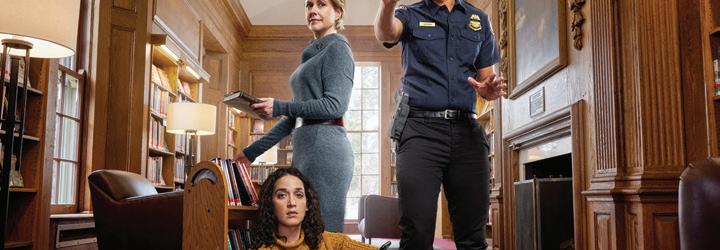
A bubble-filled, prize-throwing showcase of local and national queer comedians hosted by Mary Kelly and drop-in guest hosts from Chicago’s hilarious pool of queer talent. “We’re celebrating queer culture in a lighthearted and safe space,” says Kelly, “so anyone who identifies as queer or an ally will have a blast.”
Second Thu of the month, 7 PM, Lincoln Lodge, thelincolnlodge.com, $12 advance, $16 door v




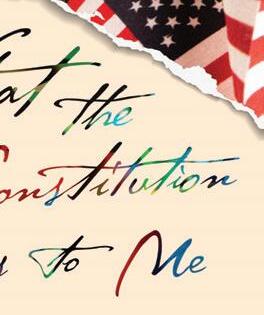
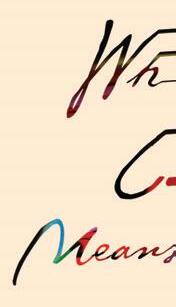




@DanEJakes
























































Second City’s 111th mainstage revue hits the sweet spot.
The less political Second City tries to be, the more effective they are. At least, that’s the conclusion I’ve come to a er seeing last year’s stellar mainstage revue, Do the Right Thing, No Worries If Not, followed by their latest, Don’t Quit Your Daydream











Featuring most of the cast from the previous show (Jordan Stafford makes his mainstage debut, replacing E.J. Cameron), the show is, as the title implies, an exploration of the gaps between reality and fantasy. While not deeply committed to the concept, the loose framework allows for a refreshing celebration of the absurdity and perfidy of human nature. Not even heaven is exempt, as Andy Bolduc’s painfully white guy finds out when he tries to sneak into Black heaven, where Julia Morales’s celestial being watches the door. (He gets kicked out quickly and sheepishly confesses to Morales, “I touched someone’s hair.”)
There are glancing references to Clarence Thomas and attacks on reproductive rights, but really, given how quickly the news is hitting and the timeline is exploding, going topical would be a fool’s errand. So director and choreographer Carissa Barreca lets the fools run the show, and it makes for a mostly blissful outing, with no real duds in the bunch and a few heartfelt surprises. (Stafford poignantly plays both a dying father and his son, who is hoping to get a few pearls of wisdom before Dad kicks off.)
Claire McFadden and Evan Mills (one of the most gi ed physical comedians I’ve seen onstage at Second City in a long time) play a pretentious acting teacher and her friend, who has been an extra in just about every movie you (or in this case, an audience member) can name. Kiley Fitzgerald is Menopausal Barbie (please, call her “Barb”), talking about compression socks. Morales and Stafford play a big sister and younger brother trying to reconnect on a road trip, where the songs on the radio provide a source of both unexpected bonding and ridiculous mondegreens.
If you haven’t been to Second City in a while, this little Daydream of a show provides a perfect excuse for checking back in. —KERRY REID DON’T QUIT YOUR DAYDREAM Open run: Tue-Thu 8 PM, Fri-Sat 7 and 10 PM, Sun 7 PM, Second City Mainstage, 1616 N. Wells, 312-337-3992, secondcity.com, $39-$124
Footholds Vol. 4 takes us on a series of trolley rides.
Impostors Theatre Company closes out its season with an anthology of five short plays by local writers, all derived from the prompt of “trolley.” It’s a mixed bag, opening with the delightful Anything From the Trolley? by Toni Flowers-McElrath (directed and choreographed by Anna Roemer), in which the passengers all engage in various dances offering sly hints of their personalities and relationships.
Alex Fortune’s Narrative Machine Broke (directed by Caitlin McManus) stretches out its premise—two alpha business/political types find themselves crossing an invisible line into an alternative universe—a little too long, though as a parody of an Aaron Sorkin walk-andtalk, it has its charms. Kevin Blair’s Marketplace Mama (directed by Courtney Marie) similarly spins its wheels a bit as a pair of former high school exes quarrel over who gets to buy the old trolley offered for sale on Facebook Marketplace by a not-what-she-seems-to-be elderly lady.
Juliet Kang Huneke’s Mechanicals, directed by Rachel Borgo, successfully taps into some of the dystopian leanings that the Impostors generally do so well. And Alex Dumitru’s Panopticon (directed by “the directing ensemble”) is a thoughtful, well-cra ed meditation on memory and trauma. All the pieces show enough promise that I’d be happy to see more from these writers in the future. —KERRY REID FOOTHOLDS VOL. 4 Through 6/17: Thu-Sat 8 PM, Sun 3 PM, Den Theatre, 1331 N. Milwaukee, theimpostorstheatre.com, $25 reserved, $20 general admission

Obama-ology revisits a 2008 battlefield state. Obama campaign operatives stationed in East Cleveland at the height of the 2008 presidential run felt like they were at the center of the political world. An idealistic—and existentially lost—Black gay man’s entrance into this volatile world forms the center of Fleetwood-Jourdain Theatre’s production of Obama-ology which entertainingly depicts what an emotional minefield it was selling Obama’s vision of hope.
Warren (David Guiden) arrives in East Cleveland and has the office’s mission spelled out for him: If they get out the vote in East Cleveland, Obama wins all of Cleveland. That cancels out McCain’s assured victory in Cincinnati, and Obama wins Ohio.
But the residents of East Cleveland have heard this song before. Even if they might support Obama, that doesn’t mean that they’ll warm to Warren and his other colleagues, whom they regard as an occupying army that will move on once the election is over.
Guiden is excellent as Warren, a recent college graduate first basking in his escape from his overbearing conservative parents, then becoming disillusioned once he starts putting together the pieces needed for an Obama victory.
Tuesdai B. Perry, Chris Jensen, and Em DeMaio each have multiple roles as Warren’s colleagues and various neighborhood residents. Their program listings as “Actor #2,” “Actor #3,” and “Actor #4,” respectively, seems disingenuous, as some of their characters convincingly traverse narrative arcs just as significant as Warren’s. Aurin Squire’s script overexplains these people and situations at times, but Bria Walker’s terrific direction keeps the two-hour show going at a fast clip. —MATT SIMONETTE OBAMA-OLOGY Through 6/25: Sat 7 PM, Sun 3 PM, Noyes Cultural Arts Center, 927 Noyes, Evanston, 847-866-5914, fjtheatre.com, $30 v


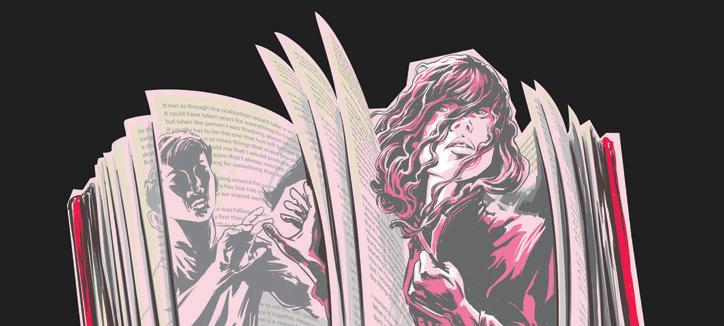
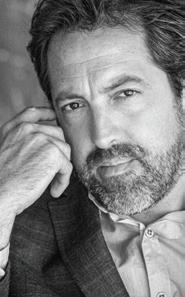

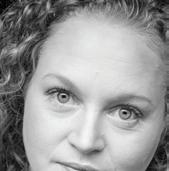
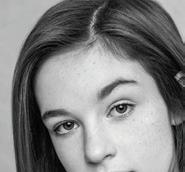










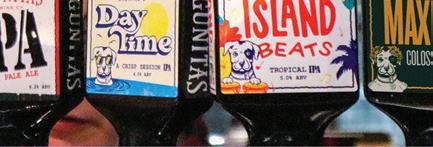

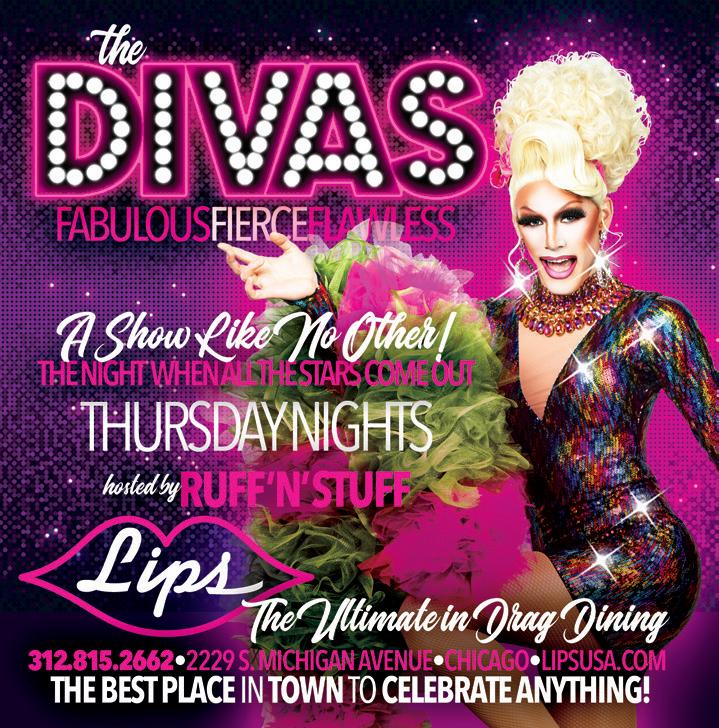

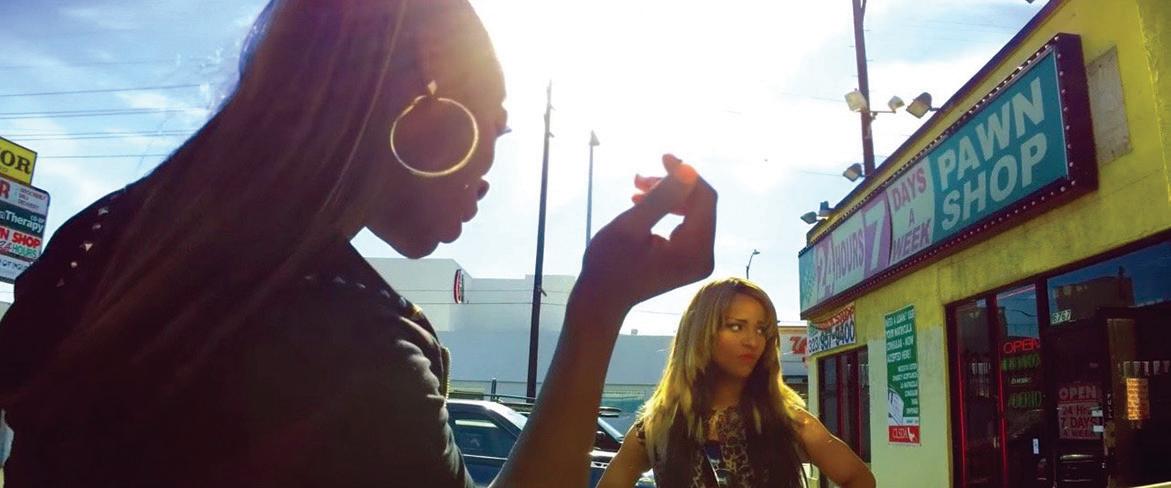 By ANDREA THOMPSON
By ANDREA THOMPSON
It’s June, and for those who call themselves cinephiles, the goal is to immerse themselves in LGBTQ+ cinema. Making a list of the best films to watch is di cult for all the right reasons, since more and more potential Pride Month watches hit screens both big and small each year. And that’s not including Chicago film fests like Reeling, which is entirely devoted to screening brand-new queer cinema. That said, here’s a list of recommended titles, with an unapologetic slant toward films screening in Chicago theaters.
Remakes don’t get much better than Mike Nichols’s The Birdcage, which embraced drag shows long before they became the height of cool, and more unsettlingly, another casualty of the rising tide of fascism. The movie’s entire pivot point is the marriage in everything but name between Armand (the much-missed Robin Williams) and Albert (Nathan Lane), the former of whom is the owner of the drag club where the latter is star performer Starina. Their relationship is tested when their son Val (Dan Futterman) announces his marriage to Barbara (Calista Flockhart, in one of her first roles), the daughter of a Republican politician, and Armand and Albert attempt to pass as respectable straights. The result is a satire so subversive that audiences willingly laughed at many of their most sacred cows, including marriage, politics, sexism, homophobia, and the traditional family itself. Sun 6/18, Alamo Drafthouse Cinema; Apple TV, Google Play, MGM+, Paramount+, Philo, Pluto TV, Prime, Redbox, the Roku Channel, Sling TV, Tubi, Vudu, free on YouTube
Bound (1996)
Before the Wachowski sisters gave us the
scoop on The Matrix, they pushed boundaries during the 90s indie boom with this neo-noir about lovers Violet (Jennifer Tilly) and Corky (Gina Gershon), who embark on a passionate a air that really heats up after they plan to rob the mafia. Come for some of the most erotic hand closeups you’ll ever see, stick around for the steamy sex scenes, then stay on the edge of your seat for high-stakes developments like the police interrupting your murder spree and your girlfriend getting tied up in an actual closet. Thu 6/22, Music Box Theatre; Apple TV, Google Play, MGM+, Philo, Prime, the Roku Channel, Sling TV, Vudu, YouTube subscription
Desert Hearts (1985)
In a time when queer stories tended to end in tragedy, Desert Hearts was the exception to the rule. Thirty-five-year-old college professor Vivian Bell knew she was upending her life when she arrived in 1959 Reno to wait out a divorce, but she never expected to find love again, certainly not with the much younger, free-spirited casino worker and sculptor Cay Rivvers (Patricia Charbonneau). A classic case of opposites attract, their chemistry is immediate and palpable, and with no male love interest to act as a kind of romantic buffer, Desert Hearts broke ground in many ways. The film also surrounds its central pairing with relationships of various complexities that rebuke the clean-cut image of the decade. Apple TV, Max, Prime
Fire Island (2022)
How exactly do you transplant Jane Austen’s Pride and Prejudice into the modern gay (mostly male) community? In the case of Fire Island, you make it look easy. First, you have Noah (Joel Kim Booster, who also cowrites), the relatably flawed protagonist who’s secret-
ly a hopeless romantic, arrive at the titular locale with his tight-knit circle of friends/ found family, which includes Margaret Cho as mother hen. Then you add sweetly supportive BFF Howie (Bowen Yang) for your Jane/Bingley subplot. And of course, the ever-important Darcy stand-in Will (Conrad Ricamora), who proves to be far more than the coldly judgmental rich guy he appears to be. Much like the source material, there’s a whole lot of seriousness in this seemingly flu y love story, with discussions of racism, classism, and body dysmorphia swirling around the romantic tension Austen is still revered for centuries later. Hulu, Paramount+, Showtime
The Half of It (2020)
Alice Wu’s first film since the 2004 lesbian love story Saving Face is a loose reworking of Cyrano de Bergerac that’s practically an ode to creativity itself. As the complex love triangle develops between introverted Ellie Chu (Leah Lewis), sweet jock Paul Munsky (Daniel Diemer), and Aster Flores (Alexxis Lemire) after the cash-strapped Ellie agrees to write love letters to Aster on Paul’s behalf, there are shout-outs including Wim Wenders, The Philadelphia Story , The Remains of the Day , Sartre’s No Exit, and Casablanca. Even if we’re forewarned that The Half of It won’t end with anyone getting what they want, the journey is still a compelling tribute to how love and connection can triumph over the restrictions imposed on us. Netflix
Chicago filmmaker Stephen Cone may have garnered far more notice with his 2017 film Princess Cyd, but he threads a far more delicate balance to great success in Henry Gamble’s Birthday Party. Henry (Cole Doman) is a
preacher’s son who’s active in the church and celebrating his 17th birthday. As for his guests, they initially appear to be various shades of evangelical stereotypes, but as the party goes on and the liquor flows, they reveal themselves to be far more than the worst we’ve come to expect, as each struggles to align themself with the traditions of their religion. Or not, in some cases—Henry and many of his friends and family prove to be surprisingly receptive to change and eventually to his budding relationship with another boy. Apple TV, Kanopy, Prime, the Roku Channel, Tubi, Vudu
Barry Jenkins didn’t break out as much as establish himself as a Hollywood star after Moonlight was released to critical and commercial adulation, with the film’s poster becoming an iconic work of art in itself. The film follows Chiron during three pivotal points in his childhood, adolescence, and adulthood, as he struggles to beat the odds of his impoverished circumstances, come to terms with his addict mother (Naomie Harris), and finally, accept his sexuality. Jenkins portrays a world so often fetishized and reduced to its most violent outcomes from the inside, with tenderness and Wong Kar-wai’s influence on his cinematic sleeve. Apple TV, Google Play, Kanopy, Max, Prime, Redbox, Spectrum, Vudu
Things kick off simply, if not innocently, in Céline Sciamma’s masterful period film: Marianne (Noémie Merlant) is heading to an isolated island in 18th-century France to paint Héloïse’s (Adèle Haenel) wedding portrait without her knowledge, since Héloïse is understandably reluctant to marry a man she’s yet to meet. As Marianne secretly observes
her charge, who steadily and sharply does the same, the film becomes a rumination on the female gaze, desire, women’s history, and the power of art to console and even preserve love itself. That is, if we know where and how to look. Apple TV, Google Play, Hulu, Prime, Vudu
Tangerine (2015)
Hell hath no fury like a woman scorned, but as trans sex worker and general force of nature Sin-Dee (Kitana Kiki Rodriguez) heads out to find the pimp who broke her heart, in Sean Baker’s iPhone-filmed breakout hit, the real love story is the platonic friendship between her and her fellow working girl Alexandra (Mya Taylor). Their bond is largely what transforms another depressing Christmas in LA into a riotous adventure, even as it includes brothels, infidelity, meth, and kidnapping. But at the end of one very chaotic day, it’s still Sin-Dee and Alexandra who stand strongest together. FuboTV, Kanopy, Max, Prime, Spectrum, Vudu
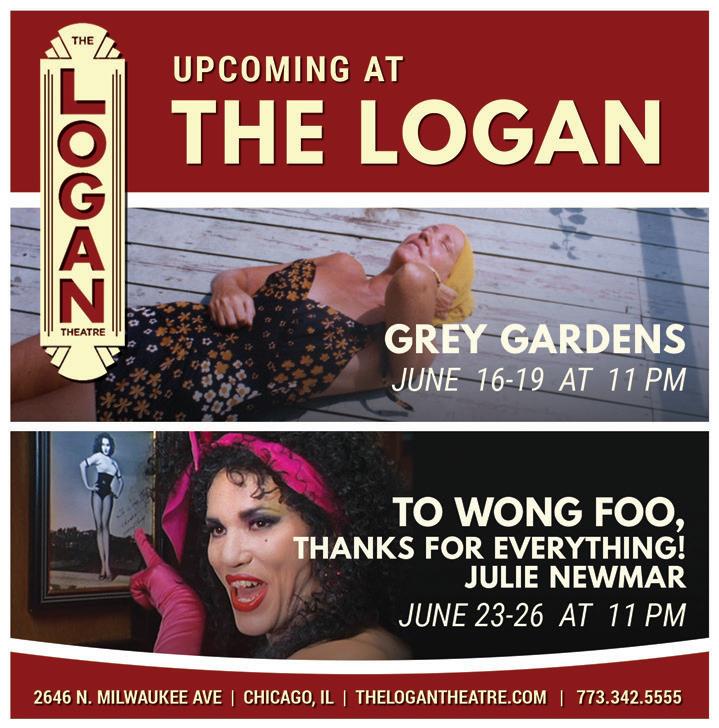
Julie Newmar (1995)
Once upon a time, three actors—Patrick Swayze, Wesley Snipes, and John Leguizamo—decided to subvert their machismo-fueled images and play three drag queens whose road trip transforms into a kind of outlaw odyssey when they run afoul of a cop. As a result, they’re forced to hide out in a small rural town, where they do exactly what right-wingers fear most: they take it over. And in the process, they prove there’s a reason this ranks high on conservatives’ lists, since it’s the patriarchy who su ers most from the trio’s arrival. They give the town’s female residents a makeover, help Stockard Channing out of an abusive marriage, and free them all from the perils of toxic masculinity, complete with a final showdown where queer culture fabulously triumphs over gun culture. Fri 6/23-Mon 6/26, Logan Theatre; Apple TV, Freevee, Google Play, Prime, Redbox, Vudu

The Watermelon Woman (1996)
They don’t get much more groundbreaking
than Cheryl Dunye’s landmark of queer cinema. Dunye plays a version of herself, an aspiring filmmaker who works at a video store. Her singular style also defines 90s cool, and the pre-Internet research for a Black actress credited only as “The Watermelon Woman” in a series of 1930s films is nostalgia fuel rather than a source of frustration. Dunye’s mockumentary-style format adds a breezy charm, as she delves into the history she herself creates, archival footage and all, with appearances by her own mother and thinkers of the time, and plenty of sharply funny commentary on racism (whether personal or the Hollywood variety), white feminism, and how cinema itself can be a source of pain and heartbreak. FuboTV, Kanopy, Paramount+, Prime, the Roku Channel, Showtime, Sling TV, Spectrum, YouTube subscription
Weekend (2011)
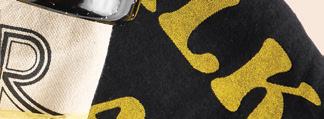
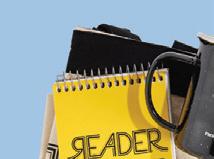
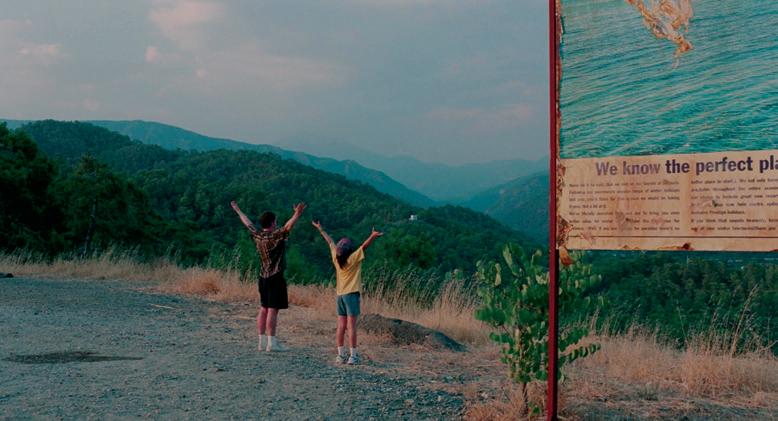
It’s hard for long conversations to be cinematic, but Weekend makes it mesmerizing when Russell (Tom Cullen) and Glen (Chris New) meet at a club and form a connection that neither expects to last the night. But to their mutual surprise and growing pleasure, they discover their attraction to each other deepening in Andrew Haigh’s bittersweet love story. Glen is departing at weekend’s end for Oregon, but he and Russell are inescapably drawn to each other, sharing their hearts, histories, and debating their di ering approaches to relationships, heteronormativity, and activism. Like many of the best slice-of-life o erings, closure remains evasive, but the journey is everything for two lonely people who not only live in the moments they spend together, but make the most of them. AMC+, Apple TV, Criterion, Google Play, Pluto TV, Prime, the Roku Channel, Tubi, YouTube subscription v
Honorable mentions:




120 BPM (2017)
And Then We Danced (2019)
Born in Flames (1983)
But I’m A Cheerleader (1999)
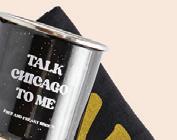



D.E.B.S. (2004)



Fire (1996)
God’s Own Country (2017)
The Handmaiden (2016)
How to Survive a Plague (2012)

The Inspection (2022)
Lingua Franca (2019)
Pain and Glory (2019)
Rafiki (2018) @areelofonesown
Poised to become a summer blockbuster, The Blackening is a hilarious horror-comedy romp that’s smart and self-aware. Adapted from a viral Comedy Central sketch of the same name that was written by Dewayne Perkins (Brooklyn Nine-Nine, The Amber Ruffin Show), a member of the legendary Black Chicago improv group 3PEAT, the feature film cowritten by Perkins and Tracy Oliver (Girls Trip) retains the silliness and satirical bite of the source material while expanding on the universe.
When college friends foolishly gather in a cabin in the woods for a reunion party, they stumble across a creepy board game featuring a Sambo figurine. The game asks questions about Black culture with the caveat that one wrong answer could mean certain doom. The cast is stacked with comedic talent, including Jay Pharoah (SNL); Yvonne Orji (Insecure); Sinqua Walls (White Men Can’t Jump); Antoinette Robertson (Dear White People); Melvin Gregg (Nine Perfect Strangers); X Mayo (American Auto); Grace Byers (Empire); Jermaine Fowler (Coming to America 2); and Perkins, who does triple duty as actor, cowriter, and coproducer.
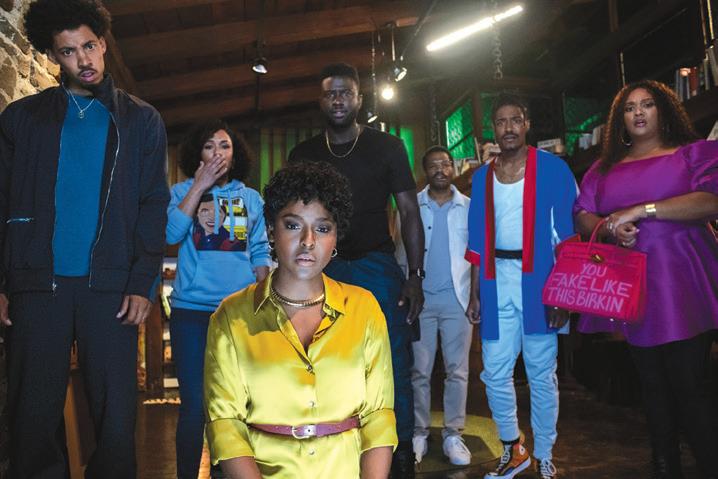
The Blackening shines in simultaneously leveraging horror movie tropes while also avoiding falling into cliche. A thoughtful and unapologetically Black lens ensures that Black viewers will leave the theater laughing—and not traumatized by gratuitous racial violence. But make no mistake, audiences from all backgrounds will find this movie accessible and hilarious, a unique offering in the grand tradition of other horror-comedy flicks, such as M3GAN and the Scream franchise. Perfect for a summer evening out with your besties, The Blackening is a must-see summer flick. —SHERI FLANDERS R, 96 min. Wide release in theaters
Flamin’ Hot—the directorial debut of Eva Longoria—tells the story of the invention of the titular Flamin’ Hot Cheetos by Richard Montañez (Jesse Garcia), a janitor at Frito-Lay.
Montañez, the son of a Mexican immigrant without much in terms of formal education, struggles to support his wife and kids with a series of low-paying and inconsistent jobs. As a Mexican American in the 1970s, Montañez is ignored at best and persecuted at worst. Through a neighborhood connection, Montañez talks his way into a custodial job at the local Frito-Lay plant, where he shows a keen interest in the various operations of the plant. As hard economic times hit the country in the Reagan era and the plant is threatened with closure, Montañez hatches a plan to save his colleagues’ jobs by tapping into an ignored segment of consumers: other Hispanic Americans.
It’s an entertaining rag-to-riches story, and Longoria aptly handles a biopic that could easily swerve into
absurdity. Flamin’ Hot utilizes many of the tricks of the trade of contemporary biopics—freeze frames, rewinds, consistently intrusive narration—but manages to keep the pace breezy without getting too bogged down in editing tricks. “This story is true, except for the parts that aren’t,” is such a common biopic trope these days that it’s hardly surprising that much of what Montañez claims to be the truth is strongly contested by Frito-Lay. And while the film is set amid poignant economic and social movements of the 70s and 80s, it’s ultimately limited in message to an individual pulling himself up by his bootstraps with some glossed over help from family and friends.
Did Richard Montañez “invent” Flamin’ Hot snacks?
Who’s to say. But as we see in Flamin’ Hot, selling the story is half the battle. —ADAM MULLINS-KHATIB PG-13, 99 min. Hulu, Disney+
Racing into theaters a er years of development hell, corporate shuffling, and other bad publicity, The Flash feels less like a feature film than a splashy event comic miniseries: It’s an editorially mandated story reverse engineered from bits of spectacle by an inconsistent creative team. Our hero Barry Allen is introduced as a distracted, perpetually snacking junior Justice Leaguer in a thrilling super-speed rescue set piece that nevertheless grinds to a halt for cameos from two of his superhero compatriots. Allen soon discovers that he can travel back in time and decides to prevent a family member’s grisly murder from his childhood. Controversial star Ezra Miller’s overstimulated performance is charming, but it’s not enough to resolve the tonal clash of the emotional stakes and the interdimensional plot, nor can they sustain a second role as a younger, even squirrelier version
of Allen mid-origin story.
True to comics decades-deep in continuity, the film sprints through a remarkable number of sci-fi plot devices with little time for internal logic or emotional progression: phasing through walls, time paradoxes, alien invasions, four different Batmen. Michael Keaton’s return to the cowl drops the kinky, barely repressed mania of the Burton films in favor of incongruously badass hand-to-hand combat and a heroic death on a desert battlefield. At the film’s nadir, near its climax, Allen and his doppelgangers pause their conflict to gaze up at an alternate earth montage of past DC adaptations, including ghoulish renderings of three deceased actors and one Superman Easter egg tailor-made for nerds to explain to their significant others on the way out of the theater. The action scenes capture the scale of people with otherworldly powers, but it’s a cheap thrill, not genuine awe, like video game levels or, ahem, theme park rides. It’s ~150 minutes that go by quite slowly. —JACK RIEDY PG-13, 144 min. Wide release in theaters
Spider-Man: Across the Spider-Verse is the sequel to the Academy Award-winning Spider-Man: Into the Spider-Verse, which blew audiences away, setting the bar for CG-animated films in terms of digital artistry and writing. It’s hard to follow up such a success, but Across the Spider-Verse (the second of a planned trilogy) takes the action and the story to the next level and may just be a superior film. It is simply gorgeous, reflecting the same comic-book stylization the first film utilized, including multiple panels highlighting close-ups and wide angles, or various perspectives, as well as different artistic styles for each major character and mind-blowing animation.
Miles Morales (voiced by Shameik Moore) is back as Brooklyn’s favorite web-slinger, facing off against a growing threat from The Spot, and reuniting with Gwen Stacy/Spider-Gwen (Hailee Steinfeld) to traverse the Multiverse, with each world populated with a different Spider-Man and reflecting a different artistic aesthetic. Miles’s home world is reminiscent of classic comic books, Spider-Man India/Pavitr Prabhakar’s (Karan Soni) world is filled with a mandala of colors and configurations, like a fusion of New Delhi and New York, and Miguel O’Hara’s world of Spider-Man 2099 (Oscar Isaac) is a futuristic New York. There’s a literal Spider Society protecting the Multiverse full of enough Spider-Men, Women, Cats, and other Things to make fans lose their minds, with enough Easter eggs to fill a dozen baskets. With a hilariously smart and sensitive screenplay by Phil Lord, Christopher Miller, and Dave Callaham, and directed by Joaquim Dos Santos, Kemp Powers, and Justin K. Thompson, Spider-Man: Across the Spider-Verse is destined to be the first well-deserved summer blockbuster. —JOSH FLANDERS PG, 140 min. Wide release in theaters
There’s a dissonance throughout Transformers: Rise of the Beasts caused by the extreme brutality of its action sequences and the extreme earnestness of its many emotional beats. In the first five minutes of the film, one transformer literally rips the spine out of another, and over the course of the next two hours, we see robots bisect, dislimb, and generally dismember one another, with special attention given to a blade stabbed through a metallic face. Alongside that gleeful gore, characters give speeches about how much they mean to one another and make grand sacrifices that are alternately unaffecting and surprisingly successful in their attempts to make us feel something about giant transforming alien robots.
Dissonance isn’t necessarily bad, and can o en be fascinating, but in Rise of the Beasts, it feels more like an attempt at giving fans exactly what they want than a purposefully curated aesthetic tension. Michael Bay’s Transformers films were criticized for their general lack of concern for the property, from robot designs that looked nothing like the cartoons and toys to Bay’s trademark lack of interest in character. But fans loved the intensity and brutality of the action he delivered. So here we are with a film that’s got all the simple, brightly colored designs and earnestness of a Saturday morning cartoon combined with action that finds the limits of the PG-13 rating and gets away with a genuinely shocking amount because the combatants are robots.
But if you can get on its wavelength as a film at odds with itself, Rise of the Beasts is an enjoyable summer blockbuster that plays the narrative hits, good guys and bad guys in a race for a MacGuffin, and supplies the requisite action sequences. —KYLE LOGAN PG-13, 127 min. Wide release in theaters v

PICKING UP THE MIKE
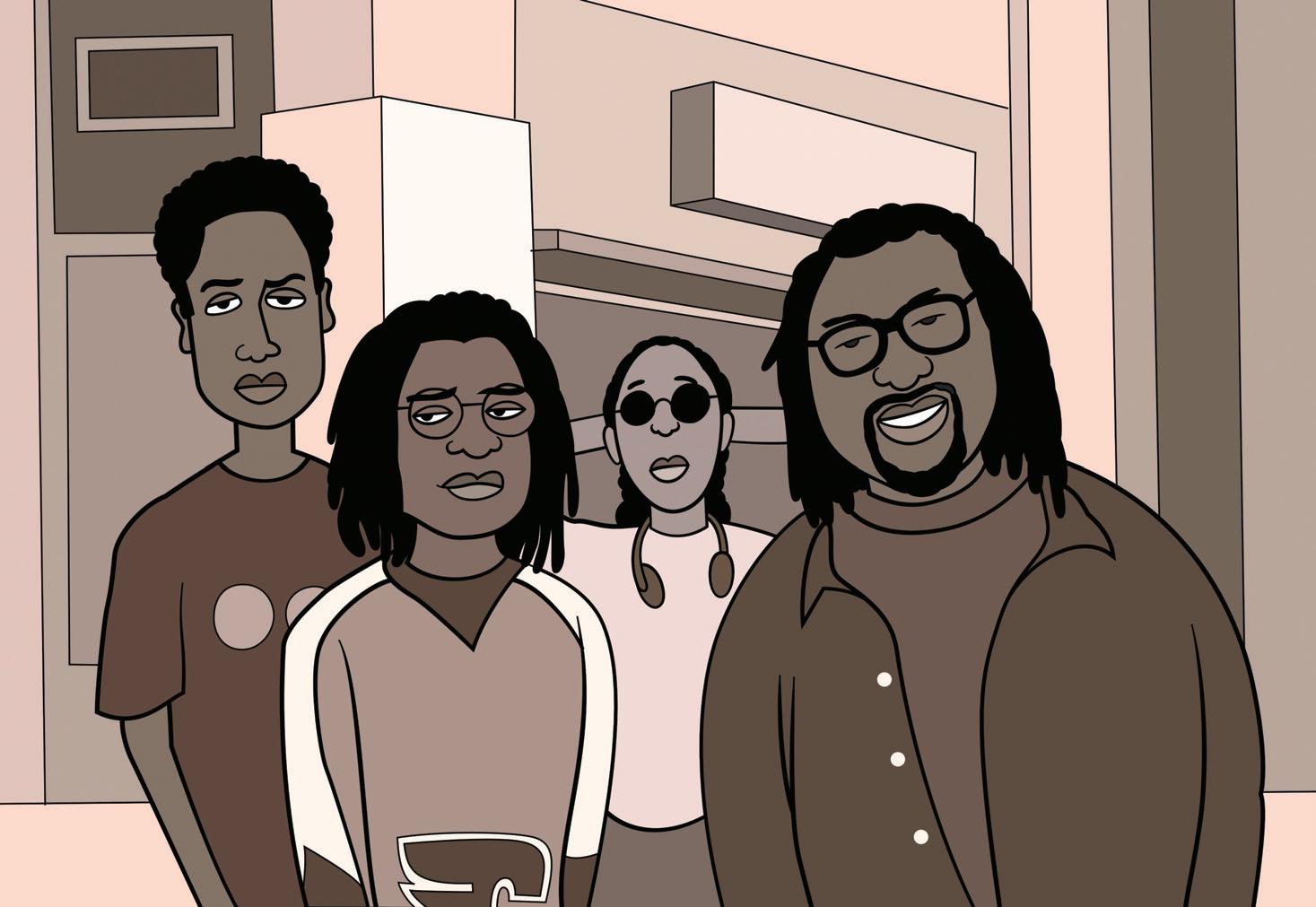
This trailblazing group helped the Chicago scene grow into an identity of its own in the early 90s.
By LEOR GALILIn 1991, rapper and promoter Duro Wicks began hosting a weekly hip-hop open mike at Lizard Lounge in Wicker Park. At that point, there hadn’t yet been many recurring hip-hop parties in Chicago. In 1986, DJ and producer Parker Lee Williams, aka P-Lee Fresh, had launched what’s believed to be the first such event at Stepps Entertainment & Dance Club in Rogers Park, but it was frustratingly short-lived. Then rapperproducer Kingdom Rock started hosting hip-

hop events at Blue Gargoyle Youth Services in Hyde Park.
But Chicago hip-hop heads in 1991 still had vanishingly few nightspots where they were welcome. At the Lizard Lounge open-mike parties, Wicks liked to play videos on the club’s VCR setup—usually kung-fu movies or animation. One night he screened an experimental gay documentary called Tongues Untied
Directed by Black gay artist and activist Marlon Riggs, the 1989 film Tongues Untied depicts Black men loving Black men, which made it a lightning rod in the culture wars of the day. PBS scheduled Tongues Untied as part of its POV nonfiction series, a decision praised by Pulitzer-winning Los Angeles Times TV critic Howard Rosenberg. On the eve of the film’s national TV debut in 1991, he published a piece that documented attacks on Riggs’s work (and the granting agencies that had supported it) from conservative Christian leaders, including Donald Wildmon of the American Family Association and the hosts of The 700 Club, among them the late Pat Robertson.
Eighteen of PBS’s 50 largest stations didn’t air that episode of POV , and many of those that did moved it out of its usual prime-time slot. WTTW was among them—when Tongues Untied was broadcast on July 16, 1991, the Chicago station pushed it back to 10 PM. Wicks’s friend and collaborator Juba Kalamka made sure to record it. In fact, Wicks borrowed Kalamka’s copy to play at Lizard Lounge. Afterward, Kalamka got lots of questions from partygoers to whom Riggs’s film had been just a rumor. “They’re like, ‘What possessed you to tape it?’” Kalamka says. “I said, ‘It just seemed like it was important.’”
Kalamka is bisexual. He achieved his greatest fame in the 2000s as cofounder of openly queer Oakland-based hip-hop group Deep Dickollective, but in 1991 he hadn’t yet come out. He remained in the closet until ’95, by which time he’d largely withdrawn from Chicago’s grassroots hip-hop scene. His most notable local project was Wicks’s group He Who Walks Three Ways, whose best-known lineup came together in late 1991. During the early 90s, the Chicago scene grew from something small and scattered into a tight-knit community with its own distinctive sensibilities, in no small part thanks to Kalamka and Wicks.
Wicks’s stint at Lizard Lounge lasted just a few months. “It got canceled,” he says. “It was just a little too bold and too Black for them.” But by the end of 1991 he’d launched another hip-hop series, this time at Wrigleyville venue Club Lower Links. Presented by his burgeon-
ing events company, Big Lips Productions, the $3 Sunday Hip-Hop Show was likewise shortlived and folded in July 1992. But to an even greater extent than the Lizard Lounge series, this open-mike party united aspiring rappers, DJs, producers, and heads from across Chicagoland. “I feel like there’s no one who’s on the hip-hop scene in Chicago that’s over, let’s say, 48 that didn’t come to this party,” says Marcel Wilks, aka rapper Mr. Greenweedz.
Nearly every Lower Links hip-hop show featured He Who Walks Three Ways. “We were, I guess you would say, the house band,” Wicks says. “Like the Roots on Jimmy Fallon.”
Wicks would continue throwing parties in Chicago for another couple years, including a series he launched at Red Dog in 1993. That’s also where Wicks decided to celebrate his retirement from event production. Reader contributor Rosalind Cummings documented the occasion in a November 1994 story titled “Hip Hop Godfather: Duro Wicks’s Last Party.”
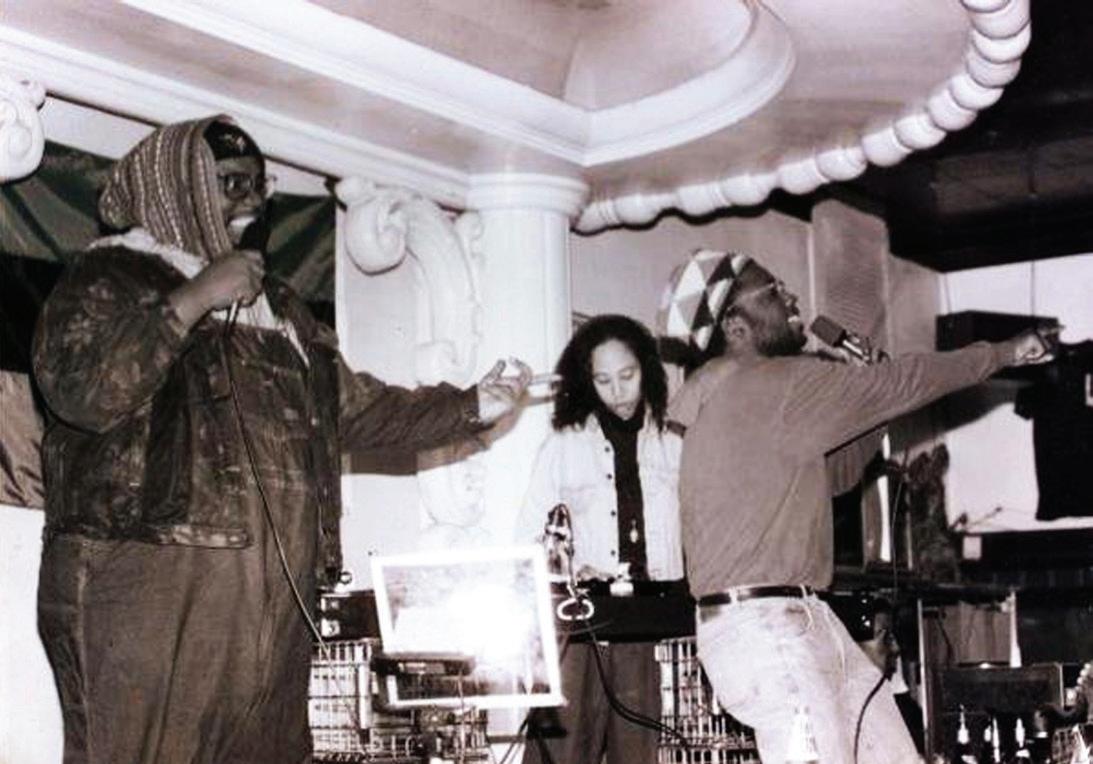
Wicks is also the central subject of a forth-

coming documentary called Catalyst by New York-based director Dave Steck, who hopes to screen an early cut in town this fall. Last summer Steck interviewed me for Catalyst , because my job at the Reader has helped me get to know Wicks. Whenever I write a story about early Chicago hip-hop, he’s one of the people I make sure to contact.
As often as I’ve enlisted Wicks as a source, I’ve rarely made him my subject—and I’ve written even less about He Who Walks Three Ways. I’d barely heard their music before summer 2020, when Kalamka uploaded a compilation of their recordings to his Bandcamp page.
What I knew of the group was mostly about what various members had done elsewhere.
Before Lori Branch worked the turntables in He Who Walks Three Ways, for instance, she’d famously become the first woman DJ in house-music history. Branch is also bisexual, and she’d come out before she joined the group. Other queer Chicagoans were involved in hip-hop during the early 90s too. West-side
native Da Brat, who became the first female solo rapper to go platinum with 1994’s Funkdafied , married a woman last year, but she didn’t come out publicly till 2020. By then hip-hop had become much more accepting of queerness.
Hip-hop celebrates its 50th anniversary this year, and the occasion is prompting a lot of reflection on the culture’s legacy. I chose to write at length about He Who Walks Three Ways partly because they helped underground Chicago hip-hop cohere into a movement. I felt like I should learn more about them, and there’s no way to do that without honoring the group’s queer history.
In the mid-1980s, Juba Kalamka had an awakening in study hall at Lane Tech. He was 15 years old, and he noticed a fellow student reading a recent Anne Rice novel.
“Bless Chris, wherever he is,” Kalamka says.
“Bless white boys reading The Vampire Lestat.” Kalamka was a horror fan, and he asked
continued from p. 45
Chris about the book. Chris described Lestat de Lioncourt as bisexual—a word Kalamka hadn’t heard before.
“I was like, ‘What’s that?’ He said, ‘That means that he likes guys and he likes girls,’” Kalamka says. “I just went, ‘Huh.’ And it was like a glass inside me broke. I was like, ‘Oh, that’s what this is.’ I covered up that distant bell.”
Kalamka’s older sister had recently come out, and he saw the trouble she’d had with their family afterward. “I was not inclined to come out,” he says, “even though her being out certainly eased the way for me.”
Kalamka focused on baseball and art, a combination that confused some of his classmates. He knew it would be easier to navigate being pigeonholed as an oddball—an athlete who loved comics—if he kept his sexuality hidden. “You could be a Black nerd and weirdo,” he says. “I had not expressed any interest in girls or boys—or anybody, across a continuum of gender—so people just kind of left me alone.”
In 1987, Kalamka graduated high school. Later that year, a neighbor in Austin named Donald Sappington invited him over to listen to music. Sappington had taped songs off WNUR’s hip-hop show, Streetbeat , and he wanted to share them.
Kalamka remembers hearing a couple tracks by Bronx outfit Ultramagnetic MC’s—“Mentally Mad” and “Funky”—that left a deep impression. “It wasn’t anything like I had ever heard,” he says. Listening to Kool Keith on the mike for the first time, he had another thought: “I was like, ‘I can do that.’”
He’d soon become a hype man for Raw Material, a hip-hop group that included Sappington. In those days, Raw Material’s lineup also included Marcel Wilks, then known as Wiz. “We did everything together,” Wilks says. “It would be all of us in Raw Material—I went to my first concert with Juba.”
In July 1988, Raw Material opened for Grandmaster Flash & the Furious Five at DiVinci Manor at 5609 W. North. After Kalamka left Raw Material in 1989, he focused on a group called Ultimate to the Superior, whose militant vision took inspiration from Public Enemy. Kalamka and his friends got to meet their idols, and Wilks remembers Chuck D expressing an interest in signing Ultimate to the Superior.
When Kalamka was growing up, his parents immersed him in Afrocentrist education and made sure to expose him to Black art. His mother, Kemba, acted in stage shows when
he was a kid, and he ended up in children’s theater himself. In 1990, when Kalamka was in his late teens, he took a few friends to the University of Chicago Laboratory Schools to see a fashion show his mom was involved in. She’d been recruited via cold call because she shared a first name with the teenage organizer of the show, Kemba Wicks—sister of Duro Wicks.
“We were there, being teenage assholes, basically—being obnoxious at this bougie Black fashion show,” Kalamka recalls. “And in the hallway, watching us, was Duro.” Wicks took a shine to this crew of west siders. He liked Kalamka in particular and started inviting him to local clubs.
When Wicks o ered to take Kalamka to any club he wanted, he chose a new place called Shelter at Fulton and Je erson. Kalamka had turned 20 that summer, and even as they pulled up, he doubted Wicks could get them in.
“We go up to the door and they let both of us in,” Kalamka says. “I was like, ‘OK, you for real, you not on some bullshit.’”
Raised in Hyde Park and Chatham, Duro Wicks spent his teen years looking for an alternative to the house music that saturated Chicago in the mid-1980s. Wicks and his best friend, Ronald Clark, were originally drawn to alternative and underground rock. They’d learn about new music from Melody Maker and NME
Clark was inspired by a group of older Lab School students who made synth-driven postpunk under the name Groan Box. “I was so blown away that our classmates could have synthesizers, make music, and perform songs,” he says. “That was a catalyst for me— like, at some point it’d be fun to do this as an artistic endeavor.”
“We were gonna start a band called Blind Vision, an alternative band,” Wicks says. “[It] never materialized.” Later in the 1980s, Wicks got interested in hip-hop. He lived close enough to the University of Chicago to listen to its radio station, WHPK, which had introduced the city’s first hip-hop programming in 1984. In 1986, John “J.P. Chill” Schauer began his decades-long involvement in WHPK’s hiphop programming.
Schauer frequently gave airtime to aspiring local rappers, and he expended a lot of energy tracking down underground hip-hop records.
In a prerelease clip from Catalyst , former WHPK station manager Rick Wojcik credits Schauer with bringing records by early Philly gangsta rapper Schoolly D to the station. In 1996, Wojcik and Schauer would launch Dusty
Groove as a Web mail-order business.

Schoolly D’s 1985 single “Gucci Time” inspired Wicks to pick up the mike. “The way he comes in, ‘Lookin’ at my Gucci, it’s about that time,’” he says, “I’m like, ‘Oh my God, this is incredible. I can do this! I should do this. I’m going to do this.’”
Among his first collaborators were Clark and a mutual friend from the Lab Schools, Chris Csíkszentmihályi, who had his own sampler. “I was horrible at first,” Wicks says.
In 1989 or 1990, Wicks recalls, he briefly lived in Uptown. He got a job working on the street team for the Riviera (alongside Fred Armisen), which helped him get a foothold in Chicago nightlife. He also befriended another aspiring rapper named Lenard Pugh, who gave him a name for a hip-hop group that was inspired by the mythological Riddle of the Sphinx. “He neglected to tell me that it was a hand-me-down name,” Wicks says. “I just thought it was a great concept.” Pugh had already been in a group with his brother called He Who Walks Three Ways.
When Wicks met Kalamka at that fashion show in 1990, he knew he wanted to start a hip-hop group. He had a group name and several collaborators lined up. One of his Uptown roommates, Ethan McClendon, was his first DJ, though his stint spinning for Wicks didn’t last long. Wicks needed a full-time DJ, and he remembered a woman he’d befriended in the mid-80s while working at the Museum of Science and Industry: Lori Branch.
“I was automatically attracted to her vibe and energy,” Wicks says. “Something about her was just di erent. I knew she was gay, that she was out, but it didn’t matter.” Wicks liked the idea of being in a group of MCs backed by a female DJ, since he couldn’t think of any other act with that kind of lineup. And he wanted that DJ to be Branch. “I always felt like, ‘This is a person I need to spend lots and lots of time talking to,’” he says. “‘She has the keys to the vault. She’s gonna open the vault to me, and I’m gonna learn something.’”
When Branch heard from Wicks in 1991, she’d just moved back to Chicago after living in New York and Los Angeles for a few years. She’d done some music production in NYC, but otherwise she experienced nightlife from the audience. She hadn’t DJed in five years.
Branch grew up with six siblings in Morgan Park on the far south side. Her mother was a teacher, her father a Christian minister. “Being part of the whole ‘disco fever,’ as my mom
used to call it, was not in their plan,” Branch says. “But I was drawn to it, partly because it was a way that I was coming out—that was the only way you could come out.” In the late 1970s, while attending Lindblom Technical High School, she fell in with an informal social club called Vertigo. They frequently went to dance at the Warehouse.
Vertigo cofounder Eric Bradshaw was a sta writer for monthly teen newspaper New Expression , and he noticed that teen crews were taking out ads in the paper for parties they were throwing in rented halls. The members of Vertigo took that ball and ran with it, hosting their own parties in spaces such as the Loft and Sauer’s. Bradshaw made flyers, using the same graphic-design skills that sometimes came in handy at New Expression. Branch had started collecting vinyl thanks to her best friend at Lindblom, Jean-Pierre Campbell, and the Vertigo clique encouraged both of them to DJ.
Branch became a regular behind the turntables in 1980. Within a couple years, she’d won an all-woman DJ battle organized by Chosen Few founder Wayne Williams. But by the middle of the decade, she’d stepped away from DJing. “It was starting to get depressing,” she says. “My close friends were a lot of gay guys, and AIDS was—every day—taking people out.” She turned her attention to her studies at Columbia College, then left the city in the late 80s.
When Branch returned to Chicago in 1991, she wanted to start DJing again. Her old friend Duro Wicks pitched her on spinning at his open mike. She had only a passing familiarity with hip-hop, so Wicks brought her a crate of records he was sure she’d like.
“There was an entry there that was very different than house,” Branch says. “It was harder, and it was more reflective of my recent experiences. I had just come out of New York, where the crack epidemic was raging. I worked in foster care, and I was around a lot of kids who were from abusive homes. It was speaking to me in a way that house music—which was more love, dancing, and party—wasn’t speaking to me at the time. I was feeling it in my soul.”
Branch began DJing events for Wicks in late 1991. Up to that point, He Who Walks Three Ways had been more of a concept than a group, but Wicks finally had the collaborators he needed, all in the same place at the same time. The classic lineup came together quickly: Clark took the name Continuity, Kalamka called himself Grandee Cootabee, Branch

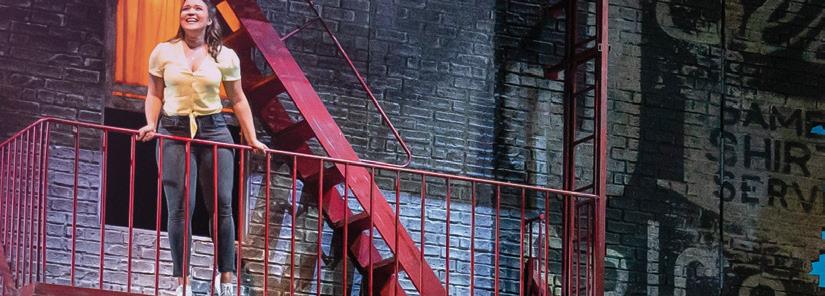


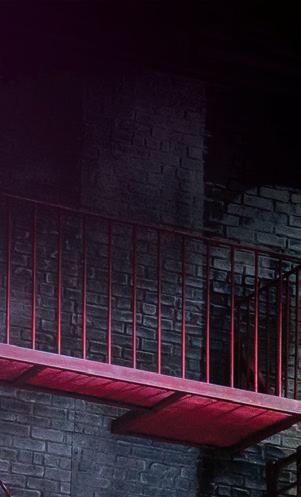

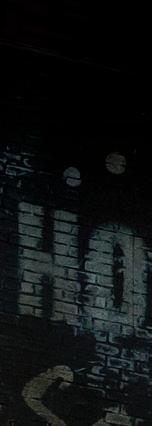


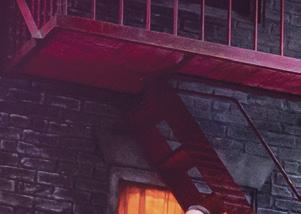

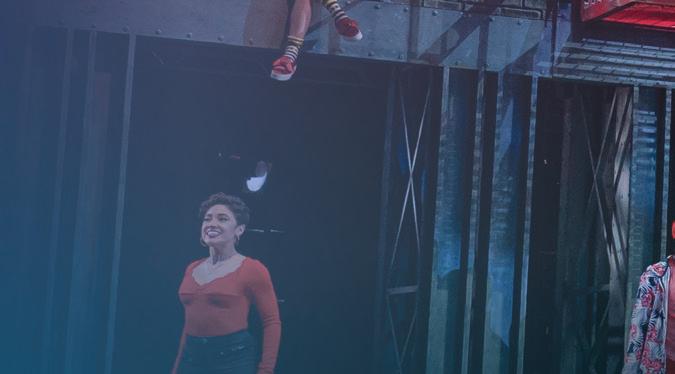
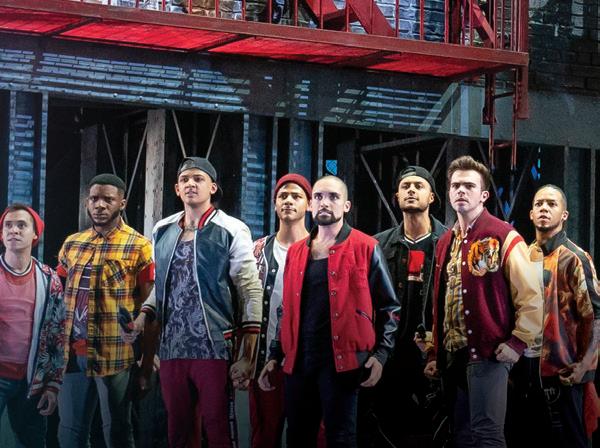


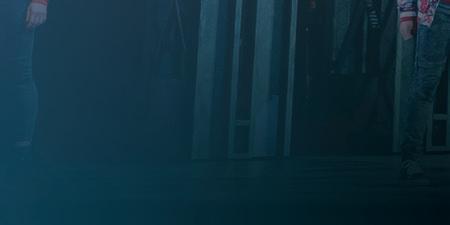




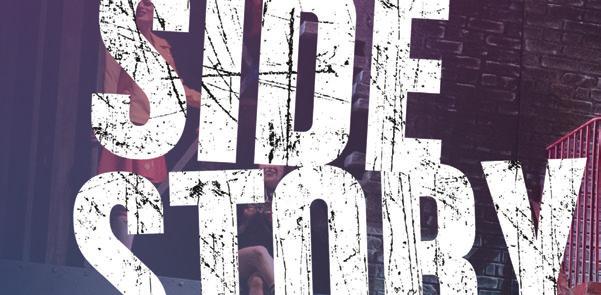
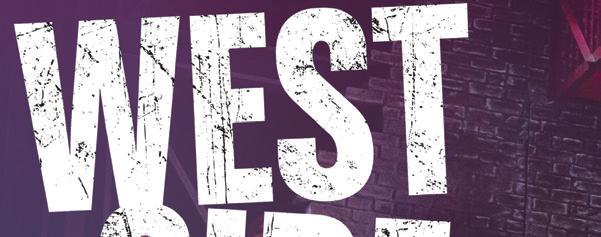
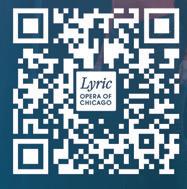

continued from p. 46
became DJ Rapture, and Wicks himself went by Shame Love Tempo. He Who Walks Three Ways made their live debut at the Rainbo Club on January 26, 1992.

In 1991, a friend of Wicks’s named PJ Blackfist had told him about a Wrigleyville basement venue at 954 W. Newport. Leigh Jones had opened Club Lower Links beneath Links Hall in 1988, and it became a hub for experimental performers. Blackfist figured Jones would be open to Wicks hosting an open mike there.
Jones booked Wicks into the space for a weekly party on Sundays, and that choice of day turned out to be a boon. As director Dave Steck points out, at the time the CTA o ered unlimited rides on all lines every Sunday with a Supertransfer pass—an innovation that had already helped unite Chicago hip-hop once before. In the 1980s, gra ti writers from across the city converged at a variety of meetup spots for what they called Supertransfer Sundays. In 1996, south-side group Stony Island—who’d made the trip north to Lower Links for the open mikes—enshrined the pass’s importance to Chicago hip-hop with the self-released EP Supertransfer: Good All Day Today.
Wicks credits veteran graffiti writer Fere Ali-El with boosting the word-of-mouth success of the series. “He used to sell incense all across the city, on the trains and up the block,” Wicks says. “He got out there and would tell people, ‘You gotta go to Lower Links.’ And it grew, and it grew quickly, and much larger than Lizard Lounge.”
Word spread to the suburbs, where it reached rapper “Coolout Chris” Hawkins. Wicks fumbled the name of Hawkins’s group, Spalaney’s, at their first open-mike appearance (he pronounced it “spuh-LAG-knees”), but he wouldn’t forget them.
“We got up there and did our signature song, ‘Spaghetti & Biscuits,’ and the crowd lost their mind,” Hawkins says. “After the performance was over, I remember Duro really big uppin’ us. He was like, ‘I want y’all to come back, I want y’all to come back.’ So then we kinda became a staple.”
For Marcel Wilks, then performing as Mr. Greenjeans, He Who Walks Three Ways played an important role in creating the familial, welcoming atmosphere at Lower Links. “They was just throwing a party,” Wilks says. “But it felt like it was all our party.”
At Lower Links, Wilks began hanging out with Tone B. Nimble, who’d start the duo All
Natural with David “Capital D” Kelly in 1993. The two of them would form the heart of the collective Family Tree in the late 90s, collaborating with Wilks and releasing his solo Greenweedz material via their label All Natural, Inc.
“Links gave me an understanding of how things could go in the best-case scenario,” Kalamka says, “and understanding how that was a particular kind of lightning in a bottle.” He Who Walks Three Ways played to packed houses every Sunday, which meant they got paid. Kalamka says he took home $100 or so each week, which helped him cover his basic needs as a commuter student at Chicago State. And the series helped He Who Walks Three Ways build credibility in the flourishing hiphop scene.
Kalamka says the success of Lower Links got He Who Walks Three Ways an invite from producer Dug Infinite to come to his south-side skate shop, Underground Wheels, and meet an aspiring artist he was mentoring. “That was
when we met Kanye,” Kalamka says. “I think he did a couple tracks for us—that didn’t get recorded.”
Lower Links hosted the final $3 Sunday Hip-Hop Show in July 1992. But Wicks kept throwing events around town. “It seemed like he was always everywhere,” says Schauer. He can’t remember when or how he met Wicks. It could’ve been at WHPK, he thinks, or at Beat Parlor, a Wicker Park record store where Wicks worked, or at any of the long list of clubs where Wicks got onstage and name-dropped his production company by asking the crowd, “Who got big lips?”
Where Wicks went, he often brought He Who Walks Three Ways. In the span of a couple years, they landed sets opening for several national acts, including the Pharcyde, A Tribe Called Quest, Del the Funky Homosapien, and Arrested Development. But Wicks wanted more for his group—he wanted a record deal
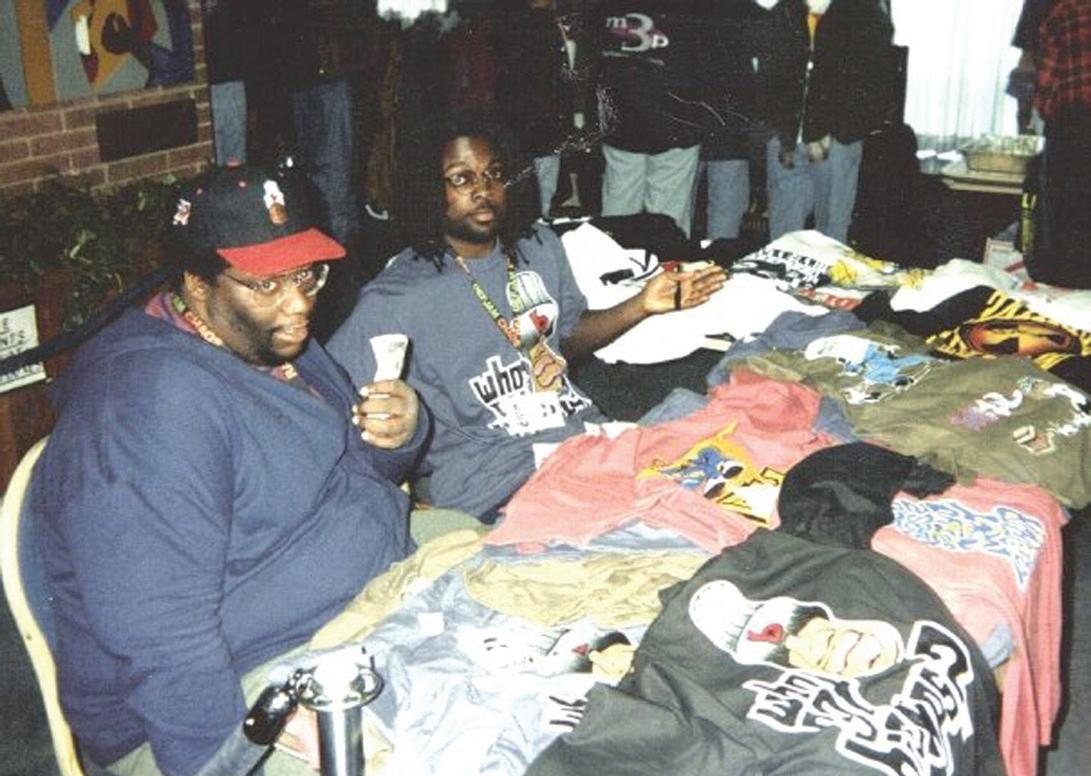
so they could release albums that would get broad distribution. “I remember the first time I heard De La Soul on ’HPK. I remember the first time I heard Das EFX on Rap City,” Wicks says. “I wanted somebody to have that feeling and be like, ‘Yo, I remember the first time I heard He Who Walks Three Ways.’”
To land a deal, He Who Walks Three Ways had to make demos. They recorded more times than Wicks can remember. Clark, the hype man, worked with producer Chris Csíkszentmihályi to help source samples. Wicks and Kalamka wrote lyrics, often bringing them to the rest of the group for feedback. Branch added turntable scratches and occasional backing vocals.
“While I was dreaming and hoping to be a musician one day, they were already doing it, and their lyrics and sounds were always on point,” says jazz flutist Nicole Mitchell, who was close with the group and later became the first female chair of the Association for the
Advancement of Creative Musicians. “Their tenacity and self-determination as young independent artists influenced me a lot.”
In spring 1994, Wicks and Clark flew to New York with a new four-track demo called Me, IBM, & the Baby Jesus to try to drum up label interest. They left a copy at Payday Records, whose founder, Patrick Moxey, had helped launch WHPK’s hip-hop programming while studying at the University of Chicago in the 80s.
“We got a call back from them. The guy—not Patrick Moxey, but a young intern—was interested,” Wicks says. “I guess he couldn’t get it past the next level, ’cause I never heard back from them. But it was exciting to get that one call.”
He Who Walks Three Ways did reach people with their music, even though they never succeeded the way Wicks dreamed they would. When I spoke to “Coolout Chris” Hawkins, he rapped the hook for their song “Virus”—he couldn’t remember the title, but he knew the cadence and lyrics perfectly.
Other people surely still know that song, which appeared on Me, IBM, & the Baby Jesus
A few years ago, Kalamka first heard the 2000 self-titled album by Deltron 3030, whose lineup includes Del the Funky Homosapien. Kalamka couldn’t help but hear similarities between his “Virus” and the Deltron song “Virus.”
O

scene commented on Branch’s sexuality. The rest of the group knew that she dated women, and they befriended her girlfriend at the time, Marguerite Harrold—Wicks considered her an honorary member of He Who Walks Three Ways. (Kalamka says that Harrold introduced the group to Living Colour front man Corey Glover—and that Glover wanted to get He Who Walks Three Ways a deal with Epic.)
Wicks remembers that when guys in the scene learned about Branch’s sexuality, they usually had the same response. “It’s like, ‘Oh, she’s gay? So what,’” Wicks says. “‘What’s her telephone number?’”
“Both Lori and Marguerite clocked the shit out of me,” Kalamka says. “And to their credit, they didn’t press me. But it was very obvious, and very clear, that they knew.” Kalamka had a more di cult experience navigating his bisexuality in the scene.
“Definitely at that point, it was a super machismo thing happening,” Wilks says. Hiphop was rife with casual homophobia, and not even conscious rappers were immune. Chicago rapper Common wrote in his 2011 memoir, One Day It’ll All Make Sense, that his earlier use of homophobic lyrics was a “huge blind spot on my consciousness.”
Kalamka wasn’t the only closeted man in Chicago hip-hop, of course. The AIDS crisis was still new when Schauer enrolled at the University of Chicago in 1982, so while he knew he was gay, he kept it quiet. He focused his energy on Chicago hip-hop. Though he’s white, he was put o in a way that he didn’t yet understand by straight white men playing rock music—he felt better in a community built by marginalized people. “I was such an outsider, and I was so welcomed,” Schauer says. “It was acceptance with no restrictions.”
n “Virus,” Kalamka peppers his boastful raps with metaphors that jokingly compare the irresistibility of his message to the insidious workings of various viruses—including HIV, a subject that the members of He Who Walks Three Ways knew well. By day, Branch worked at the Westside Association for Community Action as its director of HIV programs, and her role in He Who Walks Three Ways helped her with her advocacy work. She launched a youthoriented CAN TV show about HIV and hip-hop called Rap-It-Up, and she invited people she’d met in the scene to appear.For Kalamka, however, the scene began to feel restrictive, which affected his ability to participate. “I rarely freestyled—and I was good at it, coming o the top of the head,” he says. “I was afraid I was going to out myself.”
age 25, though by then he’d stopped making music—he wouldn’t pick up the mike again till after his move to California. “I was heartbroken about the dynamics of the scene and the culture that I was navigating,” Kalamka says, “being in a space where I couldn’t bring all the pieces of myself to the door.”
K
UPCOMING CONCERTS AT
4544 N
LINCOLN AVENUE, CHICAGO IL OLDTOWNSCHOOL.ORG •
NEW SHOWS ANNOUNCED • ON SALE NOW!
10/4 Cut Worms
9/28 David Longstreth (of Dirty Projectors) w/ special guest Sen Morimoto
Juneteenth Celebration featuring avery r young + de deacon board In Maurer Hall
alamka relocated to Oakland at the end of the 1990s. He met Deep Dickollective cofounder Tim’m West at a 1999 screening of Tongues Untied . As the group gained traction, Kalamka curated the first PeaceOUT World Homo Hop Festival in 2001. “There is no way that I would have navigated what I was able to be the center of—just as a curator and as a producer in the late-90s-through-mid2000s scene—if I had not had the experience with Duro, of Chicago, in that moment,” Kalamka says. “It was deeply instructional, on both what to do and what not to do.”FRIDAY, JUNE 16 8PM
Martha Wainwright with special guest Andrew Sa In Szold Hall
SATURDAY, JUNE 17 8PM
John Doe Folk Trio In Maurer Hall
THURSDAY, JUNE 22 8PM
Adeem The Artist / Jamie McDell In Szold Hall
In January 2006, Urb magazine spotlit Deep Dickollective in a feature hooked to a new documentary about queer hip-hop called Pick Up the Mic. Some of Kalamka’s old Chicago peers had yet to hear the news about his sexuality, and when it reached them, a few of them acted scandalized.

“Everyone was running up to me,” Wicks says. “Like, ‘Did you read Urb?’ I’m like, ‘Yeah, so what? What difference does that make? He’s still a dope MC.’”
Kalamka is still busy as an activist and musician. His latest project is a queer Bay Area nu-metal supergroup called Commando, where his bandmates include former Tribe 8 lead singer Lynnee Breedlove. Last summer, Steck flew out to the Bay to interview him for Catalyst.
FRIDAY, JUNE 23 8PM
Peter Asher & Jeremy Clyde In Maurer Hall
FRIDAY, JUNE 23 8PM
Darrell Scott In Szold Hall
SUNDAY, JUNE 25 7PM
Reverend Horton Heat with special guest Joel Paterson In Maurer Hall
“We were exposed to a lot of di erent things because of the work she did outside of the group,” Wicks says, “which I wouldn’t trade for anything, because it put me as a person in a position to be open-minded.”
For the most part, nobody in the hip-hop
Kalamka also began having misgivings about the music industry and the group’s drive to sign a record deal. When he read Steve Albini’s essay on major labels, “The Problem With Music,” in the June 1994 issue of Maximumrocknroll, it clarified those feelings. Kalamka had another realization when he and Clark first heard Beck’s “Loser.” “I turned to Ron and said, ‘That’s what the fuck I want to do,’” Kalamka says. “‘That motherfucker sounds like he’s having fun.’”
He Who Walks Three Ways broke up in late 1994. Kalamka came out the following year, at
Kalamka has a sharp memory, which I discovered during my own interviews with him. He doesn’t just remember that He Who Walks Three Ways shared a bill with Common, or that after the show Common pulled over a van to talk to him—he can also tell you the nearest intersection (Randolph and Wabash). And he retains a clear sense of the significance of the the Lower Links series that he and his fellow travelers nurtured.
6/21 La Tosca
6/28 Arpa Cafe
X • SUPERCHUNK • REAL ESTATE LALA LALA • SLOW PULP DIVINO NIÑO • MOMMA ELEVENTH DREAM DAY COSMIC COUNTRY SHOWCASE JON LANGFORD & SALLY TIMMS ETRAN DE L'AÏR • DISQ • GABACHO SPLIT SINGLE • MUCCA PAZZA BRIGITTE CALLS ME BABY MOONTYPE • LOS VICIOS DE PAPÁ + MUCH MORE FULL LINEUP AT SQUAREROOTS.ORG A Real Nice Music & Craft Be S eet Fest
@imLeor
v
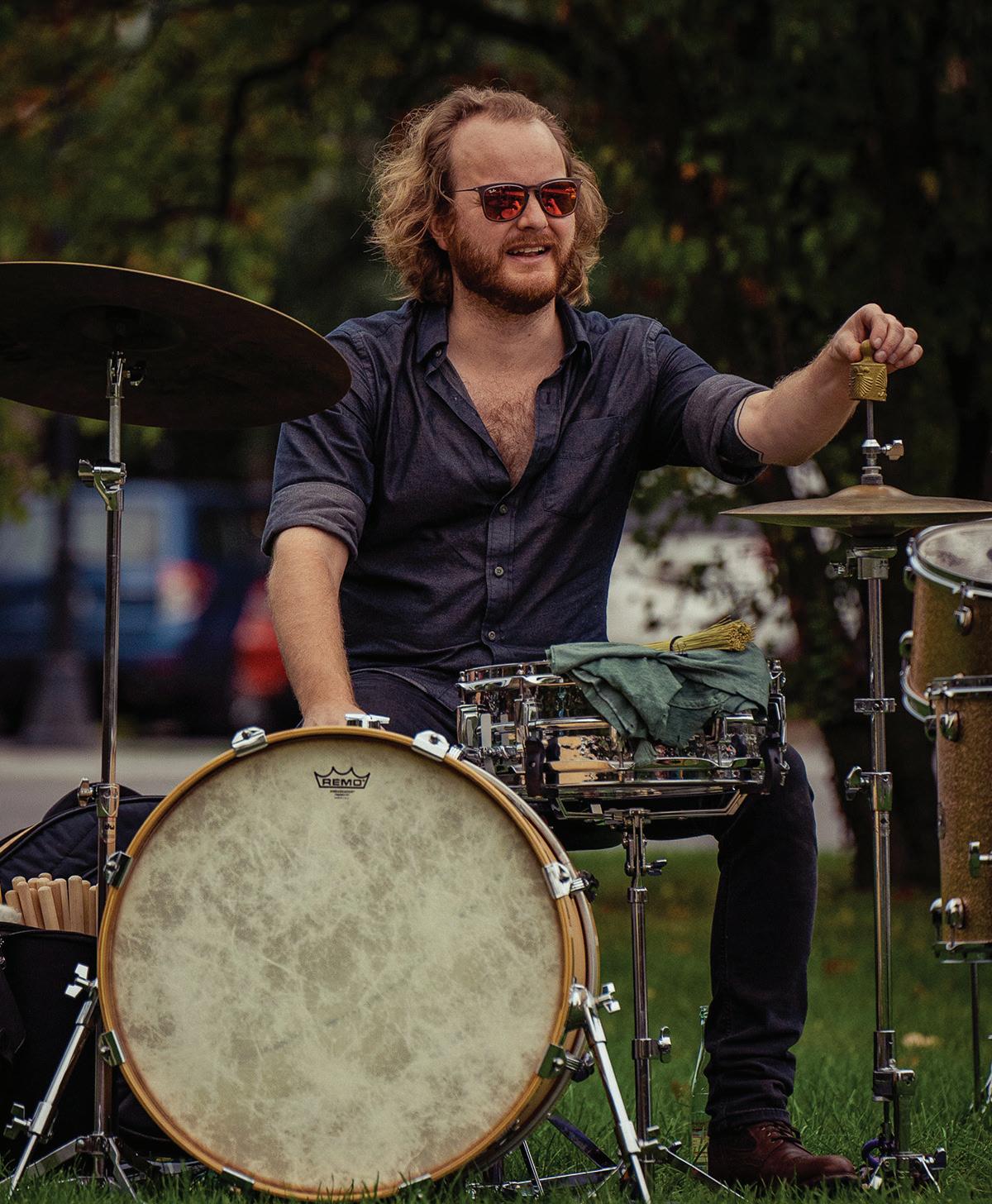
“I’d like to see a strong community here, for everything. I don’t want scenes to have walls up between each other.”
As told to LEOR GALIL
Pittsburgh native Bill Harris moved to Chicago in 2011 because he wanted to play improvisational and experimental music. Four years later, the drummer, engineer, and composer launched Amalgam, a record label that also serves as an umbrella for a loose creative collective. He’s released plenty of his own work via Amalgam, including solo recordings, a couple releases by his ongoing collaboration with Ishmael Ali and Jeff Kimmel (who play cello and clarinet, respectively, in both cases augmented by electronics), and the debut album from eclectic fusion ensemble Je’raf (where he plays drums and the occasional keyboard). Harris also helps run a West Loop recording studio called Marmalade, founded in 2020.
Harris has several upcoming local gigs, including three Thursday shows as part of the long-running improvised music series at Elastic Arts: June 29 in a quartet with saxophonist Dave Rempis, pianist Pandelis Karayorgis, and bassist Jakob Heinemann; July 6 in a trio called Near Miss with saxophonists Rob Magill and Gerrit Hatcher; and July 27 in a solo set.
Iwas talking to a friend the other day—we were trying to figure out what to focus on, because there’s always a lot of things going on. Playing a lot of improvised music, it’s easy
to get pulled into ad hoc stu —which is really important, necessary, and fun—but if that happens too much, it’s hard to lean into the projects you want to do. I’m trying to pare that down.
This group I play with, Je’raf, is something I’m really trying to focus on these days. We’re actually recording our new record right now. I’m trying to book some shows for it and maybe do a tour for it this fall or next spring
or something. Kind of trying to focus on the groups I’m in. There’s another one with Ishmael Ali and Je Kimmel. We don’t really have a name yet, but that group has three records out, so we’re trying to lean into that. I’m trying to do more of my solo work—learning a lot from this [recent] tour. And stu with Amalgam, trying to figure out what to do with that and make it more like a community resource tool and not so much of a label. Those are my
focuses at the moment.
I started [Amalgam] in 2015. I started to get more involved with the improvised experimental community in Chicago; I was seeing a lot of younger folks doing what I thought was really important work and not really getting recognized by anybody. I was hearing a lot of frustration about people sending work to labels and people to help produce music and not getting any response.
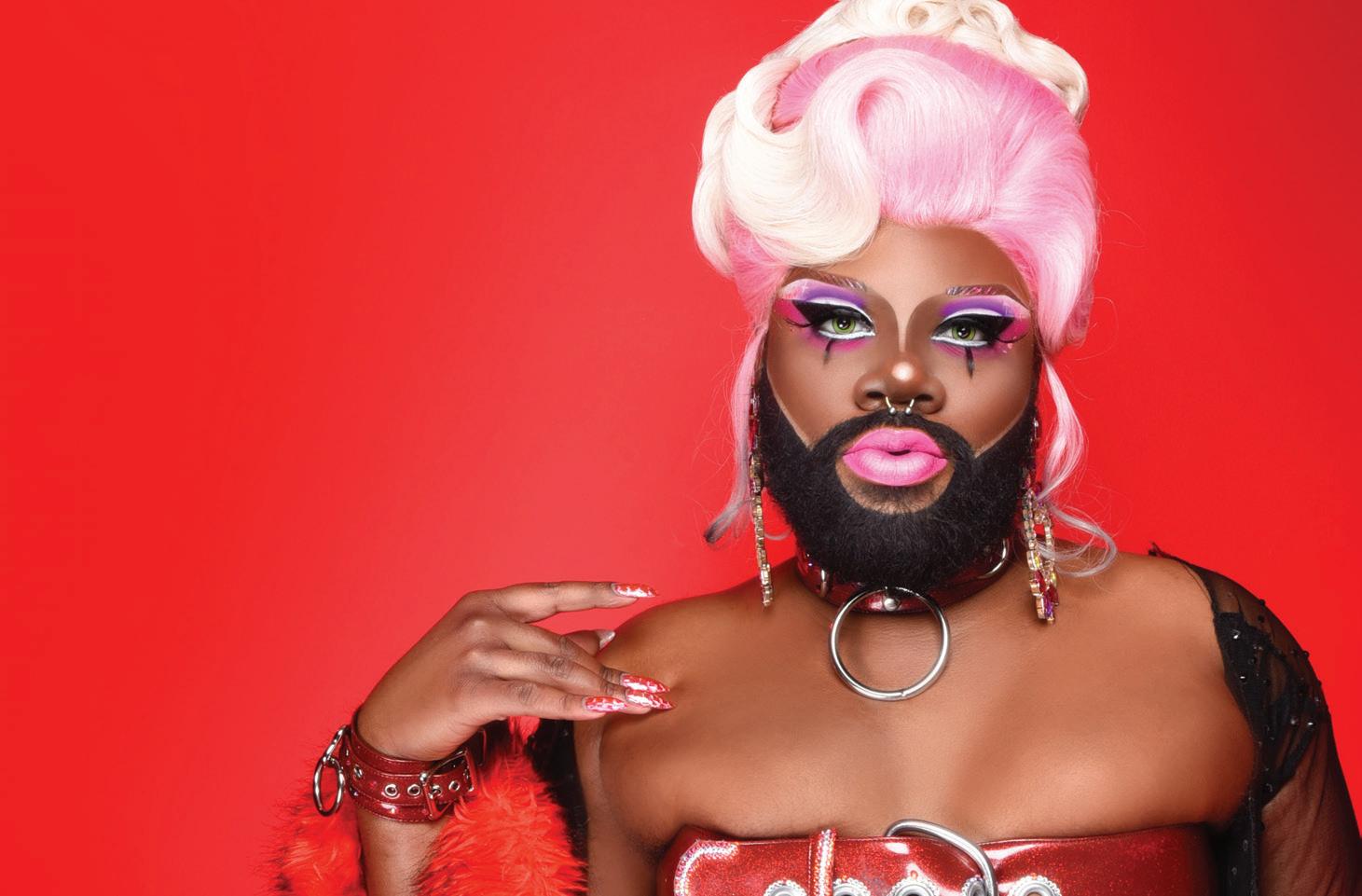
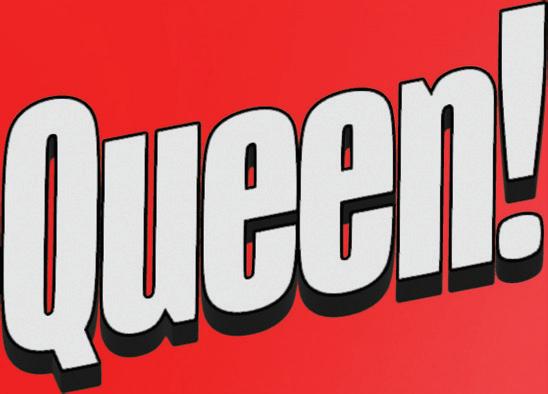

continued from p. 50
What we were seeing happening, and still see happening, is a lot of resources float to the top to this very select group of musicians and improvisers—which is kind of counterintuitive to the whole ethos of improvised music, like, breaking down these power structures. The goal was, “OK, well, no one’s checking this out, let’s create our own thing.”
I created it with the intention of it being a collective of creative folks in Chicago. It’s kind of morphed into more of a label, which I still don’t really want it to be. I don’t want to be a curator or an arbiter or someone that’s making creative decisions.
Ishmael is a close friend and collaborator of mine, and he’s involved with Amalgam at the moment. Another friend, Eli Namay—who I’ve played with in a million things—was part of it, but he just had twins and he’s kind of at capacity at the moment, so he’s taking a little break with the music stu .
This year we had guest curators—Allen Moore, Carol Genetti, Keefe Jackson, Emily [Rach] Beisel—and we’re gonna keep doing this every year, where we ask guest curators to take the keys of Amalgam and do whatever they want with it, whether it’s their own project or some project that someone has contacted them about or whatever. They have free rein. Only one of them has been released this year: Emily’s [album Particle of Organs]. Some of the other stu has been delayed—it will be coming out soon. So we’re trying to open this up to more people curating it, rather than just
me and Ishmael or just me.
That was the goal of it, was to be this platform community tool—or at least that’s what I want it to be. The long game thing of, “The more we do it, the bigger the body of work gets, the more people will notice it.”
My parents were very musical people— they were always listening to music. My dad was a guitar player—not professionally; he was always jamming with his friends. My mom won’t admit it, but she’s an amazing singer. And my sister was always really into music, and she was someone I actually followed; anything she liked, I liked. She got me into punk rock very young—younger than I probably should’ve been listening to that music. I always thought my sister was the coolest, and so any music she checked out, I would check out.
My sister wanted to play drums. My parents got her a drum set, and she never touched them. So then I started messing around with them and had a knack for it and started taking lessons. That’s how I got into drums—playing in high school bands, punk bands, and rock bands. I didn’t go to school for music or anything, but just kind of continued that selfeducation as time went on.
I went to school in Ohio for computer science and math. I was living there after I graduated; I had gotten a job there. I actually still work for that same company—it’s been 14 years. My partner at the time, she had gotten a job in Chicago. I was really itching to get out of
Ohio, because there’s, like, nothing at all interesting going on there, at least where I was living, for culture or music—experimental music especially. We moved to Chicago in about 2011, and I had no idea what was going on here. I had known about the rock and punk scene and DIY scene here, but I didn’t know about the AACM or Umbrella Music. I fell into it, just being thirsty for experimental music.
I didn’t know anyone here when I moved here. It wasn’t until about 2015 that I actually started to meet folks. I always felt really shy and weird about asking people to play. There was this weekly series at Constellation called Sound of the City, and it was a strictly freeimprovised jam session, and I met a lot of people through that.
At one point, there was another series called 3 on 3 that Constellation was running. Mike Reed would ask three different people to put together groups that had never played together, and they would have a concert. He asked me to do that one day, and I was like, “Oh God, I don’t know anybody.” So I asked Jake Wark and Matt Piet to play with me, and that’s how [our trio] Four Letter Words came about. Then I just started to meet more people, going to shows. It was a slow process for me.
I’ve really come to appreciate the cross-community thing here. As a curator, running shows, I’m very much interested in it just not being improvised music. Working with a lot of DIY folks and noise folks and seeing that overlap there is really, really exciting to me. And also seeing people open to that.
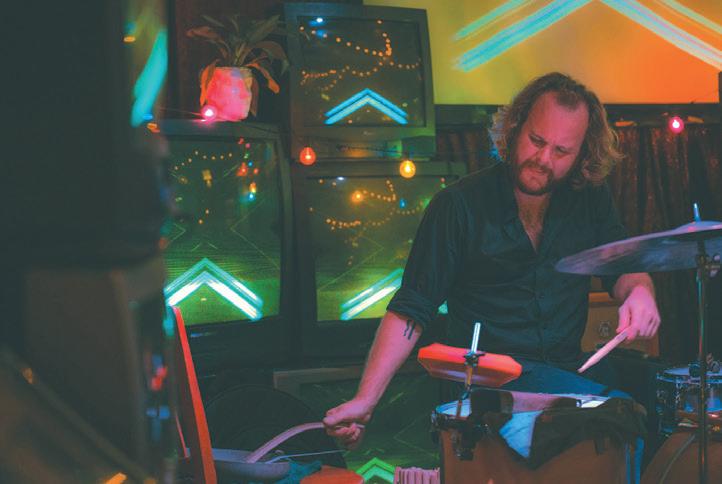
I feel like in some other cities, that really doesn’t happen—people are so down their own lane, aesthetically, that they don’t really work with people outside their own aesthetic. I’m talking off-the-cuff here, but I feel like in Chicago, it’s been strong. I’ve come into my creative sense here in Chicago, and I feel ensconced here. I can’t imagine doing it anywhere else.
In improvised music, often there’s not, like, grooves, but I really love playing groovebased music, and I think there’s something
really cathartic about the drums. It’s a really open instrument, in terms of timbre—you can get a lot of sounds out of the drums. It’s really fun. It’s a huge sound palette, which I really enjoy. The drums are such an old instrument, historically, and have been around for a long time in di erent types of music, and it’s really fun to see how you can morph that instrument into something new—or do something new with it, which is really di cult. What hasn’t been done on the drums yet?
I’d like to see a strong community here, for everything. I don’t want scenes to have walls up between each other. I see it amongst people I work with, and I’d like to see more of that. Amalgam has gotten a lot of traction since 2015, and I’d like to give those resources to other people that are our peers and people I believe in artistically. It’s not commercially viable music, so it’s like, “How do you get noticed?” But then the people who are quote, unquote popular or big in this kind of music, it seems like a lot of things are funneled to those people. I think if people can kind of jump onto this thing that already has traction, that can be really useful for uplifting everyone in this boat.
I think we need some new places to play this kind of music. A lot of stu closed up over the pandemic. There’s the classic places, like Constellation, the [Hungry] Brain, Elastic, and [Cafe] Mustache. I love these places, but it’d be nice to see some new places in new neighborhoods open up.
That’s another thing that me and Ishmael talk about a lot: the location of these venues and what sort of things can open up. A lot of stuff is on the north side or the northwest side, but where else can we open up venues and what kind of crowd can that bring out? What kind of musicians can that bring out? What does that do to accessibility? I’d like to see some new series pop up—not just me and Ishmael, but everybody we know that has the capacity to start a series, go to a new venue. That will be really awesome to see.
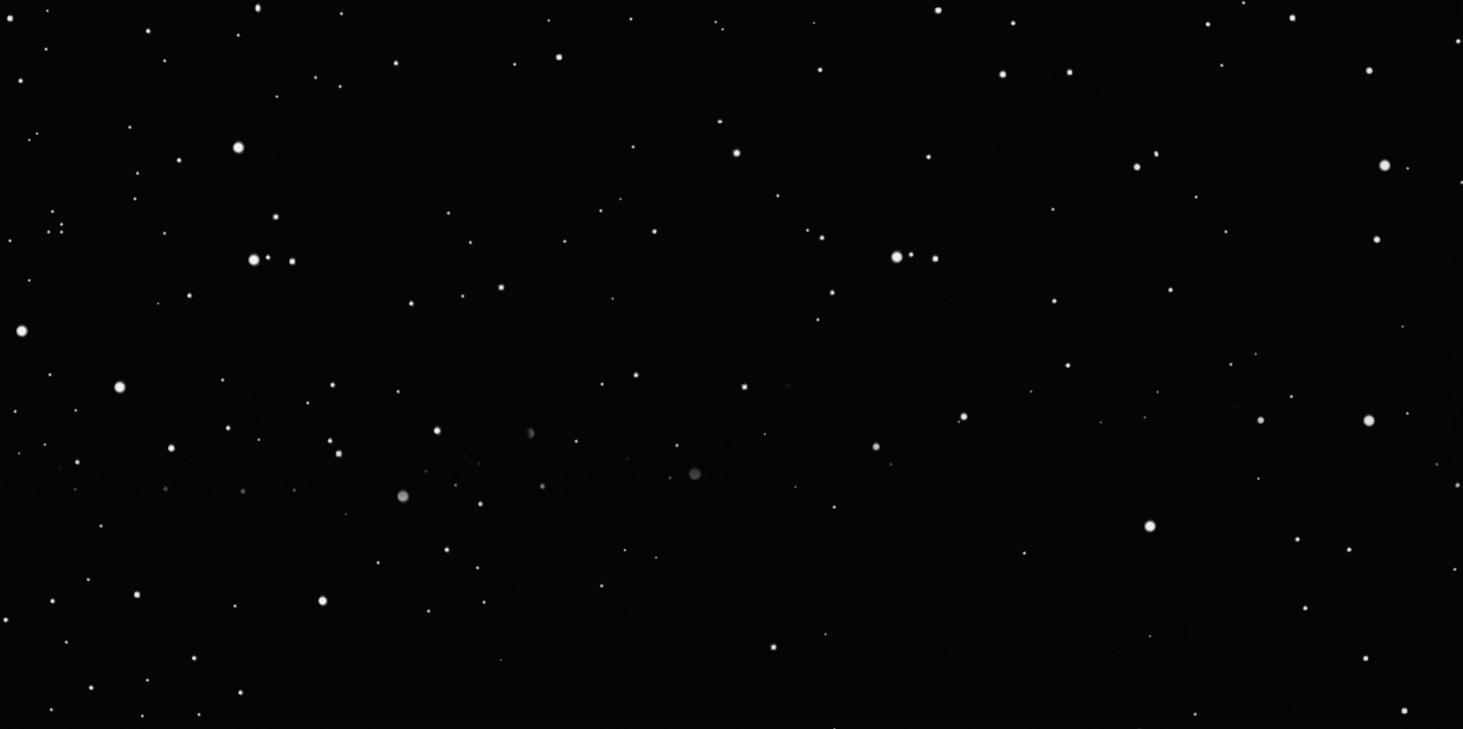




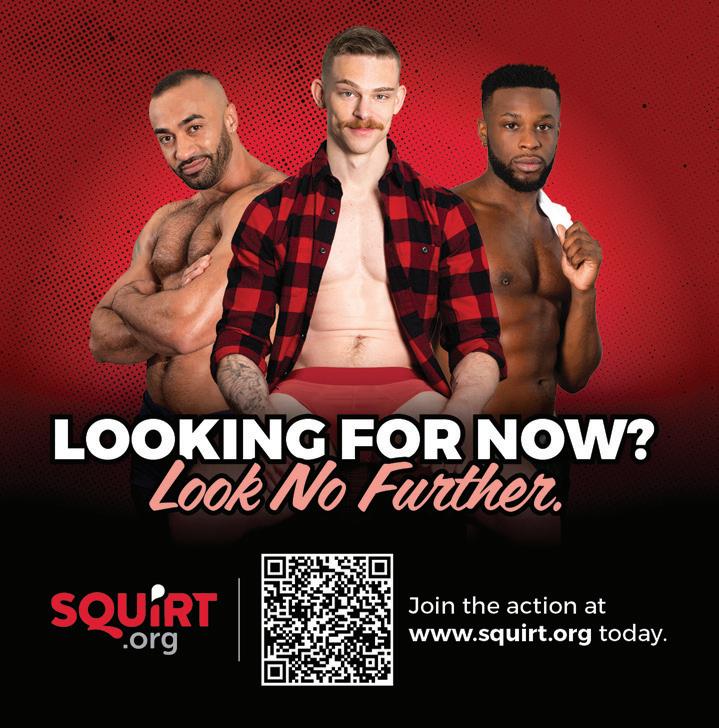

Aaron Lee Tasjan Mooner opens. 8 PM, Golden Dagger, 2447 N. Halsted, $30, $25 in advance. 21+
Aaron Lee Tasjan’s 2021 album was called Tasjan! Tasjan! Tasjan! (New West). The title captures the singer-songwriter’s exuberance and hints at his eclecticism—his records pack in so many different styles that listening to one can feel like you’re shuffling between three. Based in East Nashville, he’s perhaps most associated with roots music, per his “East Nashville Song About a Train” from 2015’s In the Blazes (First of Three). But his first band, Semi Precious Weapons, played glam rock, and since they split up in 2014 he’s dabbled in a bit of everything—folk, jangle pop, classic rock, talking blues. On “12 Bar Blues,” from 2016’s Silver Tears (New West), he pairs an extended disquisition on working-class poet Philip Levine and a New Orleans trumpet solo. Whatever style Tasjan is exploring, he always tops it off with remarkable guitar playing and lyrics so loopy you could miss how smart they are. The Tasjan! Tasjan! Tasjan! track “Dada Bois,” an anthem about his bisexuality that also synopsizes his approach as an artist, feels like his most elliptical but direct statement of purpose yet. While the music seesaws from folksy, earnestly schmaltzy piano to tinkly musical theater to odd touches of psychedelia, he belts out, “My heart is wild but it’s true / Beating like a speeding train for you / I love anyone it tells me to.” His recent tours have featured him in front of a backing band, and onstage he plays guitar and keyboards, projecting a charismatically nerdy persona—loose and eager to express every Tasjan he’s got inside him.
—NOAH BERLATSKYSat 6/17 and Sun 6/18, noon-10 PM, Midway Plaisance, 59th and Cottage Grove, $99-$129 single-day pass, $179-$209 two-day pass. b
OVER THE PAST decade, Hyde Park Summerfest has transformed a small craft-beer event in a parking lot into one of the most anticipated outings of the summer. Now in its ninth o cial year, this labor of love by founder Jonathan Swain, creative director Dave Je , and recent partner Nosa Ehimwenman (president and CEO of Bowa Construction) has grown into a massive two-day a air. In 2022 the festival welcomed more than 25,000 people, and this year organizers anticipate 20,000 each day. The lineup rivals the city’s biggest festivals. Day one features a headlining set by Clipse, the long-running hip-hop group of sibling rappers Pusha T and No Malice—they’ve performed as a duo only twice in the past decade, so this is a rare treat. Other highlights include South Africabased DJ and producer Uncle Wa es, veteran hitmaking powerhouse 2 Chainz, and not-so-local hip-hop duo Mother Nature. Day two boasts more heavy hitters, among them rap pioneer Lil’ Kim, Brooklynite Lola Brooke (whose breakout single, “Don’t Play With It,” dominated 2022), and genre-bending keyboardist and producer Robert Glasper, whose
Black Radio III won a Grammy for Best R&B Album in February.
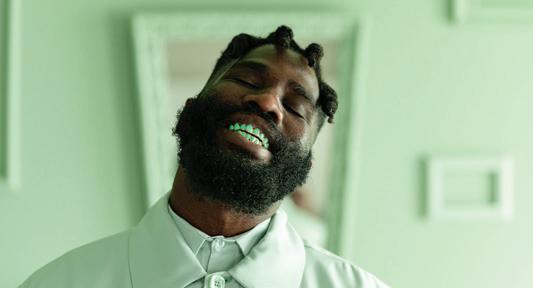
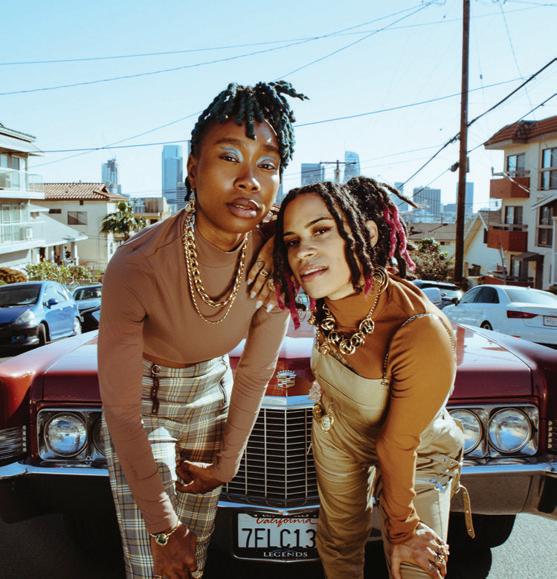
As if that weren’t impressive enough, the festival also hosts a celebration of the 50th anniversary of hip-hop on its second day—a cluster of local trailblazers performing under the name “Chicago Hip Hop 50.” This once-in-a-lifetime extravaganza includes speed-rap virtuoso Twista (quietly one of rap’s most influential artists), eclectic Save Money rapper-activist Vic Mensa, Chicago rap godmother Shawnna, and two of the city’s most esteemed groups: Crucial Conflict, whose late90s multiplatinum album The Final Tic helped put Chicago hip-hop on the map, and Do or Die, who achieved mainstream success in 1996 with the groundbreaking platinum single “Po Pimp.” Chicago has volumes of hip-hop history, and Hyde Park Summerfest has created a perfect opportunity for a proper lesson (or, for fans of a certain age, a refresher course). This year’s lineup emphasizes and honors some of Chicago’s finest artists alongside well-curated global acts and puts a positive light on the south side. —CRISTALLE BOWEN
Enter the Mirror: A Celebration of Les Rallizes DéNudés A four-piece band consisting of John Dwyer backed by Tom Dolas, Drew St. Ivany, and Bill Roe headlines; Cindy Lee, Steve Gunn, Who Is the Witness?, Oui Ennui, and Cafe Racer open. 5:45 PM, Bohemian National Cemetery, 3969 W. Bryn Mawr, $45. b
You could call Les Rallizes Dénudés a “cult band’s cult band,” but I suspect that this Japanese group’s subversive energy and mysterious mythos could lure any curious weirdo into their orbit. Led by guitarist and vocalist Takashi Mizutani, the group formed in Kyoto in 1967, and in their early years they mixed the Velvet Underground’s lo-fi avantpop experimentalism with transcendent psychedelic rock and dreamy folk. According to the lore that surrounds the band, they never played their songs the same way twice, and their shows were often punishing, disorienting sonic and visual assaults as intense as their radical left-wing politics. Founding bassist Moriaki Wakabayashi has remained in self-imposed exile in North Korea since assisting in the 1970 hijacking of Japan Air Lines Flight 351
by a militant communist group, and Mizutani had a history with members of the same organization. It’s widely assumed that paranoia and anguish about the hijacking led Mizutani to go into hiding for years, but Les Rallizes Dénudés nonetheless continued to perform on and off until the mid-1990s. They never released a studio album, so that the main way their fervent international fan base grew was via myriad live bootleg recordings. Writing for NPR last year, Matt LaJoie acknowledged that the bootleggers may not all have been crass profiteers—some of them may have genuinely wanted to share amazing music that would otherwise be nearly impossible to hear. But for Mizutani, LaJoie concluded, the result was the same either way: “an insatiable international fanbase buying up recordings he never wanted released; his visionary work stripped from his hands without control or compensation.”
In 2021 the first official Les Rallizes Dénudés website appeared, and soon it posted an announcement that Mizutani had passed away in 2019 and that former members of the group had created a company called the Last One Musique. In an interview with the Quietus, producer and former LRD bassist Makoto Kubota explained that the company’s purpose is twofold: to remaster and reissue the archival live recordings Les Rallizes Dénudés had released via the Rivista label in the early 90s and to preserve Mizutani’s musical legacy (a large cache of tapes was discovered in his Kyoto home after his death).

Last year, Kubota collaborated with Temporal Drift to officially release the Rivista material and more, and in celebration, the Los Angeles label has teamed up with Empty Bottle Presents for this concert outside the mausoleum at Bohemian National Cemetery. The evening will feature LRDinspired sets by a mix of unconventionally minded artists, including prolific local electronic explorer Oui Ennui, Brooklyn-based singer-songwriter Steve
Gunn, Chicago psych rockers Cafe Racer, midwest noise-blues collective Who Is the Witness? (Tim Kinsella, Jenny Pulse, Whitney Johnson, and Jon Mueller), and Toronto noise-pop artist Cindy Lee. The climax of the night will be a Les Rallizes Dénudés covers set by a band of psychedelic fuzz adventurers: John Dwyer (Osees), Tom Dolas (Mr. Elevator), Drew St. Ivany (the Psychic Paramount), and Trouble in Mind co-owner Bill Roe (CoCoComa).
—JAMIE LUDWIGSATURDAY17
Hyde Park Summerfest See Pick of the Week at le and the entry under Sun 6/18. Day one of this two-day festival features Clipse, 2 Chainz, Uncle Waffles, Oxlade featuring Libianca, Terry Hunter, Alex Isley, All Summa, DJ Diesel, Mother Nature, Philmore Greene, Redcup Karaoke, DJ BG, Protege, DJ Ca$h Era, DJ RTC, and DJ Ringo. Noon-10 PM, Midway Plaisance, 59th and Cottage Grove, $99-$129 single-day pass, $179-$209 two-day pass. b
SUNDAY18
Hyde Park Summerfest See Pick of the Week at le and the entry under Sat 6/17. Day two of this two-day festival features Lil’ Kim, Tobe Nwigwe, Robert Glasper, Chicago Hip Hop 50 (Vic Mensa, Twista, Shawnna, Crucial Conflict, Do or Die), Jonathan McReynolds, Lola Brooke, Jay Illa, Omen, Mustafa Rocks, Boolu Master, Nosike, Kid Clay, Duane Powell, Dee Jay Alicia, Verbal Kwest, Tye Hill, and 3 Snapz. Noon-10 PM, Midway Plaisance, 59th and Cottage Grove, $99-$129 single-day pass, $179-$209 two-day pass. b
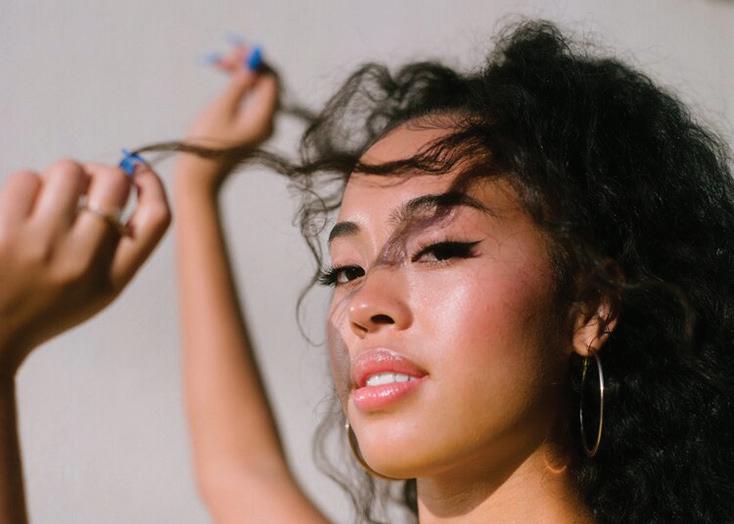
Joyce Wrice 8 PM, Subterranean, 2011 W. North, $25. 17+
Joyce Wrice draws from a deep well of classic 90s R&B. The Los Angeles singer’s 2021 single “On One,” from her self-released debut album, Overgrown , recalls the days when Mary J. Blige and Brandy reigned the airwaves and MTV. The grooves of its slick bass line burrow deep, providing a topographical foundation over which Wrice’s firm, graceful voice flows like a river. Overgrown is rife with similarly unassailable, addictive songs. On “Losing,” string arrangements adorn a shuffling drumbeat, and when Wrice declares, “Baby, you don’t deserve me,” her delivery makes the line feel like positive self-talk. The song isn’t just a kiss-off—it creates a space for wrestling with complicated emotions, and its soft atmospherics open a door into her headspace.
Wrice’s ability to use her voice to convey specific feelings has been apparent since the 2016 EP Stay Around . “Home Alone” captures the tender sensuality of California summers in its gossamer production, as well as in the way Wrice transforms the line “I worry too much” from the top of one verse to the next—she moves from slight reluctance to full-on acceptance of a fling. Her vocal command is also clear on the Japanese remix of “That’s on You,” which combines lyrics in English and Japanese; when she places the bumpier textures of Japanese phonology against smoother English words, it feels like a hand running down a lover’s spine. Wrice’s mother is Japanese and her father is Black, and as a teenager in the early 2000s she was inspired by biracial Japanese singer-songwriter Crystal Kay— this track is Wrice’s most arresting navigation of her own dual identity.
Last year Wrice released the five-track Motive
EP. Her voice on lead single “Iced Tea” sounds full and self-possessed as it de ly moves between bravado and effortless cool. “Bittersweet Goodbyes” feels made for a ernoons lounging in the beating sun, while gauzy slow burner “Lookin for Ya” is suited for the ecstatic haze of hot, humid dance floors. Her Subterranean show couldn’t have arrived in a better season. —JOSHUA
MINSOO KIMWater From Your Eyes Floatie and Options open. 9 PM, Sleeping Village, 3734 W. Belmont, $12. 21+
Is it bad form to claim Water From Your Eyes for Chicago? The duo of vocalist Rachel Brown and multi-instrumentalist Nate Amos, who released the buzzy album Everyone’s Crushed last month on Matador, live in New York City—but they met and formed Water From Your Eyes in Chicago in 2016 and issued their first full-length album in ’17 through local indie Sooper Records. Everyone’s Crushed reminds me of the eclectic spirit of Chicago’s DIY scene with the odd shapes that leap out of its songs like varmints from a Whac-a-Mole machine: the seesawing, clashing guitars that interlock and collide on “True Life,” for instance, and the metronomic sample of what sounds like a processed blurt of tinny piano on “Barley.” Amos contributed to that scene as a musician (most notably with the solo project This Is Lorelei) and as an engineer (I’m a fan of his work with postpunk jesters Kevin and Hell), and in Water From Your Eyes he helps those shapes congeal into euphoric electronic pop. Some passages remain rocky and lumpy, as though not all of their parts have been digested, but Brown’s soothing voice and dry delivery smooth out the hard angles. Everyone’s Crushed is brief enough to feel densely
continued from p. 55
compressed, and its music leaps among moods like a pinball. Water From Your Eyes harness this chaos so that the tender, simple “14”—the album’s longest, most relaxed song—arrives as a disarming curveball. I’m never quite sure what to expect from this band, and that’s half the fun.
—LEOR GALILIcewear Vezzo 6:30 PM, the Promontory, 5311 S. Lake Park Ave. W., $35, $30 early bird, $130 meet and greet, $250 couch section for up to eight people. b
The Detroit Pistons promoted their 2021-’22 season with a campaign called “We Hustle Different,” which aimed to build civic pride in part with hal ime performances by local rappers. “It’s always super important for us to be authentic to the city, to the fans, to the community,” the team’s senior vice president of marketing, Alicia Jeffreys, told the Detroit Free Press. The Pistons found an authentic Detroit voice in Icewear Vezzo, who performed a couple times at Little Caesars Arena, including in November 2021. I’ve found a YouTube clip from that game of Icewear performing “Up the Scoe,” his collaboration with Chicago drill icon Lil Durk, and even though it sounds murky and terrible, I love it. You can barely hear the sneaky synth stabs and booming jump-scare bass of the song’s malevolent instrumental, which makes it hard to appreciate how Icewear’s rapping bobs through it, and his voice doesn’t sound much like the weathered groan on the studio version—but you can easily see how at ease Icewear is at center court. To me, this confirms his status as a Detroit star who’s blowing up to national fame a er dropping more than a dozen mixtapes in a decade.
Last July, Icewear included “Up the Scoe” on Rich
Off Pints 3 (released via his own Iced Up Records), and five months later he dropped Paint the City , an entry in DJ Drama’s long-running Gangsta Grillz mixtape series (via big-time Atlanta hip-hop indie Quality Control). I particularly like the variety of instrumental colors on Paint the City —the subtle funk horn flair and trunk-rattling bass on “Ain’t No Turning Back,” the smoky trumpet sample on “Bad Days,” the stentorian bells on “Ghost Music.” Icewear raps over all of it with the energy of an MC eager to make another dozen mixtapes.
—LEOR GALIL
Yo La Tengo 6:30 PM, Metro, 3730 N. Clark, $35. 18+
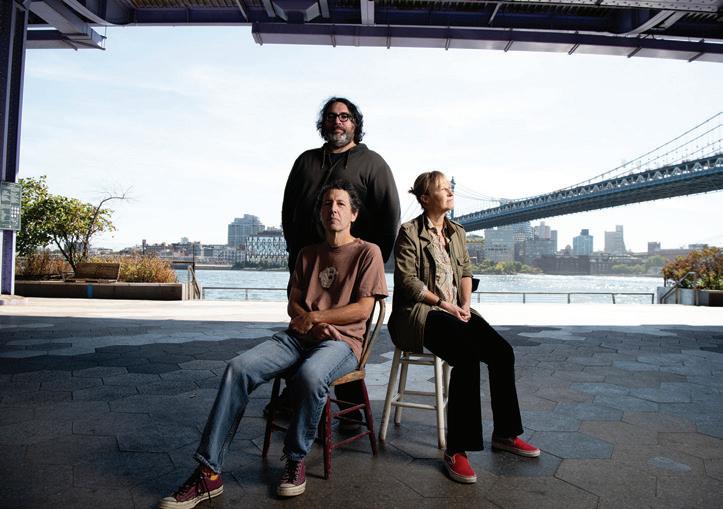
Yo La Tengo’s latest album, the double LP This Stupid World (Matador), arrives 37 years after their first, but time isn’t the only chasm that separates them. The band’s 1986 debut, Ride the Tiger (Coyote), is a charmingly game expression of fandom by a pair of pop-music enthusiasts, Ira Kaplan and Georgia Hubley, who obtained a lot of their results by relying upon the songs and playing of others. This Stupid World , on the other hand, is absolutely self-contained. Hubley and Kaplan, who are married, turned Yo La Tengo into a stable trio with the addition of James McNew in the early 1990s, and while each has a favorite instrument (drums, guitar, and bass, respectively), they all sing and play everything. The three of them wrote, performed, and recorded the new album’s ten songs without any outside input, flexing their well-practiced command of indelible melody, astute observation, and fearless improvisation. The songs articulate perspectives and experiences that have likewise been acquired over decades: the sadly graceful “Aseles-
tine” mourns a loved one’s slow fade; the percolating “Apology Letter” reckons with the consequences of a stubbornly lifelong case of foot-in-mouth disease; and the paradoxically gentle vocals that float over the title track’s feedback-laden stomp acknowledge our frightening political divisions and remind us that this world is the only one we have. In concert, Yo La Tengo can be counted upon to mix new material with deep cuts going back to their earliest records. They’re also likely to reconnect with their fannish roots by playing music written by other people, o en with the help of old friends who happen to be in the area. When Yo La Tengo played Chicago in March, Wilco joined them for several songs, and it’s anyone’s guess what sort of surprises they have in store this time.
—BILL MEYERWednesday Squirrel Flower and Tenci open. 7 PM, Metro, 3730 N. Clark, $25, $20 in advance. b
I pay attention whenever Chicagoan Owen Ashworth releases music through his Orindal Records label, and not just because I like his indie-pop project Advance Base. Orindal’s back catalog is a murderers’ row of indie artists, some of whom the label got behind very early in their careers: Julie Byrne (who will release The Greater Wings in July via Ghostly International), Friendship (who put out last year’s Love the Stranger through Merge), and Gia Margaret (who dropped Romantic Piano via Jagjaguwar last month). And then there’s Wednesday, a North Carolina five-piece who issued two albums through Orindal in 2020 and ’21, then made the leap to Dead Oceans to put out one of the most celebrated indie-rock releases of 2023, April’s Rat Saw God . Wednesday draw from distinctive
rock styles—the new album adds a southern-rock twang to shoegaze’s horizon-cloaking hum—but they don’t blend together those sounds so much as apply them discretely, like the colors that turn a white T-shirt into a tie-dyed trip. Front woman Karly Hartzman sings (and bellows and quakes and whispers) with an ache that gives her detailed, novelistic reflections a lived-in feel. I haven’t been to Wednesday’s hometown of Asheville since the 1990s, but Rat Saw God gives me a feeling for where they’re from and who they are—and with songs this swaggeringly strong and densely inventive, they’d be the year’s breakout rock band no matter where they lived.
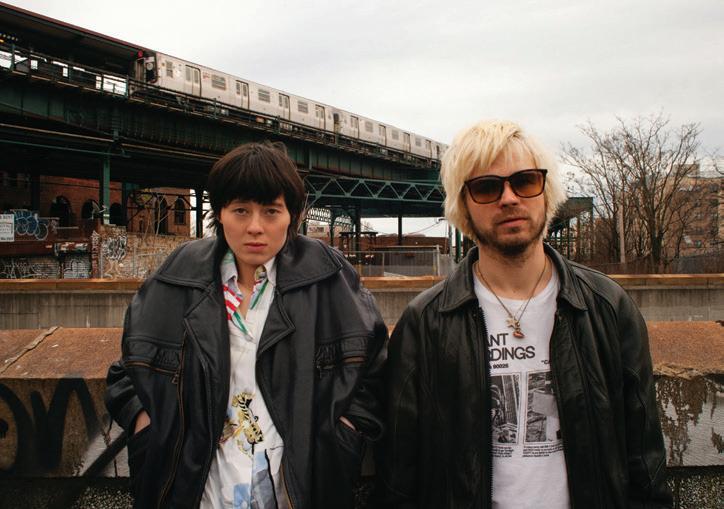 —LEOR GALIL
—LEOR GALIL
Chicago Symphony Orchestra, Contemporary American Composers CSO Resound symphonystore.com/products/contemporaryamerican-composers-muti
Italian maestro Riccardo Muti has served as the Chicago Symphony Orchestra’s music director since 2010, but he’s never quite managed to outrun his detractors’ most stubborn criticisms, even when they’re exaggerated or unfair: He doesn’t do enough contemporary music. He’s too much of a traditionalist. During his tenure, he embraced the orchestra but never Chicago. The list goes on.
Muti is stepping down from his role this month, but he’ll remain the orchestra’s guest of honor for the foreseeable future, guiding the organization through its search for his replacement. And with the brand-new Contemporary American Composers (CSO Resound), his last album with the CSO in his official capacity, he gives his critics a decisive shove. This remarkable album opens with Jes-





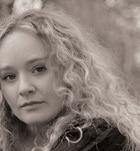















continued from p. 56
sie Montgomery’s Hymn for Everyone, the first time a CSO composer-in-residence’s music has been recorded by the ensemble since the era of Mason Bates and Anna Clyne nearly a decade ago. (Montgomery relocated from New York to Chicago last year, so she’s literally “in residence” these days.) It continues with Three Lisel Mueller Settings, a 2018 song cycle composed by CSO violist Max Raimi. This kind of spotlight on an orchestra member is all but unheard-of in the classical world, but Raimi’s haunting, heartbreaking, uncannily hopeful work (crowned here by the expressive might of mezzosoprano Elizabeth DeShong) is wholly deserving of that boost.
Likewise, the ever-traditionalist Muti conducting a symphony by minimalist Philip Glass probably wasn’t on anyone’s 2022 bingo card. But last February’s performances of Glass’s Symphony No. 11 crackled—as have Muti’s unexpected affinities with American symphonists such as Bates and Florence Price. Interpreters tend to prioritize Glass’s o eat hypnotism, as though looking down on his music from space: this smooths out its topography, renders its lines crisp and neat, and shrinks its emotional furrows to ant-size inconsequentiality. That God’seye view frames the only other commercial recording of the symphony, by conductor Dennis Russell Davies and the Bruckner Orchester in Linz, which has long been Glass’s first port of call for his largescale works.
Here, Muti and the CSO dare to zoom in on the details. Why shouldn’t a repeated phrase be sumptuously shaped, as though on each recurrence we’re hearing it for the first time? Why do we so often
forget that Glass, during his formative teenage years at the University of Chicago, soaked in not just modernists like Prokofiev and Bartók but also Romantic symphonists like Bruckner and Mahler? If this is Muti’s final recorded word with the CSO, it’s a powerful mike drop.
 —HANNAH EDGAR
—HANNAH EDGAR
godflesh1.bandcamp.com/album/purge
Industrial-metal pioneers Godflesh have been reunited for 14 years, which is exactly how long they were together when they revolutionized heavy music from the late 80s through the early 2000s. Just as that symmetry presents itself, so do the band’s explorations of musical concepts. Formed in Birmingham, UK, in 1988 by multi-instrumentalist (and former Napalm Death guitarist) Justin Broadrick and bassist and programmer B.C. Green, Godflesh combined crushing, dissonant riffs with monstrous, distorted vocals and powered it all with a mechanical-sounding Alesis drum machine to create what the world now knows as industrial metal. They released their punishing landmark debut album, Streetcleaner , in 1989, and spent the next couple years tampering with and honing their style on a pair of EPs. On their second record, 1992’s Pure, they changed focus, pushing their electronic rhythm components to the foreground, incorporating more samples, and upping the influence of hiphop and techno on the beats that drive the songs forward. This move allowed Godflesh to operate effectively in two musical realms: raw metal (2001’s
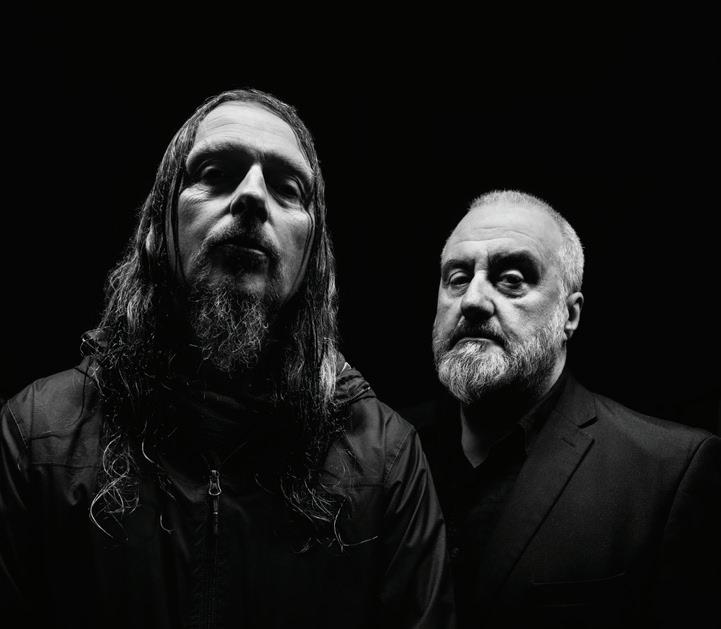
Hymns and their 2014 comeback release, A World Lit Only by Fire) and electronic (1999’s trip-hoppy Us and Them).
The brand-new Purge (released on Broadrick’s Avalanche imprint) is Godflesh’s third record since they reunited in 2009 and their ninth studio LP to date, and it’s a deliberate callback to Pure . The album’s spacey beats, electronic sheen, droney walls of guitars, inhuman throb, and hypnotic samples recall the band’s ’92 reinvention, but modern technology makes them sound just as big, heavy, mean, and powerful as any group that claims them as an influence. Godflesh can expel bad energy with their eerie, ferocious music, and with Purge they do more than enough of that to keep Fleshheads happy.
—LUCA CIMARUSTIUgli, Girldick. Self-released mybandisugli.bandcamp.com/album/girldick
The dream of the 90s is alive in Ugli. The Philly four-piece’s latest EP, Girldick. , throbs with filthy bass lines, fuzzy guitars, and shimmers of distortion that borrow generously from Bleach -era Nirvana and their musical contemporaries. In five quick hits, Ugli take advantage of all the space that rock music can provide for contradiction and pain. But while the grunge musicians of the past famously liked their street drugs, especially heroin and weed, Ugli’s tracks are fueled by another substance: spiro, short for spironolactone, a prescription pharmaceutical whose uses include blocking testosterone receptors. Singer Dylyn
Durante explores varying contours of melancholy and alienation from a transfemme perspective. On the track “Spiro.,” she centers that drug. Of all the hormone blockers that can be prescribed to support feminine medical transition, spironolactone is the most common—and it’s famously punishing when taken at dosages large enough for that therapeutic purpose. Durante bemoans spiro’s pronounced side effects—for starters, intense dizzy spells as well as significant loss of muscle and sex drive. “Do I look dainty yet?” she screams at the song’s breakdown. “Do I look femme / Do I look dainty yet / Time for more pills again.” At the end, she wails with escalating intensity, “I take spiro / I take spiro / I take spiro / God, I hate spiro.” But in a one-size-fits-all medical system assailed by fascists working to ban gender-affirming health care, the hell demon that is spiro is an often inevitable component of medical transition. Quitting isn’t an option.
As grueling as transition can be, though, that pursuit of selfhood comes with wisdom and freedom. On “Flatsoda.” Durante talks about knowing when it’s time to let go, while “Crybabi.” pairs defiant pop-punk flourishes with descriptions of a lonely wistfulness that guides her to a Garden of Eden where she can be gay and do crimes. Against an anthemic push-pull of gritty guitar, she exalts, “Yeah / Yeah / I don’t want to go home.” Girldick. is over too soon, but it embodies an all-too-timely sense of confusion, beauty, and mayhem. It’s everything you could hope for in a summer soundtrack that charges past trans remembrance straight to trans rage.
—MICCO CAPORALE v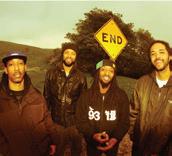
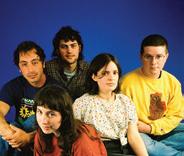
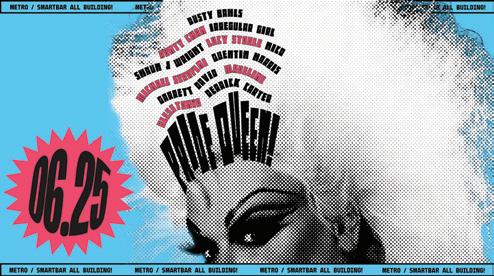
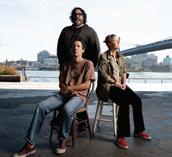

Snitzer Orchestra 7:30 PM, the Vic, 18+
THU 8/24
Lil Baby, Kid Laroi, Glorilla, Gloss Up, Rylo Rodriguez, Hunxho 7 PM, United Center b
FRI 8/25
Detroit Cobras, Sugar Tradition, All Seeing Eyes 10 PM, Empty Bottle Heavy Heavy, Tobacco City 8:30 PM, Thalia Hall, 17+ Jonas Brothers 7:30 PM, Wrigley Field b
MON 8/28
The Body, Troller, Dead Times 8 PM, Sleeping Village
WED 8/30
Toosii 7 PM, House of Blues b
THU 8/31
Toosii 7 PM, House of Blues b
SAT 7/1
Loma Prieta, Porcupine, Frail
Body 8 PM, Beat Kitchen, 17+ Violet Crime, Jacob Sigman, Weekend Run Club, Zoe Brown 8 PM, Subterranean, 17+
Wave Chapelle, Nilexnile, Freejay, Rell Shaw 8:30 PM, Hideout
THU 7/6
Bubble Tea & Cigarettes
8 PM, Schubas, 18+
Near Miss, Keefe Jackson & Norman Long Duo 8:30 PM, Elastic b
FRI 7/7
Modern Nun, Keep for Cheap, Biitchseat, Burr Oak 8 PM, Sleeping Village
Scarface, Slim Thug 9 PM, House of Blues, 17+
FRI 7/8
Lustsickpuppy, Johnnascus, Casper McFadden 7 PM, Subterranean b
THU 7/13
Protomartyr, Stuck 8 PM, Thalia Hall, 17+
Sir Woman 9:30 PM, Hideout
FRI 7/14
K Camp 8 PM, Park West, 18+
SAT 7/15
Kansas 7:30 PM, Chicago Theatre b
TUE 7/18
Alicia Keys, Libianca 8 PM, United Center b
WED 7/19
Slutbomb, Heet Deth, Fall Children, Greed Worm
8 PM, Sleeping Village
WED 9/27
They. 8 PM, Bottom Lounge, 17+
THU 9/28
Fiddlehead 6:30 PM, Metro, 18+
FRI 9/29
George Clanton, Frost Children, Death’s Dynamic Shroud 9 PM, Metro, 18+
THU 10/5
Violent Femmes 7:30 PM, Riviera Theatre b
FRI 10/6

FRI 7/21
Boney James, Lalah Hathaway, Damien Escobar 8 PM, the Venue at Horseshoe Casino, Hammond
Snoop Dogg, Wiz Khalifa, Too Short, Warren G, Berner, DJ Drama 6 PM, Credit Union 1 Amphitheatre b
SAT 7/22
Beyoncé 7 PM, Soldier Field b
SUN 7/23
Beyoncé 7 PM, Soldier Field b
MON 7/24
Des Rocs 8 PM, Subterranean, 17+
Jill Scott 7 PM, Chicago Theatre b
TUE 7/25
Lomelda 8 PM, Schubas, 18+ Jill Scott 7 PM, Chicago Theatre b
SAT 7/29
Good Life, Speedy Ortiz 10 PM, Beat Kitchen, 17+
WED 8/2
Dope Lemon, Beaches 9 PM, Park West, 18+
Noah Kahan, Richy Mitch & the Coal Miners 9 PM, the Vic, 18+
Joy Oladokun, Pony Bradshaw 9 PM, Lincoln Hall, 18+
THU 8/3
Band-Maid, Beauty School Dropout 11 PM, Park West, 18+
Edition Redux 8:30 PM, Elastic b
Peach Pit, Annie DiRusso 11 PM, the Vic, 18+
Morgan Wade 11 PM, Reggies Rock Club, 17+
FRI 8/4
Ivan Cornejo, Arath Herce 11 PM, Park West, 18+
The Garden, Sincere Engineer 11 PM, Thalia Hall, 17+
The Rose, Isabel LaRosa
11 PM, the Vic, 18+ Morgan Wade 11 PM, Reggies Rock Club, 17+
SAT 8/5
Magdalena Bay, George Arthur Calendar 11 PM, Park West, 18+
Neil Frances 11 PM, Lincoln Hall, 18+
Sudan Archives, Harry Edohoukwa 11 PM, Bottom Lounge, 17+
SUN 8/6
Poolside 11 PM, Lincoln Hall, 18+
THU 8/10
Tim Daisy’s Vox 4 8:30 PM, Elastic b
FRI 8/11
Paul Cherry, Mattson 2, Jaguar Sun 8 PM, Schubas, 18+
SAT 8/12
Blessthefall, Caskets, Kingdom of Giants, Dragged Under 6 PM, House of Blues b
WGCI Summer Jam featuring Lil Durk, Kodak Black, NLE Choppa, DD Osama 7 PM, United Center b
THU 8/17
Godly the Ruler 9 PM, Sleeping Village
FRI 8/18
Nickelback, Brantley Gilbert, Josh Ross 6:30 PM, Credit Union 1 Amphitheatre b

SUN 8/20
Jeff Goldblum & the Mildred
SUN 9/3
Daniel Caesar, Montell Fish 8 PM, Salt Shed, 17+
THU 9/7
RBD 7:30 PM, Guaranteed Rate Field b
FRI 9/8
Boris, Melvins, Mr. Phylzzz 7:30 PM, Metro, 18+
RBD 7:30 PM, Guaranteed Rate Field b
SAT 9/9
Leyendas Legendarias 8 PM, the Vic, 18+
TUE 9/12
Public Memory 9 PM, Empty Bottle
WED 9/13
Chevelle, Three Days Grace, Loathe 5:30 PM, Aragon Ballroom b
THU 9/14
Janelle Monáe 8 PM, Aragon Ballroom, 17+
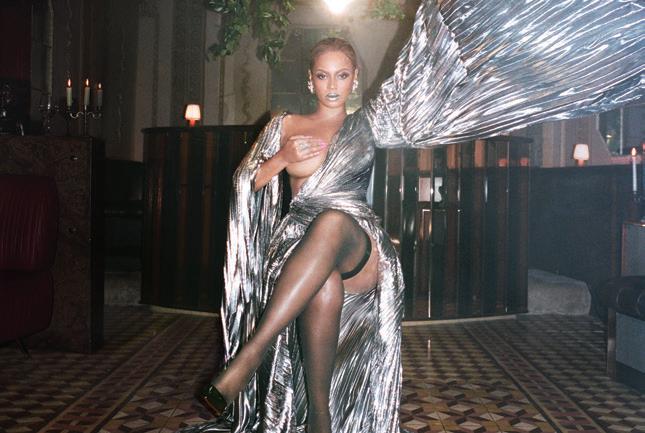
FRI 9/15
Katelyn Tarver, Rosie Darling 8 PM, Beat Kitchen b
WED 9/20
Reaganomics, Subjunctives, Bad Year, Mulva 8 PM, Reggies Music Joint
SAT 9/23
Royal Blood, Bad Nerves 7:30 PM, Riviera Theatre b Zebra, Donnie Vie 8 PM, Reggies Rock Club, 17+
SUN 9/24
Teddy Swims 7:30 PM, Riviera Theatre b
Lauren Sanderson 7 PM, Bottom Lounge b
SUN 10/8
Wonder Years, Anxious 5:45 PM, Riviera Theatre b
TUE 10/10
Raye, Absolutely 7:30 PM, Riviera Theatre b
FRI 10/13
The Darkness 7:30 PM, the Vic, 18+
SUN 10/15 Model/Actriz 8:30 PM, Hideout
WED 10/25
Nightly, Knox, Nightbreakers 7 PM, Metro, 18+
THU 10/26
Christine & the Queens 7:30 PM, the Vic, 18+
SUN 10/29
Pedro Capó 7:30 PM, Park West b
WED 11/1
Ben Howard 8 PM, Riviera Theatre, 18+
SAT 11/4
Hiss Golden Messenger, Sylvie 7:30 PM, Metro b
THU 11/9
Kesha, Jake Wesley Rogers 8 PM, Aragon Ballroom, 17+
FRI 11/10
Hällas, Freeways 8 PM, Reggies Rock Club, 17+
TUE 11/14
Jeremy Zucker 7:30 PM, Riviera Theatre b
FRI 11/17
Palehound, Alexalone 10 PM, Empty Bottle v
HOW COULD Gossip Wolf not love new Chicago trio Razed by Apes ? Their lineup includes members of some of this wolf’s favorite knuckleheaded local hardrock and punk bands—veteran drummer Patrick “Rusty” Gloeckle , for instance, has played in Satan’s Hallow, Midnight Dice, and Hitter, among others. Gloeckle, bassist Casey Moffitt , and guitarist Jared Mileger knock out the kind of meaty, working-class jams that make Chicago’s punk scene one of the world’s best. In March, Razed by Apes dropped their debut, the four-song mini album Stereo Warm Mood. “Fred Hampton’s Ghost” and “I Would Prefer Not To” combine chunky riffs, sing-along choruses, and an iconoclastic sense of local color and place that recalls the likes of Naked Raygun and Dillinger Four. On Thursday, June 15, Razed by Apes play a record- release show at Cobra Lounge with support from Present Company, Gazebo Effect, and Josephine. Gossip Wolf can hardly believe it’s been ten years for Bric-a-Brac Records & Collectibles . On Sunday, June 18, the shop throws a free block party for its tin anniversary on North Dawson, around the corner from its location at 2845 N. Milwaukee. Owners Jen Lemasters and Nick Mayor have booked a terrific lineup, including Heet Deth, Beh’Ouai, Human Errors, and Auggie the 9th —plus an appearance by the inimitable Grelley Duvall . The party runs from noon till 7 PM.
The Chicago teen indie-rock scene most visibly represented by Horsegirl and Lifeguard has a new member: last week a band called Deerest Friends debuted with Lamb Leaves Pasture. The lo-fi fivepiece includes folks from Dwaal Troupe (Francis Brazas and Desi Kaercher) and Post Office Winter (Will Huffman), and their shambolic album stitches rickety acoustic instrumentation to ambitious, quasi-symphonic arrangements. Deerest Friends sound poised to expand on what Elephant 6 started all those years ago. —J.R.
NELSON AND LEOR GALILGot a tip? Tweet @Gossip_Wolf or e-mail gossipwolf@chicagoreader.com.















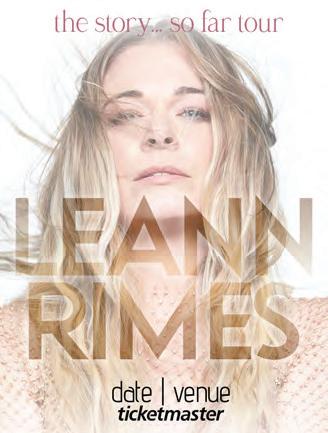

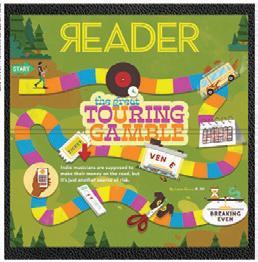



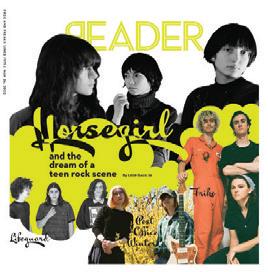


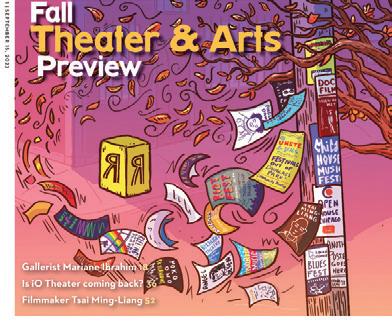





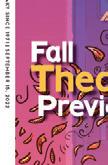







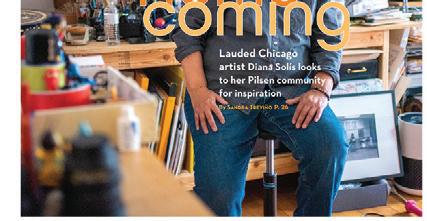
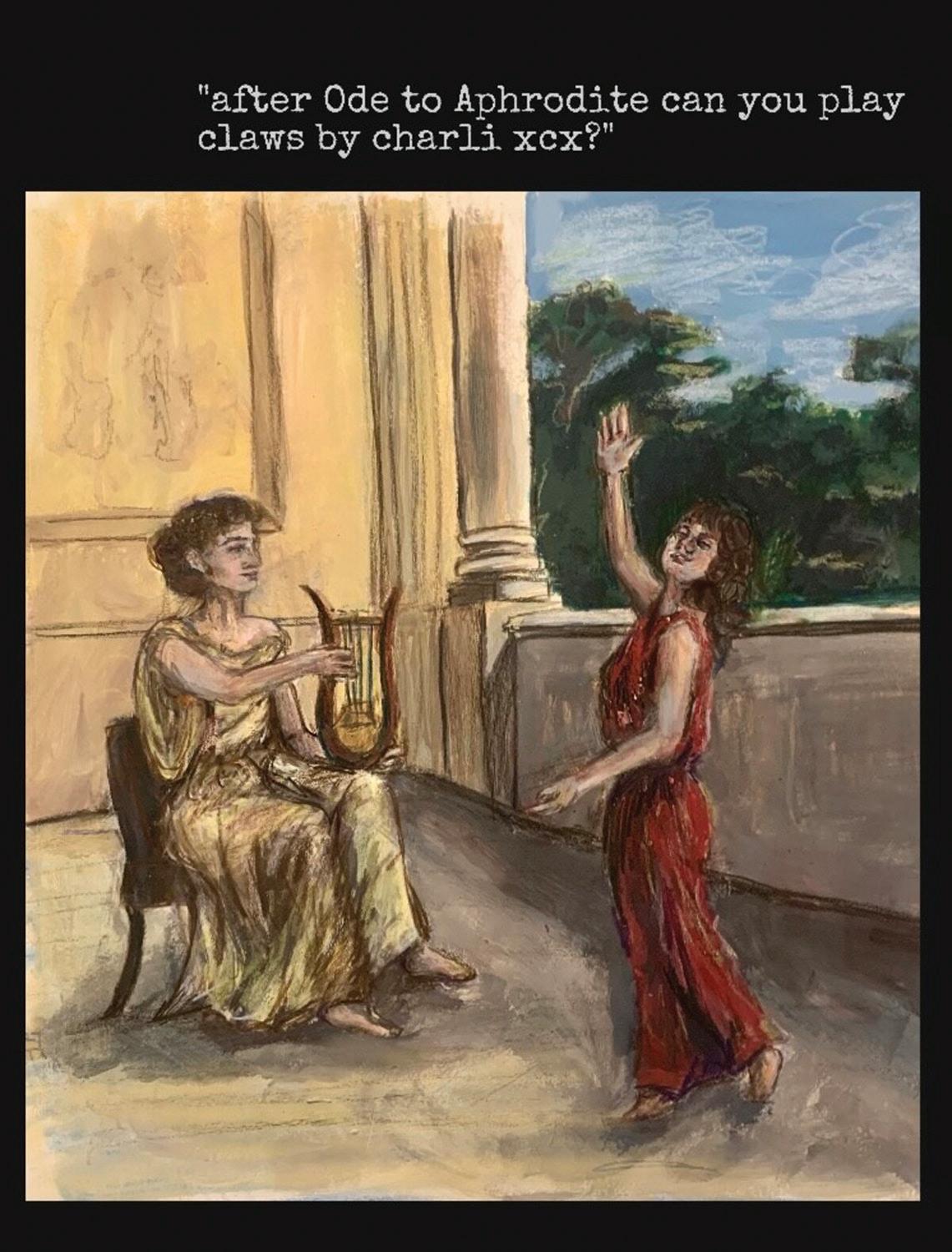


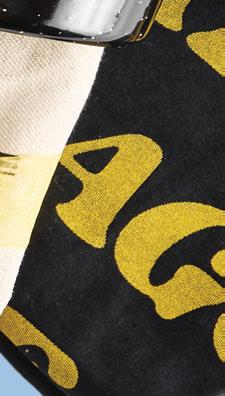


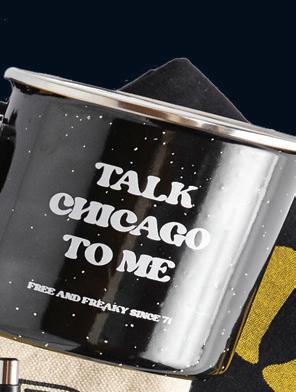
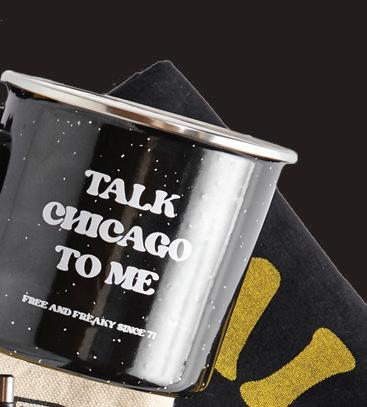
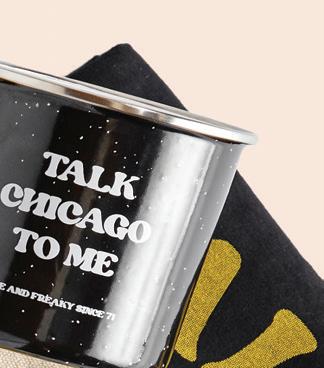

male’s anus strengthen the sphincter?
a: In all honesty, I don’t know—but that’s never stopped me from telling a guy I’m fucking that doing kegels is a good idea.
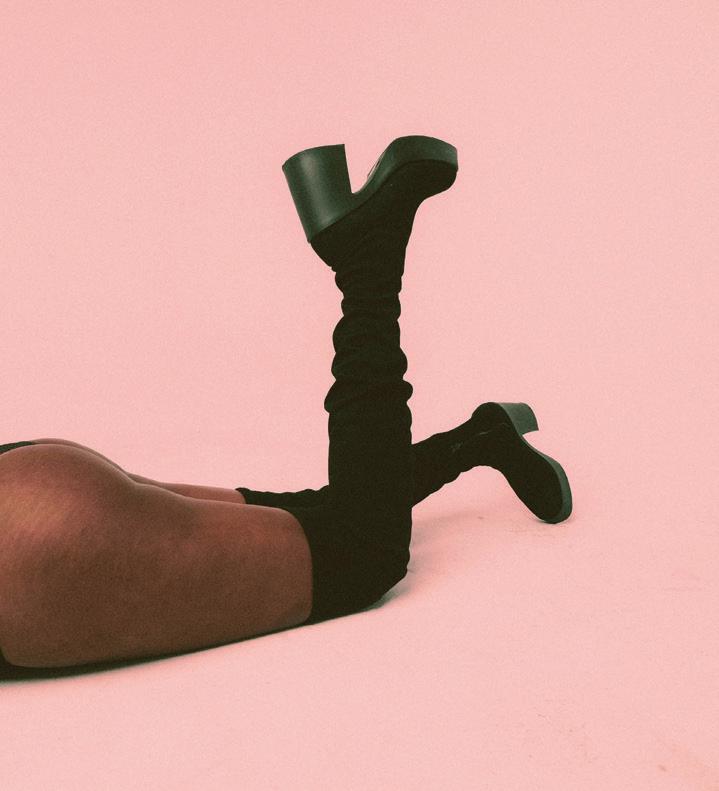
Q: Do you prefer boxers, briefs, or boxer briefs on men?
a: I’m an ABT guy myself— anything but thongs.
Q: How does one deal with emotional discomfort during sex?
however when I try to bottom for other men, I find that experience super itchy and uncomfortable. This doesn’t happen when I use toys and I have no idea why. Is this some kind of anal vaginismus?
Tate, alpha male, and incel content online has turned my attraction to men into a revulsion. I am literally attracted to no one, and I hate it. What should I do here?
Q : Is it good to see your ex naked?
a : Well, it depends If you’re on good terms with your ex and seeing your ex naked (looking at old pictures, swapping new ones, having breakup/friends with benefits sex) doesn’t keep emotional wounds incurred during the relationship open and bleeding (making it harder for you and/or your ex to heal and move on) and see-
ing your ex naked doesn’t bother your current—if you have a current—then seeing your ex naked can be great.
Q: I have genital herpes, but I’m asymptomatic. Panic or no big deal?
a: Herpes is not a big deal for most people with herpes—most people with HSV1 or HSV2 are likewise asymptomatic—so, don’t panic. I’ve done a few
episodes of my Lovecast on herpes with Dr. Ina Park, a professor at the University of California San Francisco School of Medicine and medical consultant at the Centers for Disease Control’s division of STD prevention. Dr. Park discusses the stigma versus the reality, disclosure versus nondisclosure, treatment options, and more.
Q: Does performing kegels with a cock or dildo in a
a: Well, it depends Before I go any further, a lot of “sexperts” will tell you to stop at the first sign of emotional discomfort . . . but unlike a lot of “sexperts,” I’ve actually had sex. And this may come as a surprise to some of my readers . . . I actually have some sexual hangups. (Places I don’t like being touched, things I don’t like to do, words I don’t like to be called, etc.). And if I called off sex whenever I experienced mild-to-middling emotional discomfort, I would’ve missed out on a lot of sex (and a few relationships) that turned out to be pretty good or even great. So, instead of ending things at the first sign of mild emotional discomfort, try saying things instead—try communicating in the moment— and if the person you’re with quickly corrects course and your discomfort passes, you’ll most likely be glad you didn’t call it off. If your emotional distress is severe, obviously call off the sex.
Q: I’m a cis gay man that really enjoys his sex toys,
a: “Itching can be due to an allergic reaction, an STI, or lack of lubrication,” said Dr. Carlton Thomas, a gastroenterologist and gay health expert. “Sometimes the hair on genitals can create an itchy sensation depending on their length. In this case, I wonder if our person is using condoms and might be allergic to the latex.”
Q: I’m a straight woman who’s in love with a gay man who is also my cousin, but he was adopted so we aren’t genetically related. He’s the most amazing human being I’ve ever met. I don’t think it’s reciprocated but he is very sweet to me. I constantly fantasize about him passionately kissing me. Is this something people live with?
a: The fact that this guy is your cousin isn’t the biggest hurdle you face— his homosexuality is a much bigger obstacle—and other than waiting for it to pass, there’s really nothing you can do about this unrequited crush. There are no magic words that will turn your cousin straight or turn him into . . . not your cousin. An unrequited and/or unrequitable crush is a kind of madness, but one most people recover from in time.
Q: All of the Andrew
a: You should stop looking at Andrew Tate, alpha male, and incel content.
Q: I’m a straight man and a wannabe fag. I want to be forcibly feminized and fucked by dominant gay alpha males. But I need to be forced because I am too weak to really do it. How can this happen to me if I can’t ask for it? Asking for it would ruin it.
a: Gay men do a lot of crazy things . . . but gay men don’t go around kicking down doors and then forcibly feminizing and fucking any straight men they find cowering behind them. To find a gay guy who wants to do that shit to you—and there are gay men who would be into it—you’re going to have to ask for it. Then, once you find a guy who wants to top you, you’ll have to do what everyone else with elaborate sexual fantasies involving force and submission has to do: suspend your disbelief and pretend that the panties and ass fucking wasn’t your idea all along.
Q: Lesbian/all-women sex parties. Are they a thing?
a: They are—but they’re a less common thing than gay/ all-men sex parties. People like to debate about why gay sex parties are ubiquitous and lesbian sex parties are few and far between
It pays to be honest, sincere, direct, and polite when navigating relationships.
1MILLIDOLLARS/UNSPLASH
(socialization, slut shaming, sex differences, testosterone, etc.), but debates don’t make lesbian sex parties happen. People with the ovaries to throw them do.
Q: How do men identify who are only into men/cock sexually? No attraction on the street.
a: Some identify as bi, some as pan, and a small handful identify as phallophiles—that is, people who are attracted to penises but not the men they (almost always) come attached to.
Q: Lots of “bi” guys I’ve met will suck cock but don’t want to kiss men. What’s up with that?
a: Congrats, you’ve encountered the not-atall elusive bi-identified


phallophile in the wild. No need to put “bi” in scare quotes; a phallophilic bisexual is a perfectly valid bisexual, and you got your dick sucked, didn’t you?
Q: A er hooking up with a rando, isn’t it polite to say “Thank you,” and “You were great” a erward?



a: Just as it’s polite to say, “Everything was great, thanks,” when the waiter comes to take your plate a er you’ve finished, it’s polite to say, “That was great, thanks,” a er finishing up with a rando. Some people worry that being polite might give a rando the wrong idea—that they’re interested in seeing the rando again—and others are so overwhelmed by shame a er casual/anonymous/ rando sex that they can’t be
polite. People who can’t be polite to randos (and grateful for randos), or have to take their self-loathing out on randos, should stay home and masturbate instead.
Q: One snorer and one light sleeper, long-term relationship. How do we share a bed?
a: You don’t—separate bedrooms, if you can afford it, a pull-down bed or pull-out couch in the living room if you can’t.
Q: How do I get my male partner to be comfortable pulling out? I’d love to get rid of condoms.
a: You send him to Planned Parenthood’s information page on the pull-out method (effective for preventing pregnancy when done
correctly), you show him the box of Plan B emergency contraception you already have in your medicine cabinet in case he doesn’t pull out in time, you assure him that you will get an abortion if you wind up getting pregnant, and you move to a blue state if you aren’t already living in one so you can get an abortion if you wind up getting pregnant.
Q: Is there any empirical evidence that there are more “tops” or “bottoms” among gay men?





a: Tons of evidence, but it’s all anecdotal—and seeing as the U.S. Census only started asking about cohabitating same-sex couples in 2020 (with no other questions touching on sexual orientation or gender
identity), it’s going to be a long time before they add “top, bottom, or vers?” to the U.S. Census.

Q: My semen has gotten very thick. I’m 39. Can I thin it out somehow? I think I’m hydrated.



a: You can dilute it by mixing it with another man’s semen . . . but that’s probably not the answer you wanted.
Q: An everyday object that can be repurposed for some sexy fun time (wooden spoon = spanking paddle) is called a “pervertable.” But what do you call an item intended to be used during sex that can be used for non-sexy things? I have a nubby “sensation dildo” that is entirely too pokey for me but it’s fabulous for docking pizza dough or pie crusts. (Docking here means
“poking lots of tiny holes to prevent giant bubbles.”) Any suggestions?
a: A sex toy used for a non-sexual purpose could be called an “ex-toy” (when permanently reassigned for non-sexy use) or a “flextoy” (when temporarily used for non-sexy purposes). A pervertable that gets returned to everyday use— say, a wooden spoon that gets returned to a drawer in the kitchen a er being used as a spanking paddle—could be called a “revertible”. v


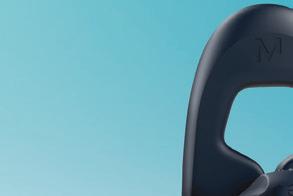
Ask your burning questions, listen to podcasts, read full columns, and more at https://savage.love
Follow Dr. Carlton Thomas on Instagram and TikTok @doctorcarlton @fakedansavage
JOBS
GENERAL REAL ESTATE
RENTALS FOR SALE
NON-RESIDENTIAL
PROFESSIONALS & SERVICES
CLEANING
RESEARCH
Reader Sales representatives sell print, digital, and ad products to local businesses. Sales reps shoudl have 2 years of sales experience OR similar skills, & knowledge of media/advertising products. Ideal candidates will be familiar with CRM software & GSuite. Comp packages vary (full or part time), & include salary, commission, and health benefits. Diverse candidates encouraged to apply. This is an ongoing search. Send a resume to careers@chicagoreader. com.
Assistant Professor Northwestern University Department of Economics. Position: Assistant Professor. Teach classes, conduct research (applied microeconomics focus), advise graduate students. Required: PhD in economics, outstanding research record, excellent recommendations, teaching ability.
Send CV and 3 reference letters to Director of Finance and Adm. To econ@northwestern.edu. AA/EOE.
exts, rprts, & integs w/ Workday App. Dvlp configs, rprts, dshbrds, worklets & integs based on fnlzd func dsgn docs using Workday Studio, Reportwriter, Java, XML, JSON, SOAP, REST. Test Workday sys to ensure buss rqmts meet funclty & dply data into Production Tenant.
Master’s in Sci, Tech, or Engg (any) req’d. Mail
Resume: HR, Agilysis, Inc., 3201 N. Wolcott Ave, Suite 2A, Chicago, IL 60657.
Financial Advisory
COMMUNITY
PERSONALS
PUBLIC NOTICE
ADULT SERVICES
The nonprofit Reader Institute for Community Journalism, Inc. (RICJ), publisher of the 51-yearold Chicago Reader, is seeking a Social Media Engagement Associate. This role is responsible for creating, developing, and executing strategies to engage audiences across all social media and other relevant platforms. Requirements and skills Minimum 1-2 years of experience at a digital media outlet, PR agency, or in a social media role; the most important qualification is the drive and ability to engage readers, execute new ideas, follow and maintain benchmarks and requirements regarding frequency and accuracy, and generate results.Solid copywriting and editing skills and experience. Annual salary is $44,000 to $46,000, based on experience. This is a union position. Chicago Reader editorial staff are members of the NewsGuild/ Communication Workers of America Local 34071.
To see the full job description and apply, go to chicagoreader.com/ reader/careers/
SOFTWARE
ENGINEERS Chicago, IL & various unanticipated locations throughout the U.S.: Gather & eval buss rqmts, condtns, & func dsgn docs from buss users to imprv efcncy & mntn cnstcy of HR Ops by creating
Senior Director , Huron Consulting Services LLC, Chicago, IL: Consulting w/ clients to analyze, assess, & make detailed recs. for every aspect of restructuring process – from strategy, to cash conservation/ liquidity mgmt, to bus. plan dvlpmnt & impl. Working w/ clients to advise on change mgmt & impl. Assisting clients in transitional phases & h ay e fi a ia y operationally distressed by leading through various processes, incl. making working capital imprvmnts, bankruptcy prep., liquidation analysis, credit agreement negotiations, & claims processing. Must have a Bach’s Degree in Econ., Accntng, Fin. or a e fie y s e p w/: (i) Restructuring & turnaround consulting; ii p ate fi a e iii
Overseeing day-to-day ops. for select clients incl. formulating strategy, improving performance & fis a t i - ee cash flow forecast; (v) Integrated 3 statement fi a ia s i i ep ting (monthly op. reports, statements & schedules); (vii) Operational imprvmnt & overhead analysis; & (viii) Leading multiple engagements simultaneously. Must also have at least 1 year of exp w/ pitchbook prep. Exp may be gained concurrently. 80% travel to unanticipated worksites throughout NA. Telecommuting allowed when not traveling. Individuals may reside anywhere in the USA. To apply, send resume to: apply@hcg. com.
(Hoffman Estates, IL) Tate & Lyle Solutions USA LLC seeks Global Data Analyst w/Bach or for deg equiv in CS, IS, IT & Mngnt, Stats or Eng & 2 yrs exp in job offer or in analyt role. Must have exp w/report tools such as PowerBI, Tableau & other visual tools; creat meangful reports, dshbrds, present packs, KPIs, stats & scrcrds; SQL prog; & wrkg w/cloud-bas tech (such as AWS, Azure) & open source tech (such as Python, R). Apply online at: https://careers. tateandlyle.com/global/ en
Research Assistant Professor The Learning Sciences Research Institute, at the University of IL Chicago (UIC), located in a large metropolitan area, is seeking full-time Research Assistant Professor to assist the department with the following responsibilities: Under direction and supervision, design and conduct research and development in areas of K-12 STEM education with a focus on student assessment; Conduct professional development workshops for teachers, teacher coaching, in-class observations of teaching and student learning, design of student assessments, and research into student learning, including quantitative and qualitative analysis of various forms of behavioral data; Develop STEM education R&D proposals that can be submitted to federal agencies and private foundations for external support and funding; Other University service and job responsibilities as assigned. This position minimally requires a Ph.D. degree or its foreign equivalent in Education, Educational Studies, Learning Sciences, Educational Psychology, as well as specific knowledge and experience regarding research and development on teaching, learning, and assessment in STEM Education. Some travel may be periodically required for conferences and/or professional development. For fullest consideration, please submit CV, cover letter, and three professional references by 6/30/23 to Deborah Starks, LSRI, University of IL Chicago, 1240 W Harrison St, Chicago IL 60607 or via email to dstarks@UIC. EDU. UIC is an Equal Opportunity, Affirmative Action employer. Minorities, women, veterans, & individuals w/ disabilities are encouraged to apply. UIC may conduct background checks on all job candidates upon acceptance of a contingent offer letter. Background checks will be performed in compliance with the Fair Credit Reporting Act. As a qualifying federal contractor, the University of Illinois System uses E-Verify to verify employment eligibility. The University of Illinois System requires candidates selected for hire to disclose a y u e te fi i of sexual misconduct or sexual harassment and to authorize inquiries to current and former employers regarding findings of sexual misconduct or sexual harassment. For more information, visit https://www.hr.uillinois.
edu/cms/One.aspx?portalId=4292&pageId=1411899.
Sr. Service Analyst IT
Exelon Business Services LLC seeks Sr. Service Analyst IT in Chicago, IL to perf. & mng. activities rel. to the planning, dsgn, building, & maint. of IT servs., projects, portfolios, products, & sys., incl. creating & assigning tasks to subordinates, & budget resp. for small projects, sub-projects, & process components. Reqs. U.S. or foreign equiv. Master’s deg. in Comp. Sci. or a rel. field, + 1 yr exp. dsgning, dvlping, & supp. enterprise-wide sw. sys. using ITIL concepts of change mgmt., release mgmt., patch & vulnerability mgmt., incident response processes & protocols, App. Portfolio Mgmt. (APM) principles, & infrastructure techs. incl. Active Directory, Exchange, Mainframe, Network Topologies, Job Scheduling, event monitors, & Interface models (HTTP, SOA), or, in the alternative a U.S. or foreign equiv. bach’s deg. in the same fields w/ 3 yrs of the spe ifie e p ep y by email w/ resume to jobposting@exeloncorp. com.
Artist seeking nude models Artist seeking nude models 18+ (Female only). Compensation will be provided. Send e-mail with age/ picture (18+ only) to shadowshadow788@ yahoo.com
Slipstream Group Inc. seeks Electrification Researcher in Chicago, IL to work on allelectric transformations for residential & commercial projects; develop methods to evaluate electrification, renewable energy & decarbonization; utilize energy analytics software. Reqs. bachelor’s in environmental science, environmental studies, sustainability mgmt or related & 6 months exp., including conducting climate research, supporting utility & municipality energy efficiency programs, & using modeling software such as eQuest. Must have LEED AP Building Design and Construction e tifi ati ust t a e to project sites in the Chicago area, as needed. Ability to telecommute from the Chicago area. E-mail CV to hr@ slipstreaminc.org. Use job code ER623.
ENGINEERING
DRW Holdings LLC has openings in Chicago, IL for the following positions: Sr. Data Eng (Position ID DE/IL/K042)
to manage datasets used by Traders & Quantitative Researchers to analyze financial markets, determine trading opps & establish trading strategies. Req: MS App CS, Info Sci, App Math, Stat, or rel & 5 yrs exp; C++ Developer (Position ID CD/IL/K043 to develop code to establish connectivity to new exchanges for core infrastructure platform.
Req: BS in CS, CE, or rel & 6 mo exp. Email resume to apply@drw. com, Attn: M. CARTER. Must ref. Position ID to ensure consideration for proper position. EOE.
Line Producer (Wargaming (USA), Inc.; Chicago, IL): Create 3D art assets to manage 3D art assets creation. Own aspects of game production as directed by the Producer, including art, animation, design, documentation, approvals, continuity, audio, testing, approvals, & archiving. Salary: $74,004 to $84,004/year.
Mail resumes to: Attn: HR, Wargaming (USA), Inc., P.O. Box 1206, Chicago, IL 60690. An EOE.
Analytics Developers Northwestern Memorial Healthcare seeks Analytics Developers for Winfield, IL location to deliver data warehouse & analytic solutions. Bachelors in IT/Analytics/ Med Sci/related field +2yrs exp req’d.
Req’d Skills: 2 yrs w/ coding lang; relational databases; SQL for data extract, manipulation, & report; work w/business users in dev analytical solutions; SQL query; stored procedures; data visualization w/ Power BI/Tableau; Crystal Reports/SSRS; structured programming. Background check req\’d. May telecommute w/ability to commute to i fie e as eq
Apply online: http:// jobseeker.nm.org/ Req ID: REF51499B
Investment Research Analyst Harbor Capital Advisors, Inc. seeks an Investment Research Analyst to work in Chicago, IL to support Investments Research, Investments Specialist and Product Strategy and Management teams through advanced evaluation and application of investment, financial, economic, and/or statistical data. Telecommuting/ working from home allowed. Must have a Bachelor\’s degree in Statistics, Economics, Business Administration or related and four (4) years of experience in job offered or as a data a a yst i the fi a ia
WANT TO ADD A LISTING TO OUR CLASSIFIEDS? Go to classifieds.chicagoreader.com
asset a a e e t fie s Must have experience in and/or have learned the following skill sets through coursework 1) Business Intelligence and Data Analysis Software: Tableau, RStudio 2) Financial Analysis Software: Bloomberg 3) Microsoft Office Suite: PowerPoint, SharePoint, Excel, Outlook, and Word. Apply online at https:// www. harborcapital. com/ careers Refer to Job ID AP23
Assistant Professor
Loyola University
Chicago is seeking an Assistant Professor in Chicago, IL to teach undergraduate & graduate courses in literature & critical theory w/ a focus on global anglophone literatures, queer & trans studies, border literatures & postcolonial/decolonial theories. Please send res to dchinit@luc.edu & ref job 022492.
Associate Professor Loyola University
Chicago is seeking an Associate Professor in Chicago, IL to provide course descriptions for each course taught in time to be used by students during registration process. Need PhD in Social Work & Sociology or related fie p t e te work allowed. Please send res to jmarley@luc. edu & ref job #090579.
Free audition notices!
The Chicago Reader is offering free auditions in our classifieds through Aug. 1. Create an account and your listing at chicagoreader. com/auditions
Audition call from Splinter Theatre Company
“A Christmas Tale” is a family-friendly, fun musical comedy. Roles for: - kids (boys and girls, age 10+) All must be able to dance and sing. You must register your child for the audition, by emailing dmitriytheater@gmail.com Only parents or guardians can register youth for the audition. Learn more at www.splintertheatre.com
Improv Audition Audition, Tellin’ Tales Theatre Improv Team for performers with and without disabilities. Tuesday rehearsals with performance run at iO in July. Sign-up https:// www.signupgenius. com/go/10C0949AEA72EABFAC43-improv1
Free audition notices!
The Chicago Reader is offering free auditions in our classifieds through Aug. 1. Create an account and your listing at chicagoreader.com/auditions
RightWay, helping you rebuild your credit & drive a car (Midloathian) Buying is easy at RightWay with low down payments & affordable for you to get in a vehicle regardless of your credit. Over 50,000 satisfied customers & extra e efits the ea e ships doesn\’t offer. Comprar es facil en RightWay con pagos iniciales bajos, y asequible para usted obtener un vehiculo independientemente de su credito. Mas de 50,000 clientes satisfechos y beneficios adicionales incluidos que el concesionario promdeio no ofrece. Ask Luciano (708)389-4264. Open i e a s ate
FTM4M, 35 Seeks M4M Gym Partne r Hi, I’m looking for a gym partner to spot with, and to be safe in the gym with while working out. NOT LOOKING FOR A HOOKUP. I’m fat, FTM (trans man), Mexican who is very shy and very introverted. NO TRANSPHOBES NEED APPLY, ESPECIALLY CIS STRAIGHT MEN. Must have Planet Fitness card. Text only 872-529-0333.
Texas Warehouse
11,000 SQ FT Half Acre Concrete Lot Fenced 10 Bays 972-891-1576

Industrial Shop Dallas, Texas. $ten million. Warehouseftw.com John 972-891-1576 Logisticsdistribution Automotive Recycling Parking Fulfillment Assembly
Have you had an unwanted sexual experience since age 18? Did you tell someone in your life about it who is also willing to participate? Women ages 18+ who have someone else in their life they told about their experience also willing to participate will be paid to complete a confidential online research survey for the Women’s Dyadic Support Study. Contact Dr. Sarah Ullman of the University of Illinois at Chicago, Criminology, Law, & Justice Department at ForWomen@ uic.edu, 312-996-5508. Protocol #2021-0019.
CLEANING SERVICES
CHESTNUT ORGANIZING AND CLEANING SERVICES: especially for people who need an organizing service because of depression, elderly,
physical or mental challenges or other causes for your home’s clutter, disorganization, dysfunction, etc. We can organize for the downsizing of your current possessions to more easily move into a smaller home. With your help, we can help to organize your move. We can organize and clean for the deceased in lieu of having the bereaved needing to do the preparation to sell or rent the deceased’s home. We are absolutely not judgmental; we’ve seen and done “worse” than your job assignment. With your help, can we please help you? Chestnut Cleaning Service: 312-332-5575. www. ChestnutCleaning.com


STRESS RELIEF & SELF
HYPNOSIS ”Economy




Self-Hypnosis” Every 2nd Sunday of the month, 2-4 PM, Garret Wellness Center 3020 N. Kimball 60618. $35. More details at www.Garrettwellnesscenter.com/ events. Questions and reservations: Lewisdark@ findyourhypnotist.com.

All romantic dates women wanted All romantic fun dates all requests 24.7 Call (773) 977-8862 swm

MJM 52 SEEKS JEW-












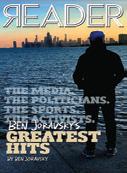



ISH FEMALE MJM 52
SEEKS MATURE JEWISH FEMALE PLAYMATE

LIKES WINE ANTIQUES
HOT OIL MASSAGES
SPANKING BONDAGE ORAL PLEASURE CAN HOST-224-292-9899.
MJM DOM 52 SEEKS
SUB MJF MJM DOM 52 SEEKS SUBMISSIVE
MJF AND WILL TRAIN
BONDAGE ORAL PLEASURE SPANKING AND PUNISHMENT CAN HOST-224-292-9899
MWM DOM 52 SEEKS

SUB FEMALE MWM
52 SEEKS SUBMISSIVE FEMALE 50+ AND WILL TRAIN

BONDAGE SPANKING PUNISHMENT ORAL PLEASURE CAN HOST-224-292-9899.
Hot Couple ISO Hot Singles! Hot Couple successful 55 yrs young with fit physiques, ISO Beautiful Uninhibited people to eXplore New Horizons. Lakefront, Sailing, Nude Sunbathing, Biking. Intrigue us with a hot reply!







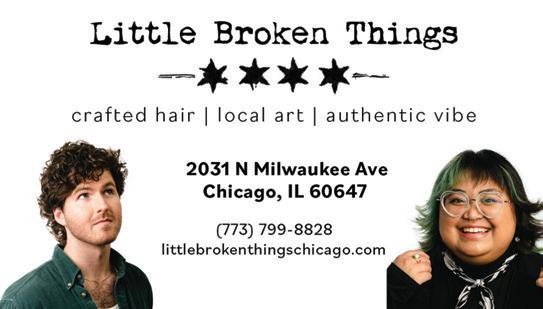

Danielle’s Lip Service, Erotic Phone Chat. 24/7. Must be 21+. Credit/ Debit Cards Accepted. All Fetishes and Fantasies Are Welcomed.

June 16:
Jacob Collier with special guests Lawrence and Tiny Habits
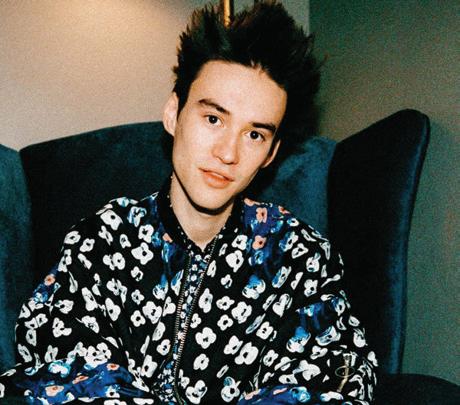
June 25:
Jesse & Joy
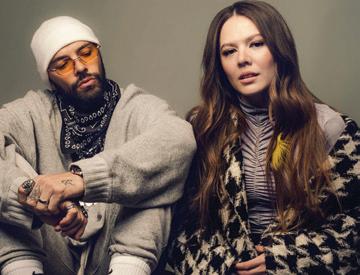
August 31:
Brandi Carlile with special guest

Brandy Clark
AND MORE...
June 24:
Charlie Puth with support from Alexander Stewart

August 2:
Jason Mraz and His SuperBand with special guest Monica Martin
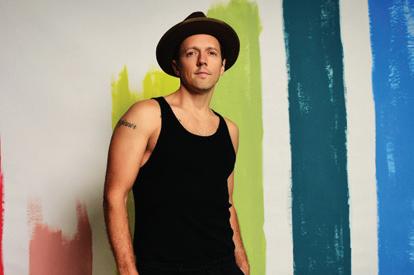
September 9:
Queen! feat. DJs Derrick Carter, Michael Serafini, and Garrett David
TICKETS ON SALE NOW! AT RAVINIA.ORG
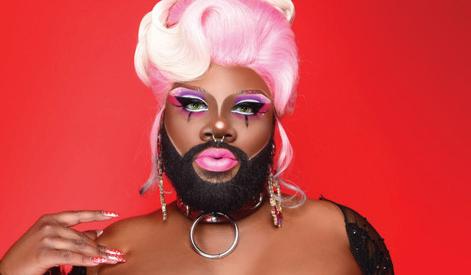
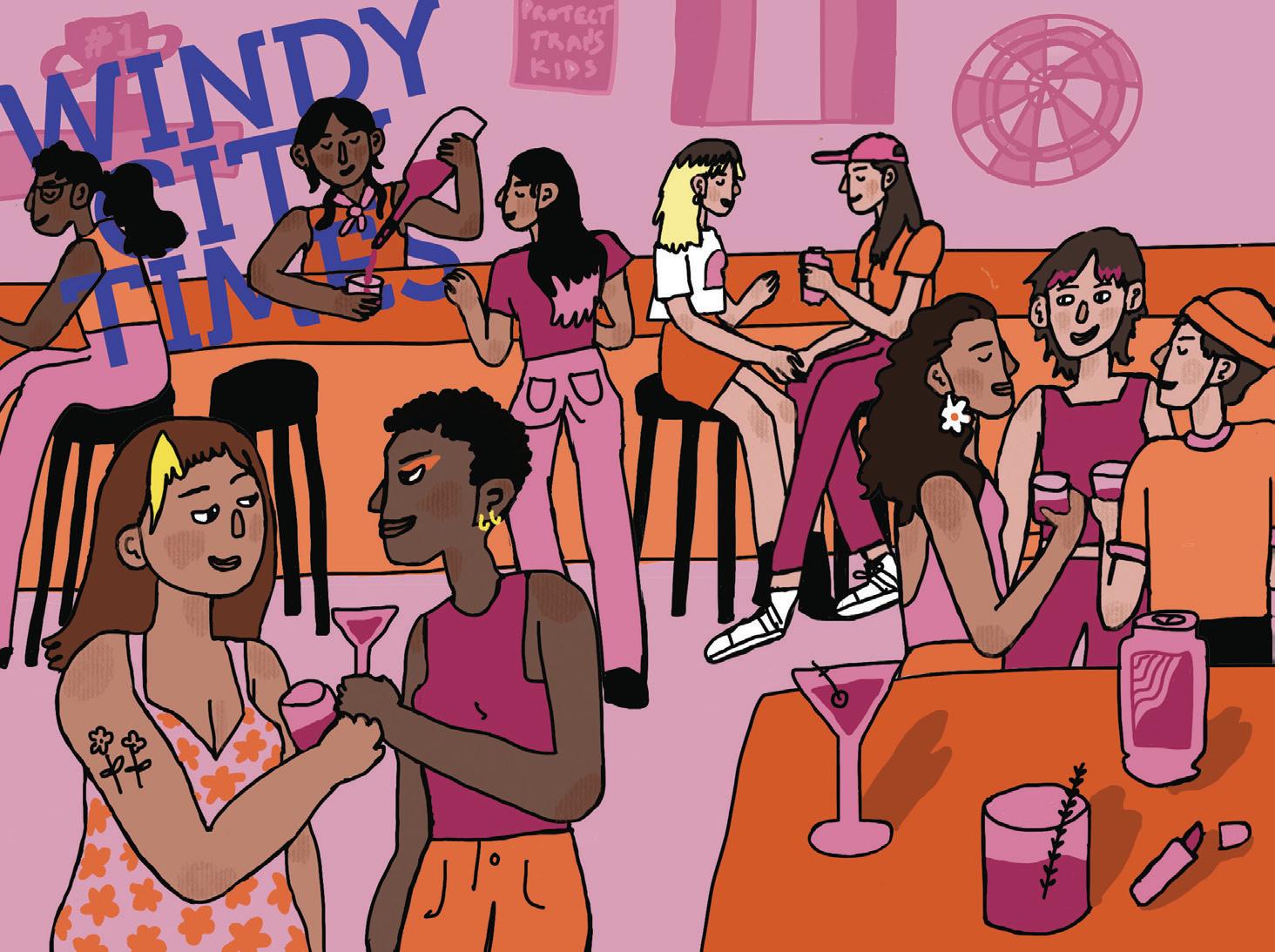

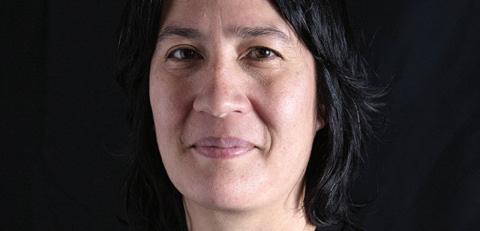
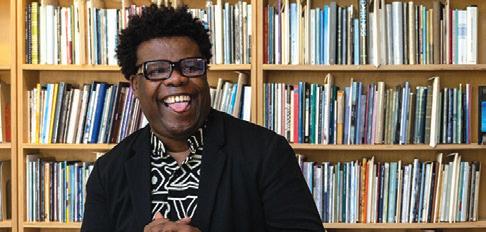

This is only a brief summary of important information about BIKTARVY® and does not replace talking to your healthcare provider about your condition and your treatment.
BIKTARVY may cause serious side e ects, including:
Worsening of hepatitis B (HBV) infection. Your healthcare provider will test you for HBV. If you have both HIV-1 and HBV, your HBV may suddenly get worse if you stop taking BIKTARVY. Do not stop taking BIKTARVY without first talking to your healthcare provider, as they will need to check your health regularly for several months, and may give you HBV medicine.
BIKTARVY is a complete, 1-pill, once-a-day prescription medicine used to treat HIV-1 in adults and children who weigh at least 55 pounds. It can either be used in people who have never taken HIV-1 medicines before, or people who are replacing their current HIV-1 medicines and whose healthcare provider determines they meet certain requirements.
BIKTARVY does not cure HIV-1 or AIDS. HIV-1 is the virus that causes AIDS.
Do NOT take BIKTARVY if you also take a medicine that contains:
dofetilide
rifampin
any other medicines to treat HIV-1
Tell your healthcare provider if you:
Have or have had any kidney or liver problems, including hepatitis infection.
Have any other health problems.
Are pregnant or plan to become pregnant. It is not known if BIKTARVY can harm your unborn baby. Tell your healthcare provider if you become pregnant while taking BIKTARVY.
Are breastfeeding (nursing) or plan to breastfeed. Do not breastfeed. HIV-1 can be passed to the baby in breast milk.
Tell your healthcare provider about all the medicines you take:
Keep a list that includes all prescription and over-the-counter medicines, antacids, laxatives, vitamins, and herbal supplements, and show it to your healthcare provider and pharmacist.
BIKTARVY and other medicines may a ect each other. Ask your healthcare provider and pharmacist about medicines that interact with BIKTARVY, and ask if it is safe to take BIKTARVY with all your other medicines.
BIKTARVY may cause serious side e ects, including:

Those in the “Most Important Information About BIKTARVY” section.
Changes in your immune system. Your immune system may get stronger and begin to fi ght infections that may have been hidden in your body. Tell your healthcare provider if you have any new symptoms after you start taking BIKTARVY.
Kidney problems, including kidney failure. Your healthcare provider should do blood and urine tests to check your kidneys. If you develop new or worse kidney problems, they may tell you to stop taking BIKTARVY.
Too much lactic acid in your blood (lactic acidosis), which is a serious but rare medical emergency that can lead to death. Tell your healthcare provider right away if you get these symptoms: weakness or being more tired than usual, unusual muscle pain, being short of breath or fast breathing, stomach pain with nausea and vomiting, cold or blue hands and feet, feel dizzy or lightheaded, or a fast or abnormal heartbeat.
Severe liver problems, which in rare cases can lead to death. Tell your healthcare provider right away if you get these symptoms: skin or the white part of your eyes turns yellow, dark “tea-colored” urine, light-colored stools, loss of appetite for several days or longer, nausea, or stomach-area pain.
The most common side e ects of BIKTARVY in clinical studies were diarrhea (6%), nausea (6%), and headache (5%).
These are not all the possible side e ects of BIKTARVY. Tell your healthcare provider right away if you have any new symptoms while taking BIKTARVY.
You are encouraged to report negative side e ects of prescription drugs to the FDA. Visit www.FDA.gov/medwatch or call 1-800-FDA-1088.
Your healthcare provider will need to do tests to monitor your health before and during treatment with BIKTARVY.
Take BIKTARVY 1 time each day with or without food.
This is only a brief summary of important information about BIKTARVY. Talk to your healthcare provider or pharmacist to learn more.
Go to BIKTARVY.com or call 1-800-GILEAD-5.
If you need help paying for your medicine, visit BIKTARVY.com for program information.
(bik-TAR-vee)

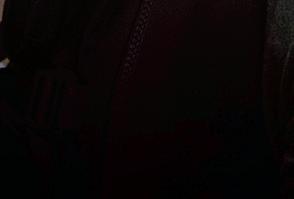
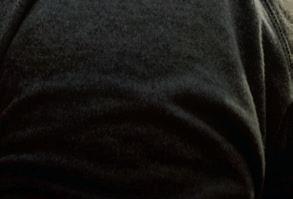
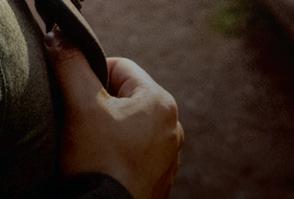
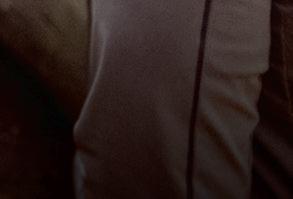



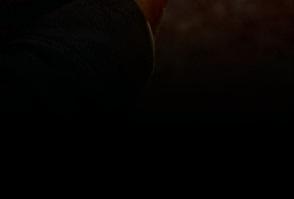




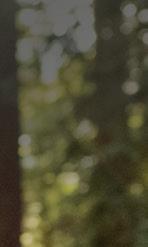




PUBLISHER Terri Klinsky
EXECUTIVE EDITOR Matt Simonette
DIGITAL DIRECTOR Jean Albright
ART DIRECTOR Kirk Williamson

BUSINESS MANAGER Ripley Caine
SENIOR ACCOUNT EXECUTIVE Terri Klinsky
CONTRIBUTORS
Andrew Davis, Carrie Maxwell, Jerry Nunn, Kayleigh Padar, Matt Simonette, Jess Savage, Michelle Zacarias
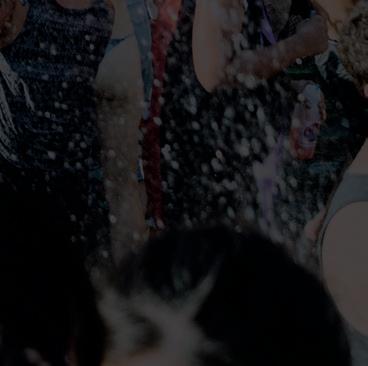
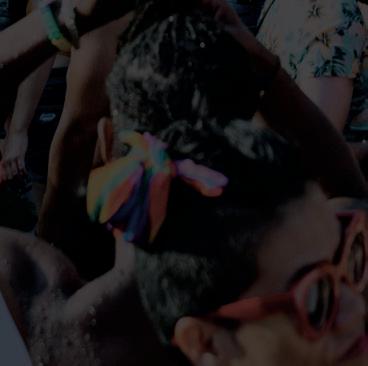
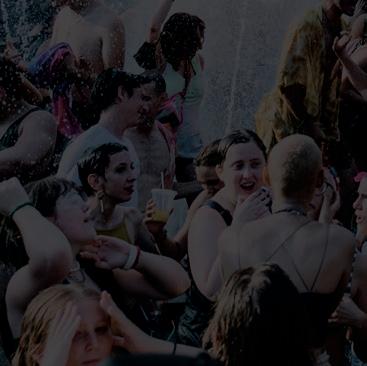
WEB HOSTING LoveYourWebsite.com
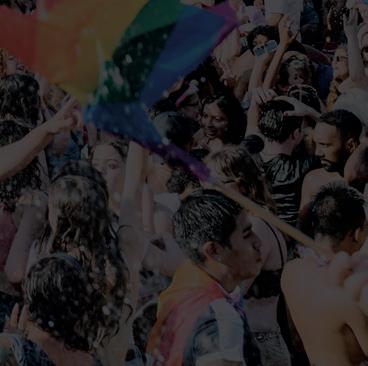

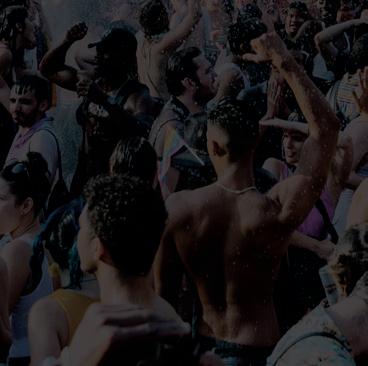
(lead programmer: Martie Marro) (773) 871-7610 FAX (773) 871-7609
Editorial: matt@windycitymediagroup.com
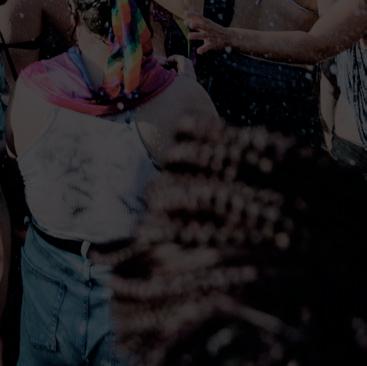
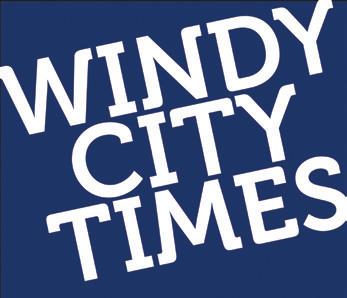
Sales: terri@windycitymediagroup.com
Art/ad copy: kirk@windycitymediagroup.com Copyright
If a Chicago-area resident has been rippedoff, swindled or otherwise cheated, there’s a good chance they’ll call Jason Knowles. Knowles, who is gay, has been ABC 7’s consumer investigative reporter since 2014, and has been with the station since 2004. He covers everything from traffic cameras to lead exposure, to dangers posed by social media and other emerging technologies. Knowles described his job as “ever-changing,” adding that it entails “juggling a lot of balls in the air at the same time.”


“We have several irons in the fire at all times,” he further explained. “We may have three, four, five stories that we’ve shot video on, and are trying to get responses on. At the same time, we’re looking ahead at the next batch of stories. We’re getting those stories from viewers who are calling or emailing, or ideas that we generate.”
Knowles has long been heavily involved in the Pride-related programming—dubbed “Pride 365”—which entails LGBTQ+ content year-round. This year he’ll report on the street at the Chicago Pride Parade, which he first did in 2022, as well. He recalled covering last year’s parade: “It was so cool to be in the thick of it, talking to everybody and running around. At least for me, it was nice to have something unscripted and fun, being able to be on TV and just go with it. With investigative reports, things are kind of ‘legal’ and very scripted. It was great—I loved it.”
The bulk of the station’s Pride programming airs in June—the day he spoke with WCT, for example, the station was about to broadcast Knowles’ report on transgender teenagers and their families—but ABC 7 has made an effort to air LGBTQ+-related stories all year long, Knowles said. He has done stories to mark LGBTQ History Month and Trans Visibility Day, for example. Knowles was especially proud of a 2022 story that he did, under the auspices of both his investigative unit and the Pride 365 initiative, about difficulties marginalized groups face in LGBTQ+ bars. “It was cool to bring both…brands, I guess…together,” he said.
Knowles praised ABC 7 and Disney (the station’s corporate owner) as “being nothing but
supportive.” He added, “I really enjoy the Pride work.… Even if I wasn’t doing the LGBTQ coverage on the side [of the consumer-reporting], I think it would be a great situation, where they’d be supportive.”
He admitted to being aware of the importance of being a high-profile, visible member of Chicago’s LGBTQ+ community.
“It is important for LGBTQ+ children—and adults—to see themselves represented,” Knowles explained. “They can look at the television and say, ‘Hey, I can do that one day,’ if you’re a kid who wants to be a reporter or an anchor. ‘He’s out and he’s in a good space and I can do it too.’”
He stressed that people who can and choose to be out of the closet should be active in the community as well. Television stations are extremely sensitive to how their anchors, reporters and other on-air personalities present themselves to the public, leading to many LGBTQ+ broadcast journalists staying closeted. Knowles recalled doing so did so while at an earlier position in Ohio.
“I was very worried at that former station,” he said. “Not because of the way anybody treated me. They were all very nice. But it was a different time. It was Toledo, Ohio between the years of 1997 and 2004. Being on air, I was a little concerned. But I had to let that go—and I did when I came here.”
Knowles loves covering the hot-button issues most of all; one such example was his reporting about Chicago’s controversial traffic cameras.
“There was a lot of criticism around them, even though a lot of people say they’re for safety,” he explained. “There are some safety benefits. But there is criticism from people who just say that they’re money-makers for the city. … People really relate to that and feel as if they shouldn’t have to pay for some of these violations.”
Another of his favorite stories concerned waittimes for DNA labs. Delays at the labs had resulted in hundreds of unsolved investigations, and after Knowles’ team did their reporting, the state police revamped its crime lab.
“Anytime we can make a difference like that, I love it,” Knowles said.
North Austin native and multi-dimensional poet avery r. young made history in April after being selected as Chicago’s inaugural Poet Laureate.
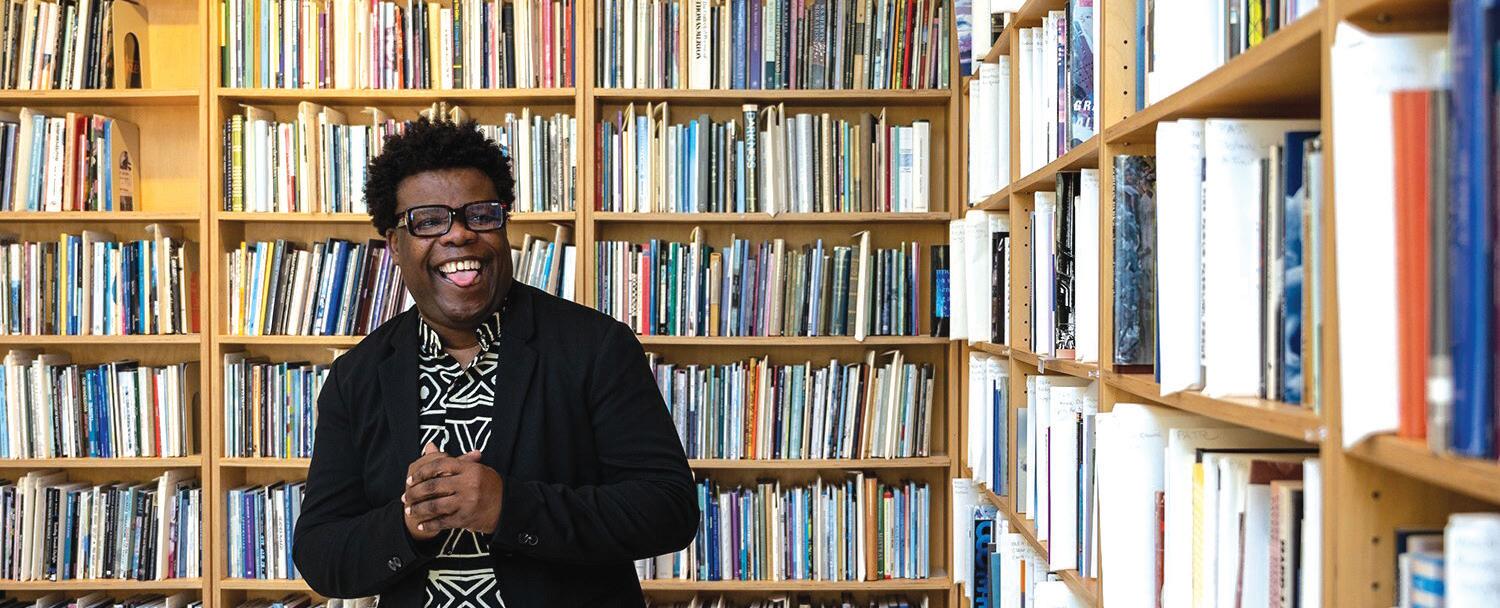
The announcement came as no surprise to those who follow young’s career as an award-winning poet, teaching artist, and musical producer—among many other hats he wears. The city’s poet laureate program was announced in January and aims to increase awareness of Chicago’s historic contributions to the literary arts while celebrating and honoring the efforts of Chicago’s working artists.
Although the program itself is new, young is a veteran performer and has made a name for himself in the city’s storytelling community. When he performs, he might recite a poem, sing it or even stomp and clap it out—but his words never fail to captivate audiences. The distinct way he commands the room has become signature in his brand of performance.
The multidisciplinary artist has been drawn to poetry since he was a boy. “Literature is always around me, and I’ve written for a long time,” he said.
His passion for artistry was apparent as early as third grade. He partially credits having grown up in the Baptist Church on Chicago’s West Side, where scriptures from songs were read and performed constantly.
young recalled, “I was introduced to the world of oratory composition through church, which led to teaching artistry and spoken word performanc-
es … then I really got interested in the idea that poetry is not just a genre of literature, but actually an art form.”
He has since amassed a plethora of achievements and accolades. young recently performed at the inauguration ceremony for newly elected Chicago Mayor Brandon Johnson. He is also the co-director of The Floating Museum; a co-mentor for the Rebirth Youth Poetry Ensemble; a fellow with Cave Canem, an organization centering and promoting the work of Black poets; a 2022 recipient of the Field Foundation of Chicago’s Leaders for a New Chicago award; and a performer with his band, de deacon board, whose work merges gospel, soul and funk.
young’s appointment as poet laureate is made possible by the City of Chicago, in partnership with the Chicago Public Library (CPL) and the Department of Cultural Affairs and Special Events (DCASE) as well as the Poetry Foundation. In his role, young will be awarded a $50,000 two-year contract for both the commission of new poems and the creation of public programming, as well as serving as an ambassador for the city’s literary and creative communities.
young takes pride in mentoring young artists. He said, “I think my teaching artists work is the best of me. Mentoring is the best of me, because it’s not necessarily about crafting a poem—it’s about caring about another human being, and that has been the best part of my work.”
Something as simple as walking down a city block can spark creative inspiration for young on
any given day. He explained, “There are so many things that inspire me in Chicago, but one of the most pertinent things is where I grew up in North Austin.”
He described growing up on the West Side, listening to the sounds of the street: “When you walk down North Avenue you see a storefront church, two doors down from a liquor store, then across the street from there a tavern—on Sundays you hear the music hitting the streets and the sounds of washing machines from the laundromat … .” He likens the composition of these noises to that of a “symphony” that learns to occupy and intersect together in harmony.
Spontaneous inspiration is plentiful in Chicago, but young’s creative writing process is much more disciplined. He described meticulous steps that go into constructing a poem, which he said are about extracting the language that is presented in his head, so that he can actualize the artistic vision.
“I laugh at this idea that I’m walking around like a metal detector—or like a poem detector— and all of a sudden I start blessing,” young said.
The announcement of Chicago’s inaugural Poet Laureate program marks the beginning of a new chapter in the city’s creative investments. young is excited to create opportunities for poets and artists outside of himself, as he continues to work on developing creative spaces.
“Creating substantial programming that will have a significant impact on the city means opening doors,” he said. “So we gotta make that door a little wider … or we gonna bust it down.”
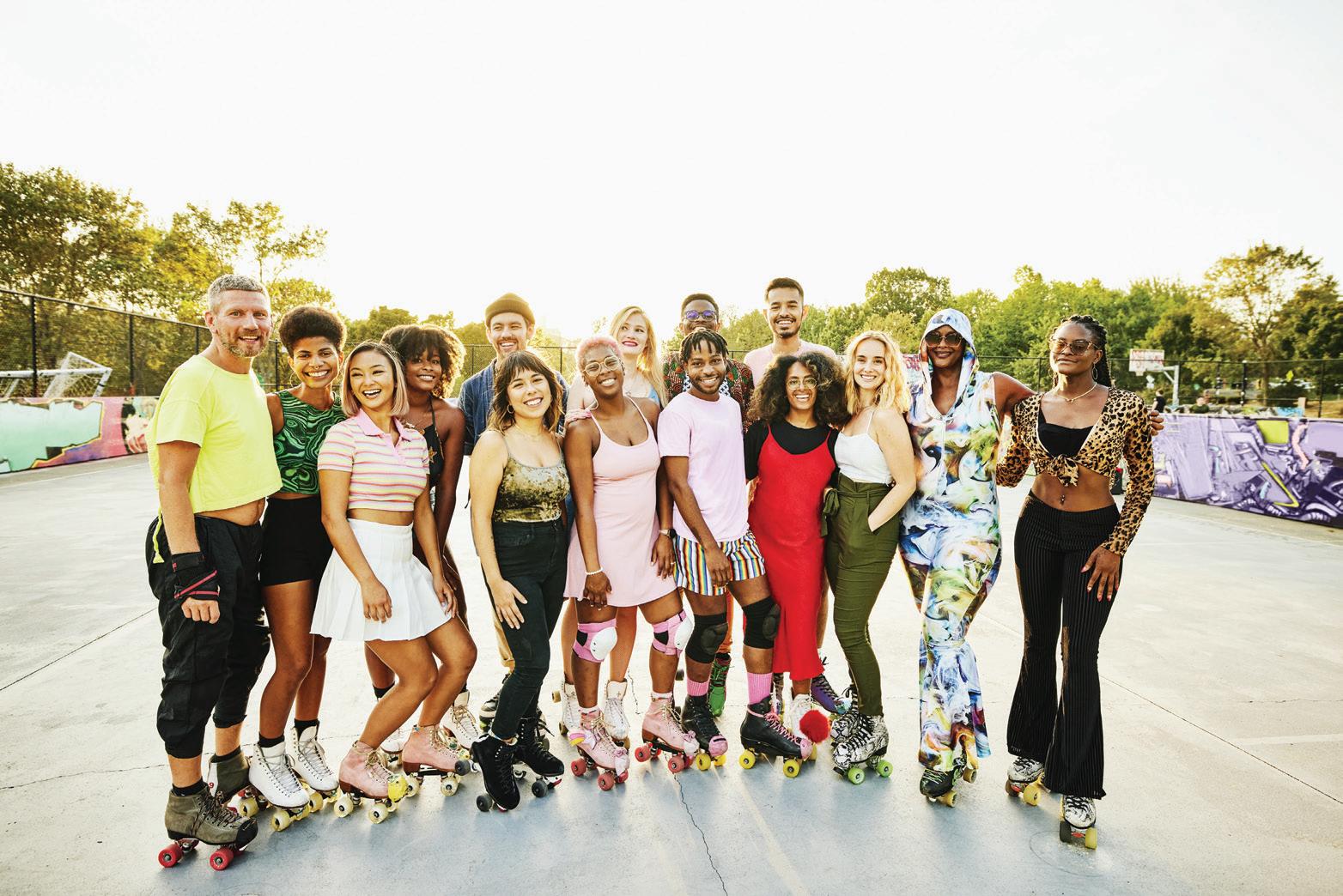
Almost a decade ago, glass artist Pearl Dick and clinical psychologist Dr. Brad Stolbach co-founded Project FIRE (Fearless Initiative for Recovery and Empowerment), an arts program that provides victims of trauma the chance to heal through glassblowing. Program components include mentoring, art and psychoeducation.

Project FIRE (in partnership with Healing Hurt People-Chicago, a hospital-based violence-intervention program) is now part of the nonprofit organization Firebird Community Arts, an art studio in Chicago’s East Garfield Park area.
Windy City Times recently talked with the outspoken Pearl Dick about the program, politics and her message to younger LGBTQ+ creatives.
Windy City Times: Talk a little bit about Firebird.
Pearl Dick: Absolutely! Firebird is a 501(c)(3) and we do a lot of youth programming that is trauma-focused. We’re trauma-informed and that information is based on what we learn through Project FIRE, which we run out of our studio.
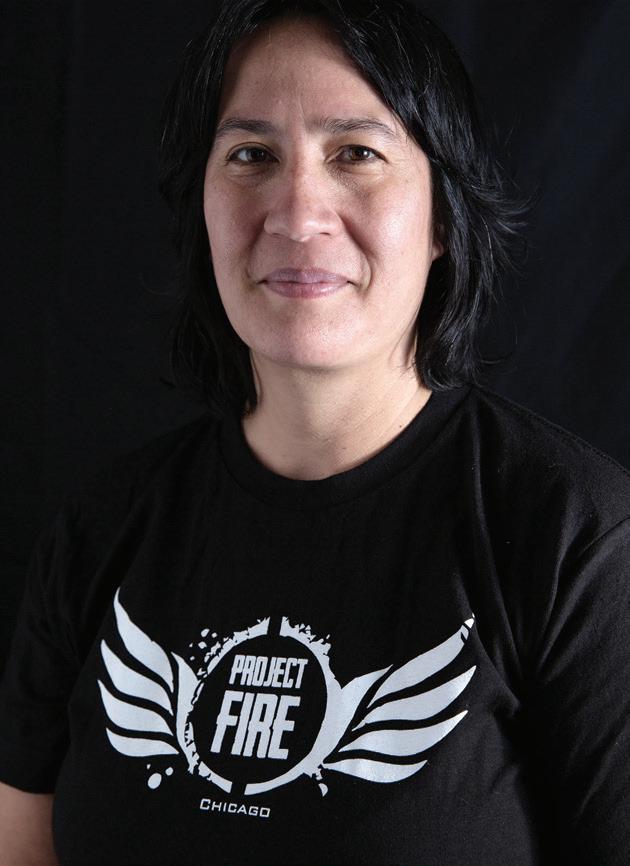
I’m the artistic director of Firebird, and I co-founded Project FIRE in 2014. We devised this idea for having this glassblowing arts-education program specifically for young people who have been impacted by gun violence. They do glassblowing and ceramics, and have group psychology sessions as well; they work really closely with mental health professionals and with teaching artists.
We rebranded and became Firebird Community Arts around the beginning of the pandemic; we were formerly known as ArtReach Chicago. [ArtReach] was part of Lillstreet Art Studio and that’s been around for 30 years.
I had been working at another studio where I had Project FIRE. But we wanted our own space where nobody would judge us. So [Firebird Executive Director Karen Reyes] and I were on a search at the same time and we were friends; we joined forces around 2015. She learned about Project FIRE and we agreed on the need to have this programming through a trauma-informed lens. We wanted to work with young people and address issues of social justice and equity in the arts. So this iteration is fairly new.
WCT: So it makes sense that you believe in activism through art.
PD: Absolutely—in all the ways. I believe in providing access to art and increasing diversity in rarefied art forms that have been traditionally white, cis and male. We also work with immigrant populations and more visible work, politically speaking. Of course, we
address issues of gun violence, racism and segregation. I think the nature of what we do [constitutes] activism. We take people to rallies and educate our young people about voting. We really advocate for them in spaces where they have not had a lot of representation. We have a lot of people here involved in the juvenile justice system, which doesn’t have that much justice.
WCT: What does it mean to you to be LGBTQ+ and BIPOC in today’s America?
PD: Well, what it means for me is that I feel a great responsibility to advocate for the next generation that’s coming up in the arts. They’re demanding visibility, they’re demanding access that we didn’t have and that hasn’t been there throughout history. I feel a great responsibility to shift the way things have been.
We’re in a moment right now where there’s some opportunity for visibility; we need to push and fight. The way things have been is not the way it’ll continue to be done.
However, [the anti-LGBTQ+ bills passed throughout the country] feel like a pendulum swing. We made a lot of motion toward visibility, access and equity—but then there’s swing toward the Dark Ages concerning women’s rights and LGBTQ+ rights. They’re draconian.
I have a 14-year-old nephew who’s exploring his gender identity and all of his friends are part of the queer community. They’ve got so many options to explore and ways to see how they fit into the world. He sends me [anti-LGBTQ+] articles and it’s heartbreaking to see his outrage about what’s going on.
On one hand, I feel like they have these really great opportunities that I didn’t have at his age, in the arts and elsewhere. But it’s also really terrifying to see some of the things coming out against young folks today.
WCT: What’s your advice to the next generation of LGBTQ+ creatives?
PD: I really want to encourage people to speak their truths and to stand up for what they believe in. Young people don’t have to do this alone anymore. There are allies and others who will support them. They can have strength through solidarity and be more confident in who they are at that moment.
For more information about Firebird Community Arts, visit firebirdcommunityarts.org/.
This article was made possible with a grant from Comcast Corporation that was awarded to News is Out, a six-newspaper collective in which Windy City Times takes part. See newsisout.com.
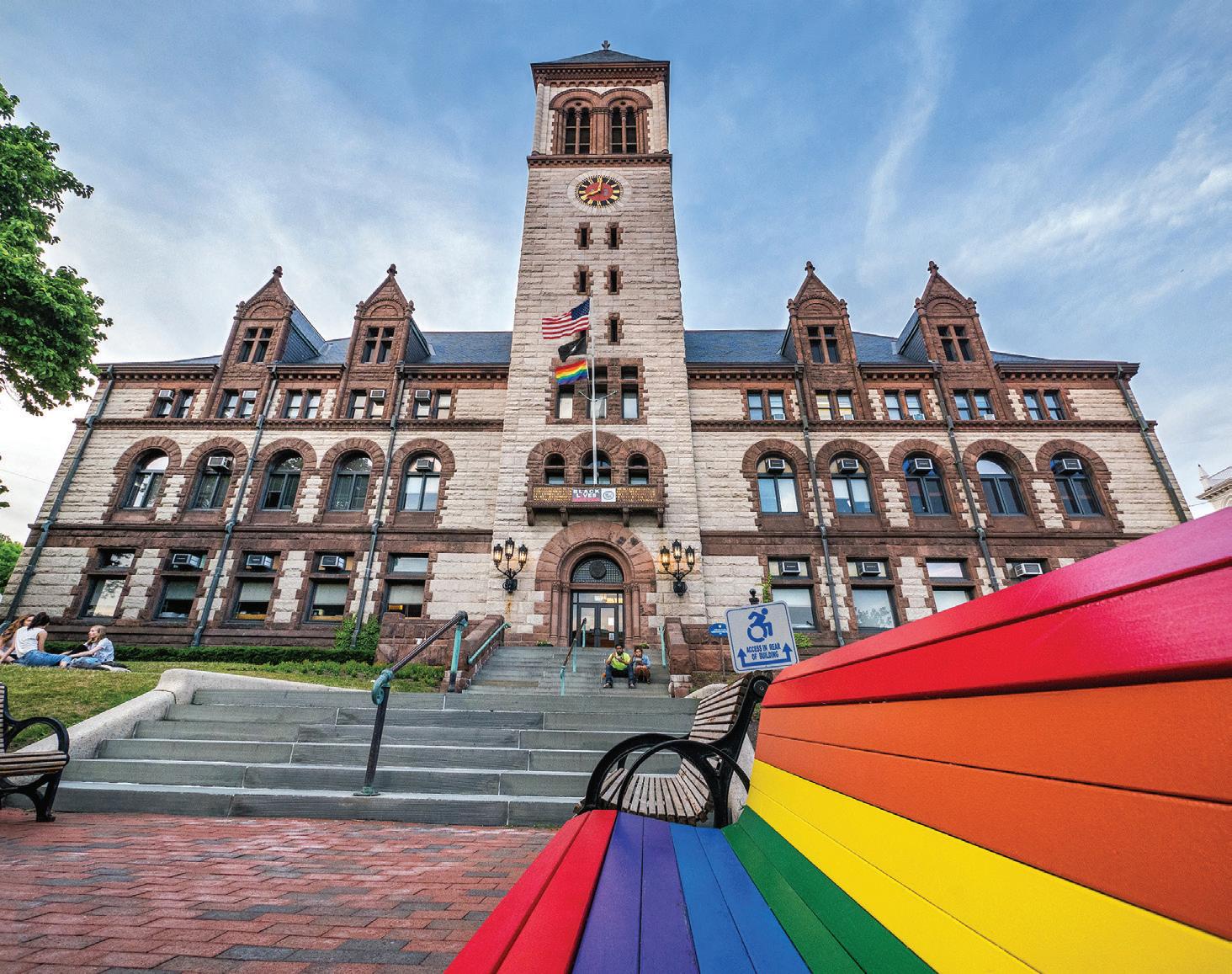

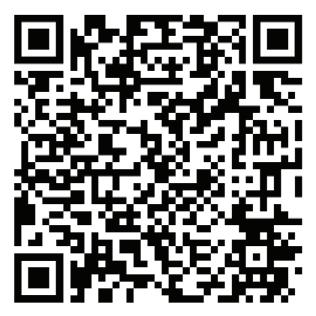

 BY KAYLEIGH PADAR
BY KAYLEIGH PADAR
Three Chicago lesbian-owned bars have opened in the past few years, creating more spaces where queer women can feel comfortable and build community with each other.
Andersonville’s Nobody’s Darling, Dorothy in Ukranian Village, and Rogers Park’s Whiskey Girl Tavern join a long history of queer-owned community spaces in the city.
These three bars carry on the tradition of spaces safe for lesbians in Chicago and its suburbs, from Tiny and Ruby’s Gay Spot in the ‘50s, to the long-running Lost & Found and the much-lauded Paris Dance. Other bars included Ladybug, Swan Club, Augie & CK’s, The Patch in Calumet City, Star Gaze, Temptations, Razzmatazz, and many more—including floating parties such as Executive Sweet.
Today we also still have woman-owned Big
Chicks and The Closet, a lesbian-owned bar operating in Lakeview since the ’70s, and many floating parties, including Slo ’Mo.
Queer women are specifically centered at Nobody’s Darling and Dorothy, while Whiskey Girl Tavern is more of a neighborhood bar. However, each of the business partners (and in some cases partners in life) who own these bars designed them to be places they themselves would feel comfortable in.
Whiskey Girl Tavern isn’t geared toward any community in particular, but co-owners Christina and Heather Roberts created a space where they could enjoy time with friends and gather around women’s sports.
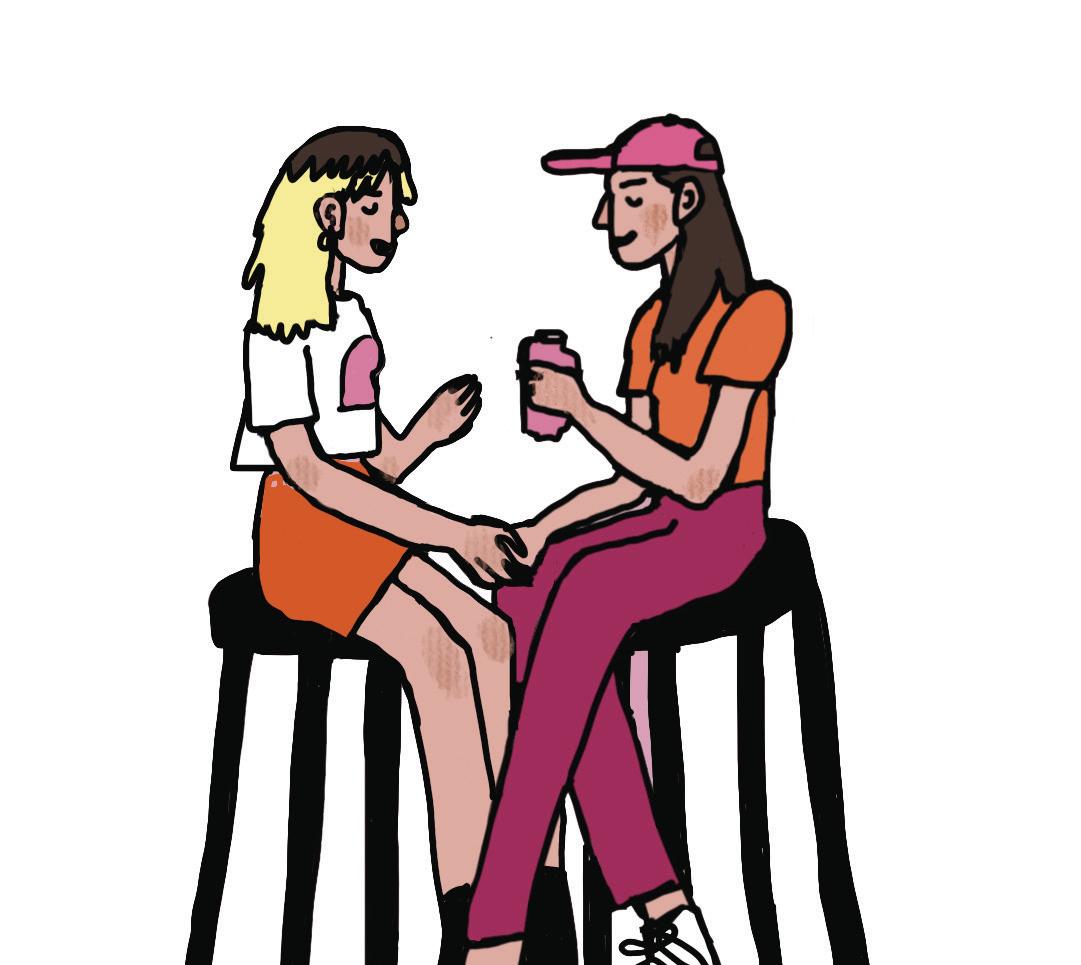
“We wanted a bar that we could see ourselves going to,” Roberts said. “We love to watch football on Sundays, and women’s basketball with a nice cocktail and some dinner, so we geared it to
what we would like. We want it to be for anyone who likes craft cocktails, sports and community.”

Zoe Schor, who first opened Dorothy in February 2020, also started her business with the intention of designing a space she’d enjoy and that was reminiscent of the lesbian spaces she grew up in. Dorothy closed within four weeks due to the pandemic, but reopened last summer with the help of Schor’s co-owner and life partner Whitney LaMora.
Schor said she “was really moved by” T’s, a bar in Andersonville that closed in 2013, where Schor and her friends could relax with cheap beers, a game of pool and a jukebox.
“I was really bummed when T’s closed, and I just got the feeling that it was time to open a lesbian bar,” Schor said. “I’ve always been very interested in spaces that were specifically for queer women.”


Schor also felt an urgency to “invest” in creating spaces for the queer community, after learning that lesbian bars across the country were disappearing. In 1980, there were 200 lesbian bars throughout the country but now there are only 27, according to the Lesbian Bar Project.
“There’s not always access to capital and funding for people who are marginalized,” Schor said. “To have this opportunity, where there were investors who were excited to invest in a lesbian bar, landlords who were excited to have this bar in their basement and so on, it just felt like something we really owed to our community.”
Business partners Angela Barnes and Renauda Riddle shared Schor’s concern about the loss of women-centered spaces. Riddle had spent years organizing monthly pop-up parties for women throughout the city that Barnes said were popular and well-received.
Nobody’s Darling, Dorothy and Whiskey Girl Tavern
all year’ ‘We’re
provide new spaces for queer women to connectIllustration by Anna White
“I certainly enjoyed going to them and I think a lot of women were feeling like it would be nice if we could have a more consistent space to go to,” Barnes said. “We decided we would give it a go and see if this was something that the community would want and would receive well, and it’s been great.”
Nobody’s Darling opened in May 2021 and will soon expand into the space next door.
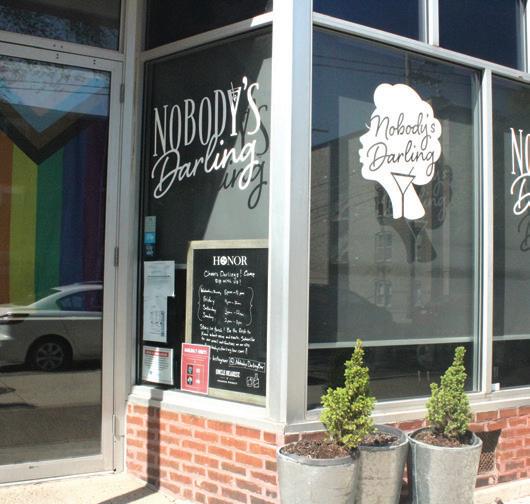
Just before opening Dorothy, Schor said she “got cold feet” because she was worried the bar wouldn’t be sustainable and that it could be dangerous.
She recalled “We didn’t live in a queer neighborhood and I was worried about if we’d have enough business. I worried, ‘Is it too esoteric?’ I worried, ‘Would there be violence?’ after we had all seen the shooting that happened in a queer club in Colorado, which was so horrifying.”
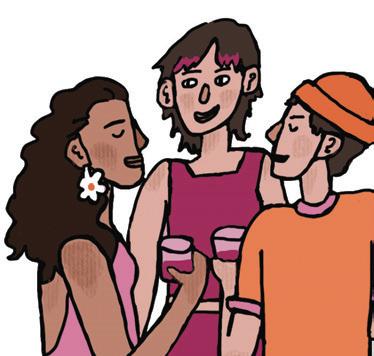
Like Nobody’s Darling, Dorothy has experienced plenty of success, Schor said, adding, “Our community is incredible—both the people who come out to the bar and the people who work in the bar. It’s been a really special thing to be a part of.”
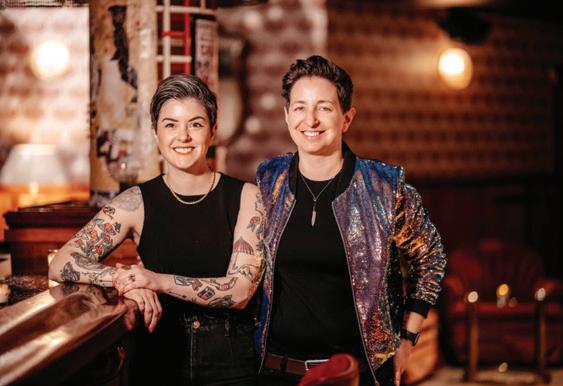
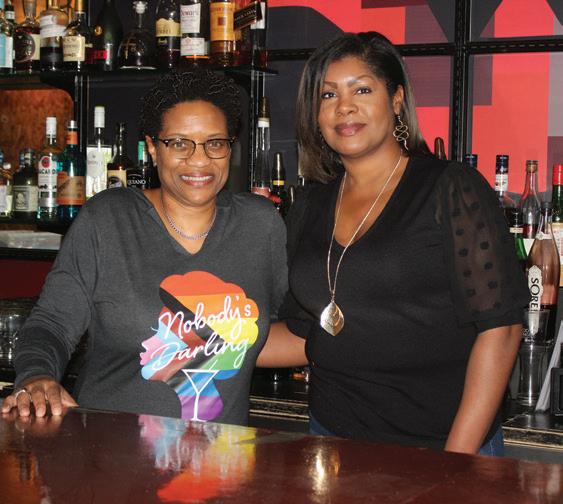
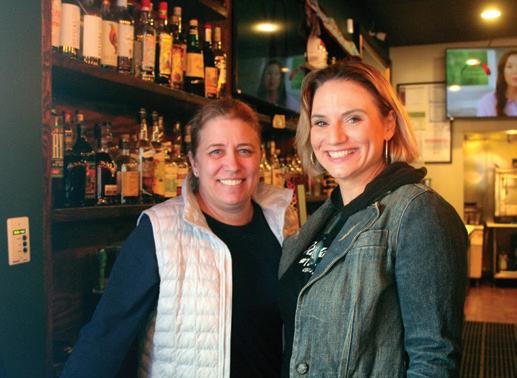
Nobody’s Darling, Dorothy and Whiskey Girl Tavern each have their own unique atmospheres and bring people together through curated community events.
Whiskey Girl Tavern is a classic sports bar, Roberts said. Visitors can expect craft cocktails, delicious chicken tenders and plenty of TVs showing sports games. The bar sponsors numerous local sports teams, including the semi-professional local soccer team Edgewater Castle, and invites neighborhood leagues to use its pool tables.
“Christina and I were both very active in sports—that’s how we met,” Roberts said. “So it’s a big part of who we are and the events that we have here.”
The bar hosts a variety of other events, like trivia, karaoke and live performances, and rents its space out for parties, Roberts said.
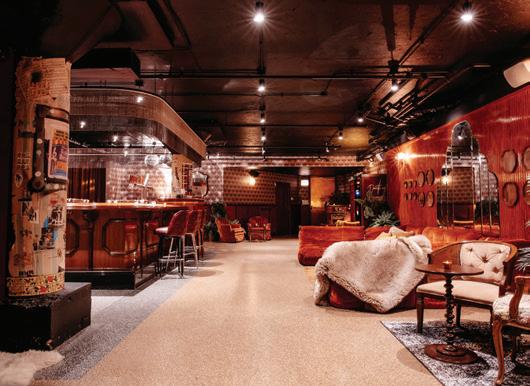
“Depending on who’s here, they sort of make it what they want it to be,” Roberts said. “We’re just trying to meet the needs of the community and be a space that anybody can come to and
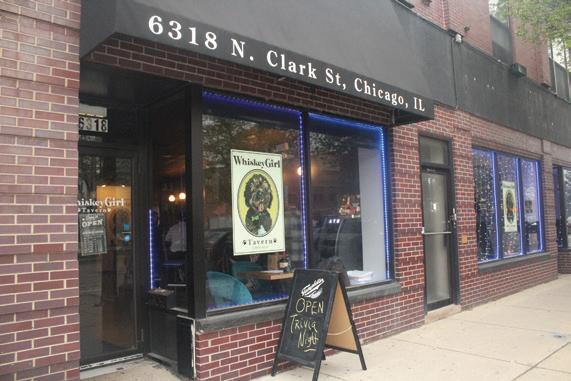
feel comfortable.”
Nobody’s Darling has blossomed into a “laid back intergenerational space” where all kinds of people come together to converse over a cocktail or glass of wine, Barnes said. Later on in the night, the lights dim and they bring out a single disco ball, so people can dance.
“You’re always going to get a great cocktail from eclectic mixologists who will entertain you,” Barnes said. “There’s always some regulars here who will give you a recommendation.”
To enter Dorothy, visitors pass through a secretive red door, traverse a steep staircase and emerge in a dimly lit speakeasy with velvet couches, a photo booth and an “unexpected little community,” Schor said.
“We didn’t set out necessarily to emulate the speakeasy vibe, and we certainly didn’t set out to put gays back in the basement and make them hide away,” Schor said. “But, it was more about creating a special and unexpected experience.”
Dorothy offers a variety of craft cocktails, “good tunes,” and “a place where you can talk with your friend without feeling totally overwhelmed,” Schor said.
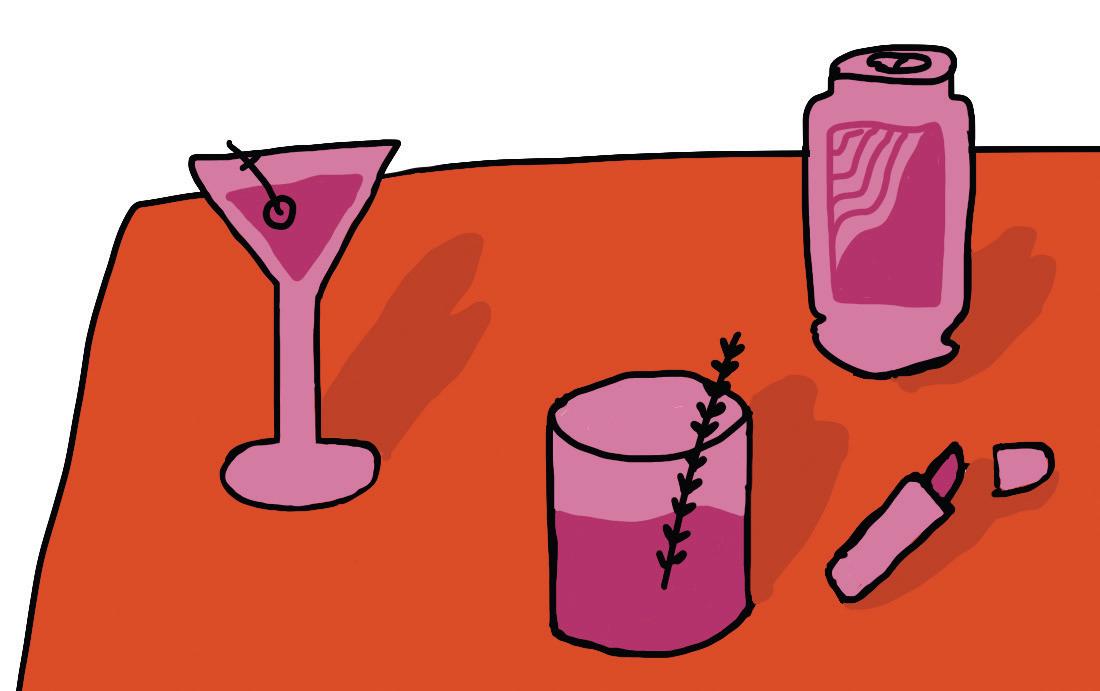
Each of these bars’ atmospheres shift depending on which events are going on. At Whiskey Girl Tavern, for example, women’s sports watch
parties draw large crowds of people, Roberts said. “People who hadn’t watched women’s sports before were saying they really wanted to do it again,” Roberts said. “People don’t want to just sit at home.”
Dorothy is home to Fruit Salad, a queer open mic, and plenty of viewing parties for lesbian cult-classic television shows and movies. When in her early twenties, Schor would gather all her friends to watch The L Word together because it was “unheard of” to have a show centered on the lesbian community.
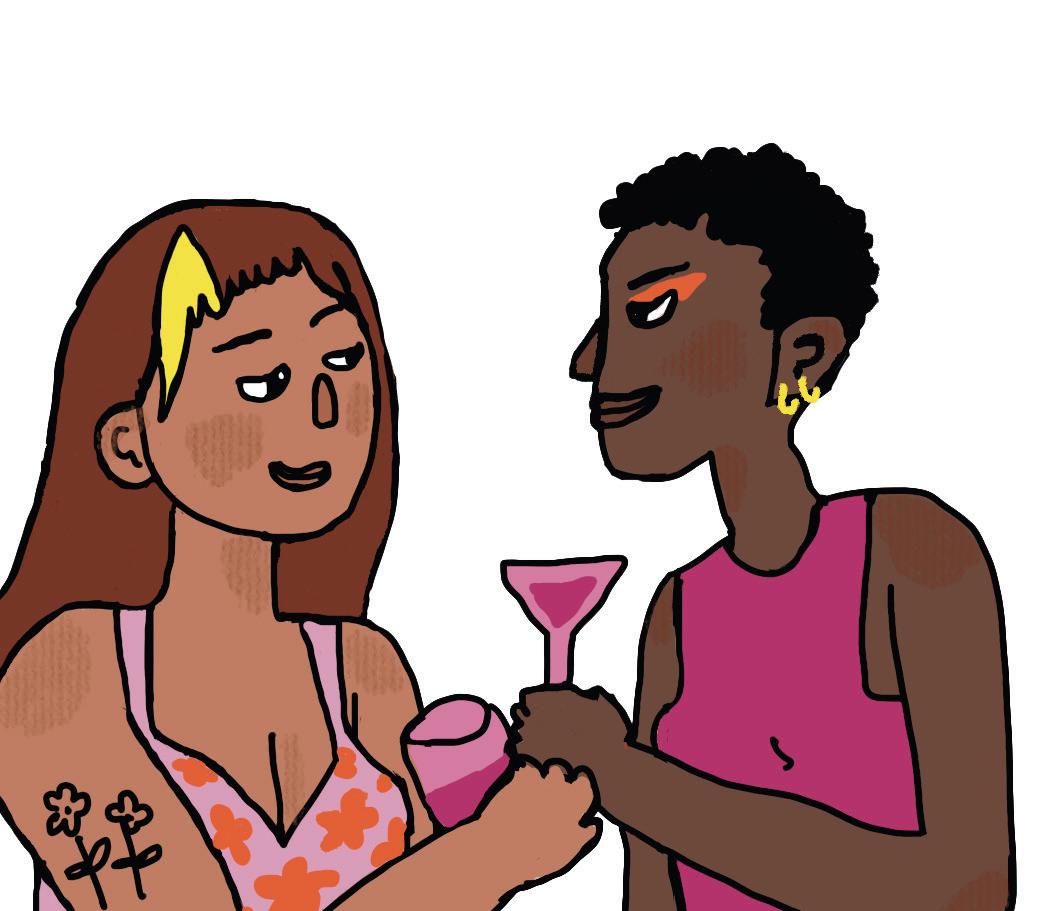
“You could hear a pin drop,” she said. “There’d be like 40 lesbians in somebody’s living room and you weren’t allowed to talk. The show always had a really strong sense of community for me.”
Schor relishes that customers gathered to watch the recent L Word: Generation Q follow-up in her bar. “It’s an extraordinary, full-circle experience,” she said.
The three bars each feature women and queerowned alcohol companies and other brands in order to amplify their audiences. Nobody’s Darling invites food vendors into the space, like Taylor’s Tacos, which is run by two Black queer women.

“Taylor’s Tacos really resonated with us, and the partnership was hugely popular,” Barnes said. “We thought it would be cool to give people the opportunity to come in and introduce their products to our clientele, but it also takes the burden off us when it comes to making food.”
Right above Dorothy is Schor’s restaurant Split-Rail and LaMora’s gallery The Martin.
“Something we find challenging is that people really want to support our businesses during June, which is nice, but I like to remind people to think about where you’re spending your money
all year round,” Schor said. “We’re queer all year. There really are so many places where you can come and be a part of something, whether you want dinner, a cocktail or an art gallery.”
Whiskey Girl Tavern is home to the yearly Whiskey, Wine & Women Festival, which is a tasting event where attendees can sample a variety of drinks created by women-owned companies.
“It’s really important to do these kinds of things and to acknowledge that promoting the people out there making these products is part of the business as well,” Roberts said. “We want to get them out into the market because it’s hard to compete against all the big companies with lots of marketing.”
The creation of these spaces has provided more opportunities for women to come together, share their interests and just relax with a drink. But, each of these spaces are welcoming to any customer interested in what they have to offer.
“It’s really important to us that you don’t feel like you have to be a certain kind of way to come into Dorothy and spend time in our space,” Schor said. “We’re a lesbian bar in that we’re prioritizing women, trans and non-binary people and trans men, but it’s also for everyone.”
As a queer woman, Barnes said she’s been in spaces where she didn’t necessarily feel welcome, so it’s important to her to create a space where women are “recognized and acknowledged.”
“It’s hard to explain, but on some level, it’s just about feeling like you’re safe, that you’re not going to be harassed, that if you don’t want to engage in a certain way, you don’t have to,” Barnes said. “There’s just something about being able to exhale and actually just have a cocktail and have a conversation.”
with Say She She & Abby Jeanne

Free concert July 20








with Henhouse Prowlers



Free concert August 24

























Great music, art, food, and places to stay at affordable prices. Bring your family and friends and make a long weekend out of it.



Plan your music road trip at visitbloomington.com.


















It’s the unusual person who is able to transform commutes to and from their office into anything meaningful, let alone a profound body of work documenting a generation. But Patric McCoy has done just that.
McCoy, a retired scientist as well as an art collector, spent years carrying his 35mm camera on his bike commute, photographing a number of men whom he encountered along the way. McCoy also took photos of men he met in various bars around Chicago, particu-
larly the Rialto Tap, where Black men who had sex with men frequently gathered.
The result was a collection of thousands of photographs portraying mostly gay and queer Black men in the city during the ’80s. Many of his subjects died at the height of the AIDS crisis, and McCoy’s pictures could very well be some of their last remaining photos.
Several of those photographs have been on display in the exhibit “Patric McCoy: Take My Picture” at Wrightwood 659 Gallery, 659 W. Wrightwood Ave., which runs through July 15.
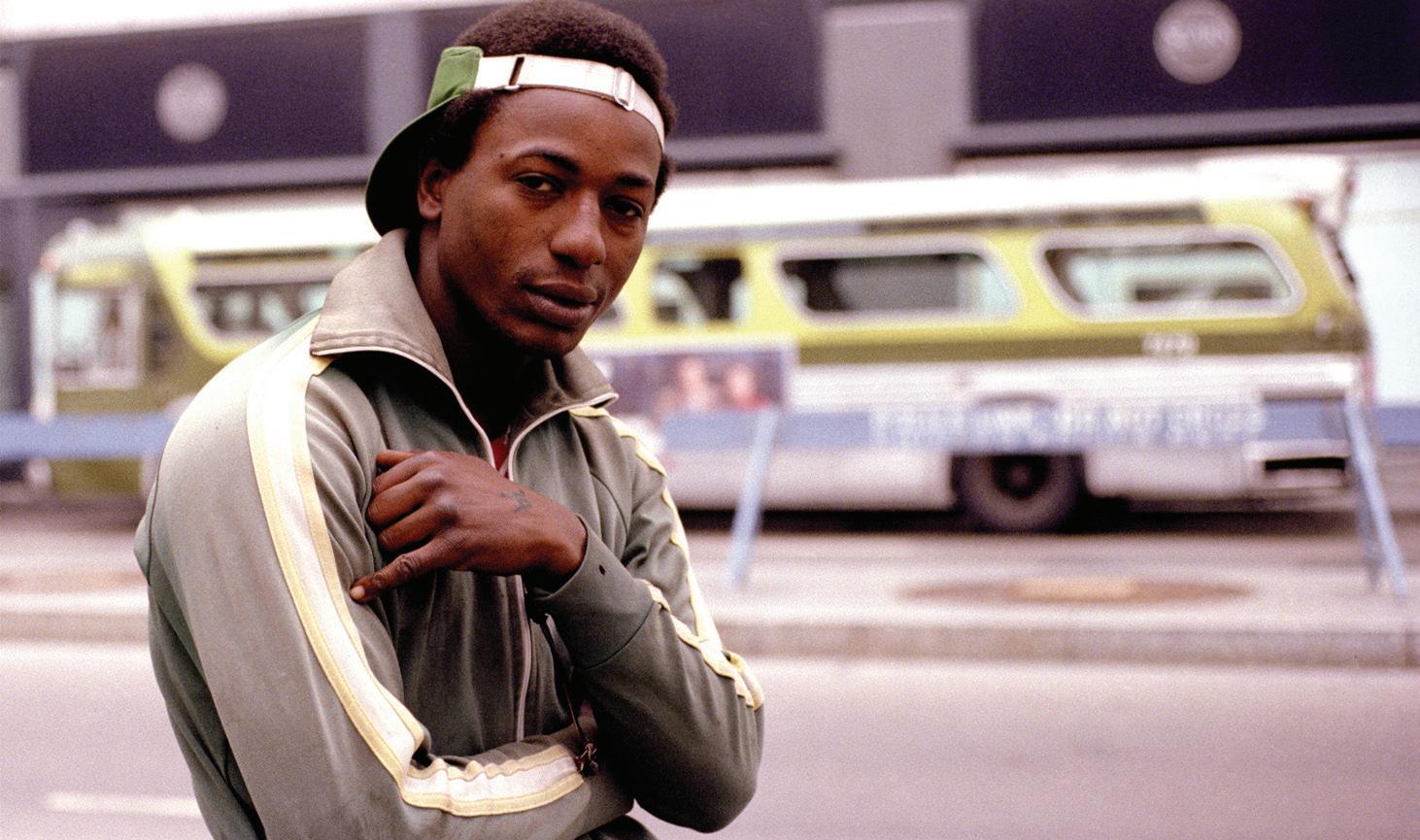
“I didn’t have a natural inclination to take the photography in a technical and professional sort of way,” McCoy recalled. “I have always been interested in visual imagery because I grew up in a home filled with art and photography. My father was a painter and a photographer.”
As a young man during the ’60s and ’70s, McCoy carried a point-and-shoot camera and took “lots and lots and lots of pictures.” A friend who worked at a camera shop eventually convinced McCoy that he should graduate to a 35mm model.
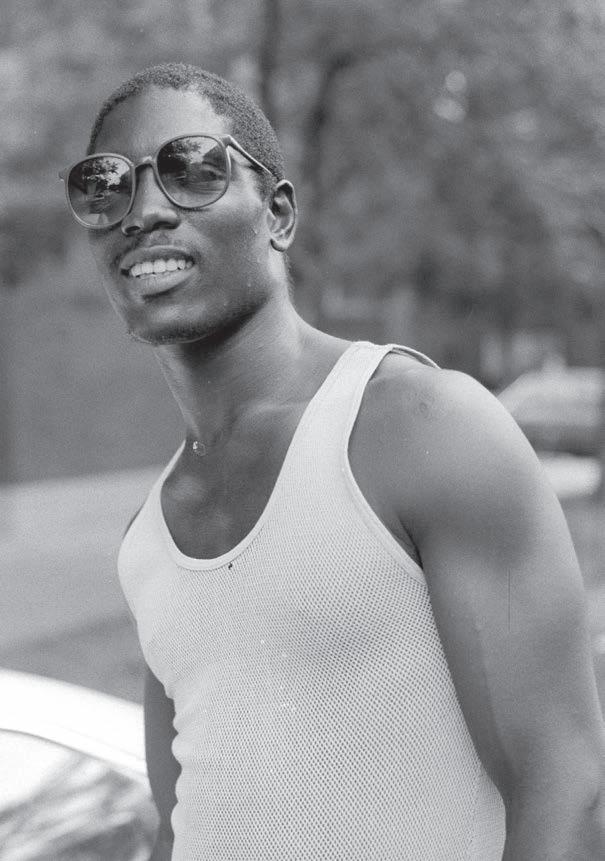
“I had a hesitation because I had not been that ‘tech-y’ with a camera,” he said. “But he convinced me.”
In December 1984, McCoy made a threepronged promise to himself. First, he committed to getting serious about learning how to use the camera. Second, he would take his camera with him everywhere he went. And third, if anyone asked him to take their picture, he would stop what he was doing in order to do so.
He thus bicycled each day, with his camera, from his home in South Shore to his job with the Environmental Protection Agency in the Loop.
McCoy said, “Invariably, people would see me—because I’m sure I looked like quite a little nerd—and they would holler out at me, ‘Hey, take my picture.’ With this commitment, I had to stop [and do it].”
He never told his subjects what to do or how to pose. Among McCoy’s subjects were residents of various South Side neighborhoods, and people experiencing homelessness who were at the time living in Grant Park. The patrons from the Rialto Tap particularly seemed to enjoy engaging with McCoy’s camera.
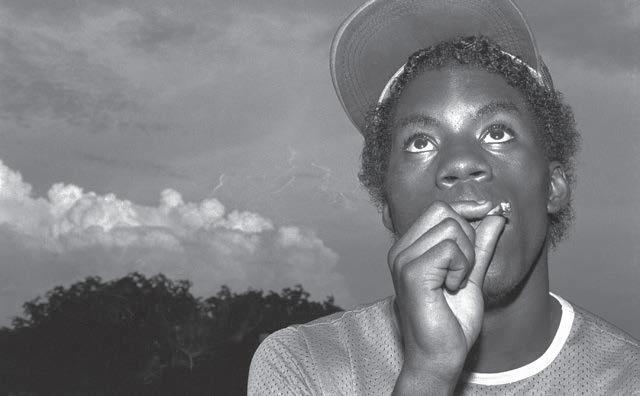
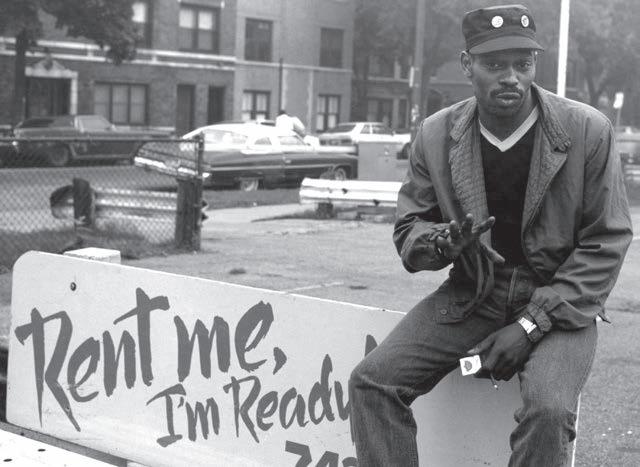
“It was in the south end of the Loop, in the seedy portion,” McCoy recalled with a laugh. “They all also started asking me to take their picture. It became a flood.”
McCoy now recognizes the pertinence of his pictures for the bar’s patrons.
“These are people who wanted to be seen and wanted to be documented,” he explained. “During this time period, most people did not have good photographs of themselves. Point-and-shoot cameras were popular, but we now know that the film was not set up to make Black people
look good, and most people looked like smudges. … People seeing me with what was considered an expensive, professional camera were saying, ‘Maybe I can see if he can make me look good.’”
McCoy would develop and print the film each night in his father’s darkroom, then present his subjects with their photo the next day.
“They would be astounded—it was a 5x7, so something larger than what they were normally accustomed to—and excited that I was just giving it to them,” he recalled.
Though McCoy gave away many of the pictures, he nevertheless was left with a huge collection of his work. In 2022, his friend, artist Juarez Hawkins, set about curating those photos for an exhibit.
“I had the daunting task of looking at about 1,500 images,” Hawkins said. “For the first run, I just looked to see what bubbled up. Just in the looking, I began to see groupings … like men at leisure, men hanging out, busy with life. Lots of fashion—fashion was a lot of fun … men on bikes, lots of beautiful men on bikes. From there, I started narrowing it down. From each grouping,
I asked, ‘What’s going to tell the story the best?’”
By the time Hawkins narrowed it down to 200250 pictures, she admitted to herself that she still had a “curatorial juggernaut.”
“There were no duds in the bunch,” she said. “But I wanted things that talked to one another so each grouping fed a piece of the narrative.”
Hawkins considered herself lucky that McCoy was around to contribute his ideas: “Patric definitely had a say,” she said.
McCoy, who is himself assembling the images for a book, said that he regards the Wrightwood show as “the opening of a discourse, a conversation, about that time. Since we’re in a world where queer identity is accepted, [we have to ask], ‘Where did that come from? What came before this?’ … If we didn’t start this conversation, [the history] would be totally lost.”
This article was made possible with a grant from Comcast Corporation that was awarded to News is Out, a six-newspaper collective in which Windy City Times takes part. See newsisout.com.
Publishing company Marvel Comics has been showing its true colors, with Marvel Voices: Pride #1 returning in 2023 for its third year in June. The comic book series features a wide range of out and proud characters and was nominated for a GLAAD Award in 2021.
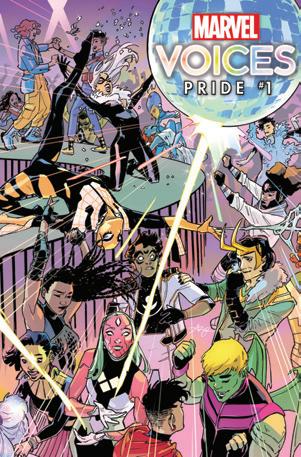
Nonbinary writer Sarah Gailey (pronouns they/them) contributes to the special issue with a Louisiana tale about cat burglar Felicia Hardy also known as Black Cat. They started writing short stories in 2014, and in 2018 won the Hugo Award for Best Fan Writer. Gailey has also written several novels including When We Were Magic, The Echo Wife and Just Like Home.
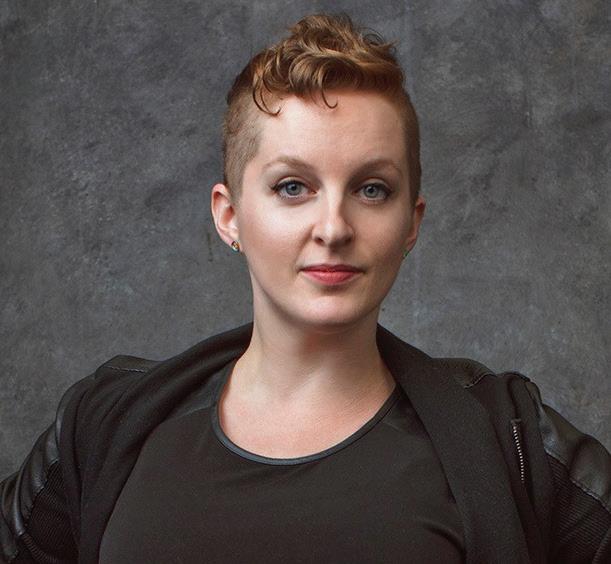
After producing multiple comic collections for Boom! Studios, Voices will be the first time they have worked with Marvel Comics.
Windy City Times: Have you been a comic fan for a long time?
Sarah Gailey: I spent many hours reading comics as a young person, and would obsessively trace any beautiful woman that was on the page. That was a hint of what was to come!
WCT: As a young gay boy, I always studied their physique and the male characters would sometimes take their shirts off.
SG: I am currently reading old Werewolf by Night comics, and there are men with chiseled jawlines and shirtless. It is such a gift for us! [laughs]
WCT: Do you have a favorite character?
SG: I was always deeply invested in Spider-man and had an intense imaginary relationship with Mary Jane Watson.
WCT: What led you to this Pride comic?
SG: I have been writing comics in the indie space for a while like The Vampire Slayer. I also worked on the original series Eat the Rich and Know Your Station.
My experience in the indie comic realm has been incredibly fun and rewarding. People seem to like what I am doing there. I was asked to work on a one-shot for Marvel Voices: Pride and I immediately said yes. Having an invitation to be extremely queer on the page is an indescribable thrill.
When I heard it was Black Cat—and knew she is a beautiful thief that loves crime—that was truly special. To write an explicitly queer story for a queer audience is such an opportunity for me. I was chill on the outside, but on the inside, I was screaming!
WCT: How does Black Cat identify?
SG: In the comics, they usually identify her as bisexual. I always use the word queer because there is too much temptation to divide our community. The bisexual versus pansexual crusades have been going on longer than I have been alive. I try not to marry people to one side or the other on that because I think that is a false distinction. We can safely say she is bisexual or pansexual.
WCT: Were there any limits placed on how you could depict the character of Black Cat?
SG: They did not set any limits, but if I had her say that nuclear war was a good thing, for example, then they might have asked me to pull that back.
My editor there actually told me to be less careful. I put in a subtle nod towards heroes fighting back against the forces of evil who are trying to damage the queer
community, and the editor said I shouldn’t avoid stepping on toes. I was told to say the thing I want to say. In this day and age, there’s so much preemptive censorship that to have someone with a major company say that was so incredibly healing.
WCT: I remember reading comics in the ’70s when they were not supportive of women, so the industry has come a long way.
SG: Yes, just the depiction of queer people and celebratory queer stories makes my heart want to explode!
WCT: Is the Marvel Voices scene set in New Orleans during Pride?
SG: Yes. Black Cat is visiting New Orleans in the story for some nefarious purposes. She hangs out with Gambit, who is the prior king of the New Orleans Thieves Guild, and [they] have an adventure together.
WCT: Were Buffy the Vampire Slayer fans difficult to please with writing The Vampire Slayer series?
SG: I was expecting such a ruckus, but Buffy fans have been very kind to me. They have been supportive and picked up on every bit of subtext that I put in the comics. Queer Buffy fans specifically have been so excited with the storylines I have created for the series.
WCT: The Marvel Voices series has meant a lot to people such as myself and I have collected it previously.
SG: I was reading the previous Marvel Voices, and there was a reprint of the first time a major character named Northstar came out as gay in Marvel Comics. I was bawling when I read the last page where the creators wrote about how AIDS has affected their lives.
WCT: What are your Pride plans?
SG: I have to stay home from the parade because I am immunocompromised. I will be at home promoting my queer peer friend’s work with this Pride issue. Many of us this year will be focused on promoting trans authors and voices, since they are at risk in this country right now. That is where my energy will be!
Look for more rainbows and variant covers at your local comic shop or by visiting marvel.com.
Chicago-based artist Isabella Mellado’s paintings and sculptures are vibrant, colorful and larger than life. Her work represents autobiographical and allegorical scenes, nearly all of it featuring characters inspired by the tarot.
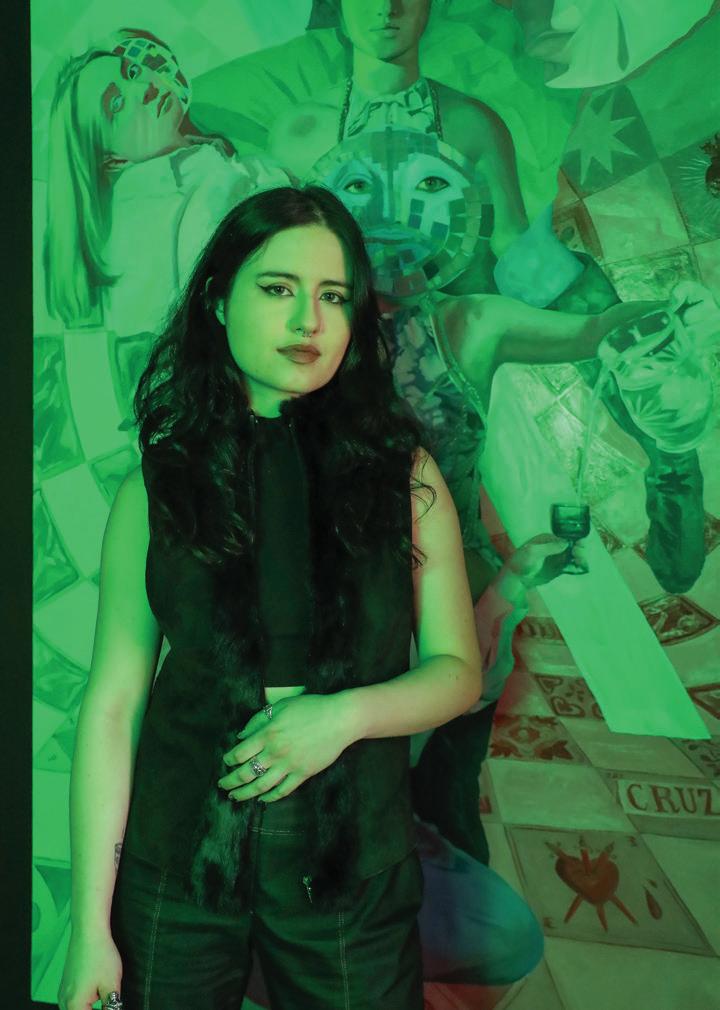
Mellado (she/they, pronouns she alternates between) designs elaborate physical sets with hand-made props to generate reference photos, which are further rendered in Photoshop to create fantastical images that more closely match her expressive vision for her paintings. The shining stars of Mellado’s prop-making, however, are the papier mâché masks she creates to represent tarot characters, like the Sun, Moon or Death cards.
“Queering the tarot” is a common sentiment in various queer discourses. Many in the LGBTQ+ community have woven the tarot into their dating apps, their belief systems, and their core identities.
“Tarot is a symbolic framework that allows me

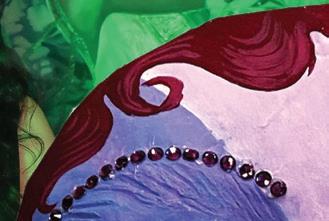 BY JESS SAVAGE
BY JESS SAVAGE
to insert myself because it’s made for that,” said Mellado. “It’s about identity.”

They just completed their final semester at the School of the Art Institute of Chicago, and earned their MFA from its painting and drawing department in May. Growing up in Puerto Rico and completing their undergraduate degree at the Rhode Island School of Design, Mellado has had plenty of experience moving between different cultural spaces.
But it wasn’t until Mellado came to Chicago that she finally found an ideal mix of Latinx and queer communities: “Because my work engages with being part of the diaspora … I decided to go with SAIC, and I’m very happy that I did.”
A supportive community is vital for most artists and creatives, and Mellado is no different; they keep community at the core of their work. Switching between communities—returning to their family in Puerto Rico, moving about
their neighborhood (Pilsen), engaging with various Latinx and queer spaces—for Mellado is indeed almost like donning different masks. Her work started exploring what it meant to be a queer artist relating to her community, how queerness is a part of social dynamics, and her core identity as an artist. The city allowed her to find ways to express themselves authentically. She took on a role, as many artists do, as a recorder of history.
“We are capturing what the culture is around us, and that’s intuitively what I’m doing and what I’m still doing—just capturing the world around me,” Mellado said.
She initially combined this experience of masking and code-switching with their original inspiration, the vejigante, a Puerto Rican folkloric character that teases the audience during parades and festivals. These are jesters, whose name directly translates to “liver giant.” They carry dried cow livers with seeds rattling inside like a maraca. Learning about and engaging with the vejigante, a deeply rooted aspect of Puerto Rican culture, was the beginning of Mellado’s deep interest in mythology and folklore.
Mellado’s first mask, used as a prop in the painting called “Interview with a Gargoyle,” drew from folklore about a local Puerto Rican town that couldn’t get rid of a gargoyle attacking their

livestock. Inspired by this story, Mellado created a mask with chicken wire and beads; their sibling posed as the gargoyle being interrogated by the town, and the years-long series began.
Mellado then started making masks and paintings that reflected their life experiences, and how and where they aligned with the teachings from the tarot.

“I was using the tarot as a framework, thematically, for what I wanted to say that related back to me, personally,” she said.
Rather than the deity-like characters from the tarot, Mellado paints human characters donning masks. Their characters are vulnerable; they have flaws, they experience hardship.
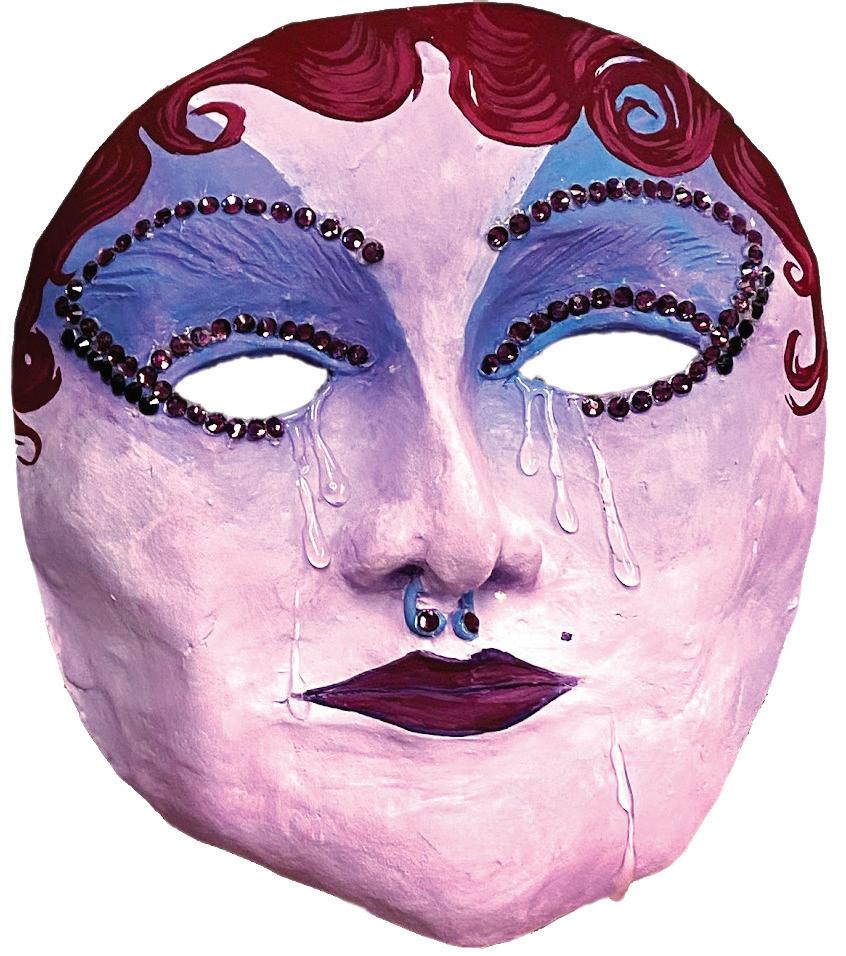
Over time, the meaning of the masks have changed and deepened. Mellado explores their multiple meanings, employing the traditional background of tarot characters, but applying the metaphor of using masks as protection for moving through cultural and community spaces.
Mellado’s identity has transformed since their arrival to Chicago in 2021. She wasn’t as ‘out’ before she moved, but said that “moving [to Chicago] emboldened me, because I was able to move from conservative spaces, where I was afraid that I wasn’t going to be accepted, to a space where I’m in art school, surrounded by other queer people. I felt safer to explore making work about being queer.”
Indeed, Mellado feels safest within the queer community: “When I’m here in Chicago … and I’m in queer community, I’m masking less; I know I’m safe there.” On the multiple masks she wears, she explained, “They’re different aspects of my identity, and they all belong to me.”
In the last few months, they have had works in Heaven Gallery, The Martin, Kavi Gupta Gallery, Blind Barber and Art in Common. They believe that Chicago’s ability to convene artists and creatives in such a powerful way allowed them to explore their impact as an artist who seeks to connect directly to their audience.
Mellado said, “I want my audience to look at my paintings and see themselves in it. As a Puerto Rican artist, as a queer person, I want to provide that representation, and I want to open doors for other people who are like me…I just want them to feel seen; that’s the point. I want you to feel seen, I want you to feel held; that is the core value.”
When it comes to loss, Fabrizzio Subia may know more than most people.
Having dealt with everything from familial loss to the erasure of his history, the Ecuadorian-American multidisciplinary artist (who has also done things like host the open-mic event Tortas y Talento) this past spring unveiled a video installation “Año Nuevo (2023)”—a grief performance which was on display through early May at Chicago’s International Museum of Surgical Science. The piece was dedicated to his late brother and was the sequel project to “Año Nuevo (2019).”
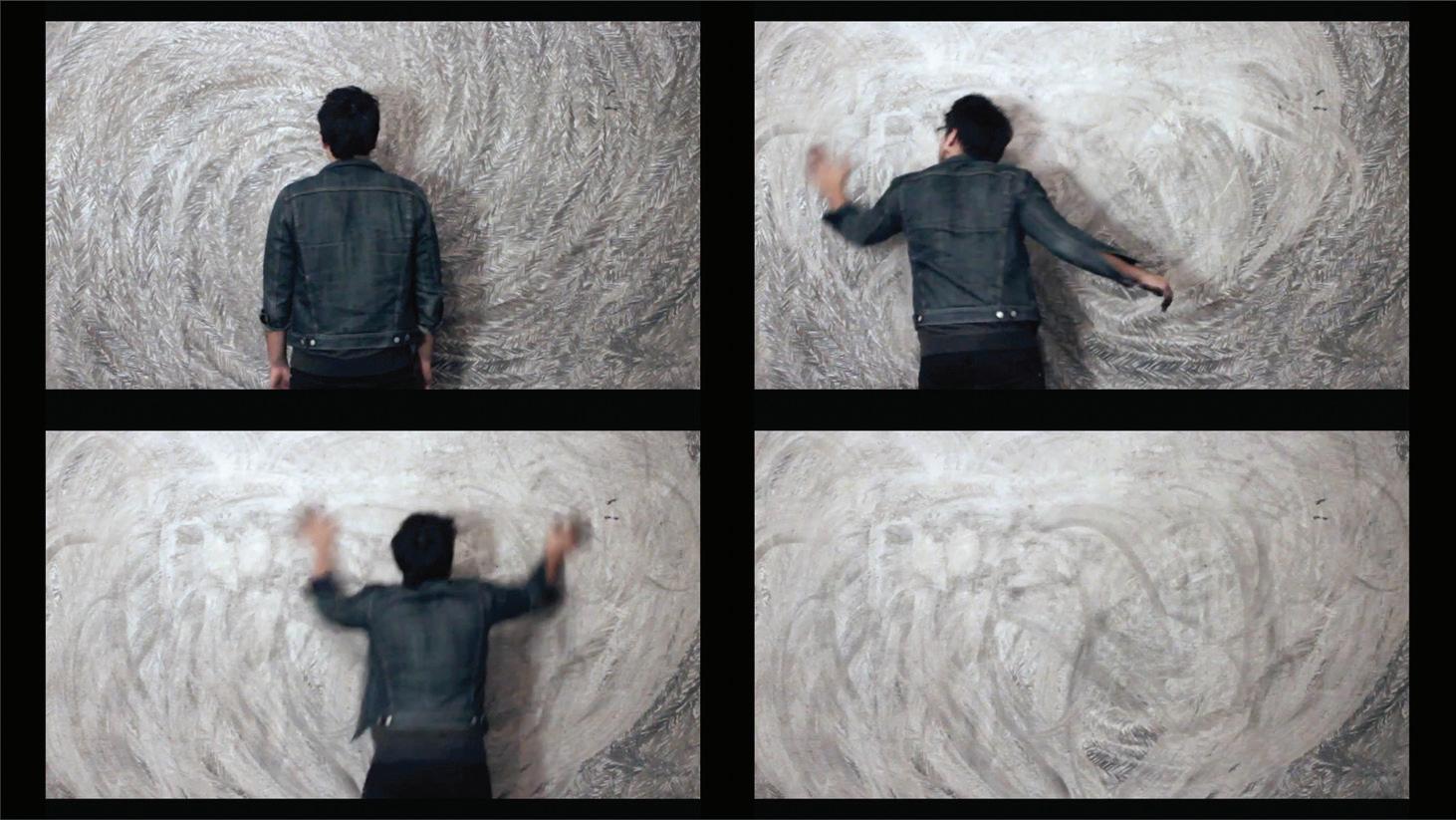
In a talk that sometimes turned emotional, Subia (who now utilizes “he/they” pronouns, acknowledging their life is a journey) discussed constraints against art and how he ultimately decided to do what they felt was necessary.
Windy City Times: Tell me about your life and background.
Fabrizzio Subia: Sure. I was born in Guayaquil,
Ecuador; it’s a city named after two indigenous founders—Guayas and [his wife] Quil. I left when I was eight years old, during the late ’90s. I’m 32 now. It was a time of intense political instability in Ecuador; I remember getting out of elementary school and having to cover my nose because there was tear gas. My mom, brother and I came to the U.S.; my dad went to Spain. I reconnected with my dad after my brother’s death, and it’s been very healing.
Around 2000, the Ecuadorian economy collapsed. That’s in another project I’m doing, as my work deals with migration. The national currency disappeared and the U.S. dollar appeared. To this day, the national currency of Ecuador is the U.S. dollar.
We moved to the West Side of Chicago. We went to the suburbs for high school; after that, we moved to Uptown and I’ve been there ever since.
WCT: What are LGBTQ+ rights like in Ecaudor?
FS: Oof … There’s a lot of machismo there as well as Catholicism. The church controls so much of the politics. A lot of people there don’t feel comfortable sharing their identities. There are some brave people there—and I am very proud of them.
WCT: What drew you to art?
FS: Ha—that’s such a good question. When I was 6, my mom put me in a painting class after I threw a tantrum. [Laughs] I remember looking forward to going to class, but then we moved to the U.S.
This next part is very important: We overstayed our visa and were undocumented for seven years. So we were very poor, and I wasn’t put into art classes again.
And I was discouraged from being an artist as well. Imagine that you’re a poor single mother of two—and, to this day, my mother doesn’t speak English. I was constantly told that there are no jobs in the arts and that I should be a doctor. I really rejected that [artistic] part of me, and I
didn’t paint again until I was 27 or 28. But I did write; paints are expensive but you can steal a pen from class. [Laughs] So writing and poetry are the foundation of my art. I consider myself a writer and a performer. So I studied, at age 9, to be a doctor—but I also wrote.
When I turned 13, I told my mother that I wanted to be a writer when I grow up. She said, “That’s great. However, that’s not going to get you money.” I can’t blame her; she did the best with what she had. I studied to be a doctor until I was about 25—and I was so depressed. I dropped out of school twice.
At The College of DuPage, I studied art and the humanities. Surprise, surprise: I got straight A’s there. Then I went to DePaul to study medicine; but I again became depressed and I dropped out. I then went to the City Colleges of Chicago— behind my mom’s back—and studied art; it was incredible and I built a portfolio. I ended up at the School of the Art Institute of Chicago—going there on a Presidential Scholarship—and I graduated in 2020.
WCT: So you got what you wanted because you decided to pursue your passion.
FS: Yeah—behind other people’s backs … [Laughs] My friend told me I’m living the immigrant kid’s dream of pursuing their passion and not their parents’ passion.
WCT: How does your mother feel about your art now?
FS: That’s a good question. She says, “I’m very proud of you.”
WCT: At the same time, she must be very emotional about the [installation].
FS: Exactly. So my brother passed away in 2020. My whole life was just dictated by moving here to the U.S., and all I had for protection and a connection to my previous home were my mom and older brother.
WCT: How did your brother pass away?
FS: [Sighs] That’s a hard question. Some would lead people to believe that he passed away from COVID and that was certainly a factor. It was only after his death that I realized how deep his mental-health issues were. He put on a facade [of strength] and I modeled my life after him. [Tears well in Subia’s eyes.]
The police report—at least, the one that I got … Something that I have to say is, “Fuck cops. Fuck the police.” There was definitely corruption in this case, but the short few sentences said that my brother was hit by a car. What I can say is that the pandemic really took a toll on his mental health. There are so many COVID casualties that are due to the isolation—and being an immigrant is isolating enough as it is.
WCT: So tell me about “Año Nuevo.” It’s based on the “Año Viejos” tradition [in which people burn effigies to end the old year], correct?
FS: Yes. The Ecuadorian New Year has everyone with an effigy. When the clock strikes midnight, we put them, filled with fireworks, into a bonfire. It’s very healing. I’ve always considered it a grief ritual even though many Ecuadorians see it as a celebration—burning the old to make way for the new.
Once we got our papers here in the U.S., we were able to travel back. I go back every year; it’s how I stay connected to my home country. It’s strange because so much of my work deals with destruction in some way. The theme of my works has been that Latin American people and immigrants are themselves the result of a culture that no longer exists; it’s what’s called an “embodied knowledge.” We don’t know the real history. Colonialism and policy literally burned down our history and that, to me, is very indicative of this celebration—it’s us who are burning.
Since my brother passed away, I’ve been thinking about making art that isn’t so community-based but more for myself. But what’s weird is that with this project—“Año Nuevo (2023)”—I thought it would be an individual project in which I meditate on grief. I don’t know what grief is, but I know that you have to do something—maybe perform—and that brings people together. The [effect] of my grief

ritual has been generational. The performance itself was intense because we burned one effigy an hour for 24 consecutive hours.
WCT: Do you feel like you’ve healed?
FS: That project made me feel like I’m a different person and that I’m in a different place. I don’t know if that’s what healing is, but I can say that I’ve lived the happiest moments of my life. Doing this project—even a grief performance— was a happy moment for me. Art is my therapy.
WCT: What’s your advice to the next generation of LGBTQ+ BIPOC artists?
FS: Firstly, don’t take advice from me. [Laughs] I will say that community’s a responsibility. It’s healing. When you find your community, make sure you take care of the others around you. Also, it’s okay to take your time; it’s a scary world out there. Protect yourself, more than anything. If you’re an artist, you’re going to be made to feel like you have to make work about your identity for a white gaze. Treat your artwork like it’s a gift to one specific person. Also, know who your audience is.
I don’t know if my words mean anything, but if you need anything, I can be there. Hopefully, you’ll feel the love and connection that I’ve felt with my art communities.
This article was made possible with a grant from Comcast Corporation that was awarded to News is Out, a six-newspaper collective in which Windy City Times takes part. See newsisout.com.
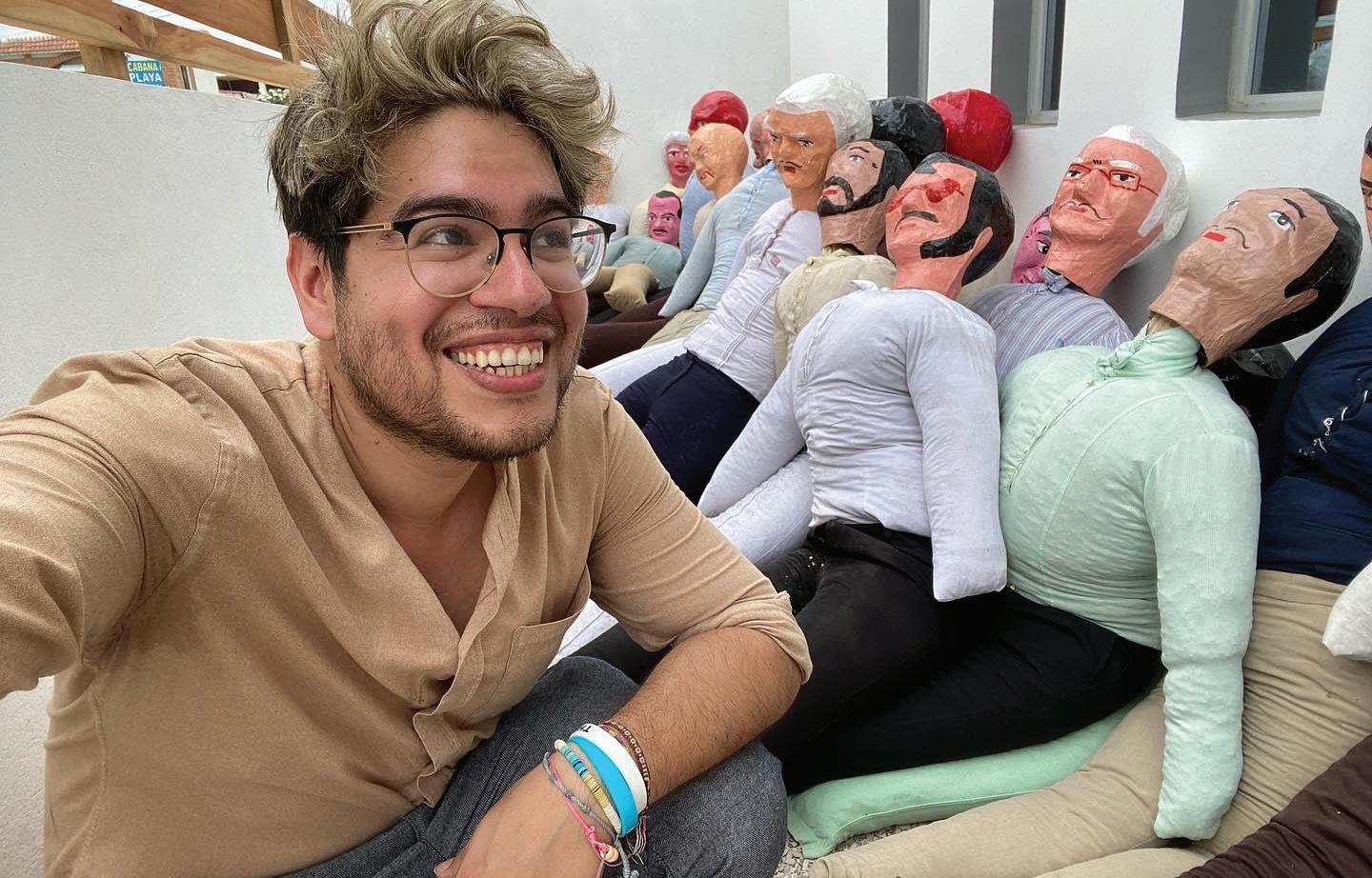
embrace the unexplainableFabrizzio Subia. Courtesy of Subia
Elijah McKinnon (they/them/their) is definitely marching to the beat of their own drummer—and many people are benefiting from their vision.
McKinnon—who describes themself as a BlaQ, nonbinary #queerdragon—is an artivist (artist/activist) and entrepreneur who, in 2015, co-founded (and is executive director of) OTV | Open Television in Chicago with Dr. Aymar Jean Christian. OTV is an “online and city-based platform for intersectional television, film and video art,” according to its website. It aims “to amplify voices that have been marginalized for centuries in the United States and globally to build empathy and equity in our society.”
However, this isn’t McKinnon’s only endeavor/ achievement. A former Windy City Times 30 Under 30 honoree, they, among other things, became the founder and director of People Who Care, Inc., their independent consultancy and studio practice; and was a recipient of the prestigious New Leaders of Chicago award by the Field Foundation of Illinois and MacArthur Foundation in 2020.
This interview was edited for length and clarity.
Windy City Times: I know that language is constantly evolving, and I noticed that you describe yourself as “BlaQ” and a #queerdragon.” Is [the former] in reference to “Black queer,” or is there even more to it?
Elijah McKinnon: Yes! [Smiles] It means “Black queer” and it provides an expansiveness for “Black.” There’s not only one way to be Black and I feel the intersections of my Black and queer identities are what allow me to understand both and how they work together.
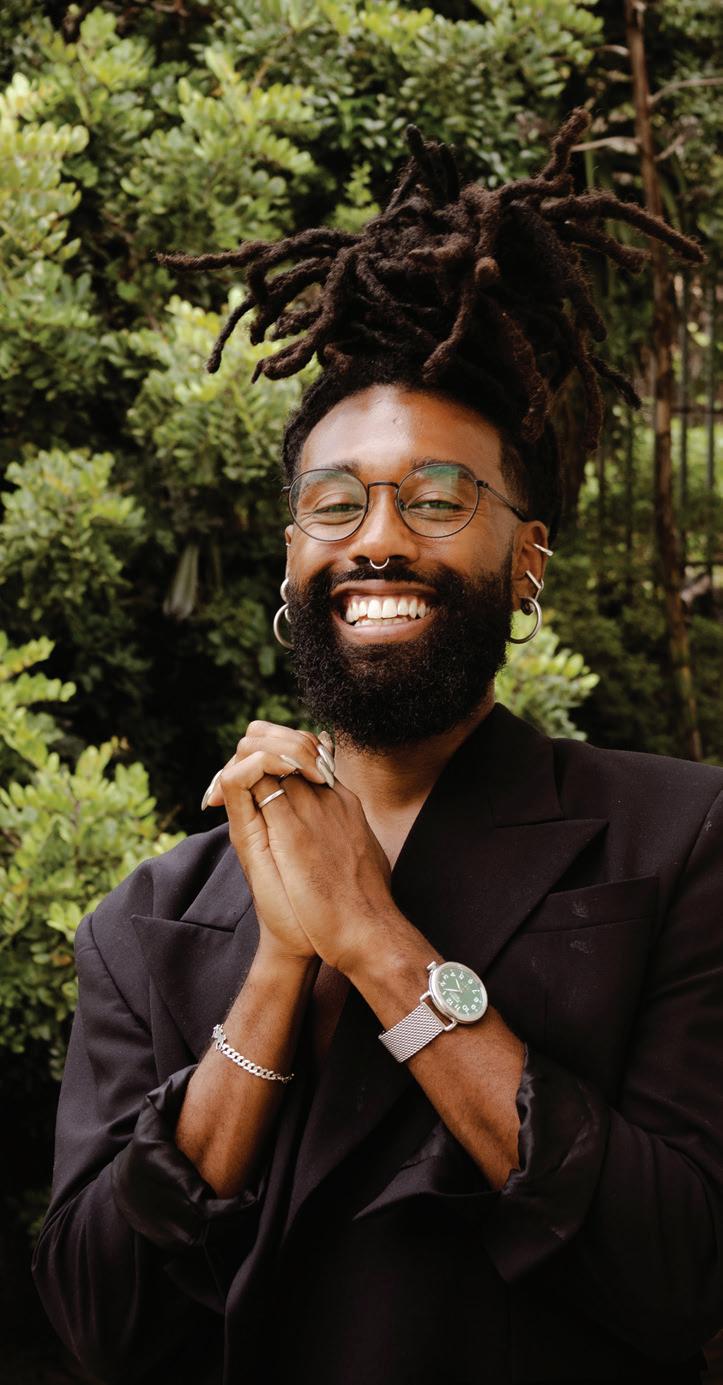
I started using “#queerdragon” back in university about 10 years ago. A lot of people don’t know this, but I enjoy sci-fi and Black speculative fiction. Dragons are mythical creatures that, historically, are protectors and guardians and I feel that I’m a healer/protector/guardian of all things anchored in queer legacy. Don’t get too close or you might get burned! [Smiles]
WCT: You mentioned intersectionality. What
do you feel it’s like to be Black and LGBTQ+ in today’s America?
EM: I think the world is deeply nuanced and challenging to exist in any identity in this current landscape. It becomes increasingly challenging to be Black and queer and nonbinary in these conditions that we live in because the world is in a constant state of catching up to language, feelings and information. For me, it’s challenging— but I believe those challenges present such great opportunities for us all to expand. To be Black, queer and nonbinary is a truly revolutionary act of deeply understanding myself, my values, and my position in the world to deliver purpose and meaning. It’s a vehicle to a whole other world that I get to be a part of and help build.
WCT: And you’re becoming an activist and role model in the process.
EM: The world has made me a role model. [Smiles] I believe that the passions and commitments that I have to mobilizing ideas, sharing resources and cultivating opportunities for intersectional people to thrive have called me to pursue this work. I didn’t find this work; the work found me. That can be true of any individual in any industry.
I consider leadership to be ordained. I’m very wary of people who elect themselves to be leaders or visionaries. I believe that those positions come with a lot of responsibility and require investment from the people who are directly impacted by that work. To me, it’s about showing up, doing the fucking work and going home. And I have a really great life outside of what the world sees, and that’s sacred and beautiful.
WCT: Let’s jump to OTV. I know that we’re making our way out of the COVID pandemic but how did that affect OTV?
EM: People around the world have had to adapt the best way they know how and, for OTV, we were extremely privileged to be a resource to organizations and to already be experimenting in the digital/online live space. So the pandemic really invited us to create space for expansiveness in a world that felt restricted and confined in a variety of ways.
What was really beautiful about that process for us—although it was also quite challenging— was that we were able to cultivate a sense of joy through enduring the pandemic. I’m not sure we would’ve been able to do that if we already hadn’t been playing in that space. We experienced our first livestream in 2016 through a collaboration with [art center] Mana Contemporary and The Propeller Fund; the year after that, we hosted a livestream with the Museum of Contemporary Art. In 2020—through funders and resources—we launched our own app, which provided us a really great opportunity to reach people in a way we hadn’t been able to before.
WCT: Regarding OTV, how exactly does it work regarding submissions, for example? There’s a wide variety of items but there are guidelines, I assume. Also, please talk about OTV’s mission.
EM: OTV began as a platform to make television more artistic, open and sustainable. Our framework is feminist, anti-racist and inclusive; it focuses on individuals who live at the intersections of multiple identities that are constantly marginalized by markets, industry and society. We wanted to see what stories exist and why they’re not given the [proper] platform.
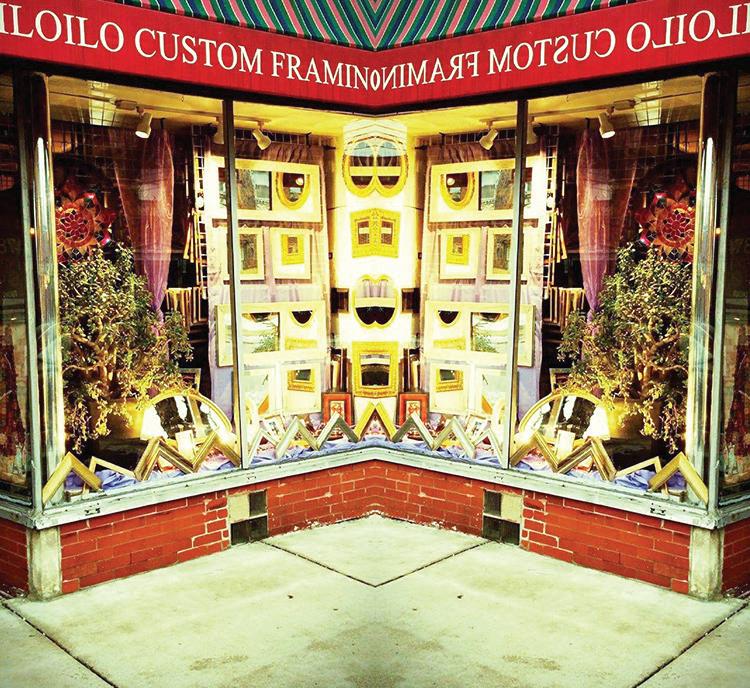
Over the years, and through many different iterations, we’ve become a nonprofit streaming platform and a media incubator for intersectional storytelling. I think what really differentiates us from a lot of people/organizations/initiatives in the TV/film landscape is that we really center artists and their creative visions as anchors; we support them in various ways, such as nurturing their careers. We want the next generation of intersectional storytellers to dream, create and thrive—on their own terms.
We have cultivated a pipeline for people who have completed projects that need distribution. We have rolling submissions; people share their information on our website and our development/ production team reviews the content. What’s wild is that we used to actively ask for content; now, so many people from around the world have discovered our platform—mostly through other artists, which is really beautiful.
In terms of guidelines, there are none; we take an anti-capitalist approach. There are eligibility criteria that we must adhere to for our values. The core pieces are that the work needs to be developed by an intersectional creator and/or the content needs to be framed through an intersectional lens.

Behind the scenes, our marketing and production teams work really hard to cultivate an annual slate of programs that speaks to the world around us.
WCT: What is your advice to the next generation of intersectional storytellers regarding entering the business or being part of the larger narrative?
EM: I think my advice to all types of storytellers/creators would be to get close to yourself in a way that may feel uncomfortable. I think the world is dominated by media, and media has a way of documenting and archiving and exploiting a particular perspective that is not the full story. We need to understand what we want, deserve and dream of—that will help them actualize their dreams and goals in a way that feel tangible and accessible.
Spend as much time as you can trying to understand the parts of yourself that are being developed and cultivated when no one is watching. There are times you need to be fearless, and times when you need to be vulnerable and soft.
WCT: Is there anything you wanted to say in conclusion?
EM: OTV is and always will be a platform that prioritizes artistic vitality. It’s important for us to know that this organization, which is approaching its 10th anniversary, was built on the backs of Black, queer, nonbinary, trans people. That’s where our work begins and ends. Anything in between there has been an immense gift for us.
This article was made possible with a grant from Comcast Corporation that was awarded to News is Out, a six-newspaper collective in which Windy City Times takes part. See newsisout.com.
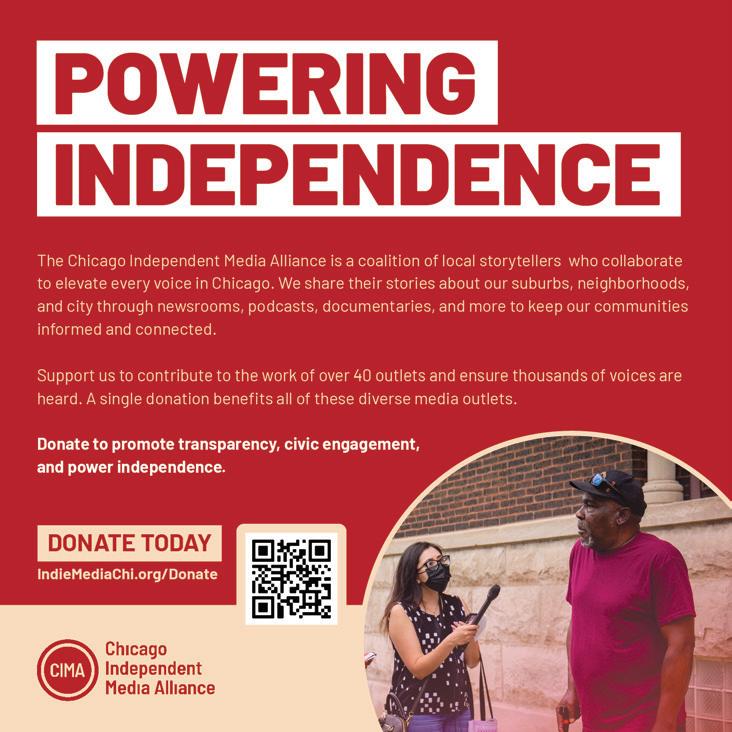
An oft-repeated quote from F. Scott Fitzgerald—usually taken out-of-context— suggests that “there are no second acts in American lives.” Local activist—and, as of lately, model— Stefanie Clark has been putting a lot of effort into disapproving that maxim lately.
Since transitioning in her early seventies, Clark—originally an accountant by trade—has been speaking publicly about her experiences living as a transgender senior, calling attention to issues faced by individuals who contend with societal challenges around both their gender-identity and age.
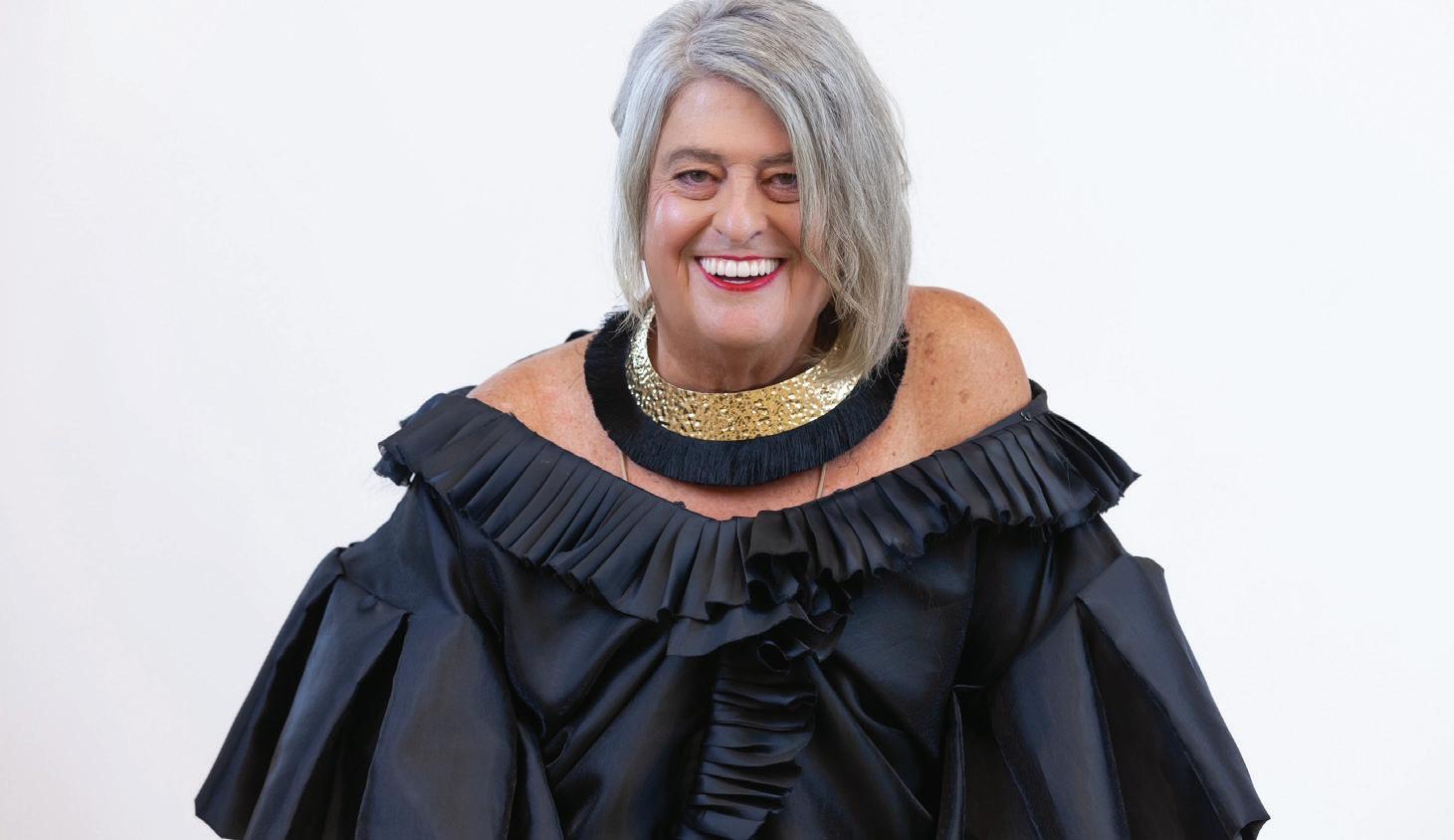
“There are very few of us trans older seniors,” Clark said. “You get Mama Gloria [the late activist Gloria Allen] and me—I’m [now] the oldest. I didn’t get her mink coat, but I got the responsibilities.”
Last year, she doubled-down on the idea of raising trans senior visibility when she got the opportunity to work locally as a fashion model.
One day last August, her daily meditation prompt was, “You can be anything you want to be.”
Clark said she stood up and said, “I want to be the most visible 79-year-old transgender model. And then I humbly said: ‘in the Midwest.’
A friend with connections had taken her to a fashion show at Water Tower Place. She called
and asked if she could walk the runway once at the next show.
Three hours later, she got her answer: “Yes, be at Water Tower Place at Wednesday at 11.”
When she arrived, she was told she’d be doing two days of fashion shows, with several changes of clothes—including a wedding dress. She closed several of the programs, essentially occupying the most-coveted spot in the shows.
“How’s that for a lark?” She said, laughing. “It’s a now a business career.”
Indeed she has now has representation from a modeling agency in San Francisco called Celebrate the Gray, specializing in models over the age of 50.
“Whenever I see a photographer post on Instagram now, I say [to call me], ‘If you ever need a unicorn,, as defined by a 79-year-old runway model who has a 5’11 frame, 46-inch shoulders, reasonably height-weight proportionate, and can carry any loose-hanging garment.’”
On May 20, Clark took part in the Trashion Revolution fashion show at Macy’s. She was one of 50 models intended to showcase “the diversity of humanity”; the event centered pollution and climate change as its theme.
“Chicago nor the world has never seen anything like it,” Clark said. “Pre-sales were such we had to seek a new venue. With our move to Macys
State Street, [we] more than doubled our capacity and ticket sales sold out.”
Being visible and staying active has long been foremost on Clark’s mind. Following coming out as transgender in 2016, She did some-soul searching, and was eager to make a contribution to the LGBTQ+ community.
“I joined [Human Resources Professional] Britta Larsen’s speakers’ bureau,” Clark recalled. “She had gotten a request from SAGE USA for some of the seniors to talk about the additional challenges LGBT seniors have when accessing healthcare.”
It was the perfect request for Clark, who’d faced numerous such challenges over the course of her transition. She publicly spoke on the matter over two dozen times over the course of four years. In 2021, she became active, alongside Pride Action Tank Executive Director Kim Hunt, with the group Storytelling for Advocacy.
“All I knew about was transgender issues, stuff on data collection and stuff like that,” Clark recalls. “We had 11 issues to advocate for, that year, and all of them became law. I touched on four of the 11, such as telehealth.”
One issue she’s passionate about is finding competent physicians, which is a challenge shared by transgender folks of all ages.
“That’s not easy, because they don’t put rain-
bow flags after they list ‘M.D.,’” Clark explained. “Our healthcare systems don’t make it any easier, since everything now involves some kind of provider network. So you have go through the morass of your insurance carrier to find out who you could even consider, without knowing whether they’re culturally competent or not.”
Clark works extensively on housing issues as well. She has been involved with Center on Halsted, Howard Brown Health, Equality Illinois, Illinois Masonic, The Village Chicago (a large social community for people over 50) and has sat on numerous advisory boards and councils. She’ll also be a subject of an upcoming Peacock documentary, which she she said is still on “the ground floor.”
Many—if not most—transgender individuals wish not to use the name they had before transitioning. That’s not the case with Clark, who notes that she’s “a Gemini, a twin spirit.” As such, her male persona, Stephen, still lives inside her, she said.
“Stephen had his way for 68 years, and now he’s in the background,” she said. “Now Stefanie is dominant, driving this unicorn. But one of the other runway models one time said, ‘Stefanie, don’t ever forget Stephen. As good as you think you are, he carried you for 68 years.’ So now both Stephen and Stefanie live inside me.”
reflects on life as a both a fashion model and senior advocate
SIMONETTEStefanie Clark. Courtesy of The FashionBar, LLC
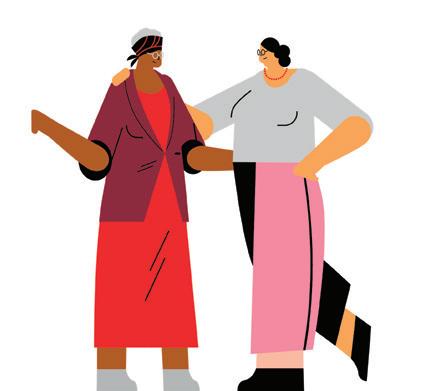
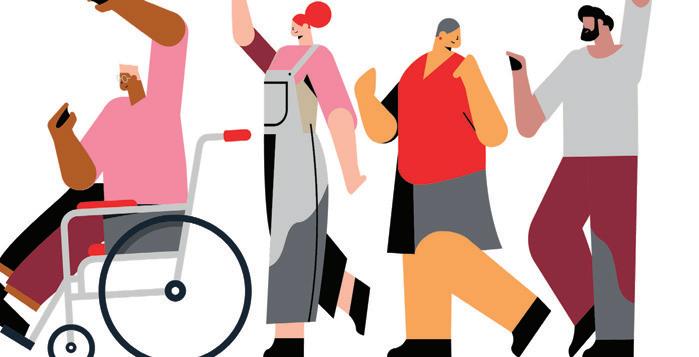
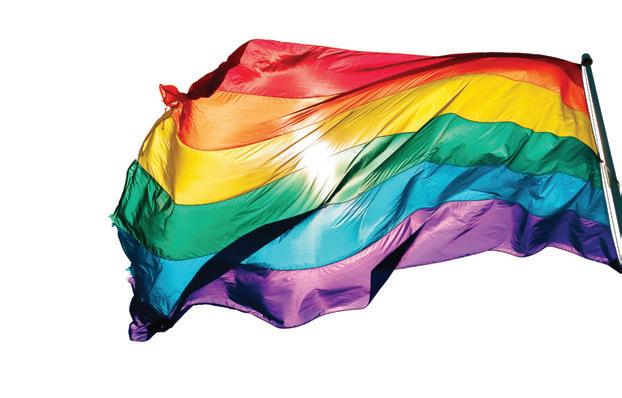
AARP believes in celebrating the diversity of the LGBTQ+ community across all generations. That’s why we o er tools, programs and services to help you get the most out of your fabulous life. We all want to live longer, healthier and more ful lling lives. AARP is committed to creating a new vision of aging for LGBTQ+ individuals, their families and allies—one focused on equity and inclusion and complete with diverse experiences, powerful stories, and innovative ways for everyone to pursue their passions—joyfully, openly and proudly!
Get to know us at aarp.org/pride


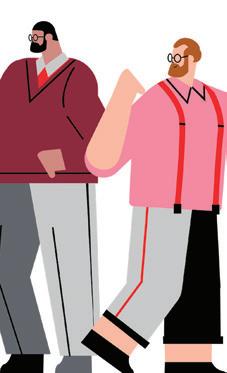

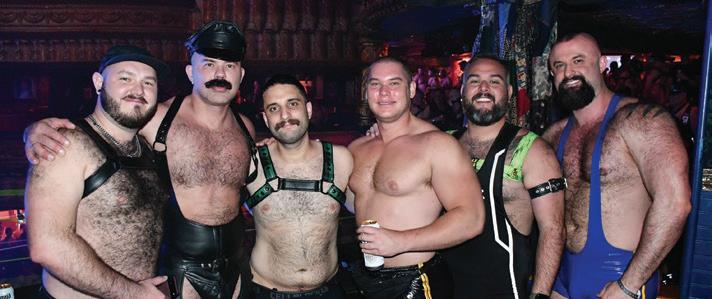
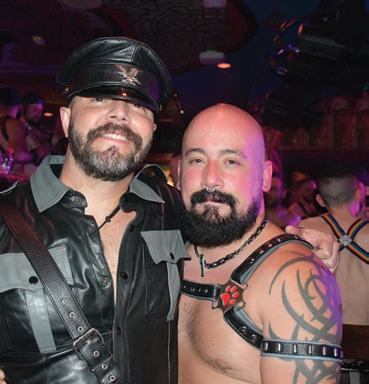

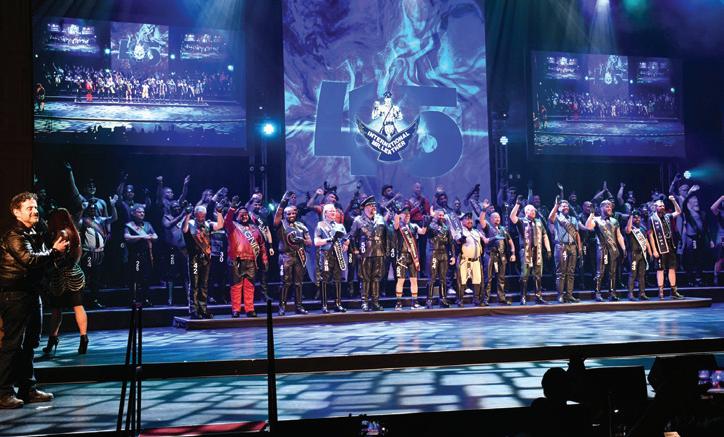
Right: Welcome your new International Mr. Leather, Marcus Barela (Mr. Eagle LA), flanked by first runner-up Chris Gonzalez (Mr. GNI Leather, left) and second runner-up Matthew Moody (Mr. Phoenix Leather, right). The sweaty weekend culminated in the final contest, May 28 at the Congress Theatre. The throngs then flocked to House of Blues Chicago for the Victory Party (below).
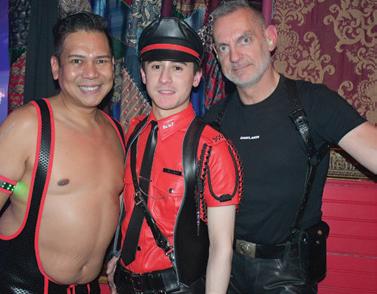
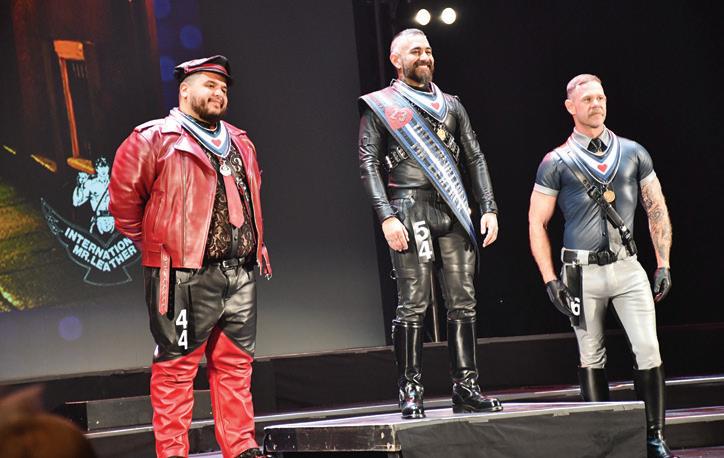
Howard Brown Health (Howard Brown) is preparing to open a new, larger and more holistic facility at 3501 N. Halsted St., two blocks south of Center on Halsted in Lake View, for this coming Fall.
Organization officials hope that the new facility—located on the former site of Little Jim’s tavern—will both reduce wait times for Howard Brown clientele and allow them to more easily access services.
“The current Melrose clinic, which lacks capacity for new patients, already serves as an epicenter of care in the heart of one of the nation’s oldest LGBTQ+ neighborhoods,” said Vice President of External Relations Katie Metos. “Maintaining the location for the new Halsted clinic within this community is consistent with Howard Brown’s practice of placing clinics and outreach efforts within communities affected by social determinants of health, such as disproportionately high rates of HIV, and ensures patients feel safe accessing and receiving care.”
Community and political leaders broke ground in March 2022 and construction has been ongoing since that time. This new facility has been five years in the making with funding coming from capital reserves, state and federal grants, lending and philanthropy from individual, corporate and foundation donors.
Howard Brown was founded in 1974 and serves over 35,000 patients annually at its 10 clinics in locations on the North, South and West Sides of Chicago. The new 71,000 square-foot, five-story facility will double patient capacity from the 7,500 patients it serves at the current Melrose clinic location.
The first floor of the new facility will have a lobby as well as a Walgreens retail store and culturally-competent pharmacy. Only the second floor will be utilized for the medical clinic initially, and the fourth floor for dental care. Later on, the medical clinic will be located on the second and third floors. The fifth floor will be an all-purpose training facility.
Metos added, “The new Halsted clinic will
maintain its close connection to the surrounding community, staying true to the agency’s mission of providing high-quality, affirming healthcare to everyone who seeks it. Especially in today’s anti-LGBTQ climate, this building affirms that we deserve to be seen, we deserve to be healthy and we deserve to be here.”
An especially important facet of the new clinic will be the dental services, officials said. Howard Brown Director of Construction, Design and Real Estate Frankie Reynolds noted that the agency has “a population of patients who travel to 63rd Street for appointments. We have recently been providing dental on the North side through the dental van—there is pent up demand for competent, accessible dental care.”
Howard Brown Chief Medical Director Dr. Patrick Gibbons added, “Although primary care providers can help a little bit with dental concerns, for the most part we do not have the expertise to handle cavities and beyond … . Having dental in this facility means that we can offer our patients
access to providers able to see anyone regardless of their ability to pay.”
Howard Brown Chief Dental Officer Dr. Robin Gay said, “We have a North Side contingent of patients, especially those who are low-income or on Medicaid, that are in need of affordable dental services, who will now have access.”
The new location will offer more exam rooms, and improve access to gynecological- and analhealth services, according to Reynolds. Behavioral health and social services will be better supported at the new location as well, Reynolds added, noting that the more comprehensive scope of services will help clients stay on a continuum of care.
“With greater access, we promote greater adherence to important lifesaving and life-changing medications,” Reynolds said.
Metos told Windy City Times that patients currently have to wait for four months for a return appointment at the Melrose clinic, while for new patients that wait is about six months. Organiza-


tion officials anticipate the new facility will cut down on that wait time, with the expanded medical staff Howard Brown will be hiring.
Once the new facility is opened, there will be about 100 staff to serve patients’ needs with a target of 170 staff members over time. Patient capacity will eventually reach 23,000 people and 65,000 patient encounters a year. The building was designed by the firm Eckenhoff Saunders, while construction was led by McHugh Construction.
“Providing quality health care and social services for the LGBTQ+ population in Chicago is more important now than ever,” said Eckenhoff, Saunders Architects Senior Associate Mark Parrucci. “We are delighted to be partnering with HBH on its new Northalsted facility that will increase access to these necessary services. As a member of the LGBTQ+ community, I have seen firsthand the much-needed benefits HBH provides throughout the city. This new project represents HBH’s continued commitment to its cause, and I am
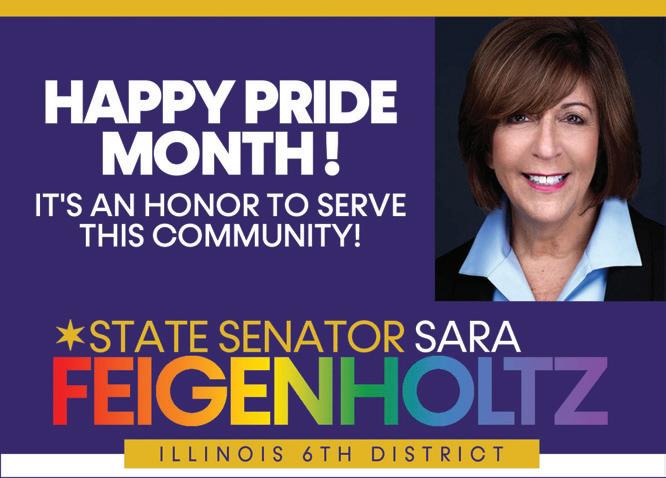
Rendering by Eckenhoff Saunders Architects
proud to be a part of this endeavor.”
“McHugh Construction was absolutely honored to have earned Howard Brown’s confidence and trust to build this project that encompasses the mission of Howard Brown,” added McHugh Construction President Michael Meagher. “Our relationship began with their owner representative, Inland Real Estate Group who led a selection process to select a firm that would deliver the best value.”

The new Halsted clinic overall means means “simplified” healthcare, said HBH Chief Behavioral Health Officer Belinda Stiles. “Knowing that you can schedule to see your PCP, pick up your prescription, get labs done and check in with your behavioral health provider all in one visit to the clinic makes managing your health feel doable. This clinic will help our patients feel like their needs are truly being heard by their health care team.”
Reynolds added, “We have been constrained by our sites’ capacity to serve. This new Halsted facility allows us to increase access to care for people who have historically been left behind by healthcare systems. Whether that is PrEP, HRT or an mpox lesion—Howard Brown wants to serve patients with gender-affirming, sex positive and accessible care.”
Additionally, Howard Brown is looking at building a clinic on Chicago’s South Side to meet the growing health and wellness needs of residents there. Howard Brown began providing services on the South Side in 2017, and has four clinics and a mobile health program operating in the Canaryville, Englewood and Hyde Park locations that serve more than 15,000 patients across 25,000 square feet.
See howardbrown.org/.
Here at A
Our team works across our health system to ensure the needs of our LGBTQ+ patients are met by providing access to the culturally competent, high-quality, nationally-recognized care RUSH is known for.
Services we provide and coordinate include the following:
• Gender-a irming clinical specialties, including:
– Gender-a irming surgery
– Gender-a irming hormone therapy
– Pelvic floor therapy
– Voice therapy services
• Behavioral and mental health
• Endocrinology services
• HIV care
• Obstetrics and gynecology services (including cervical cancer screening)
• Primary care for adults, adolescents and children
• Reproductive health and fertility services
• Specialty care including oncology, orthopedics and neurology
To learn more about A irm and LGBTQ+ care at RUSH, please call (833) 624-5428 or visit rush.edu/a irm.